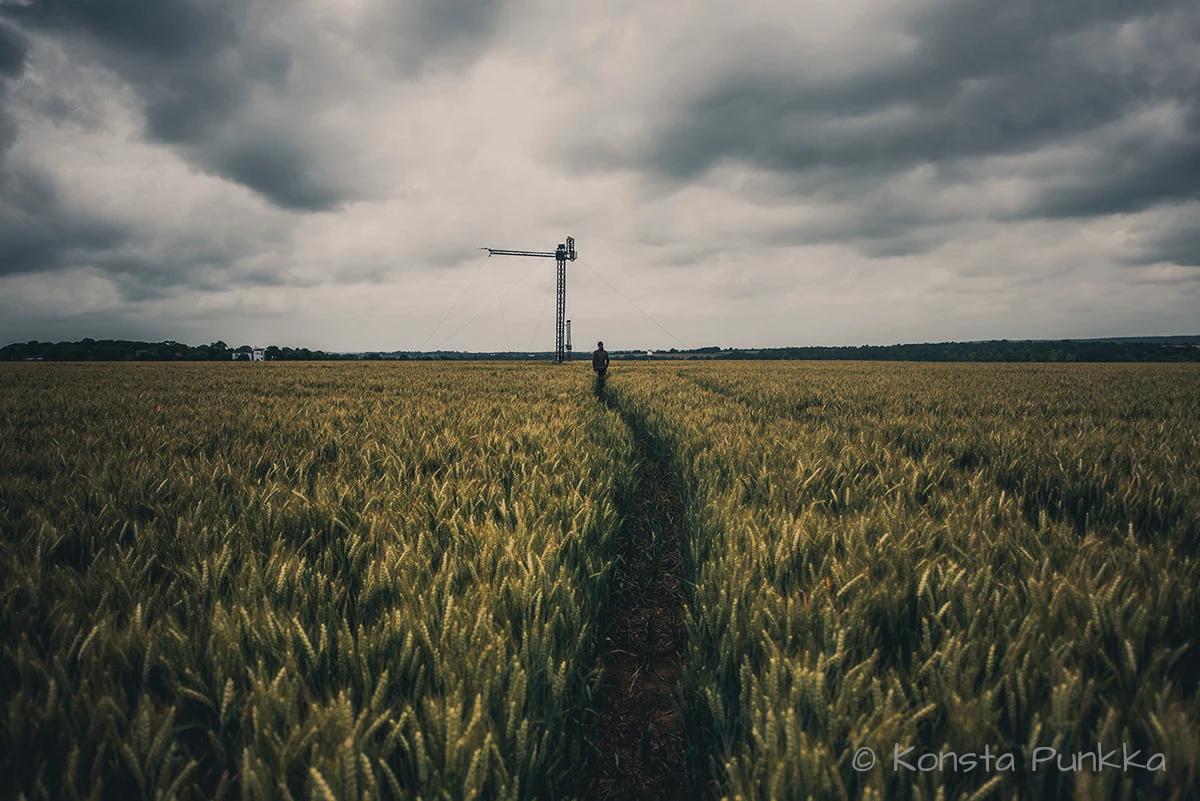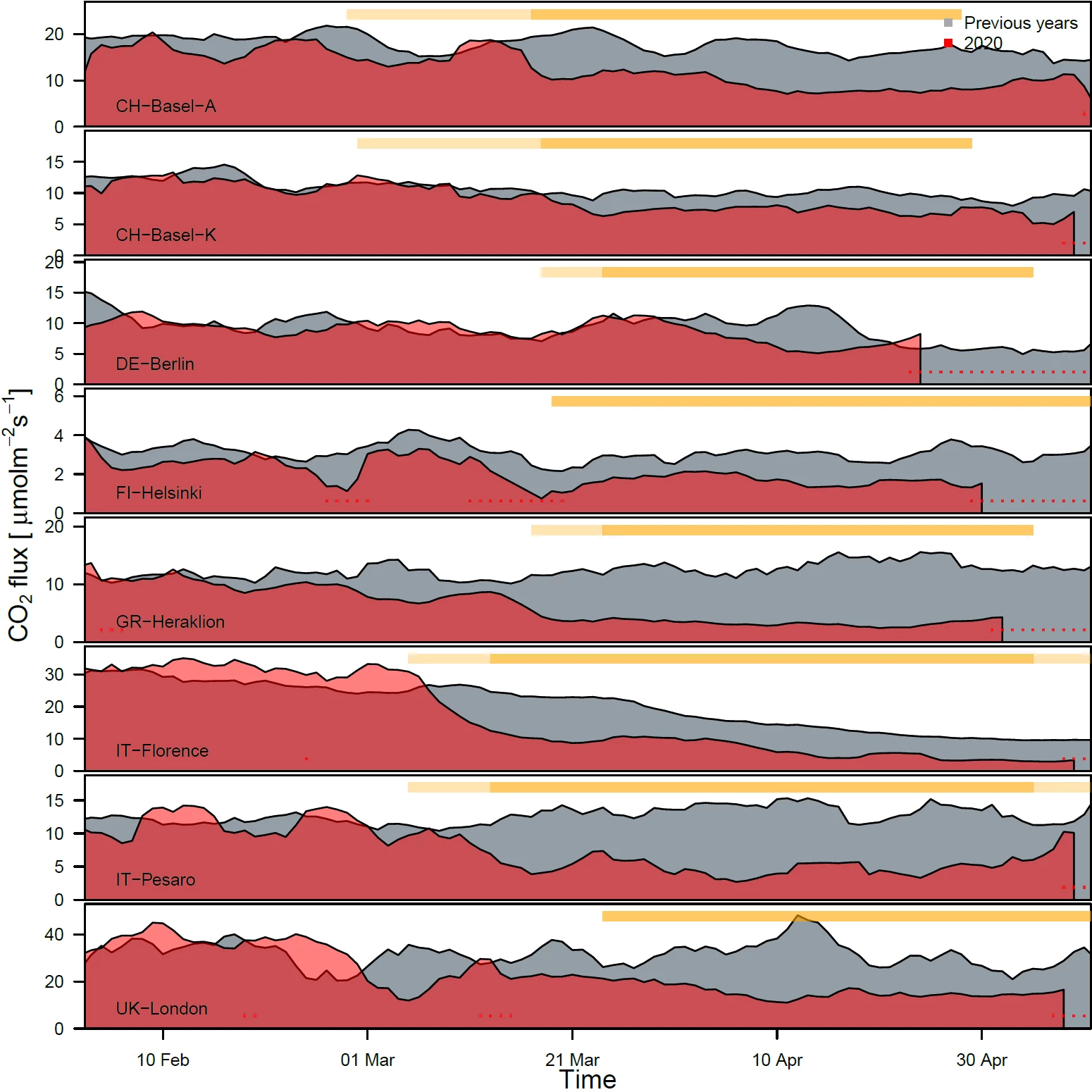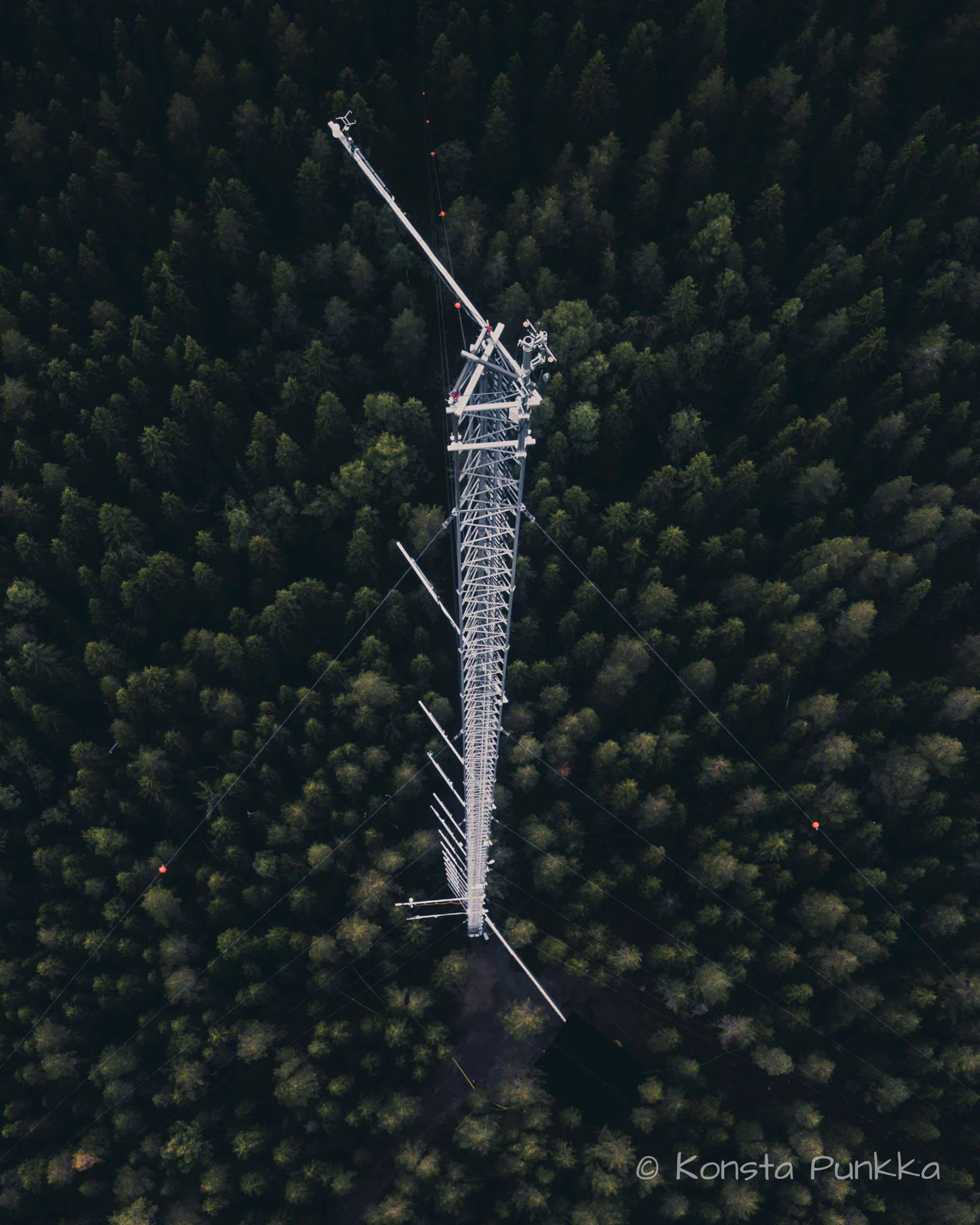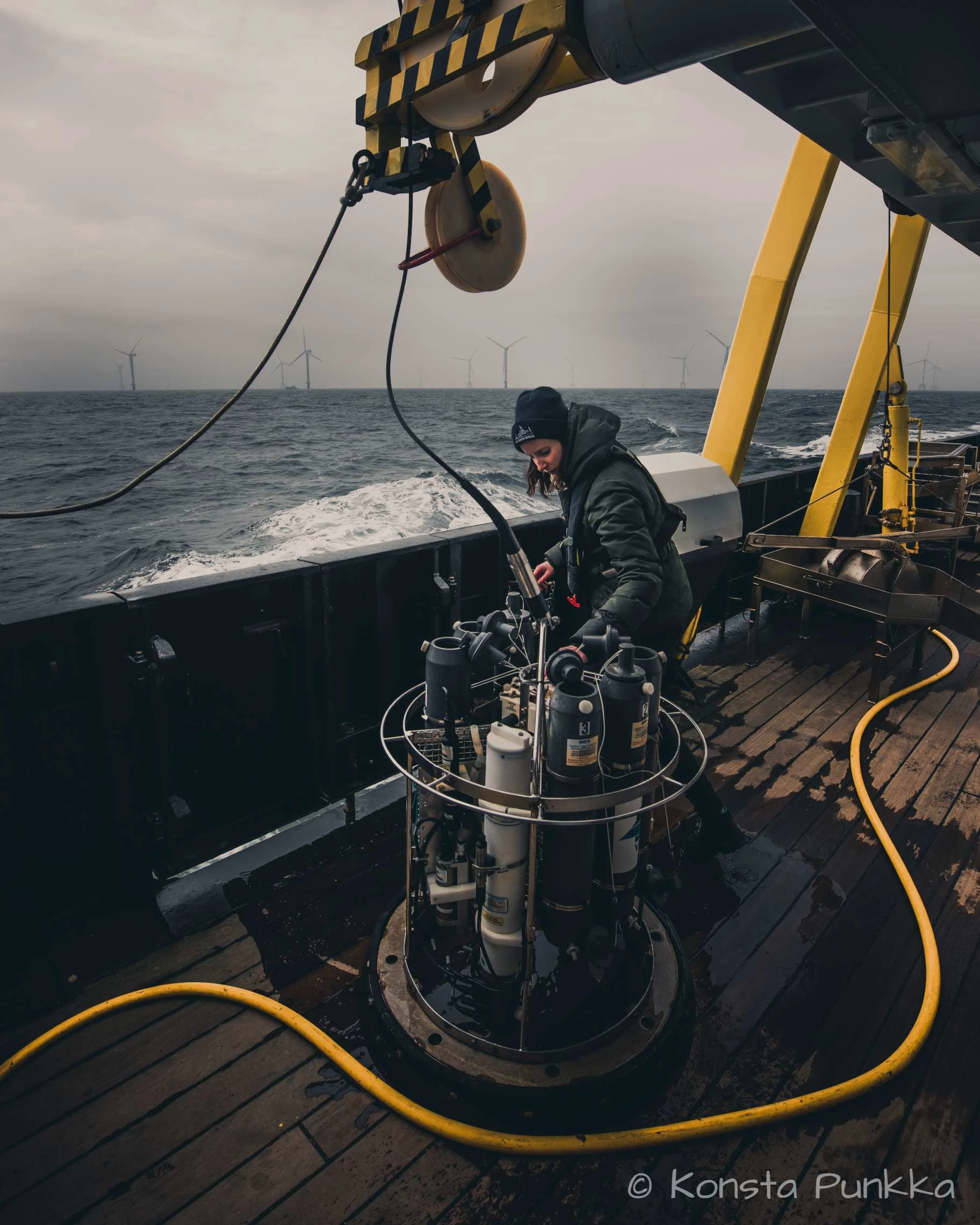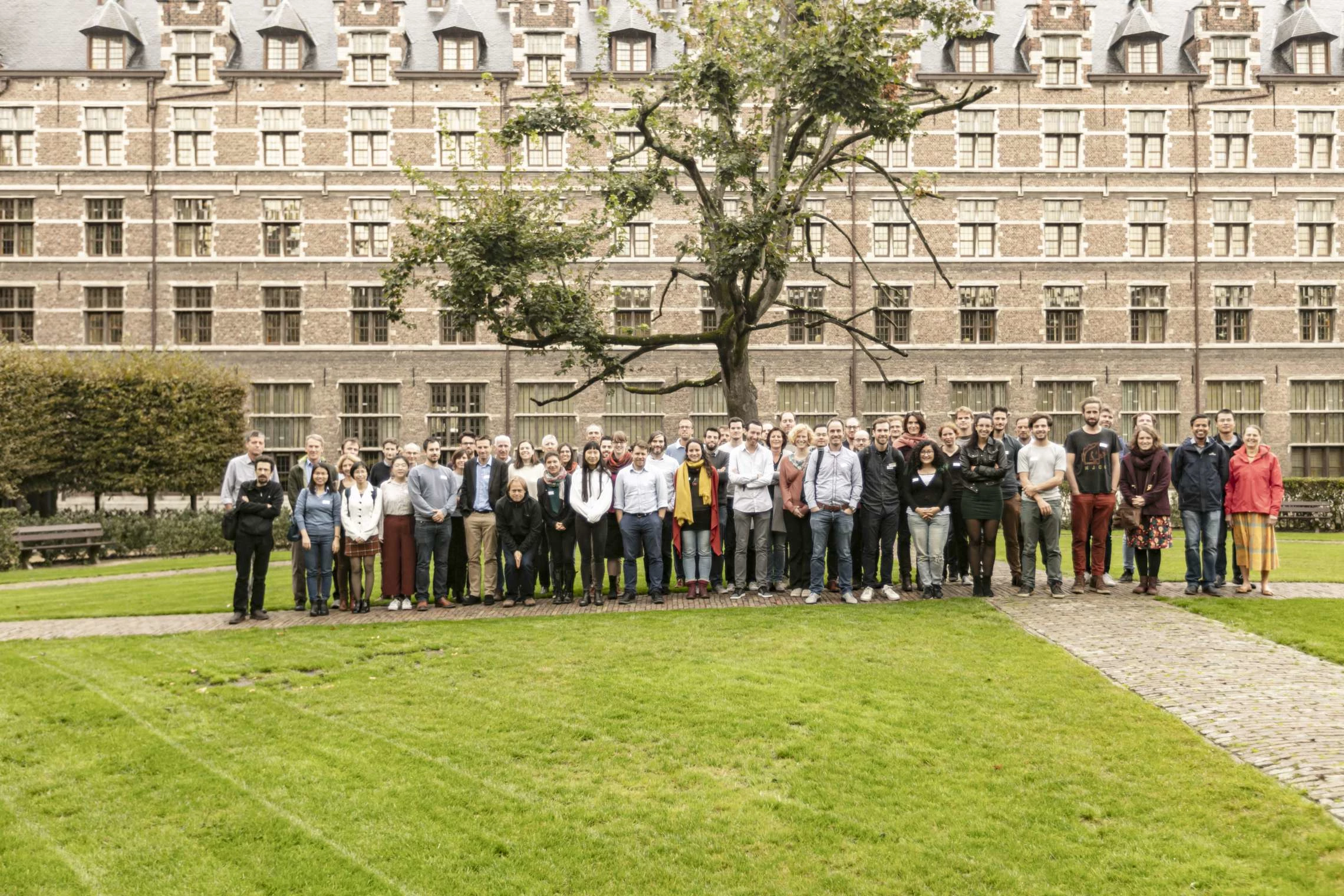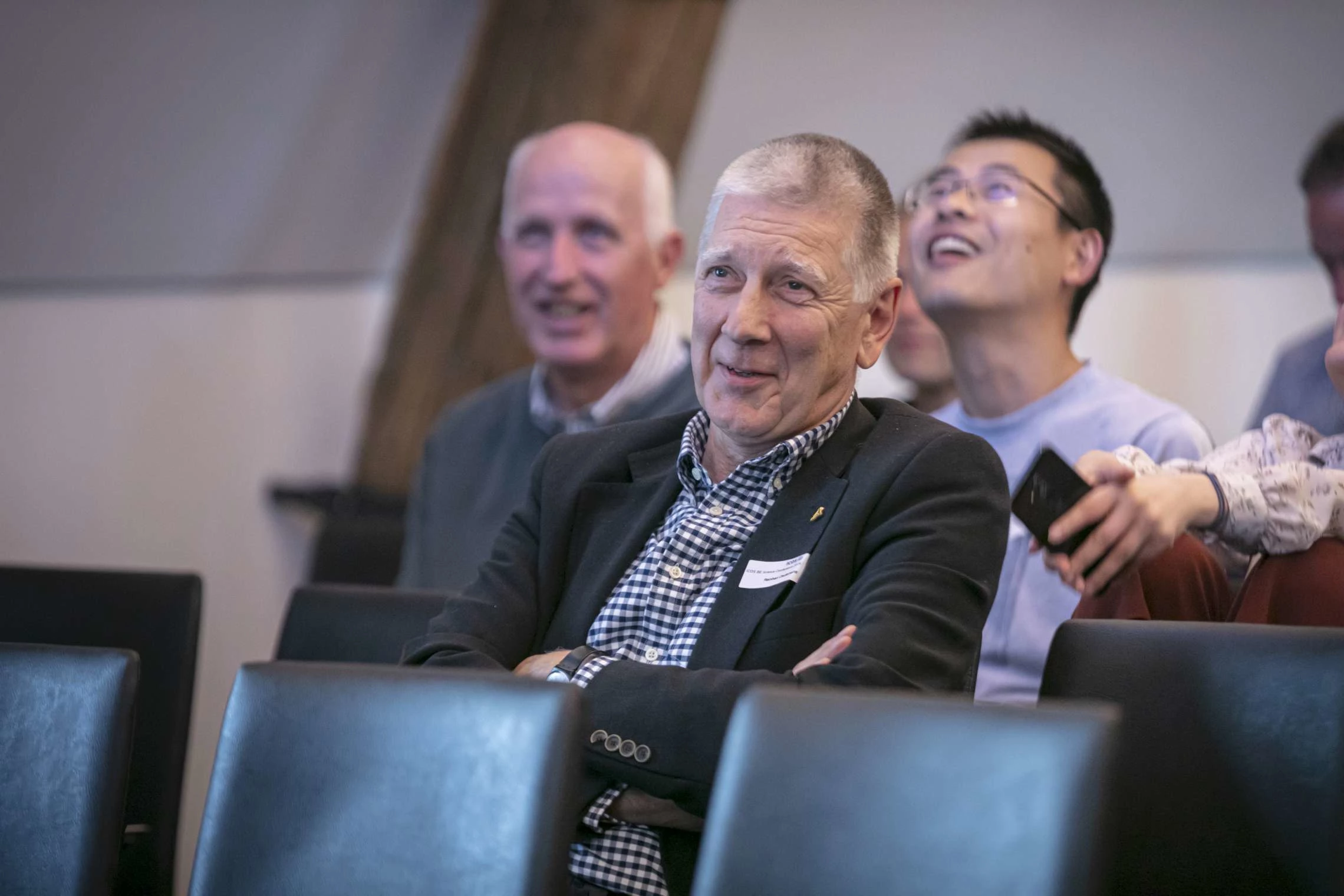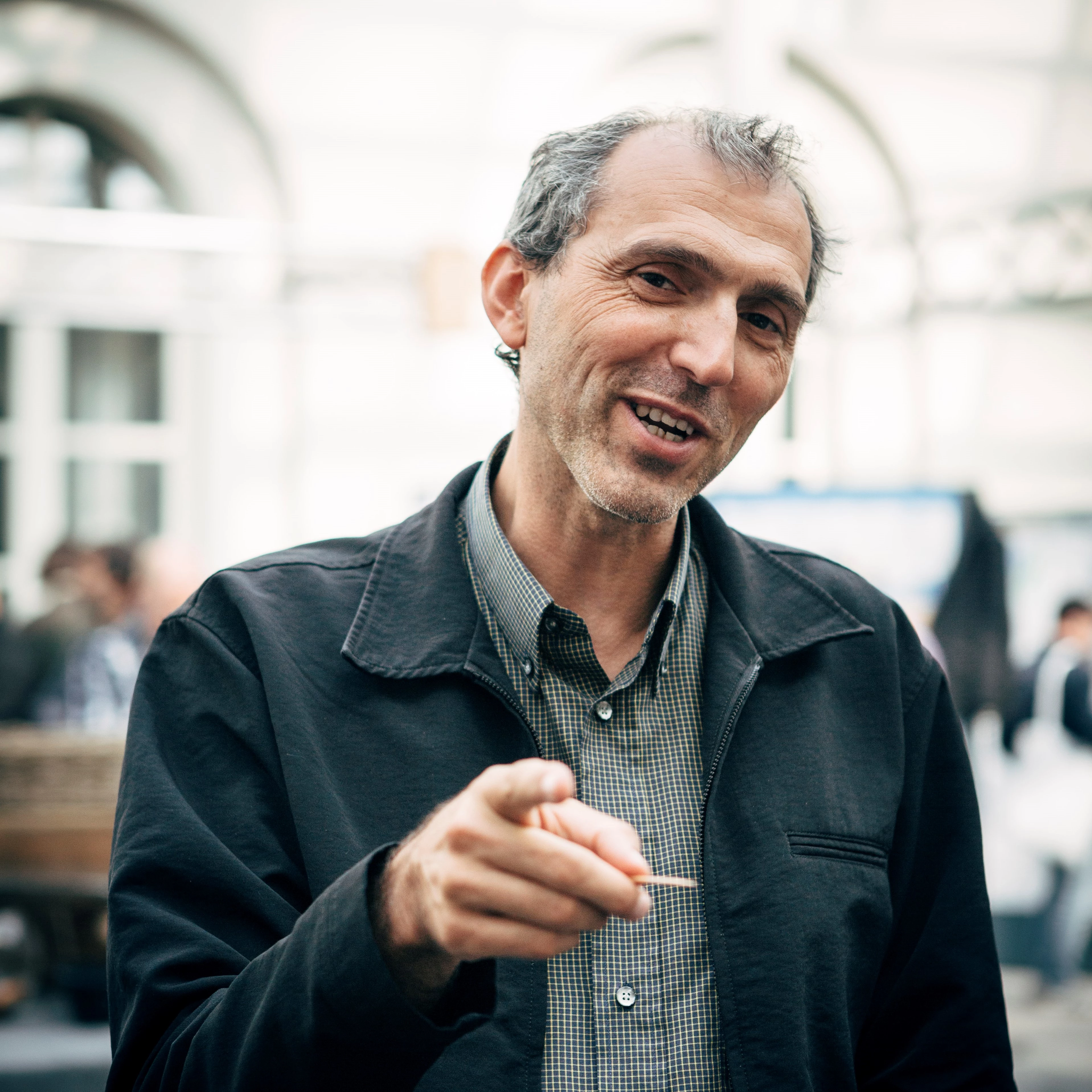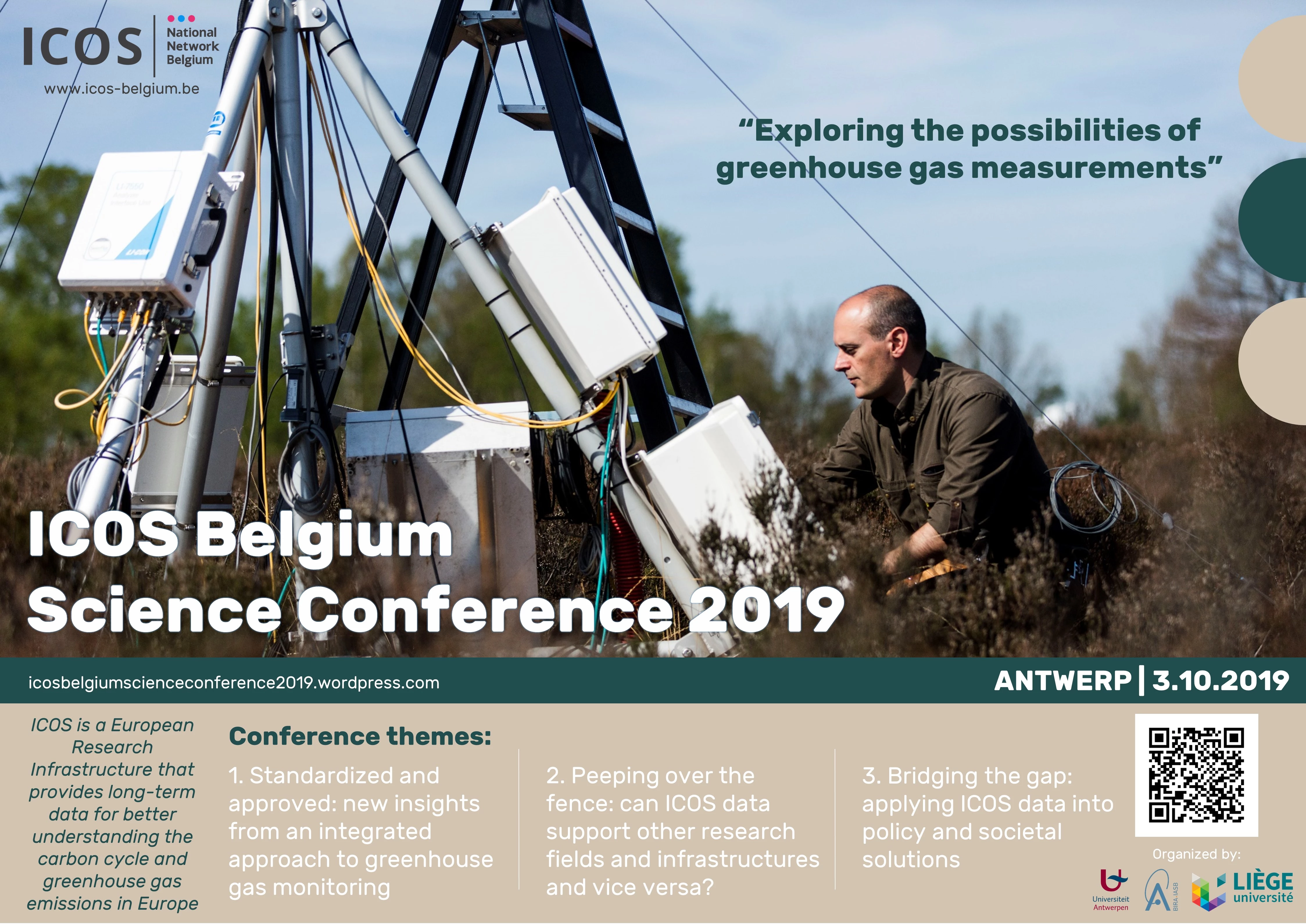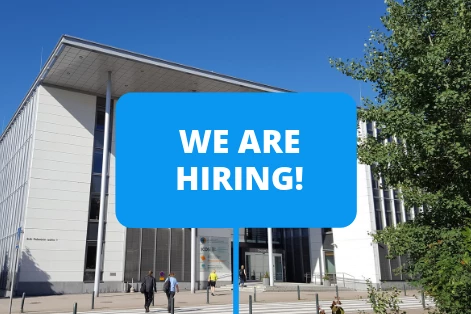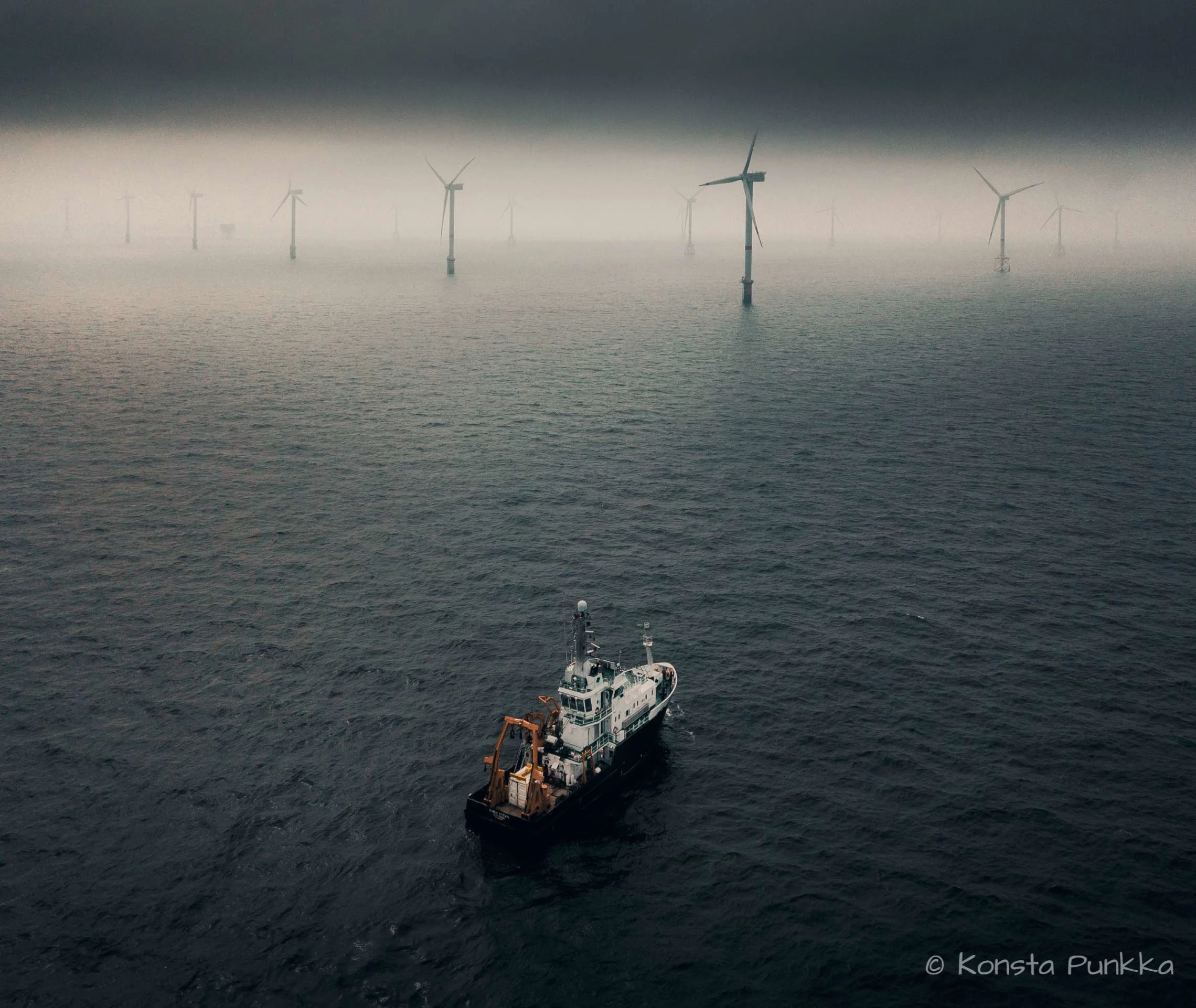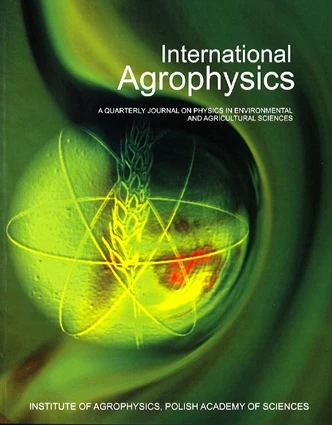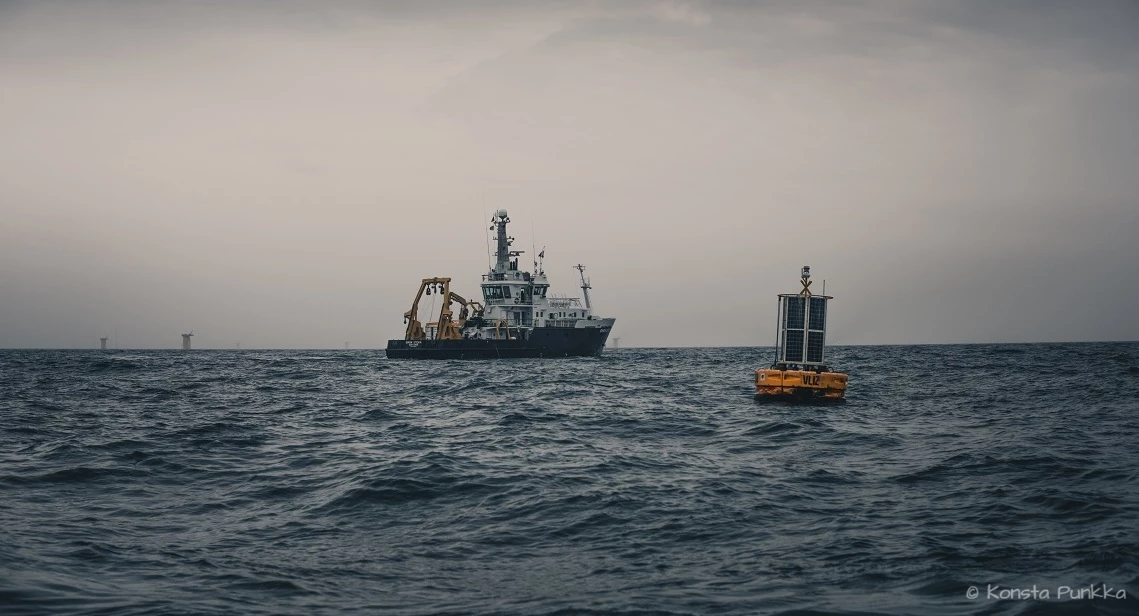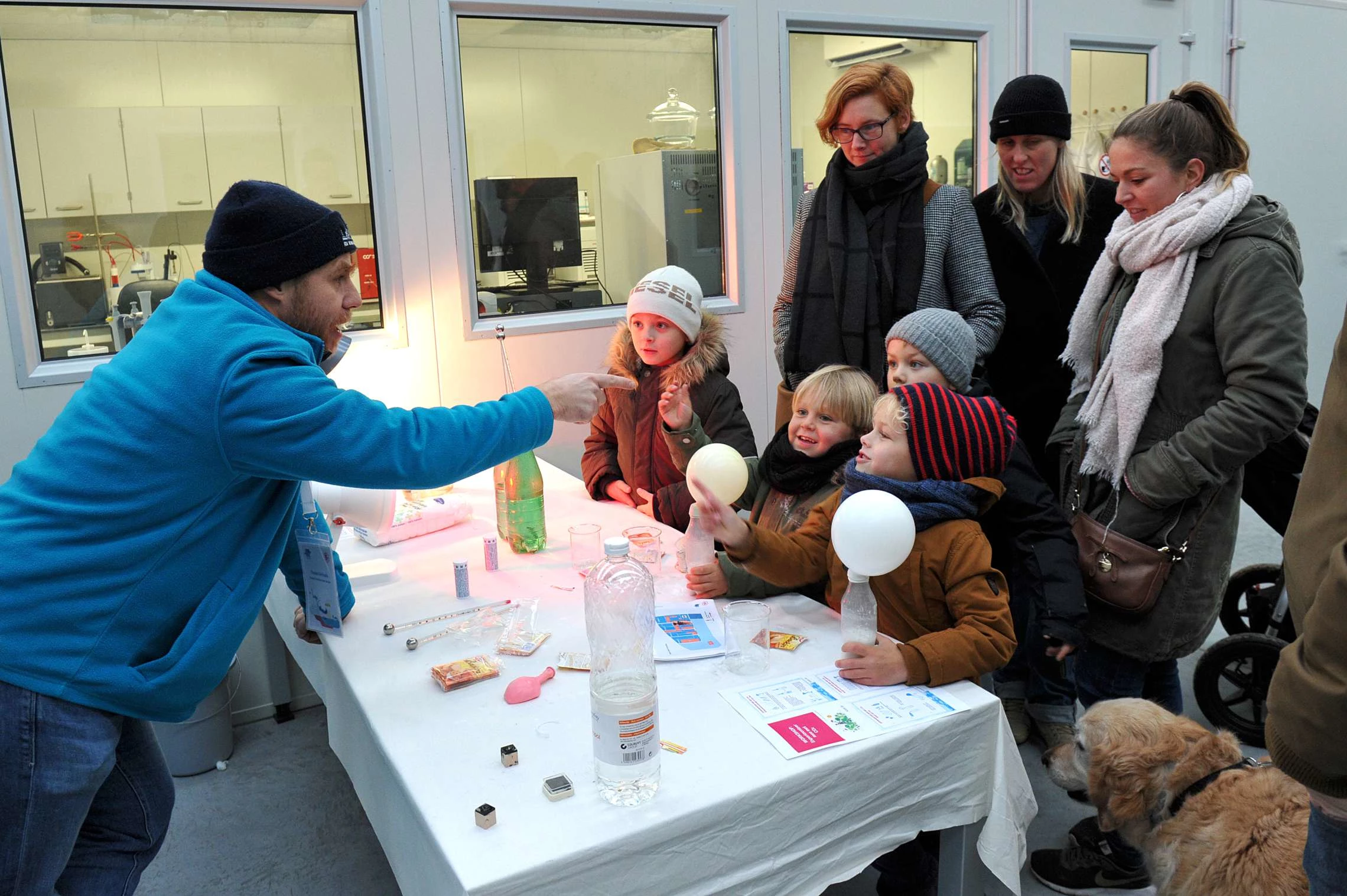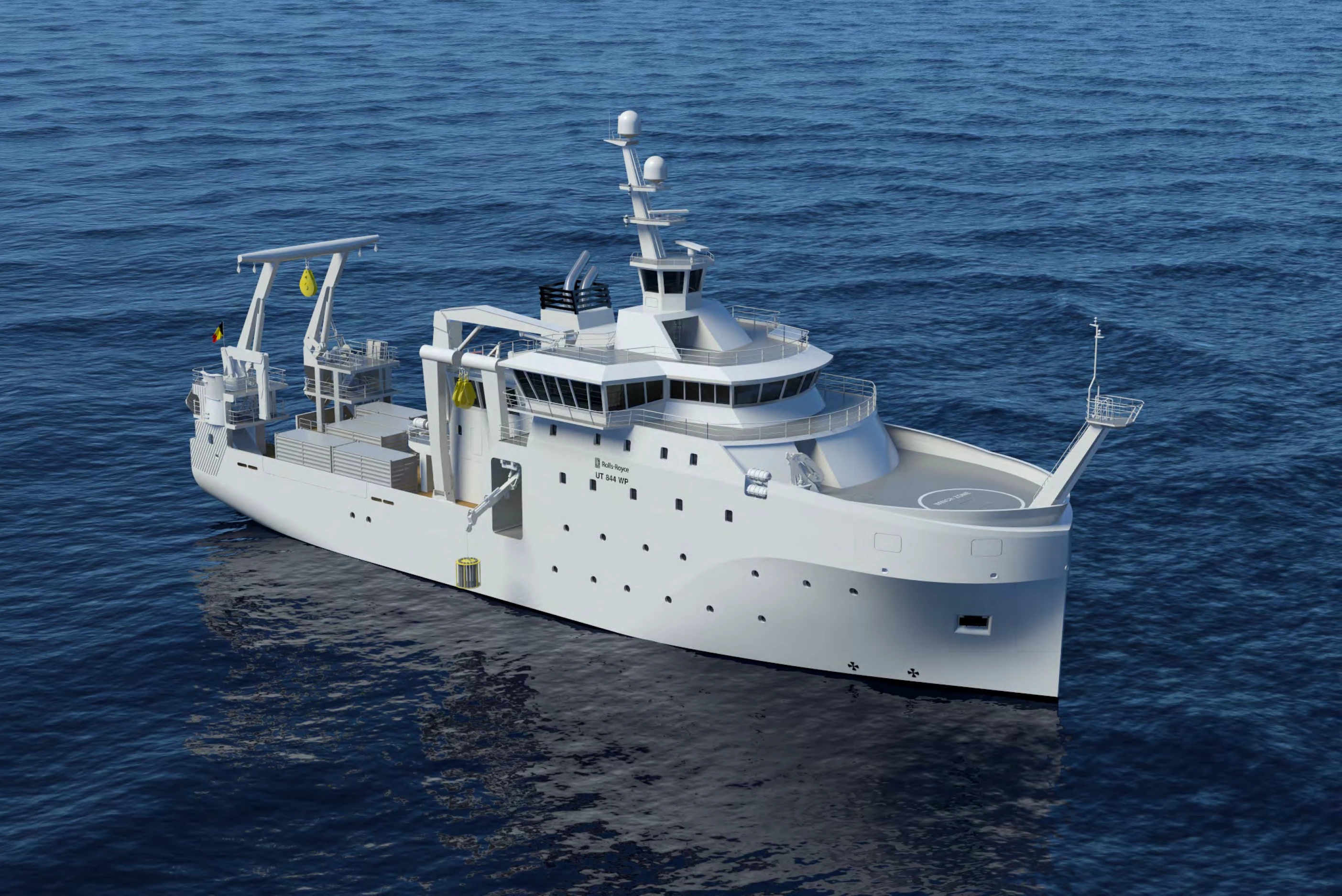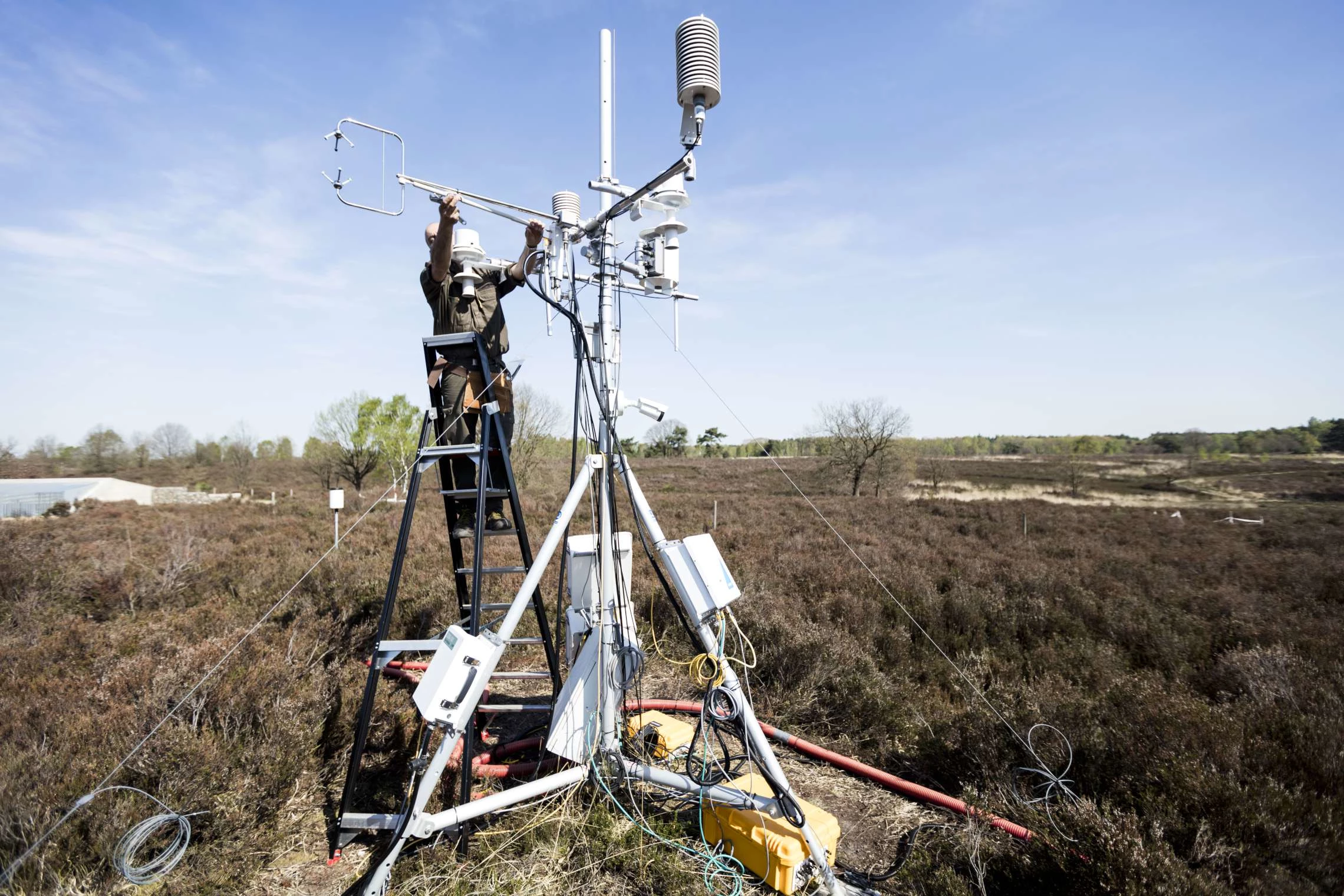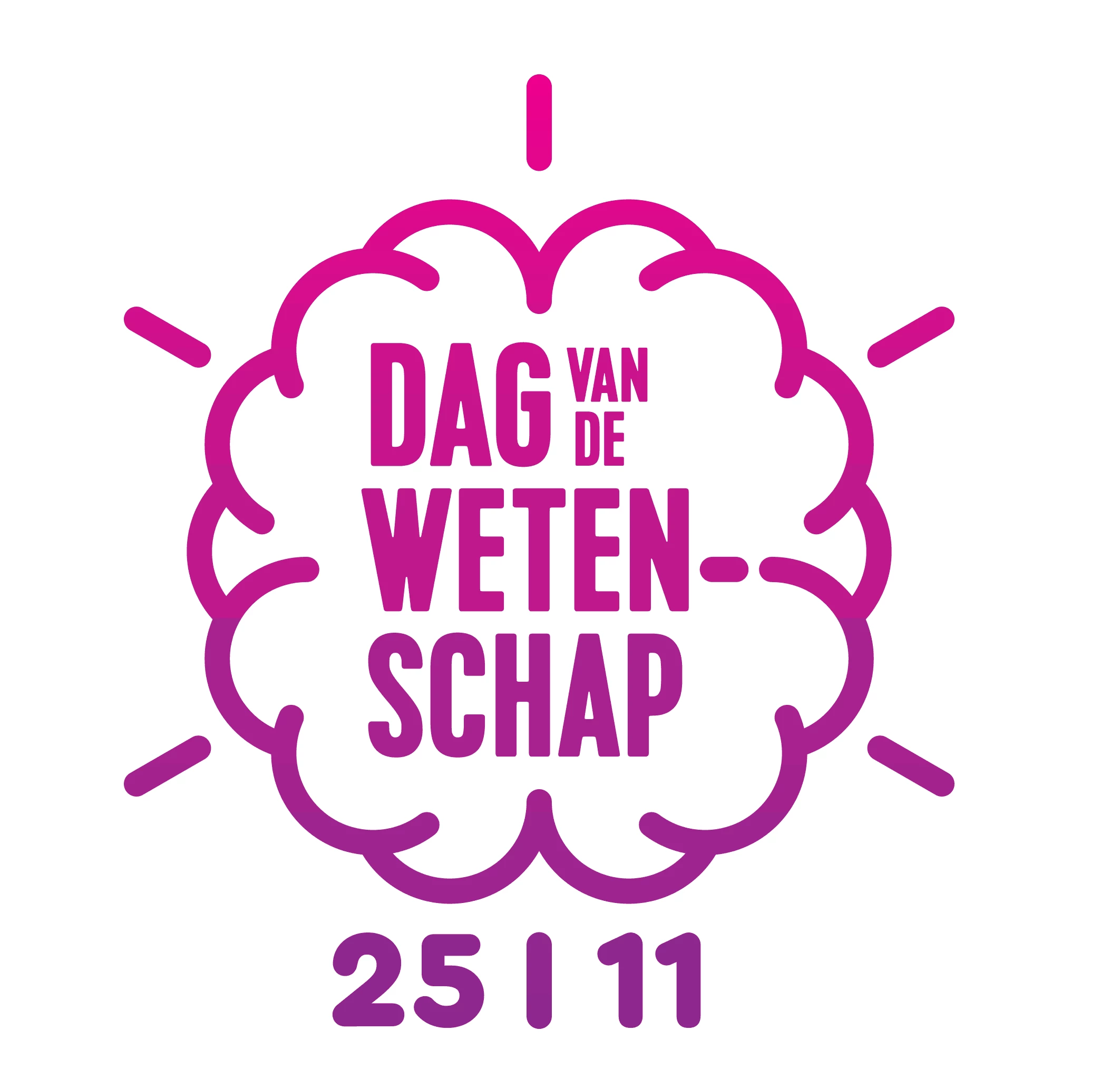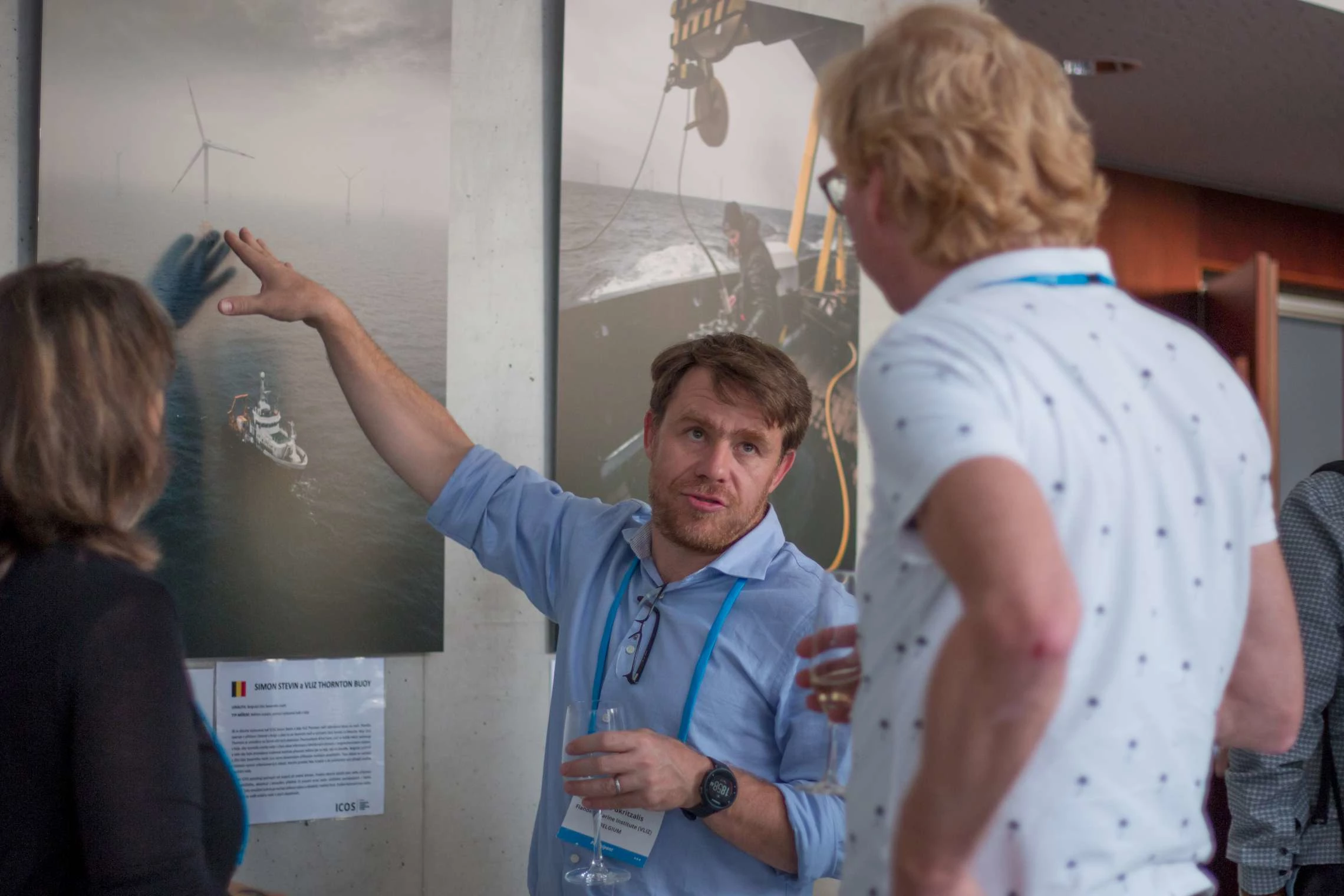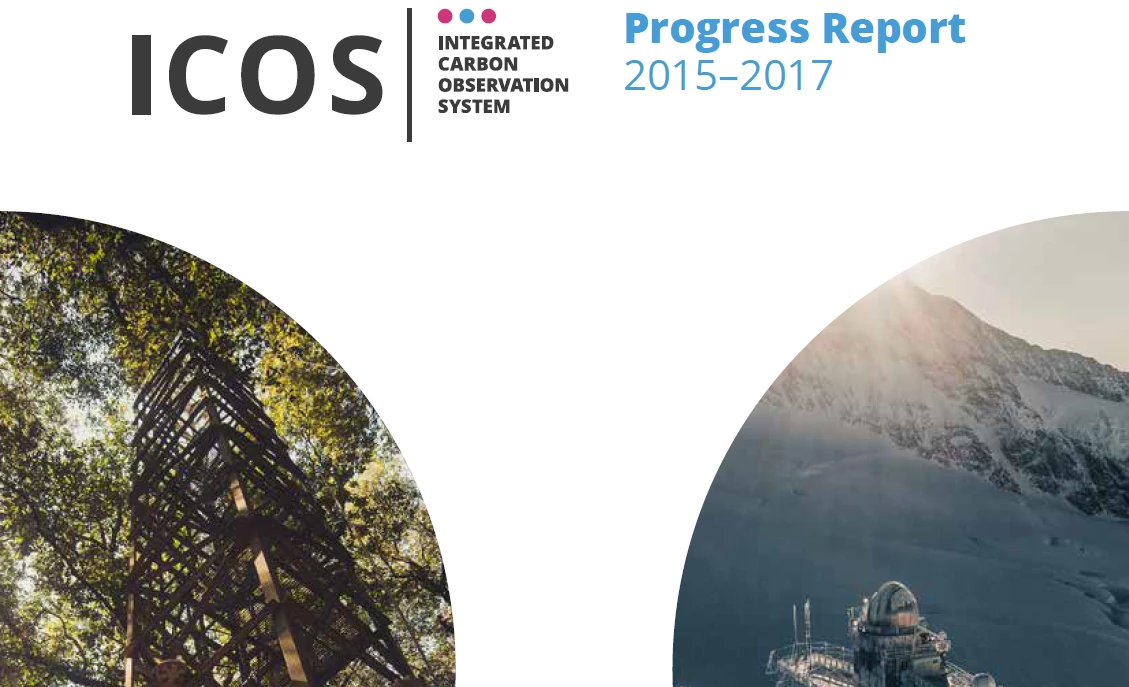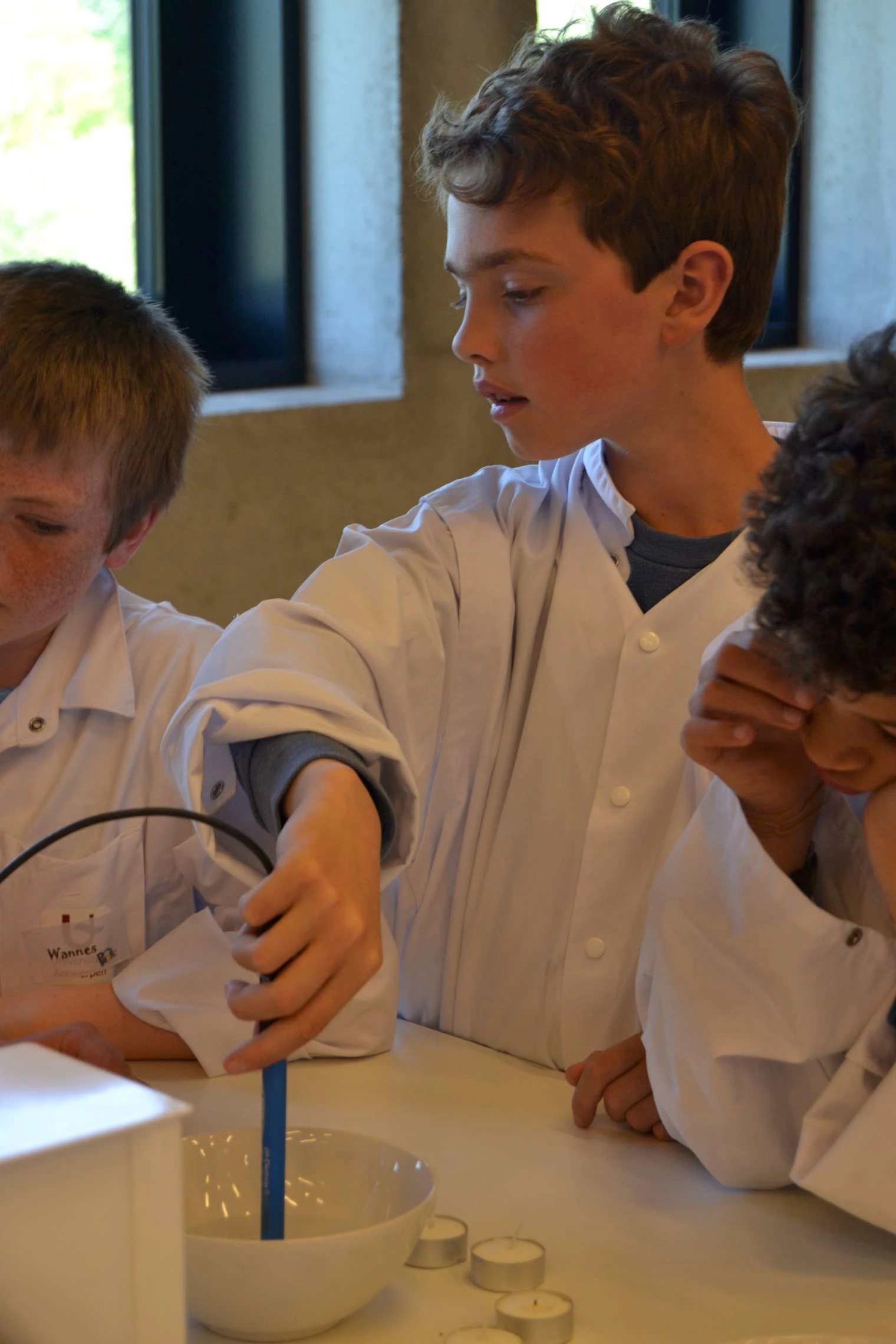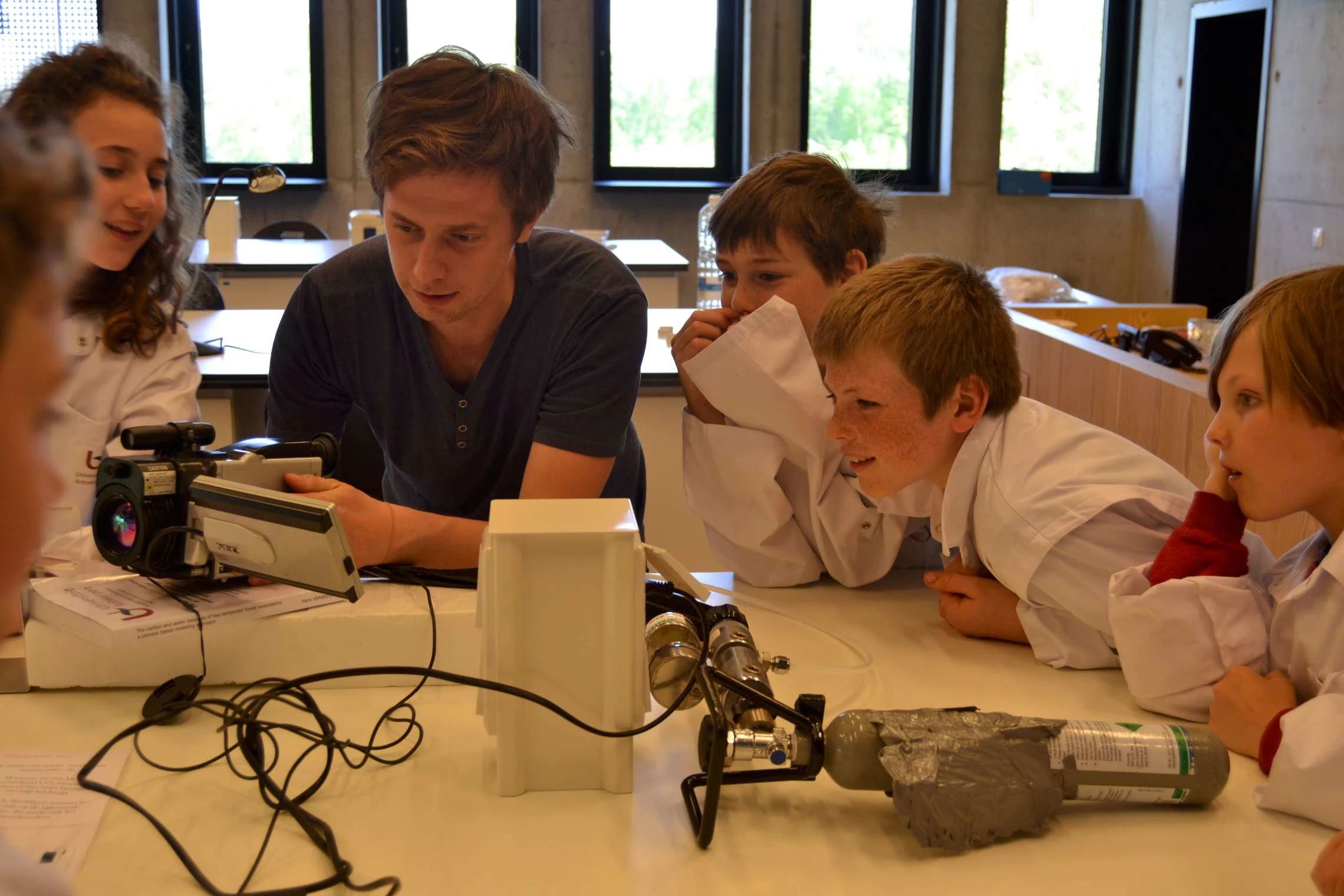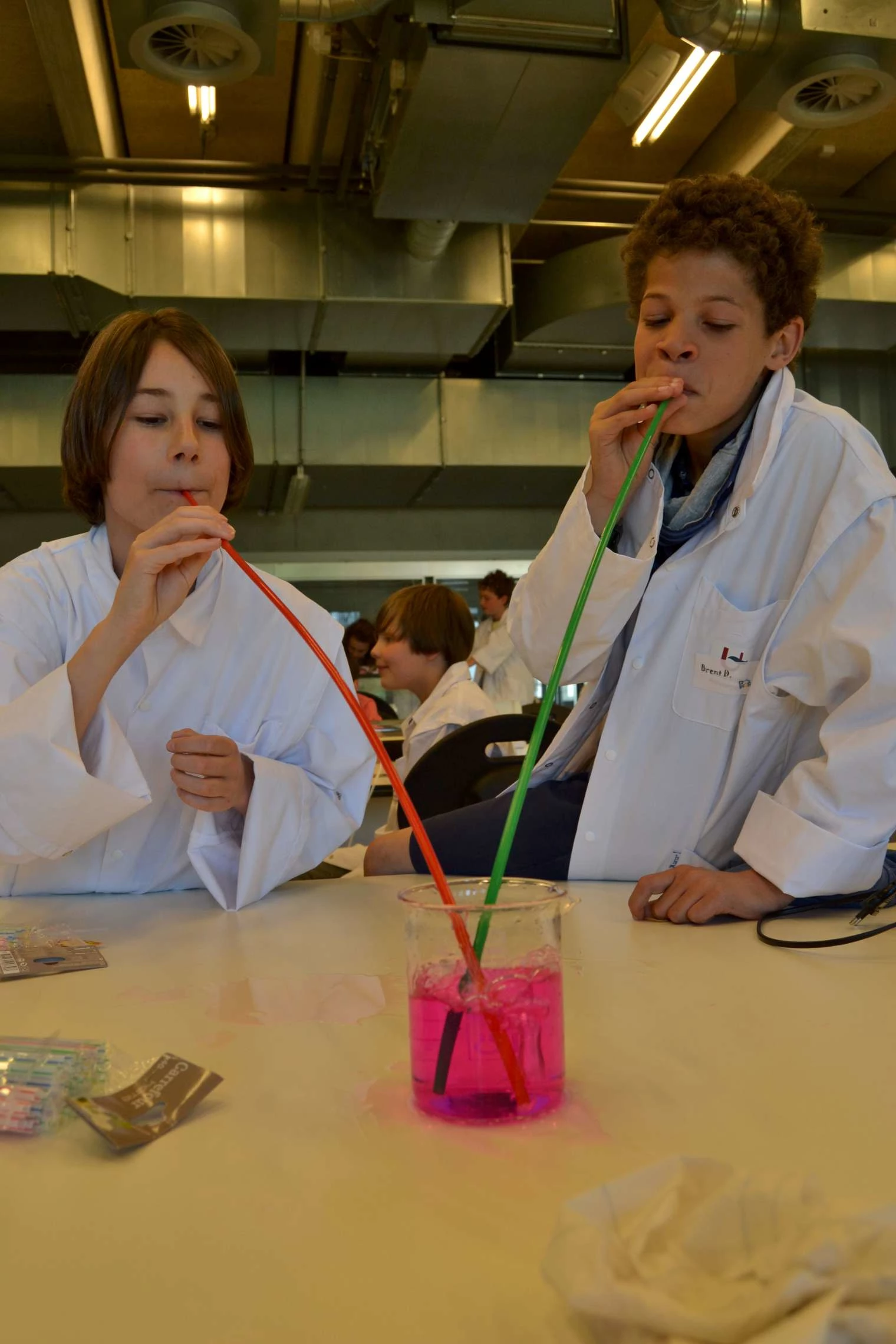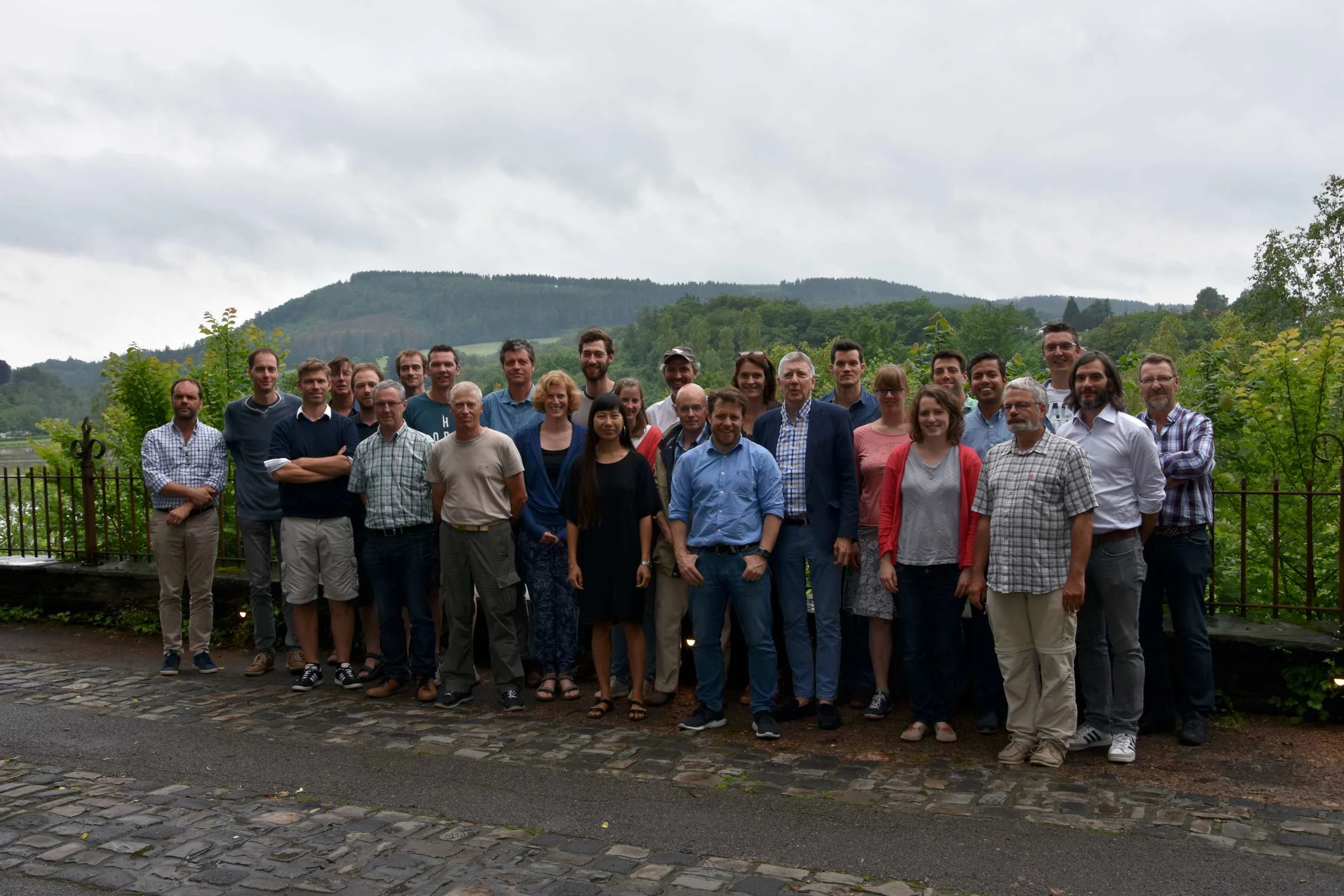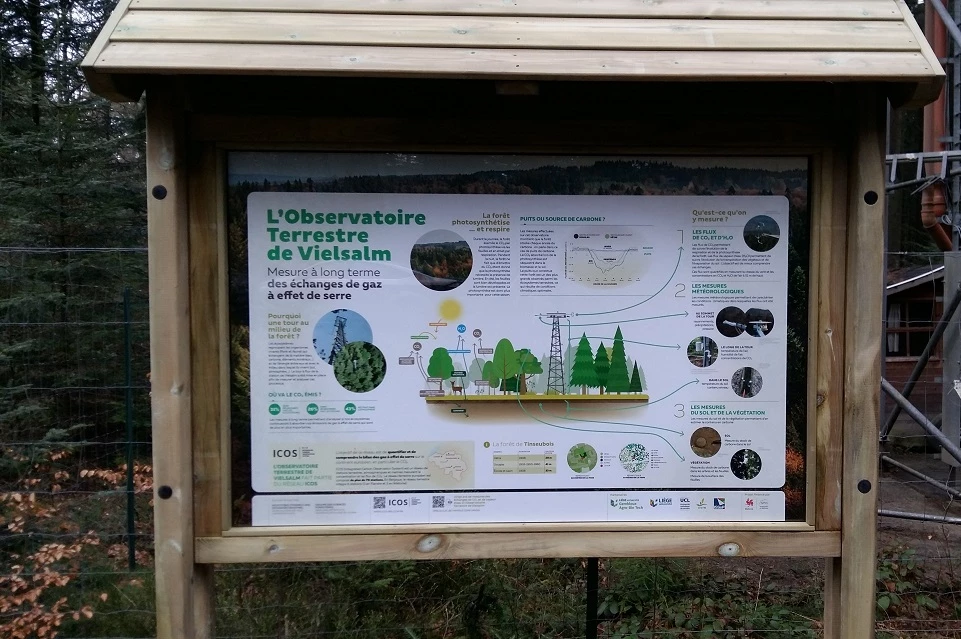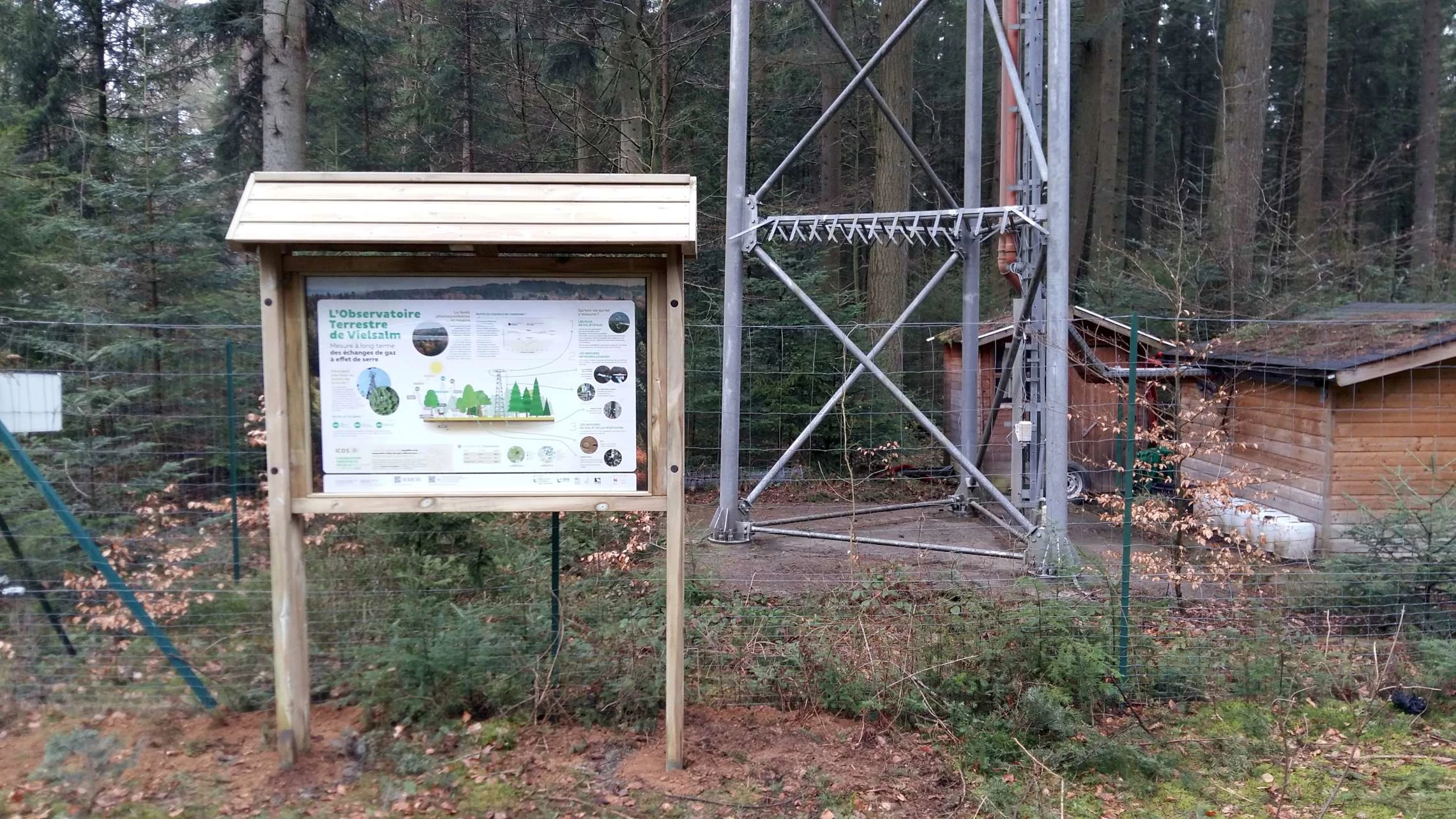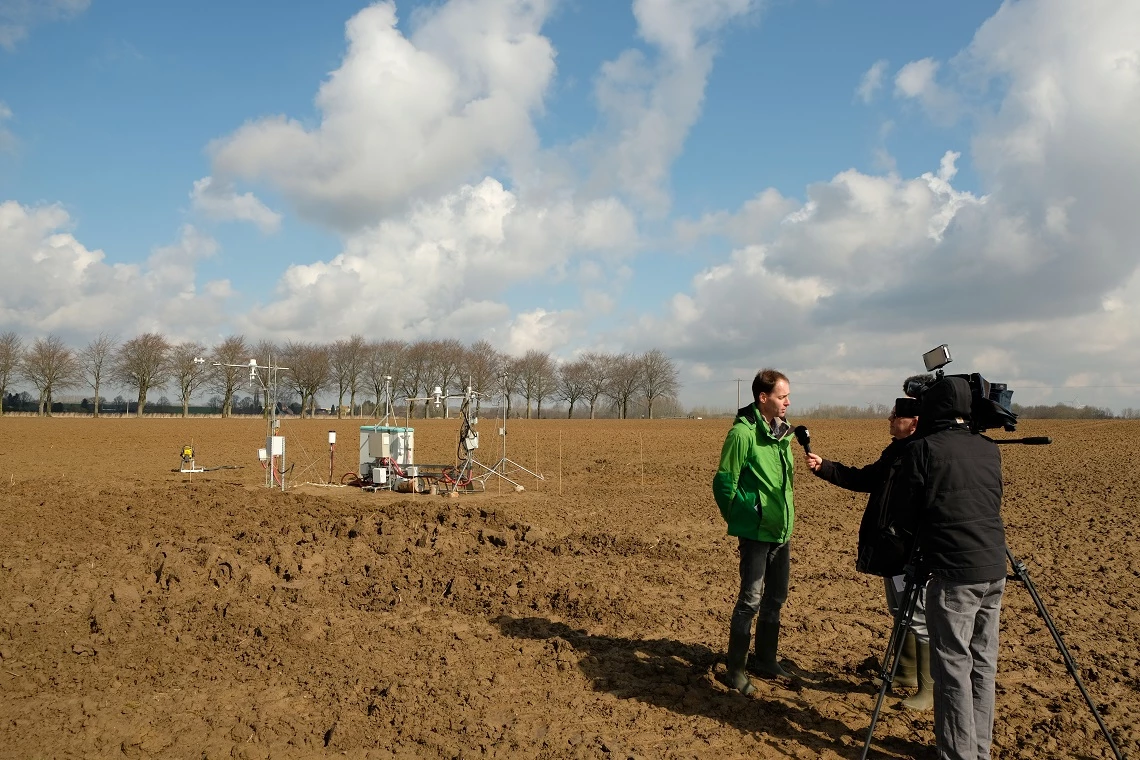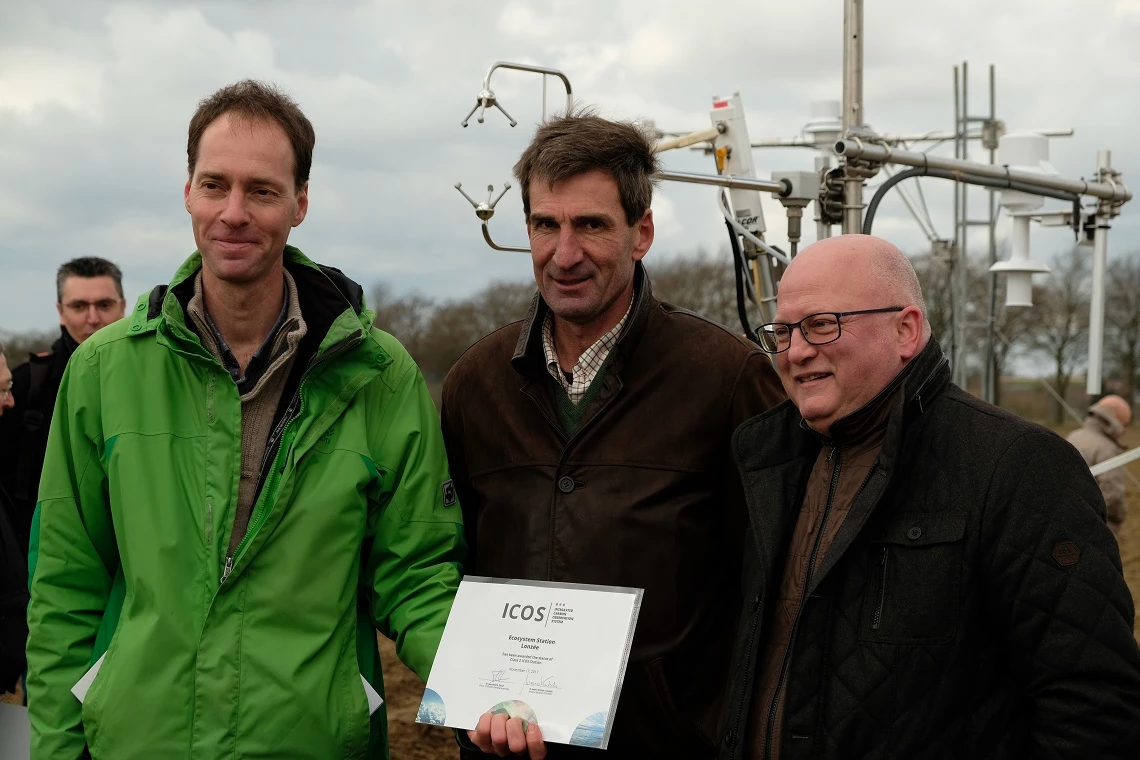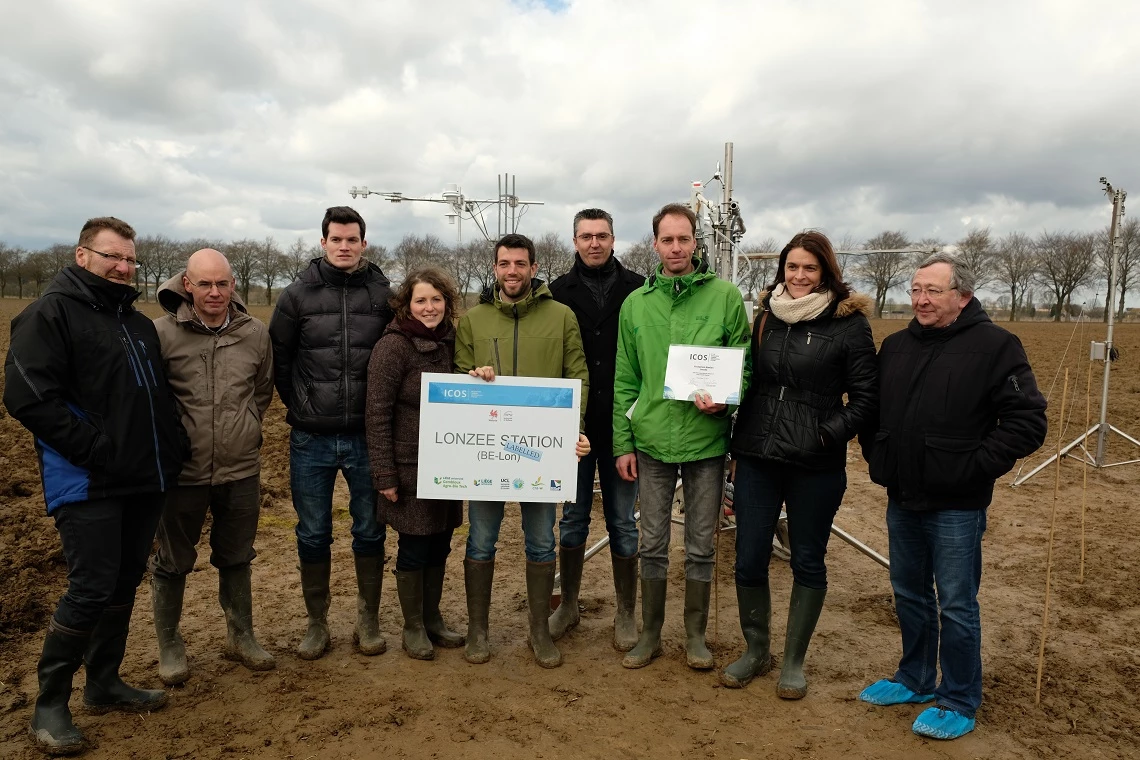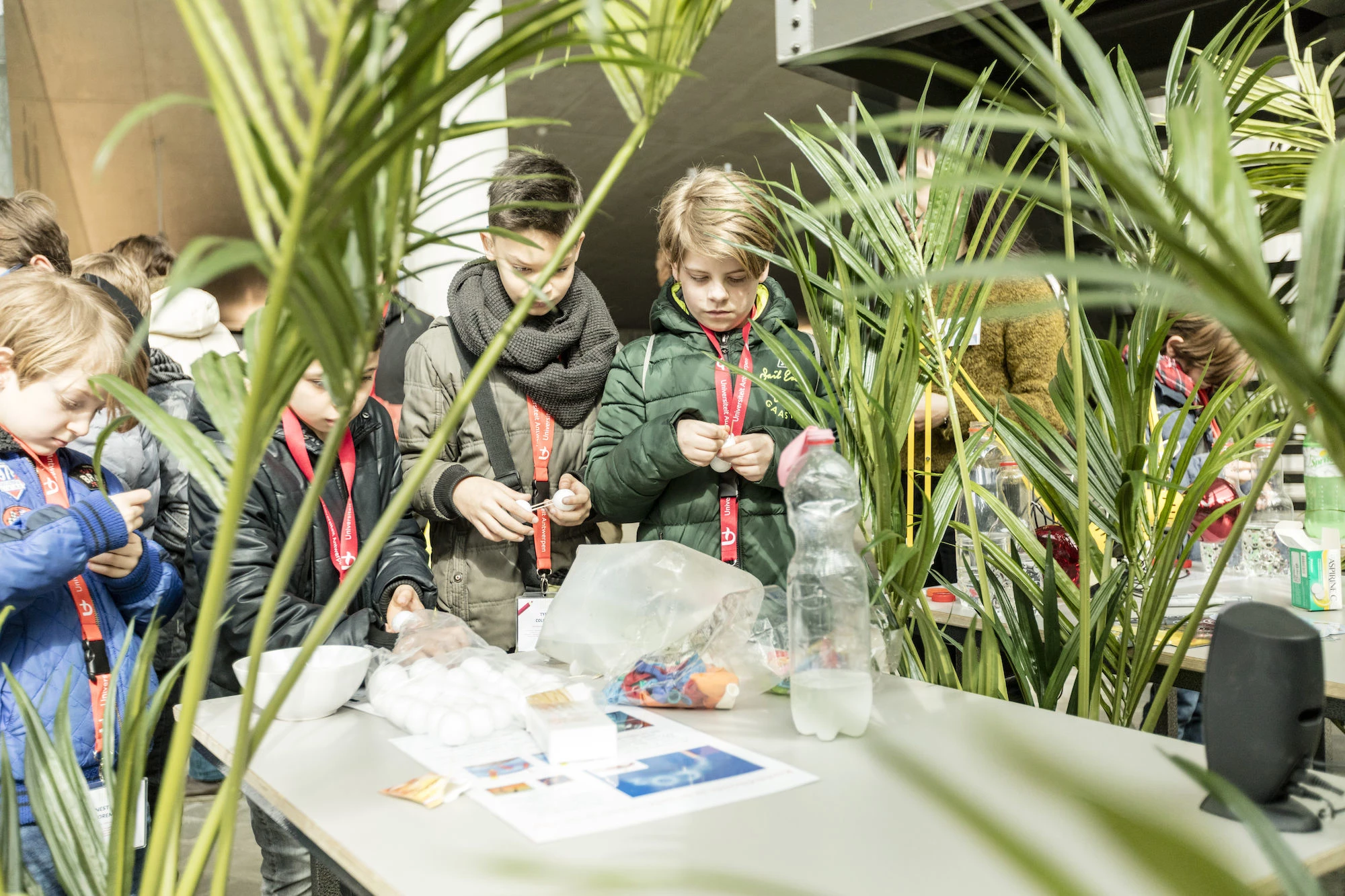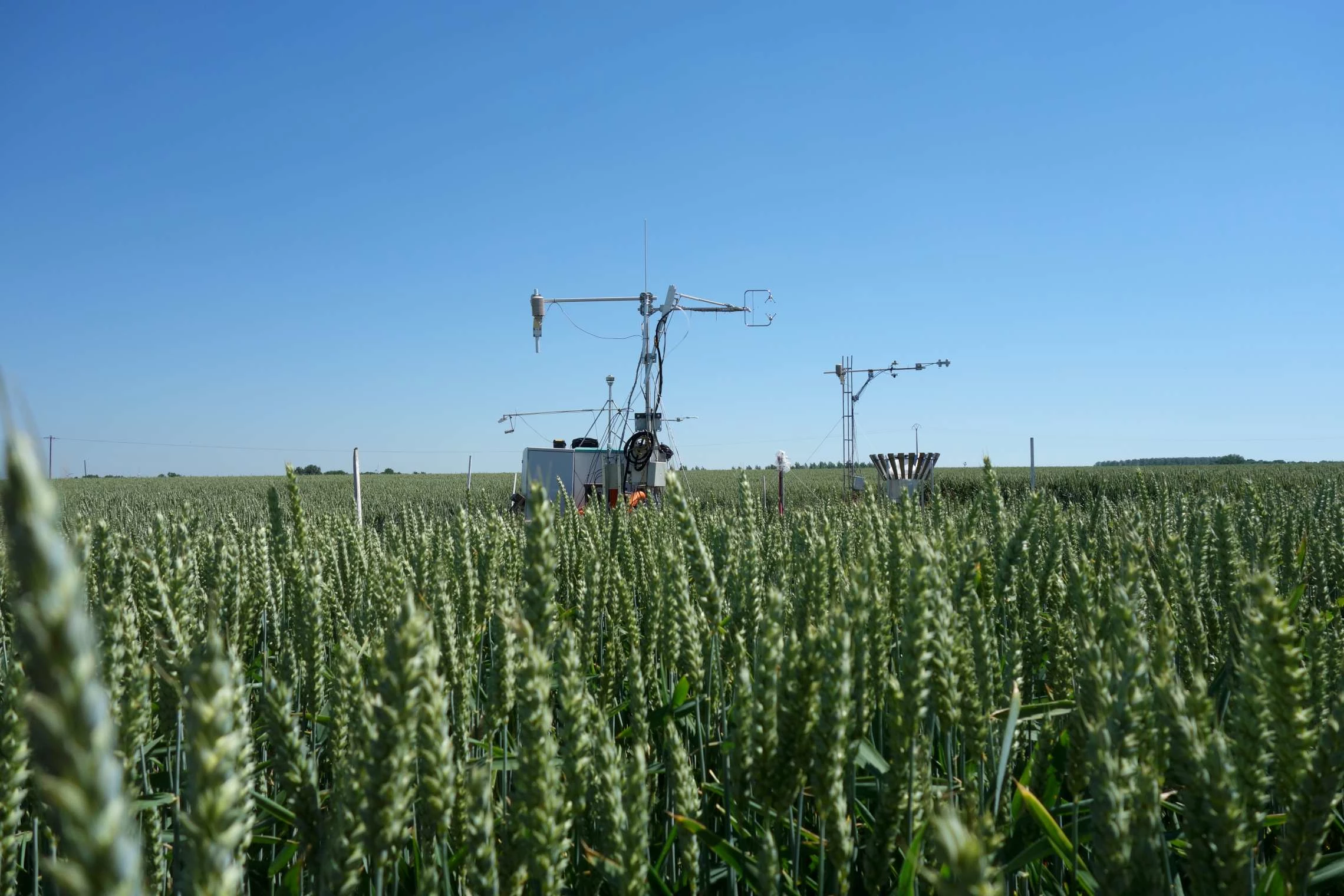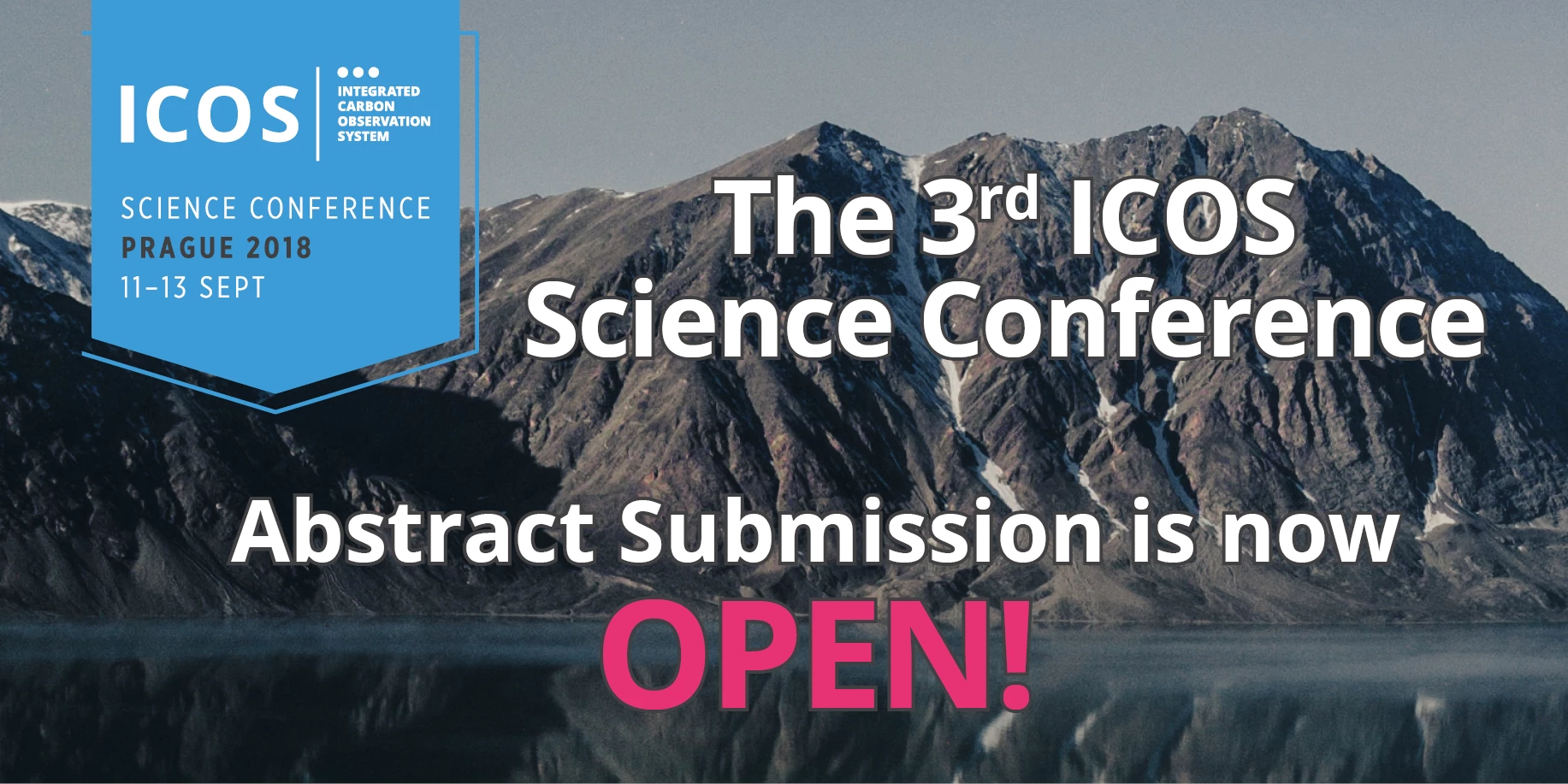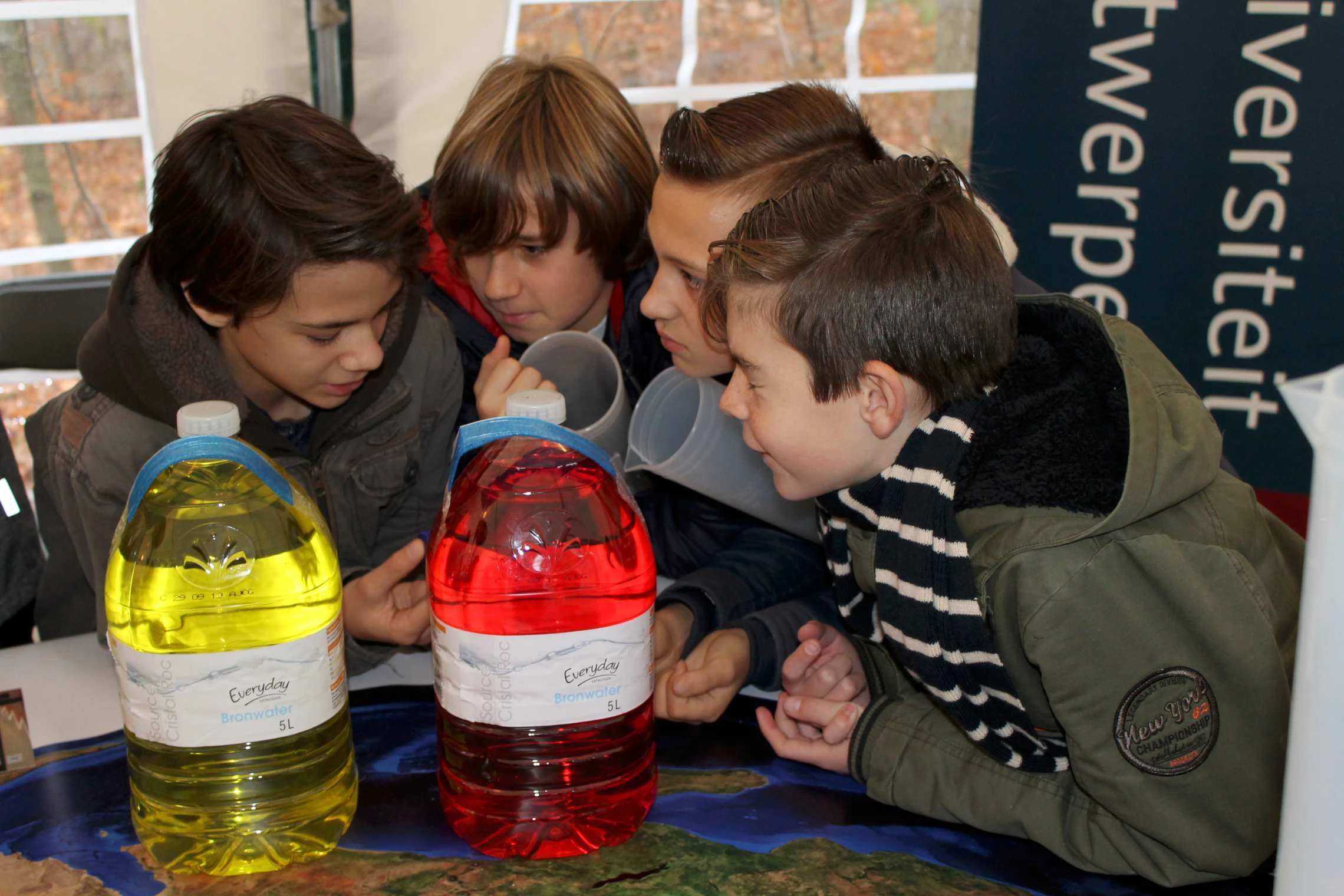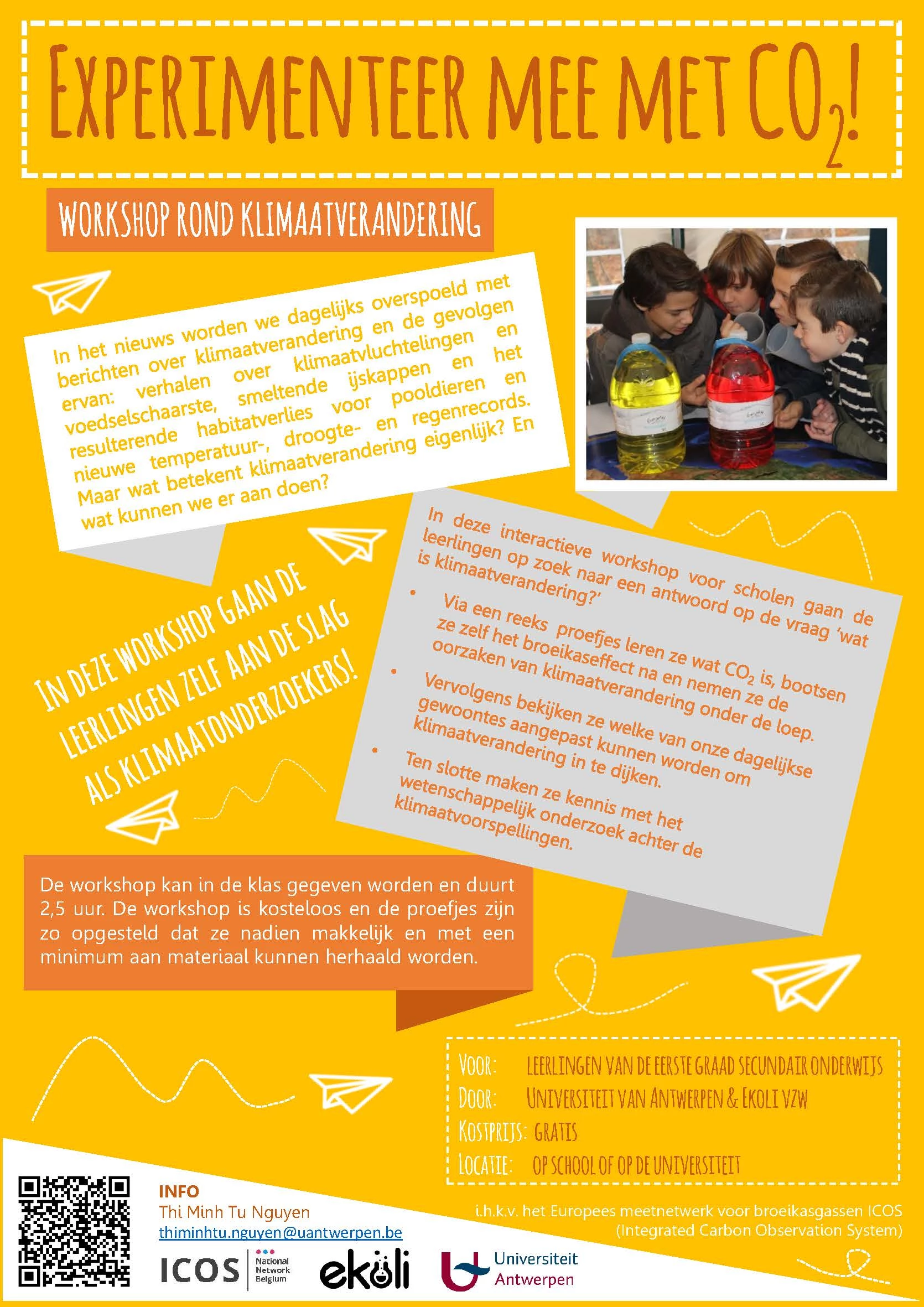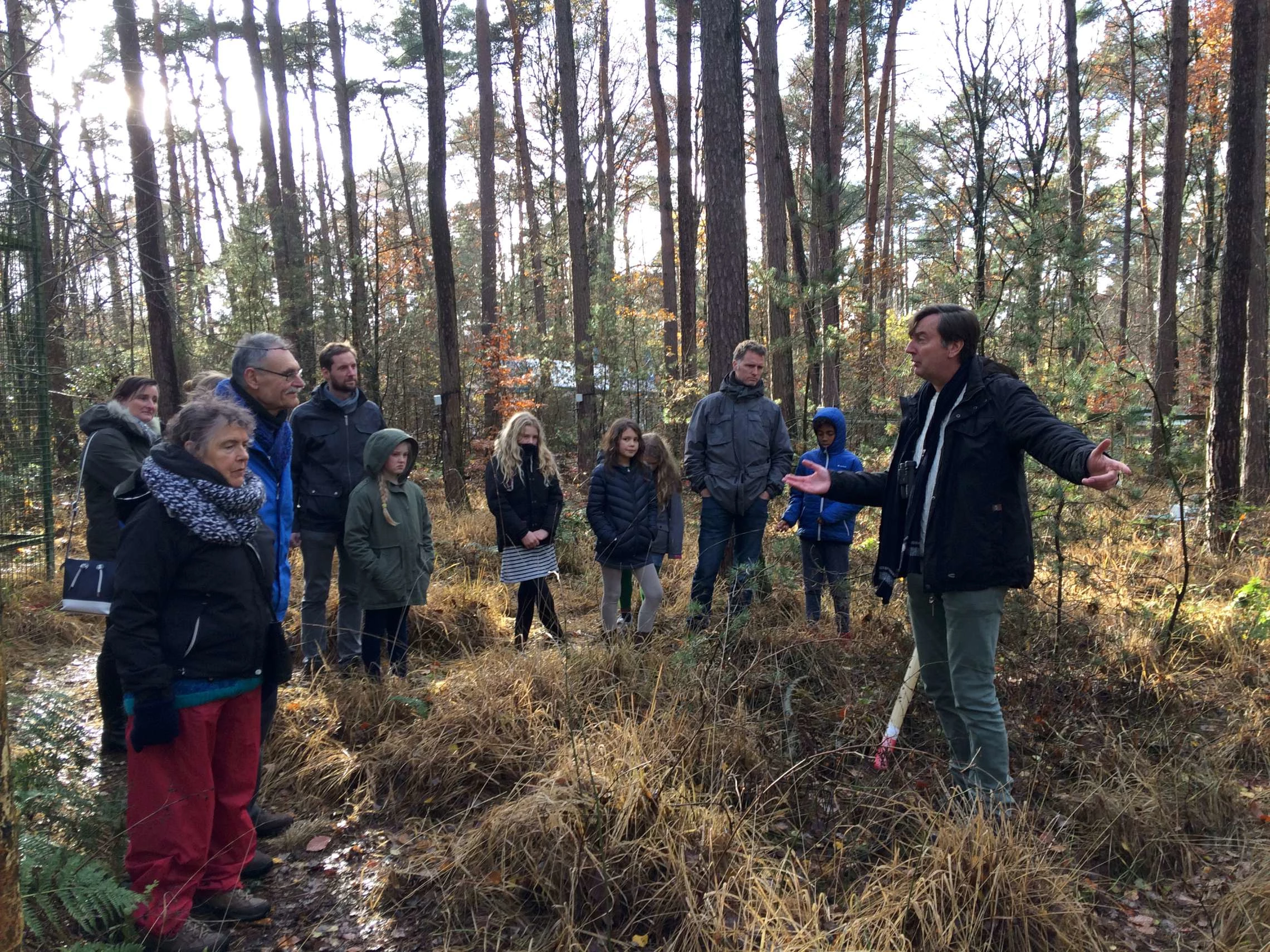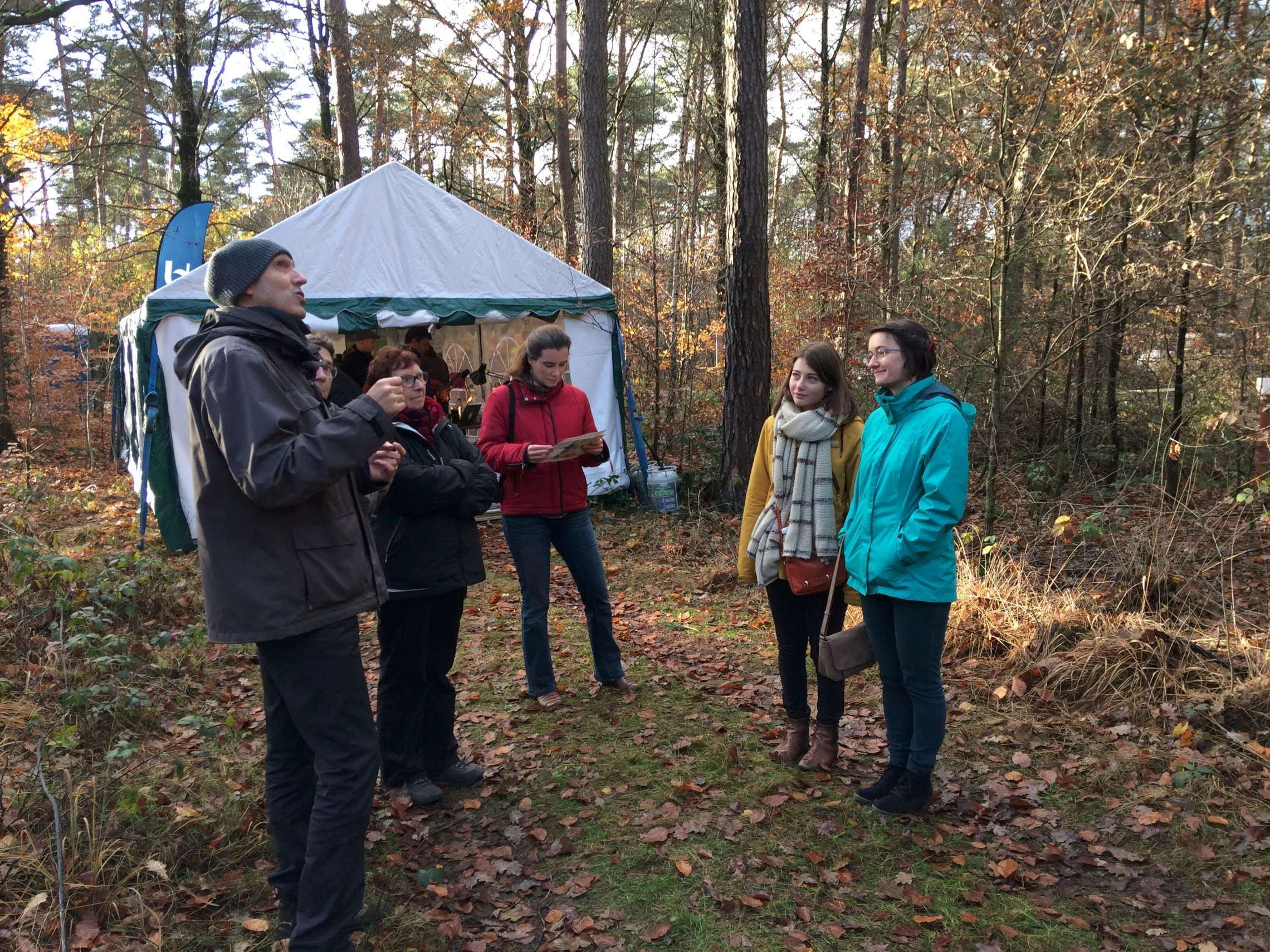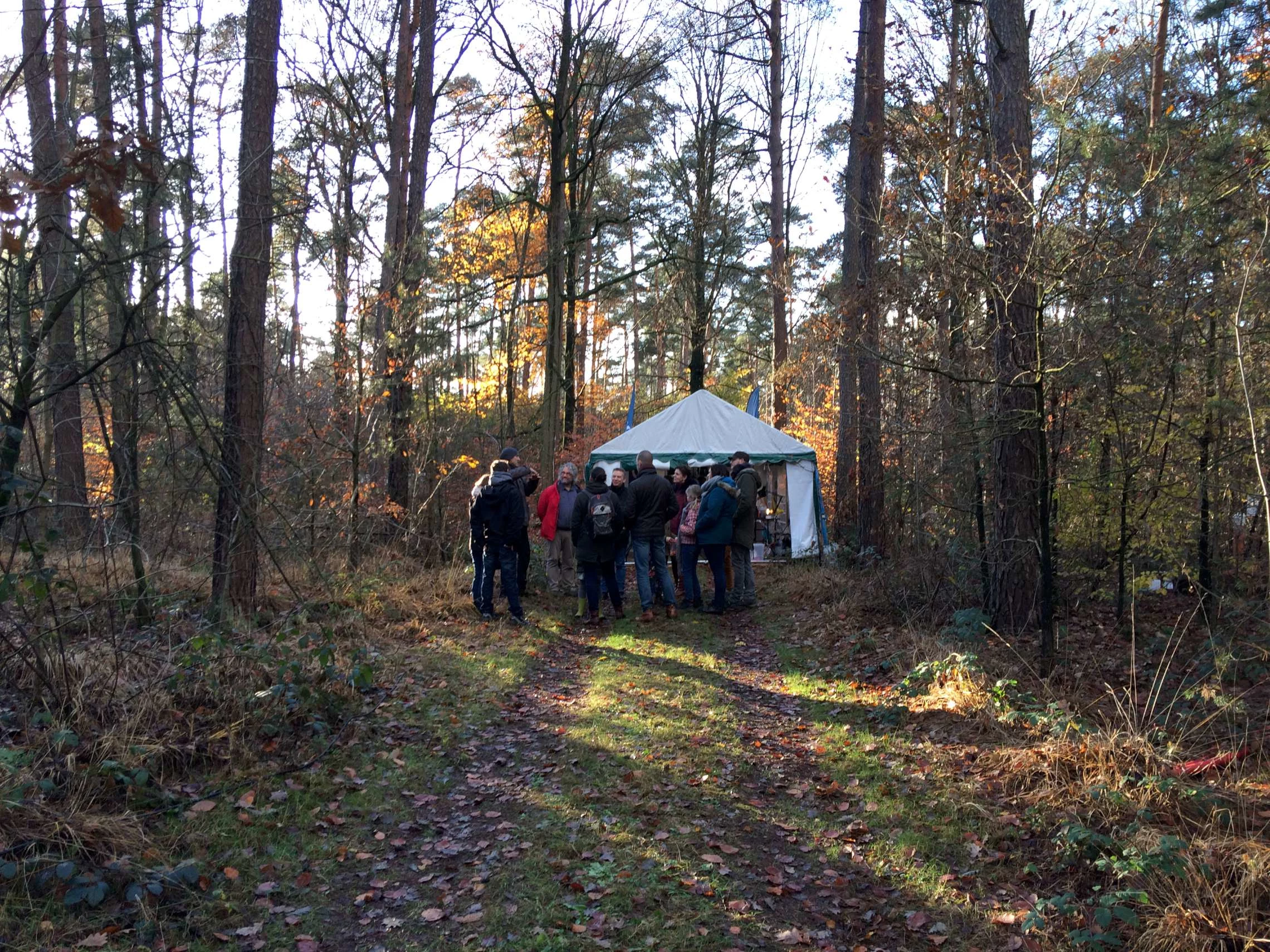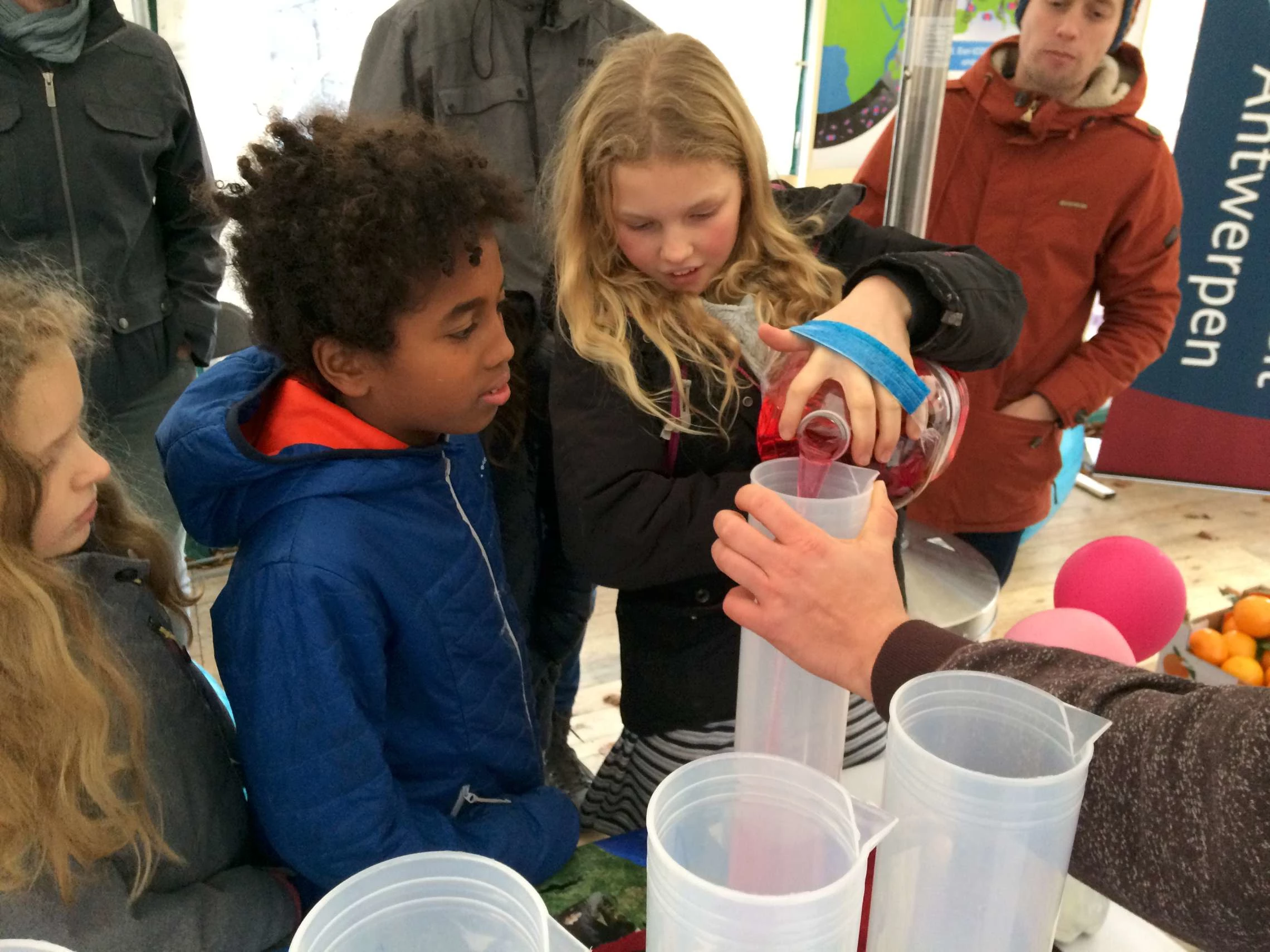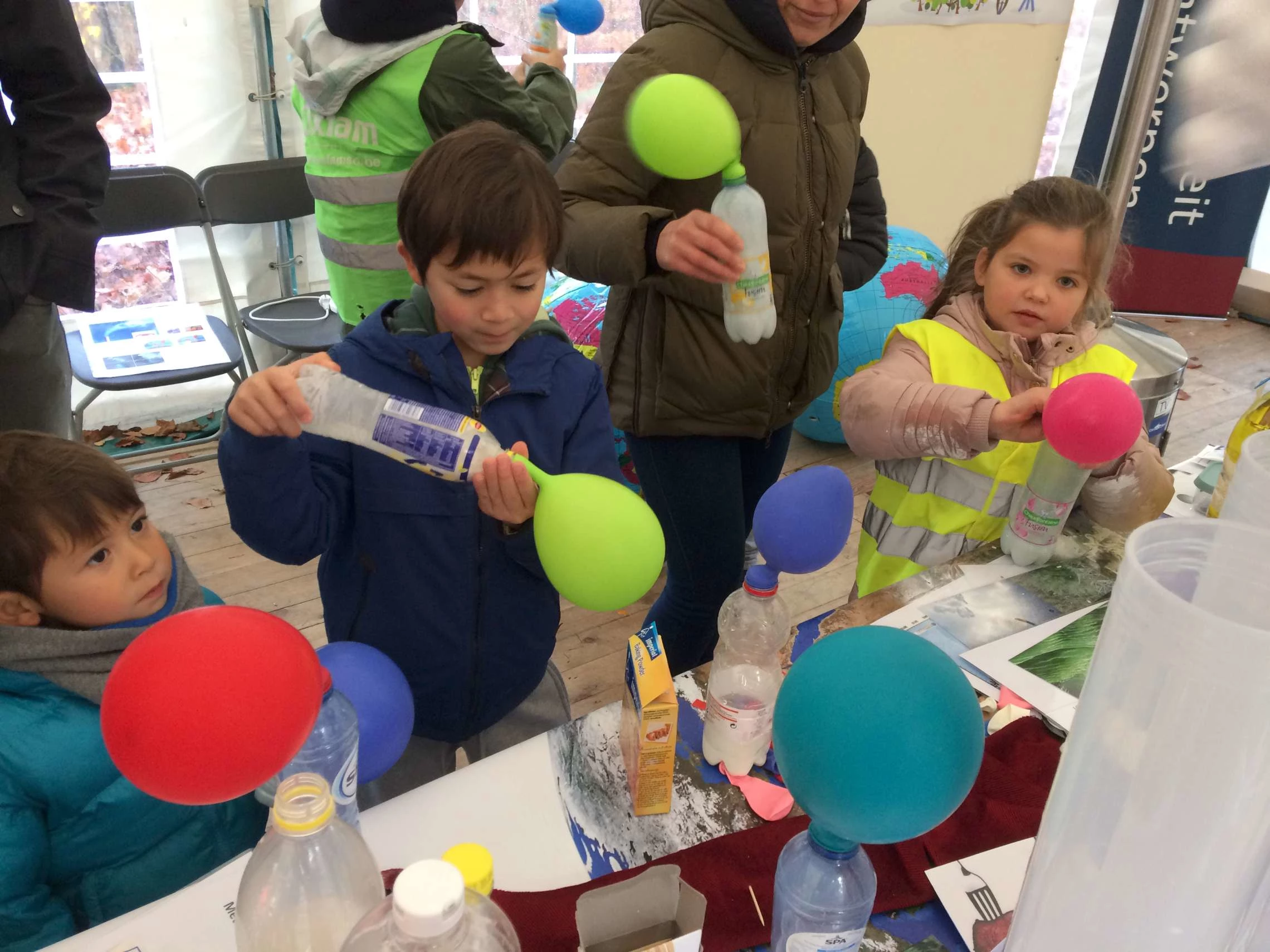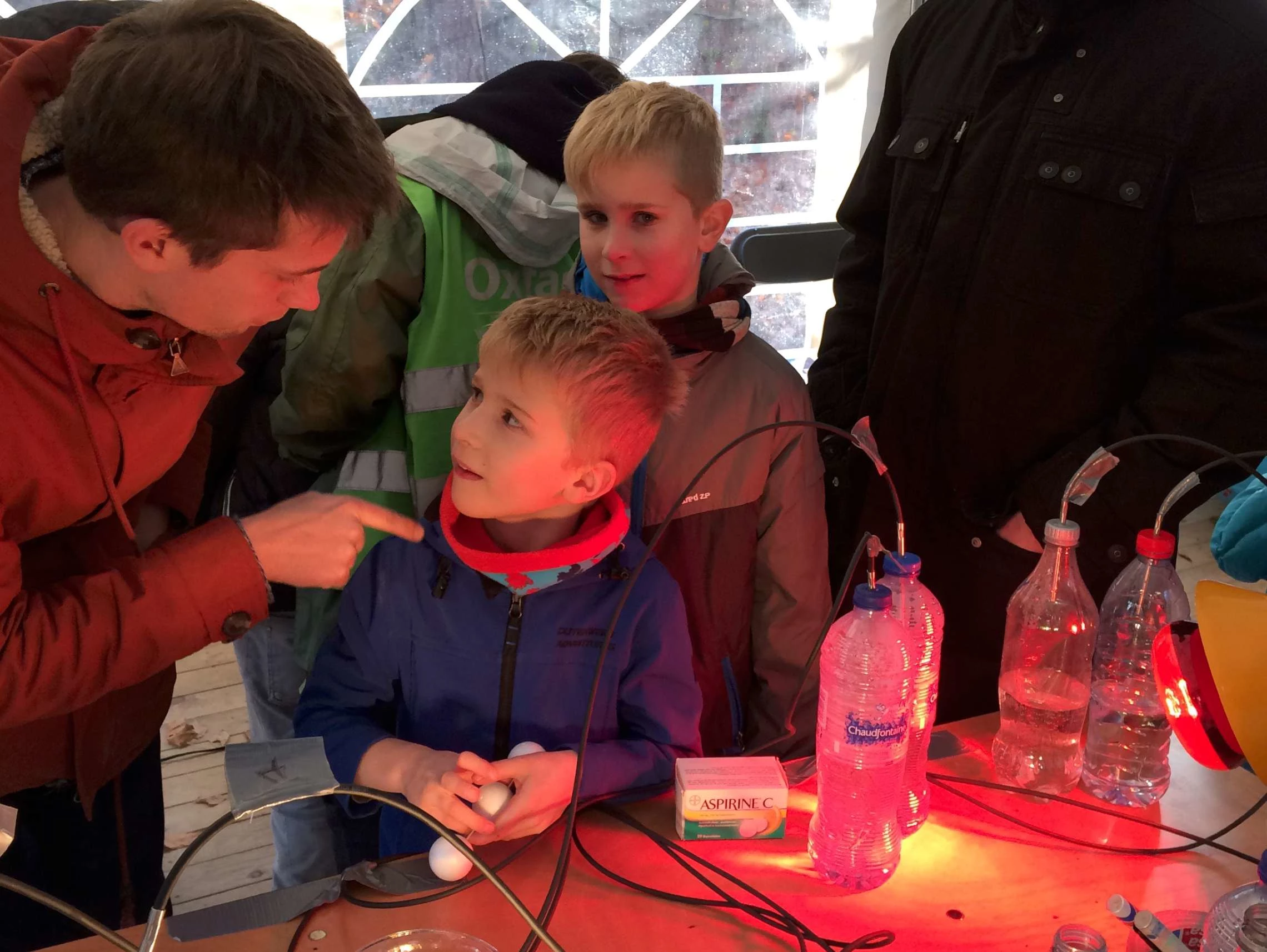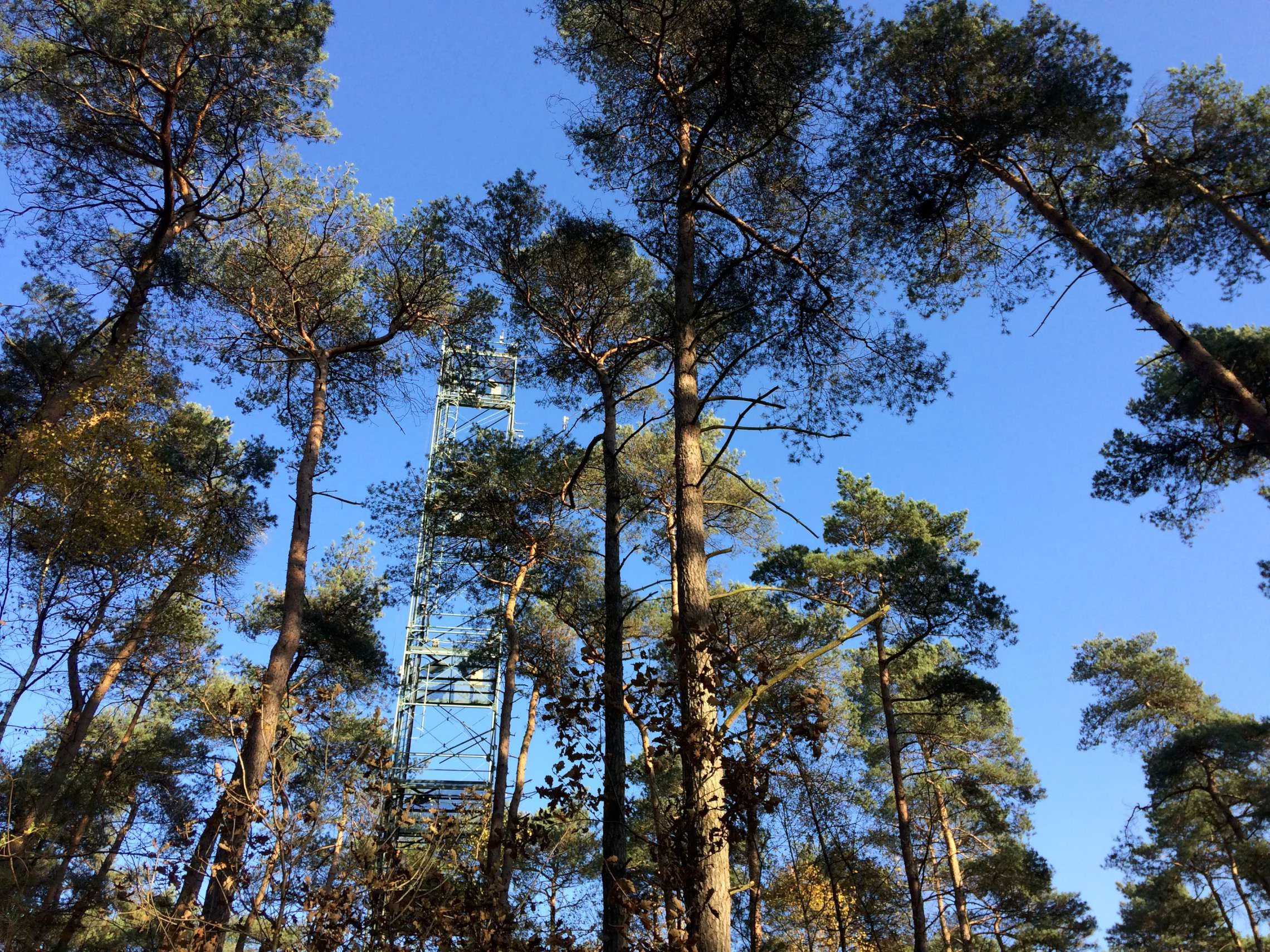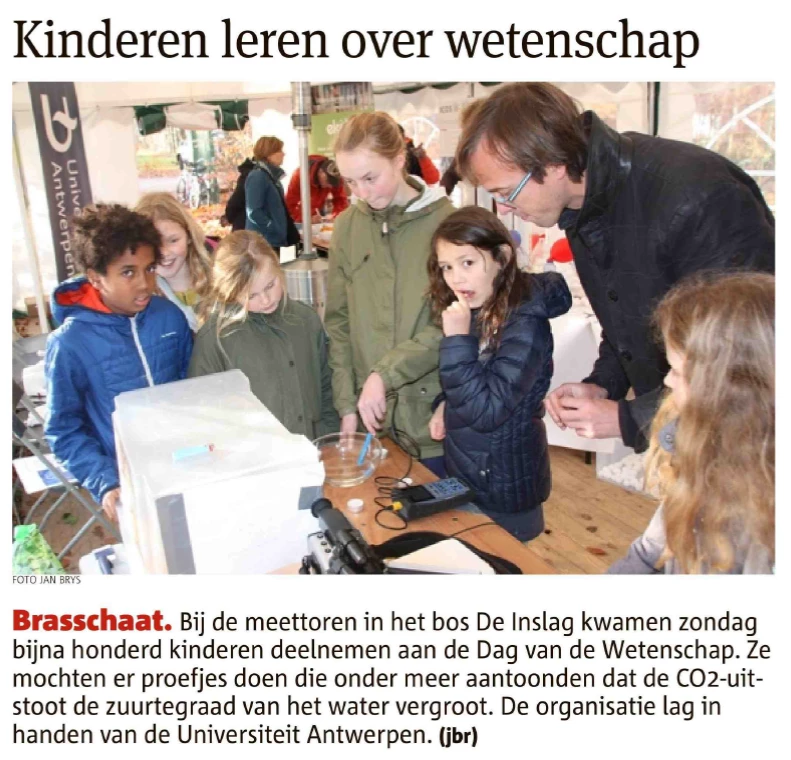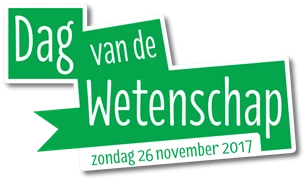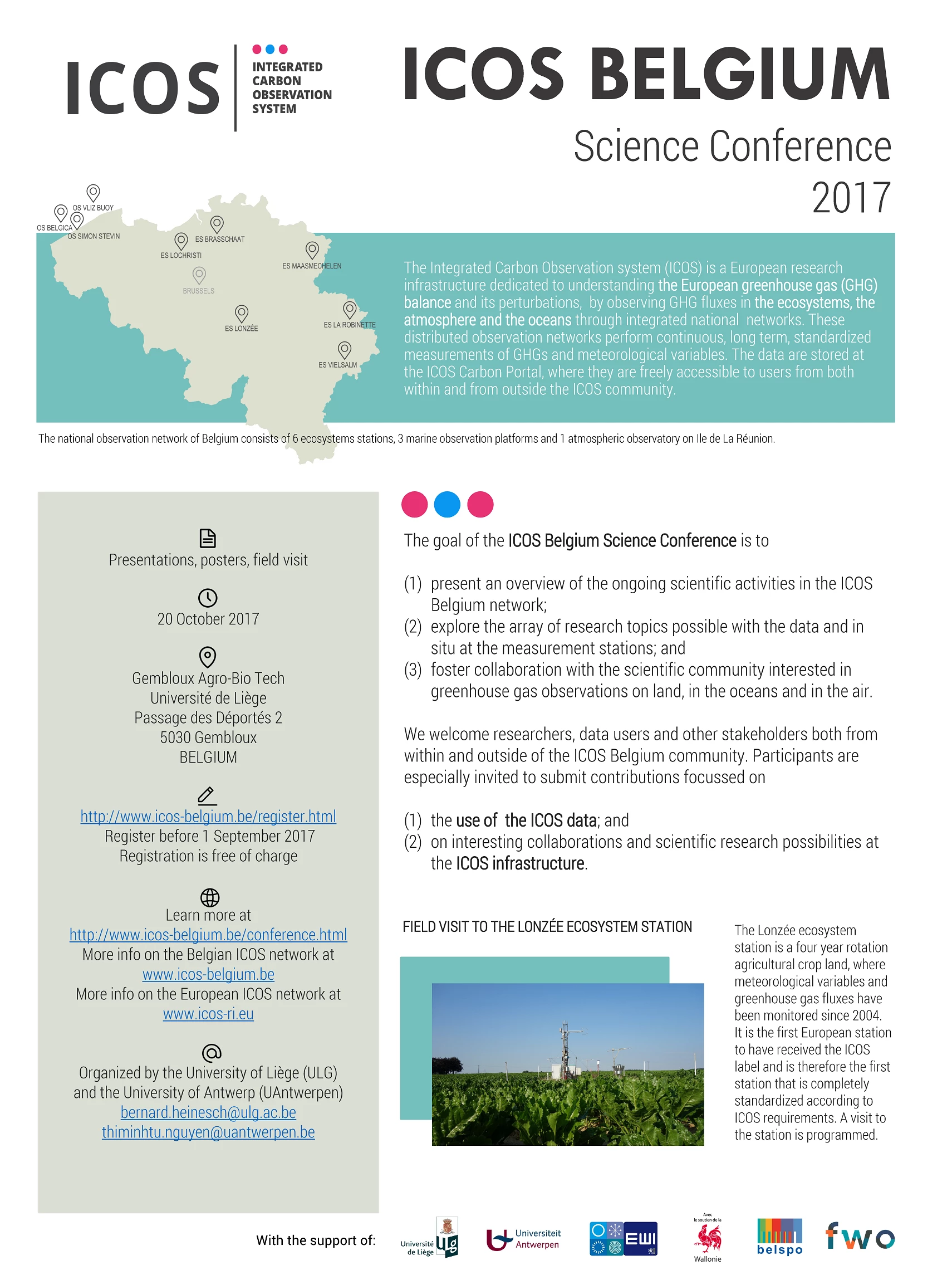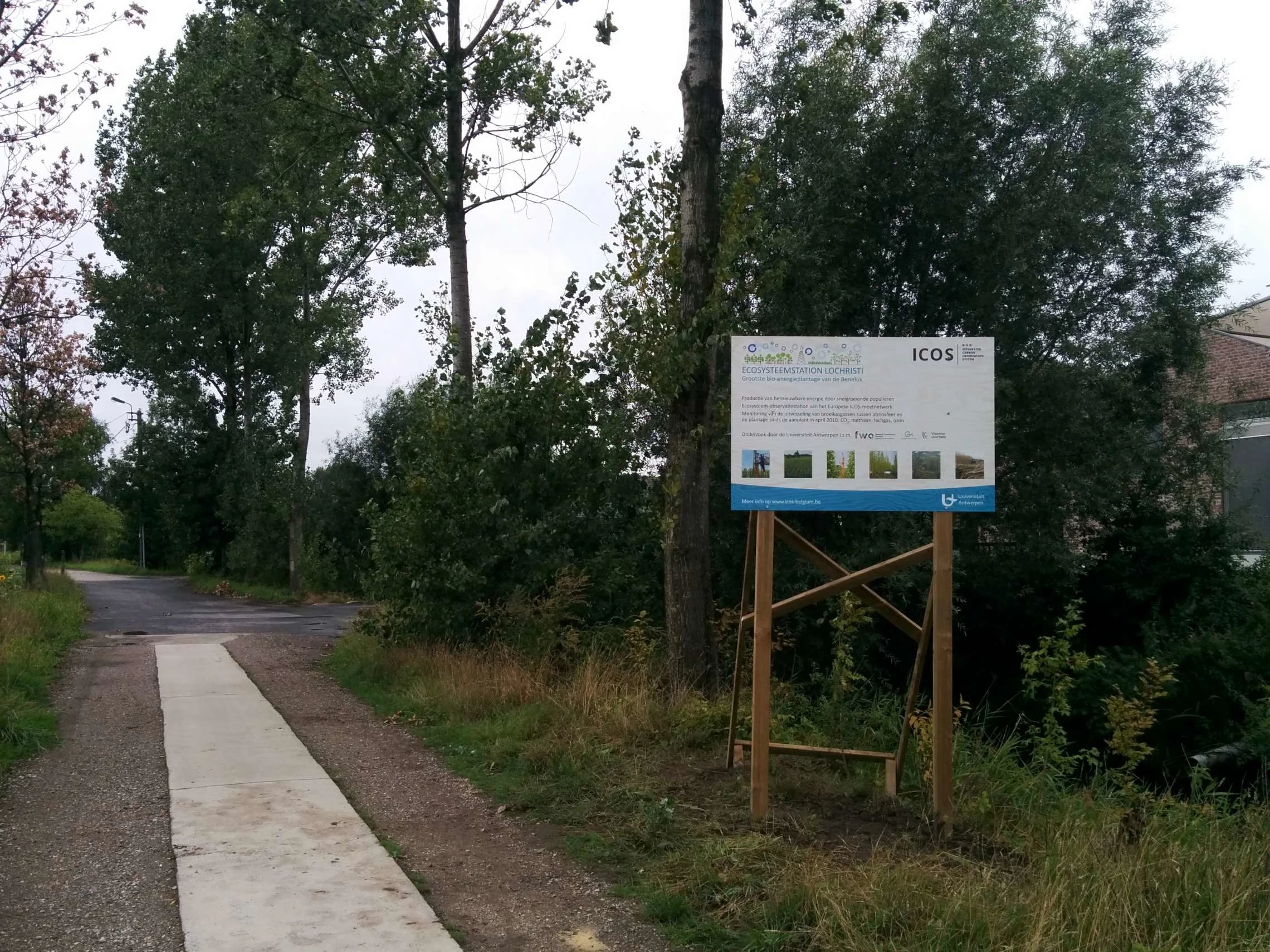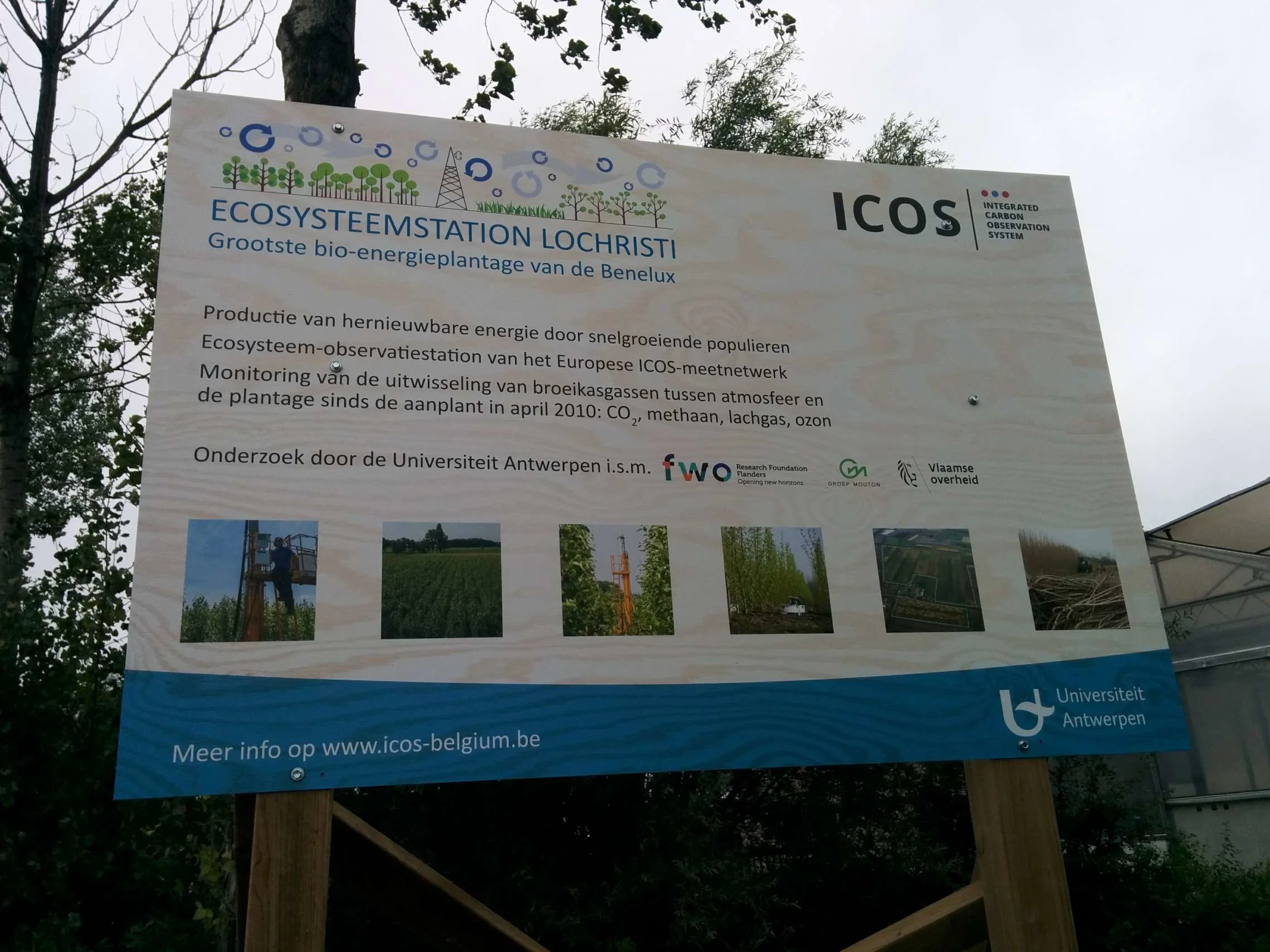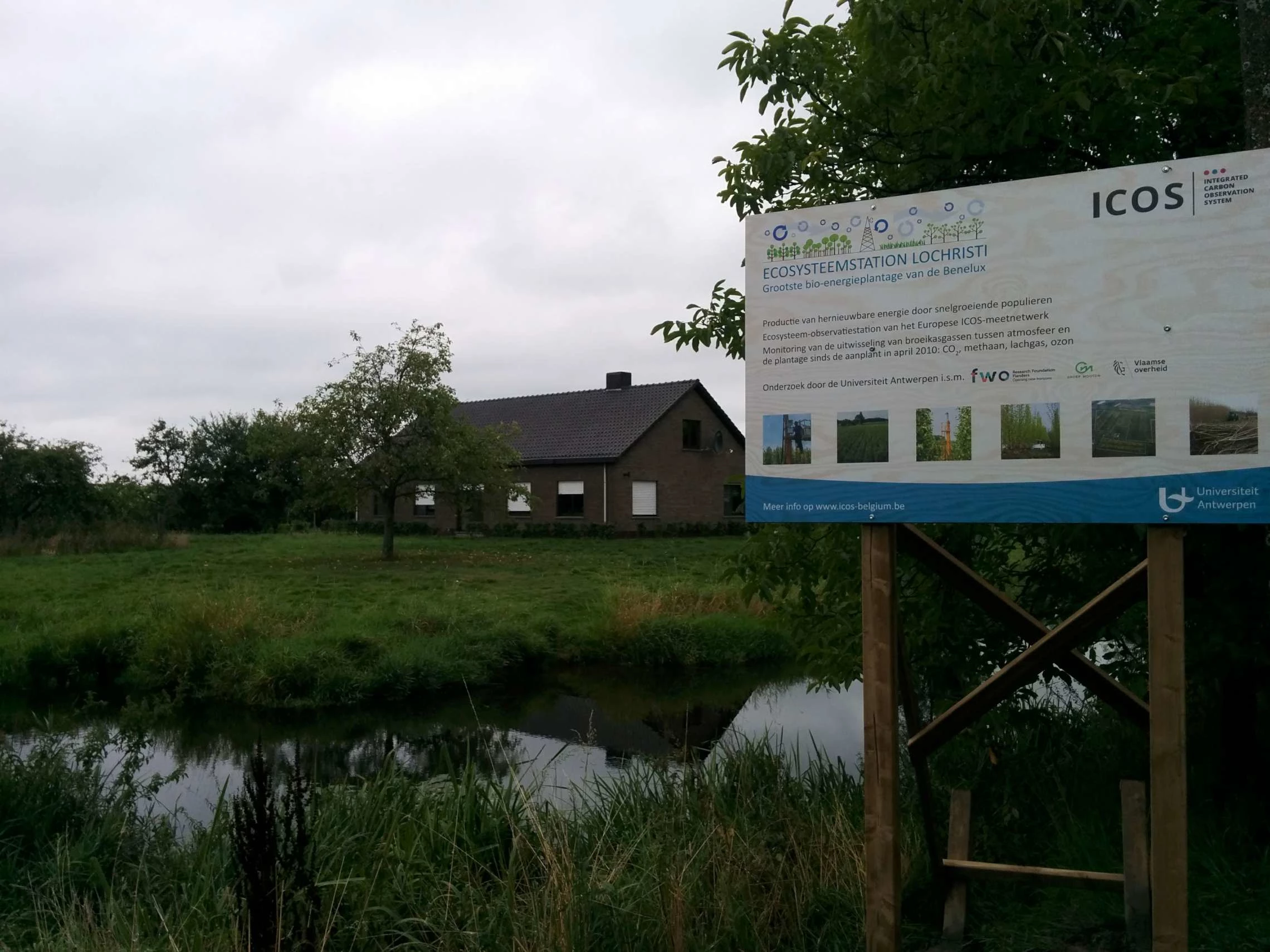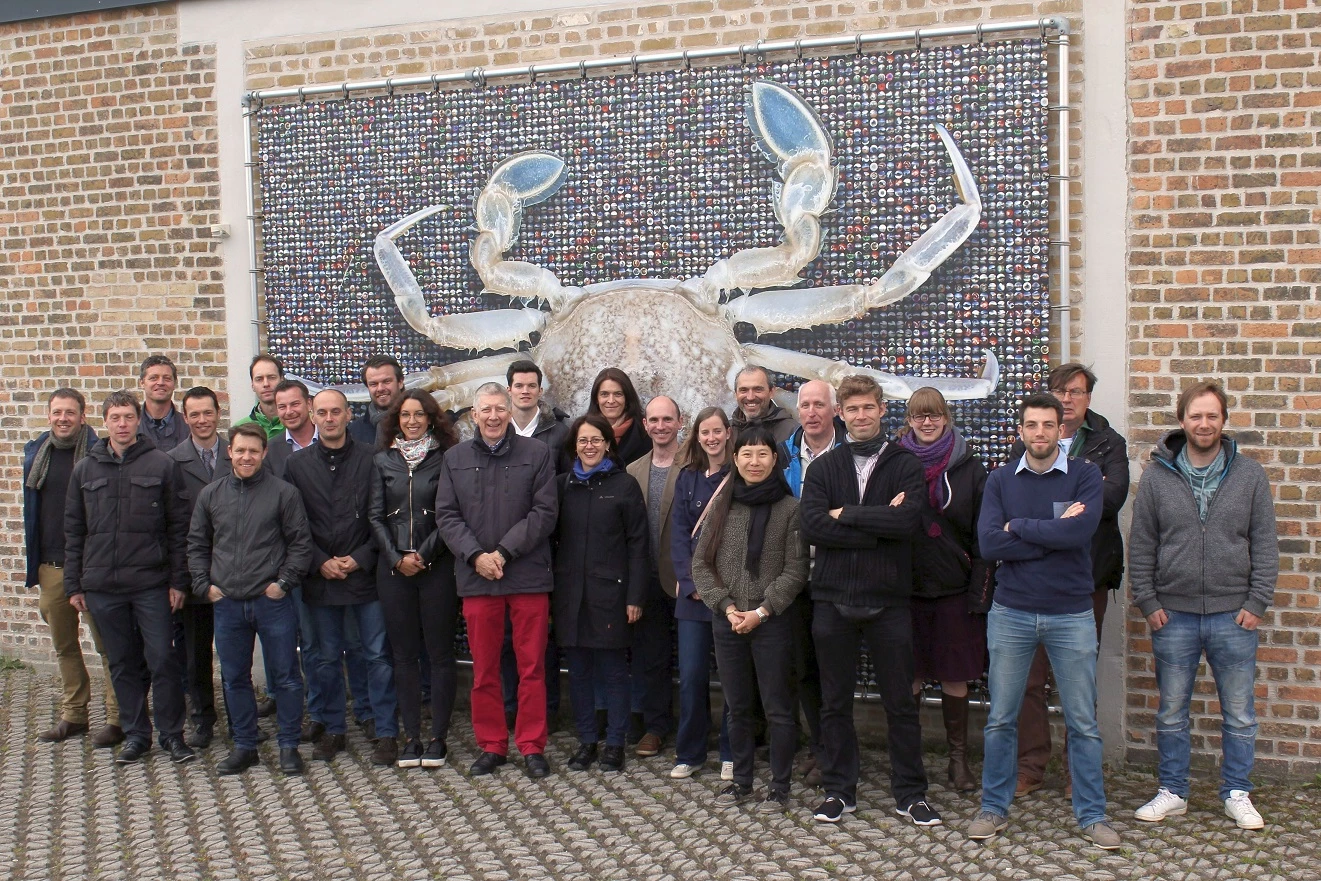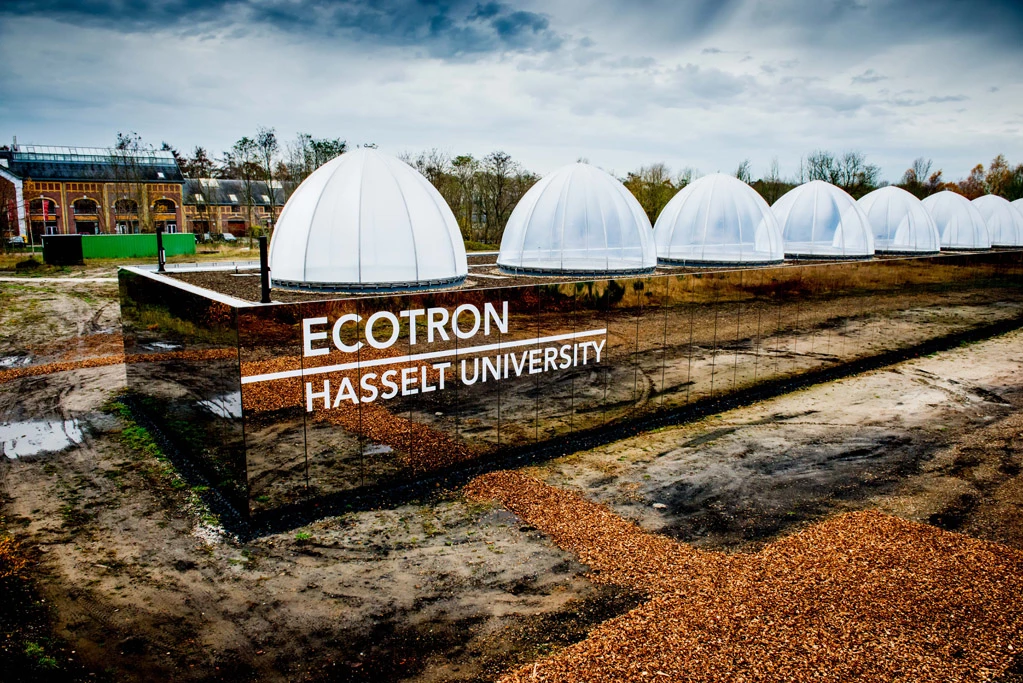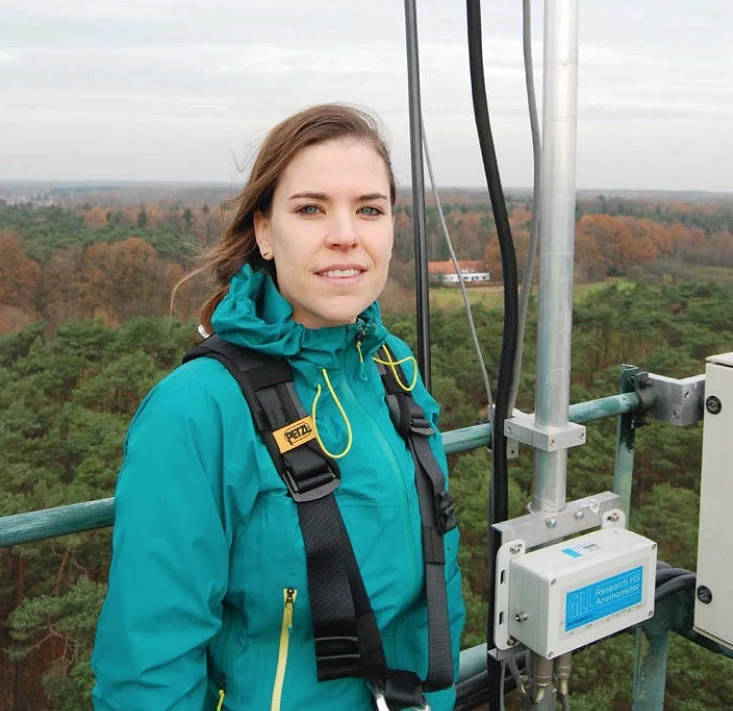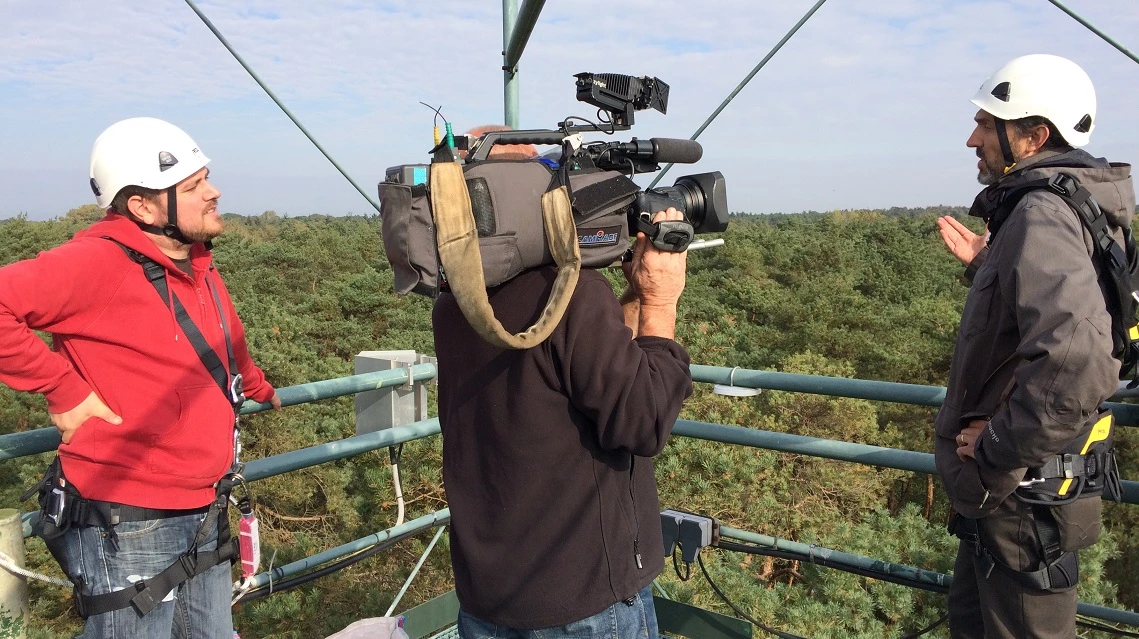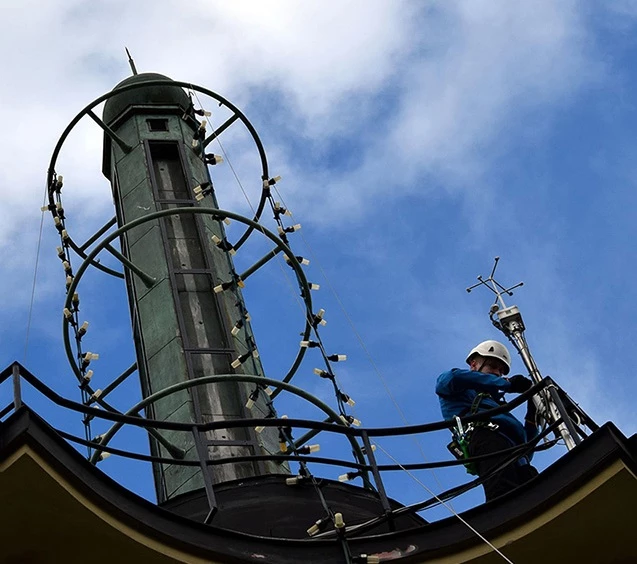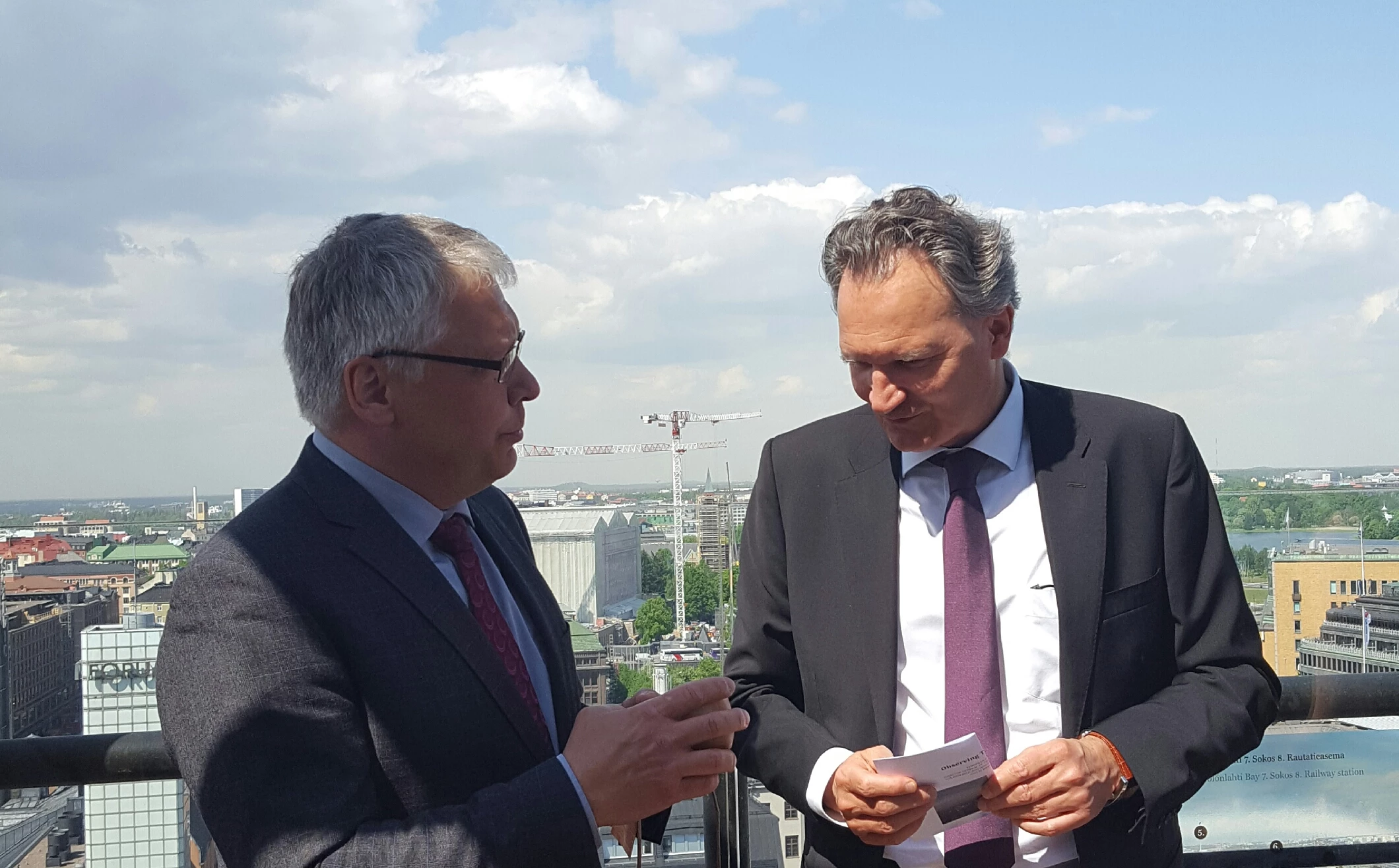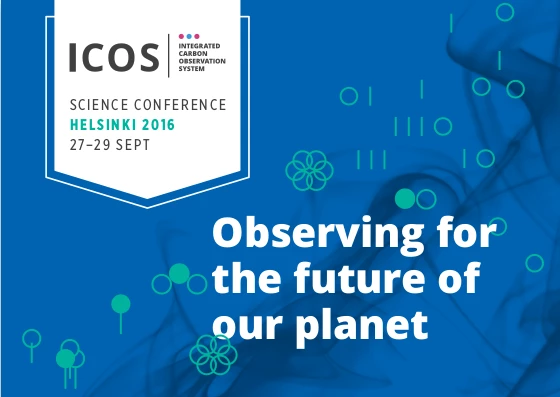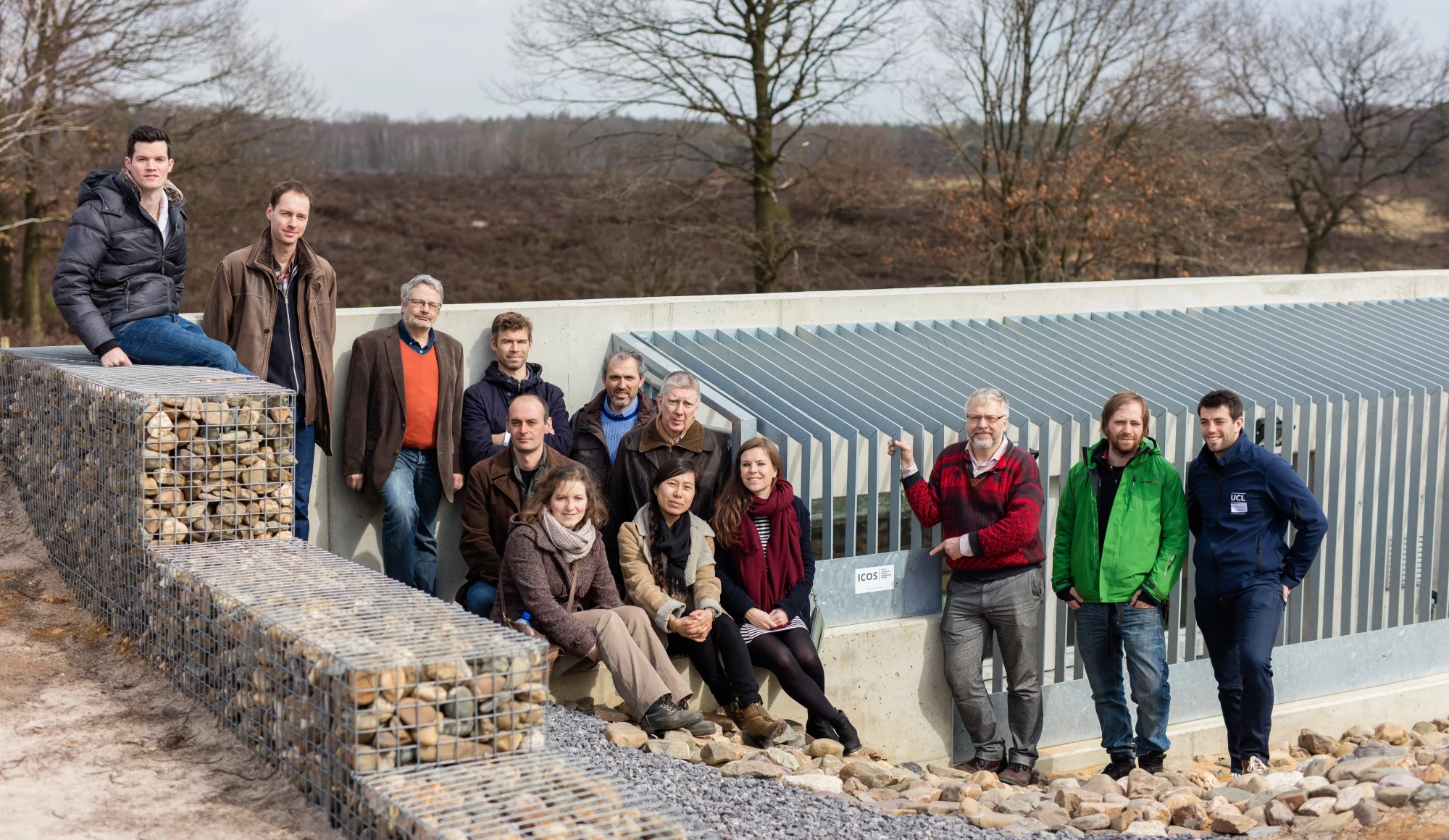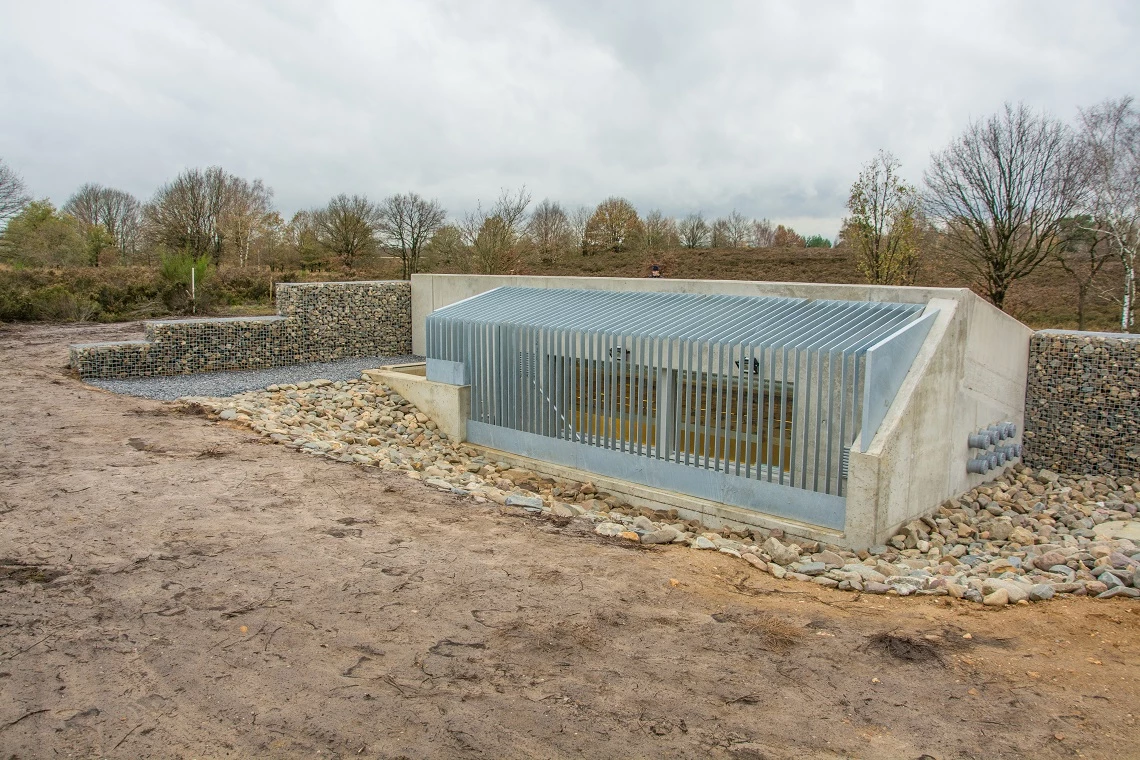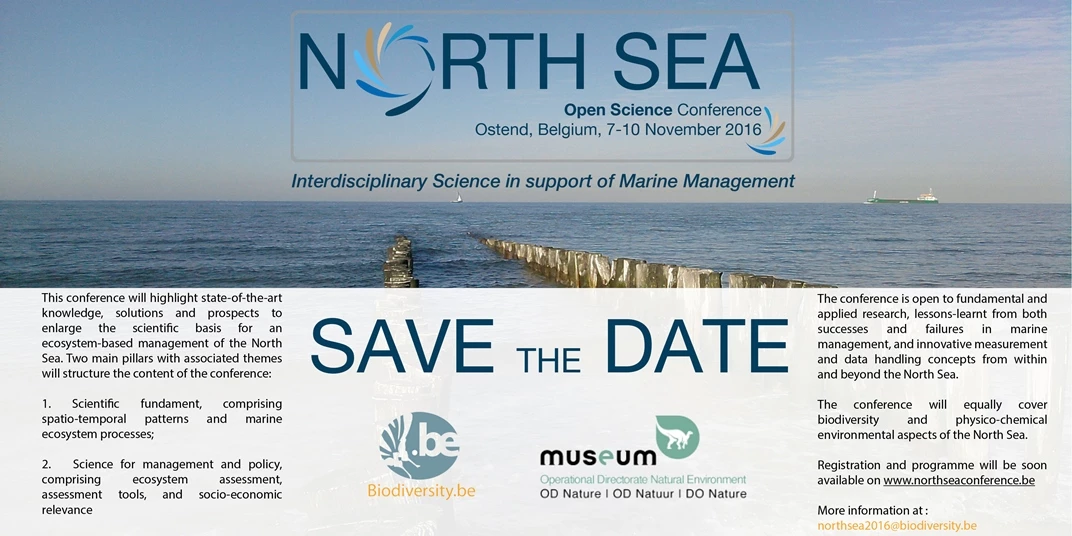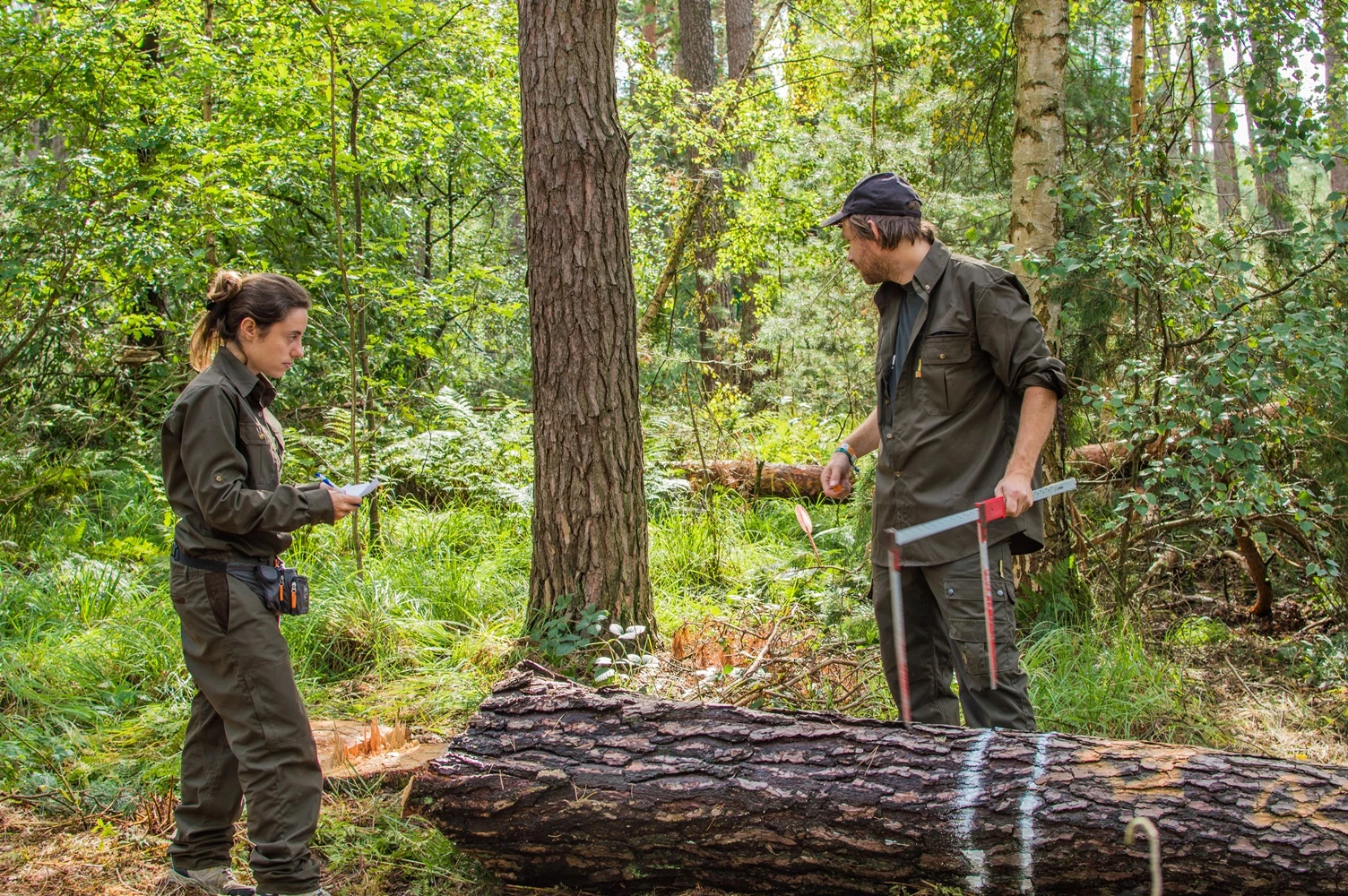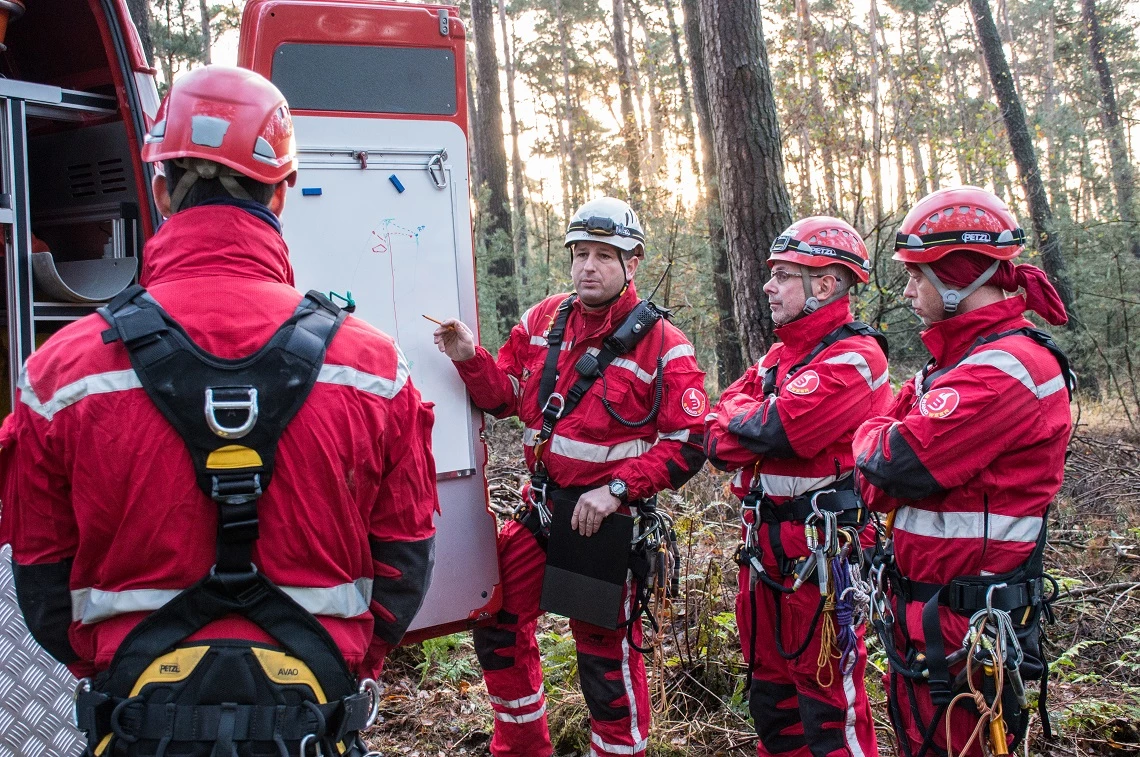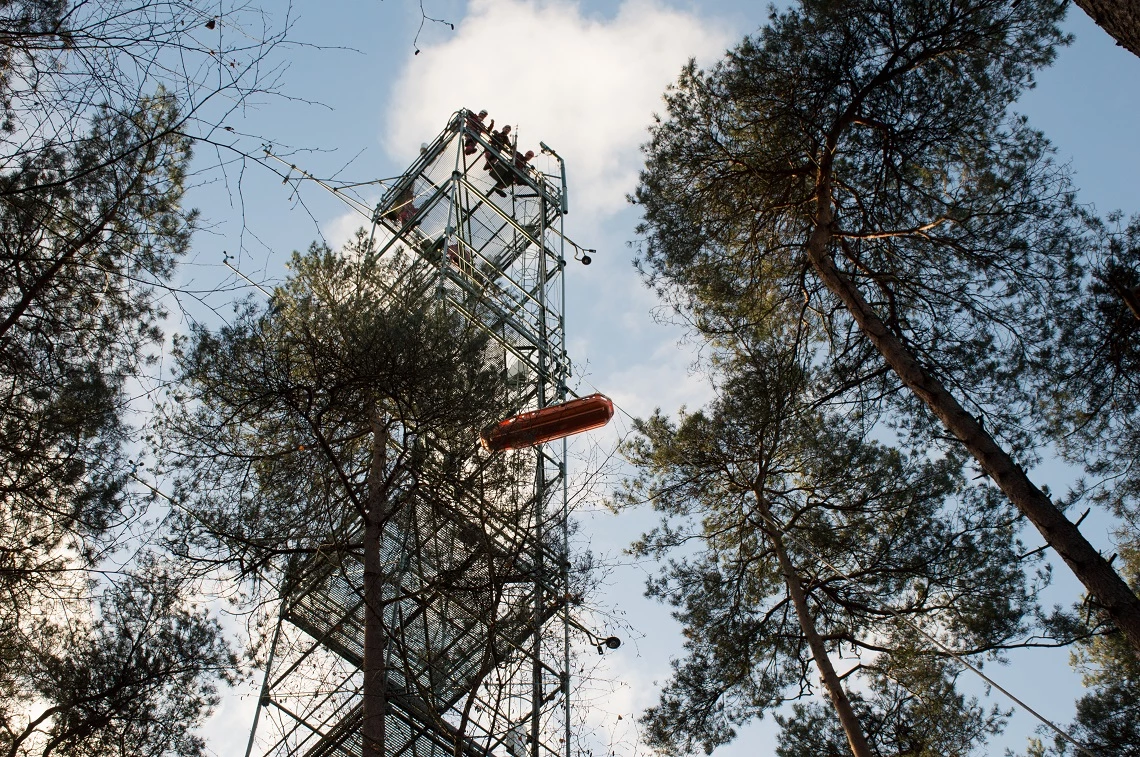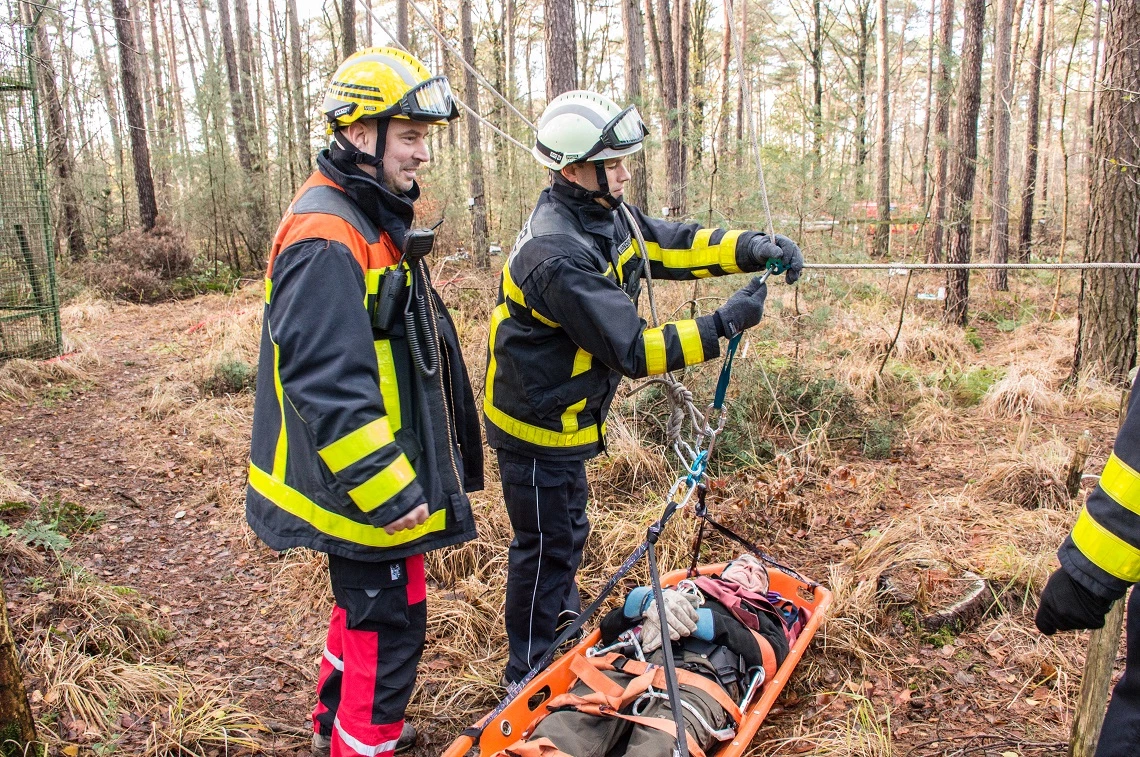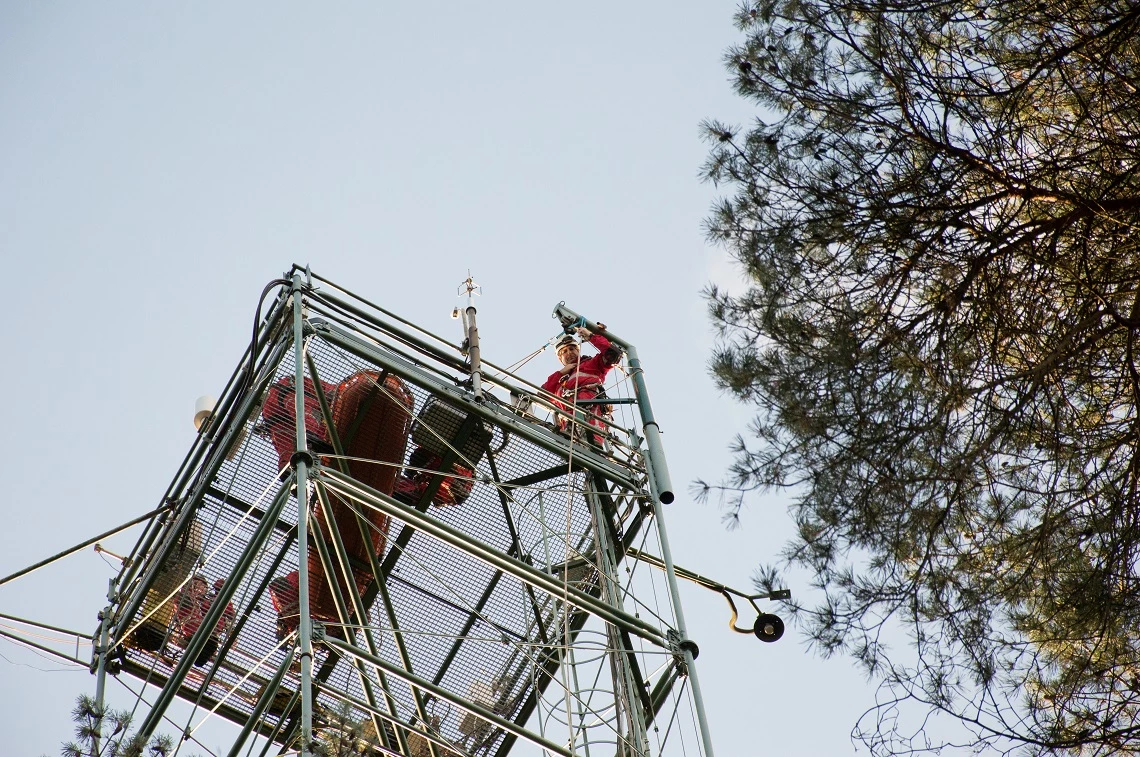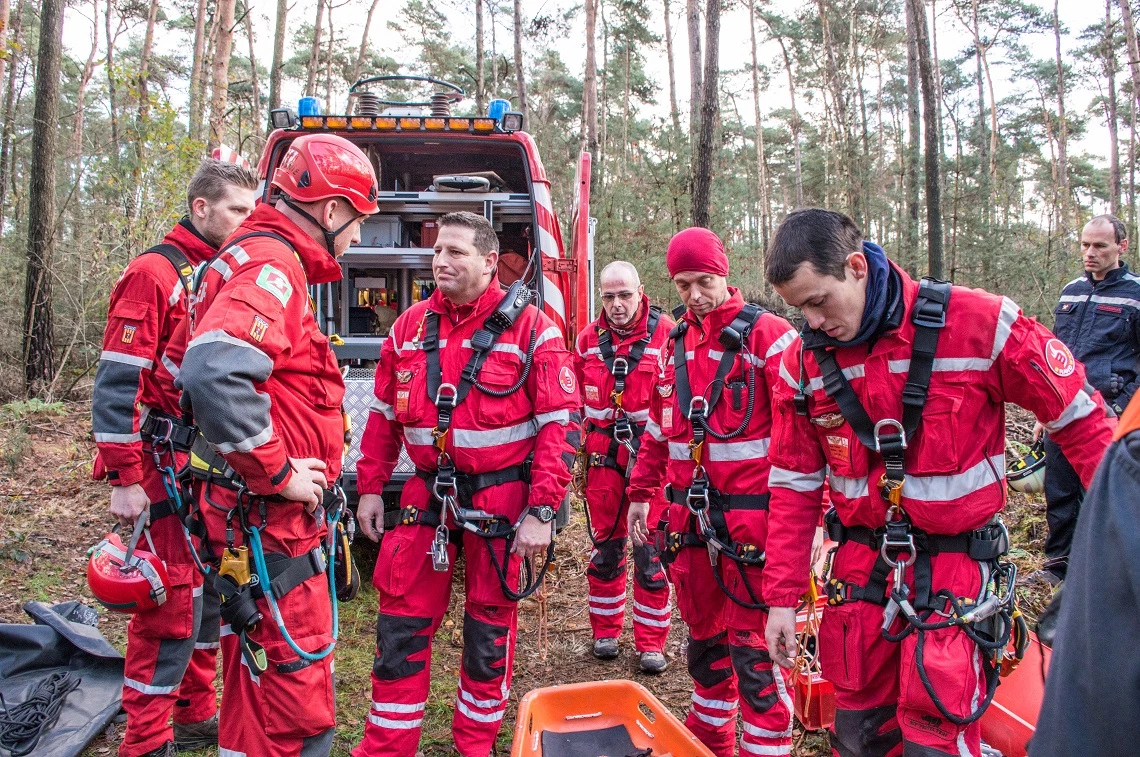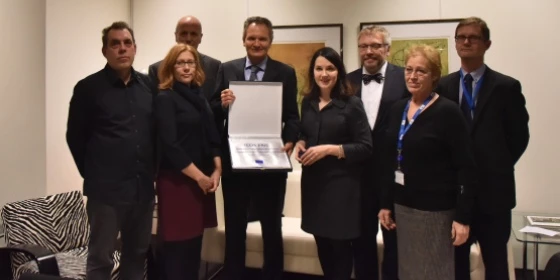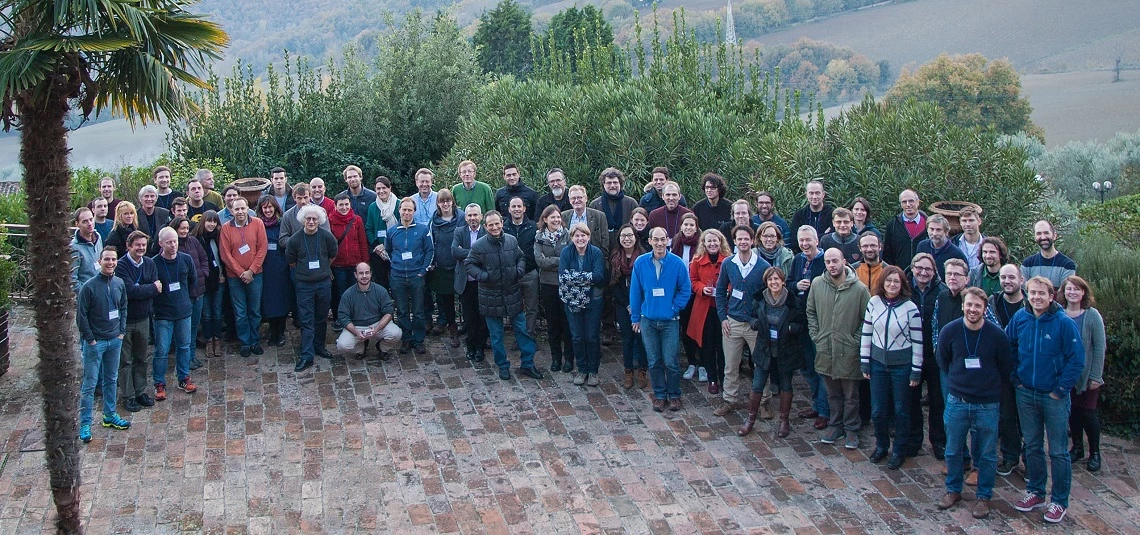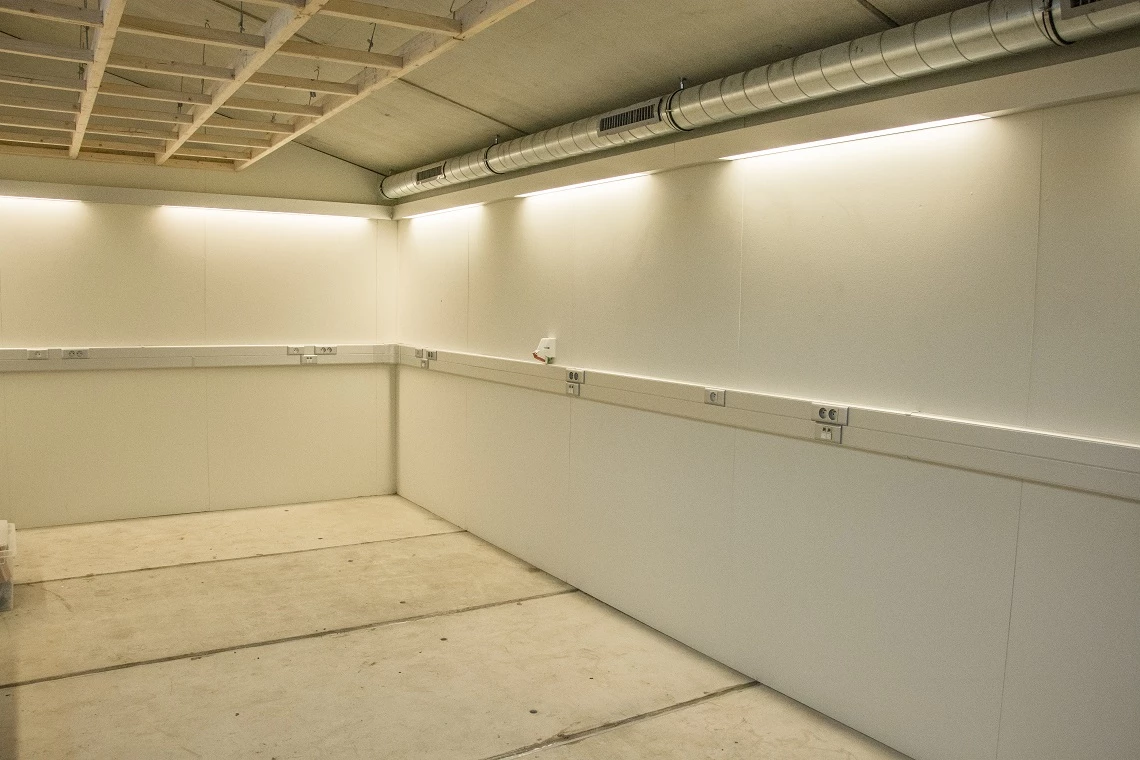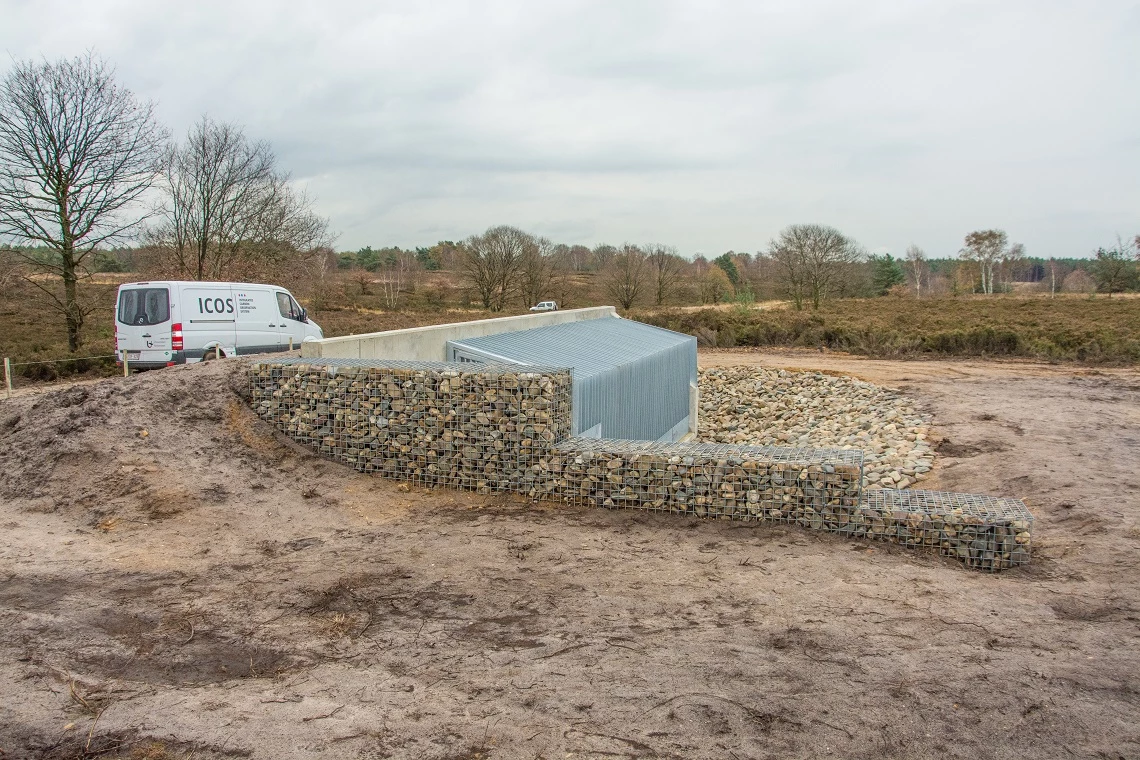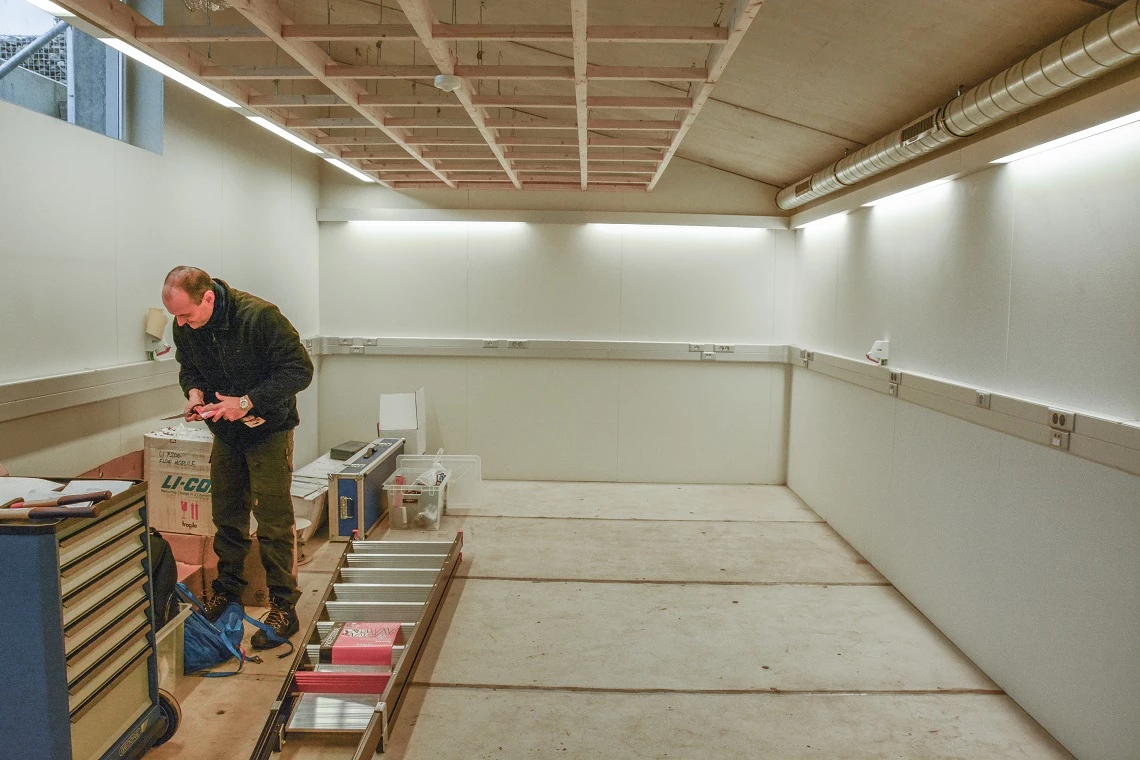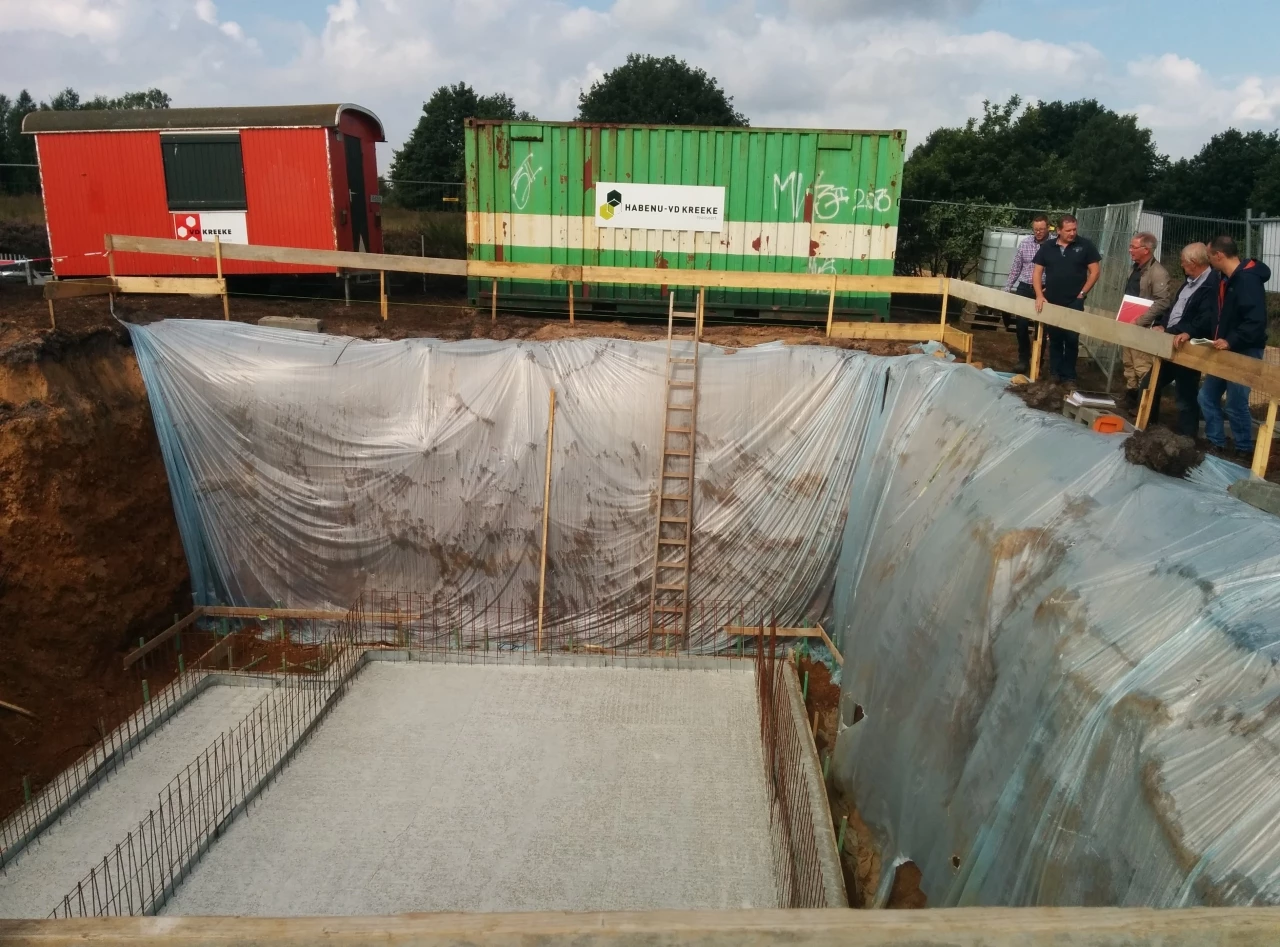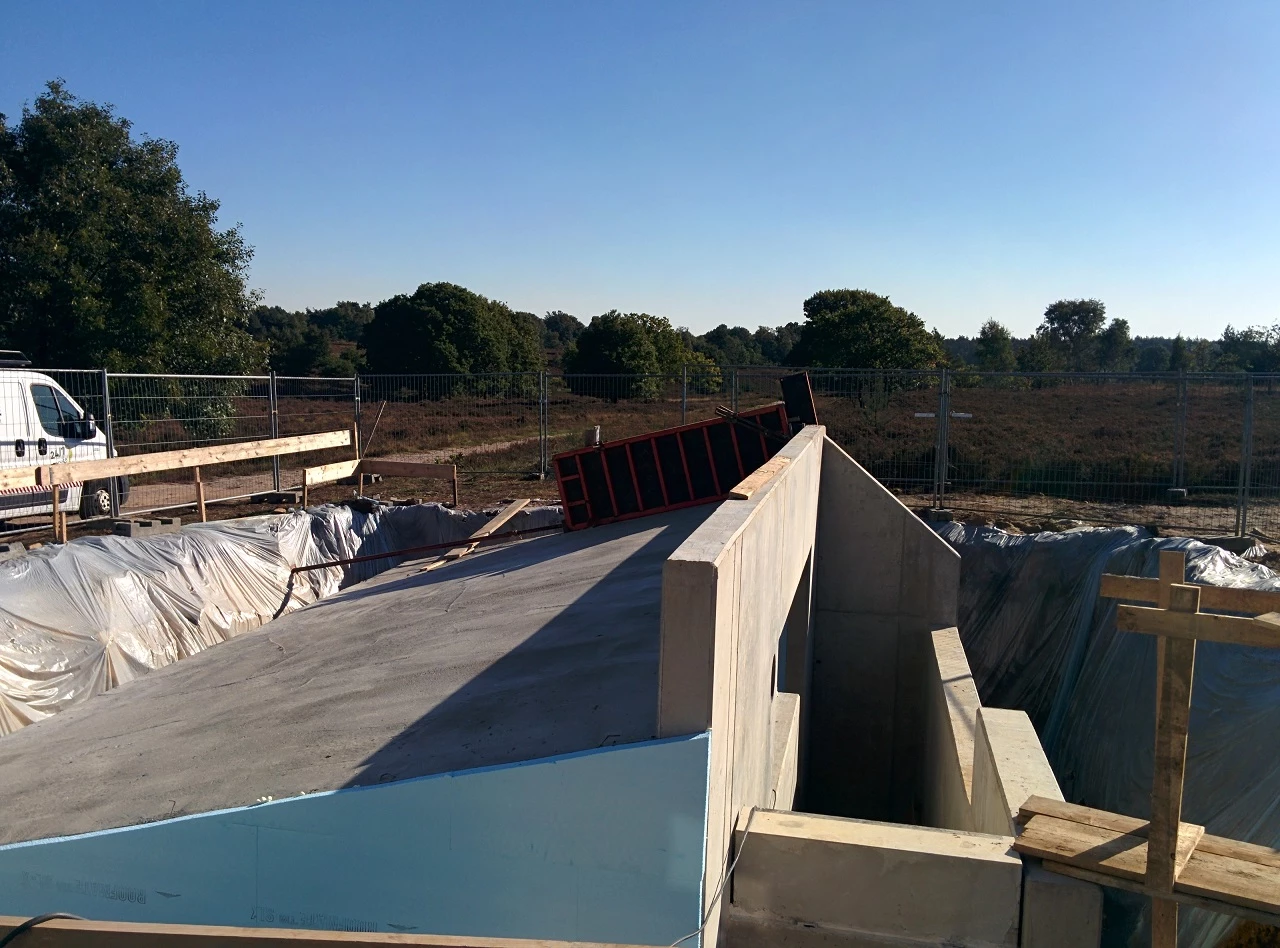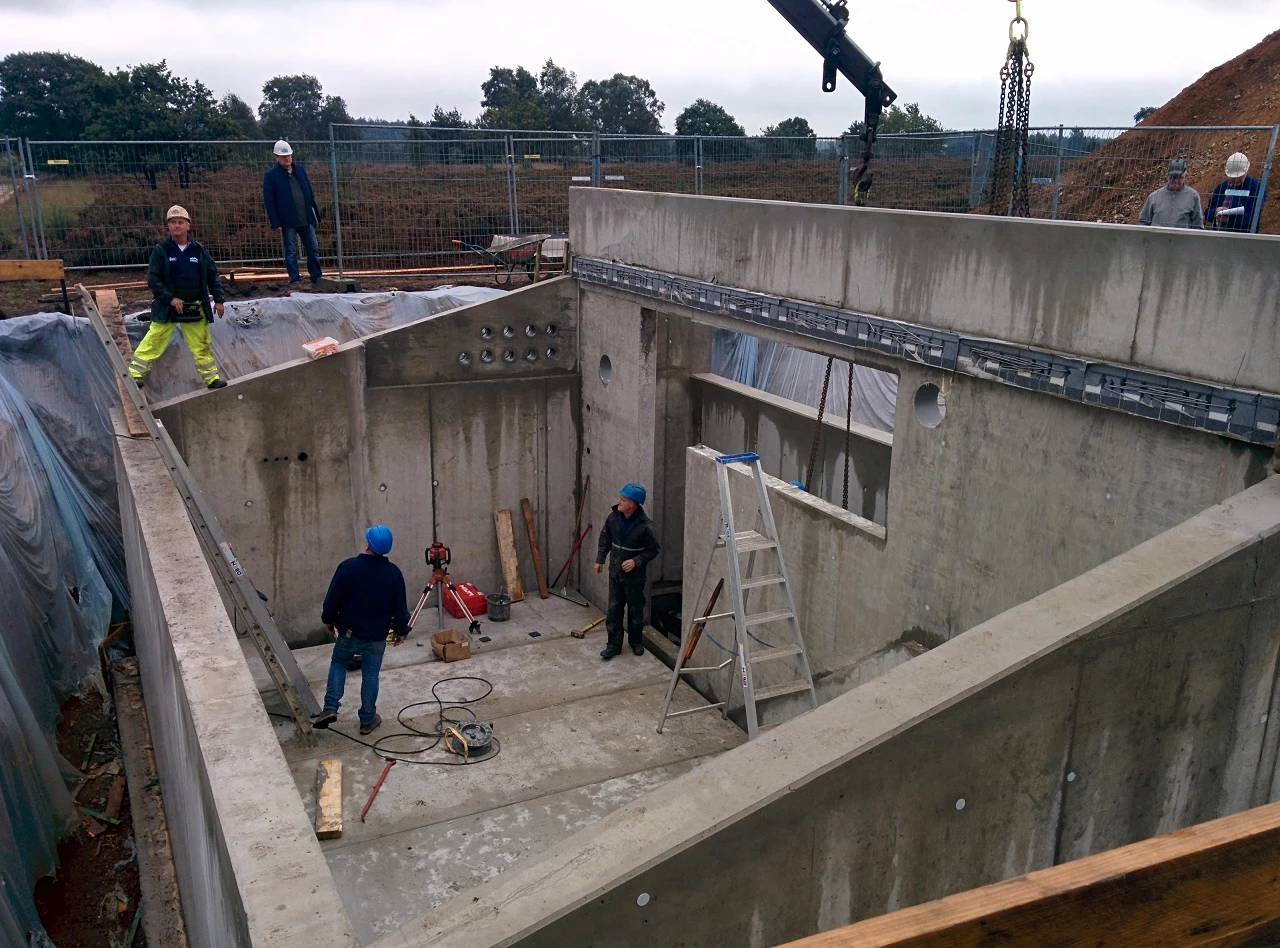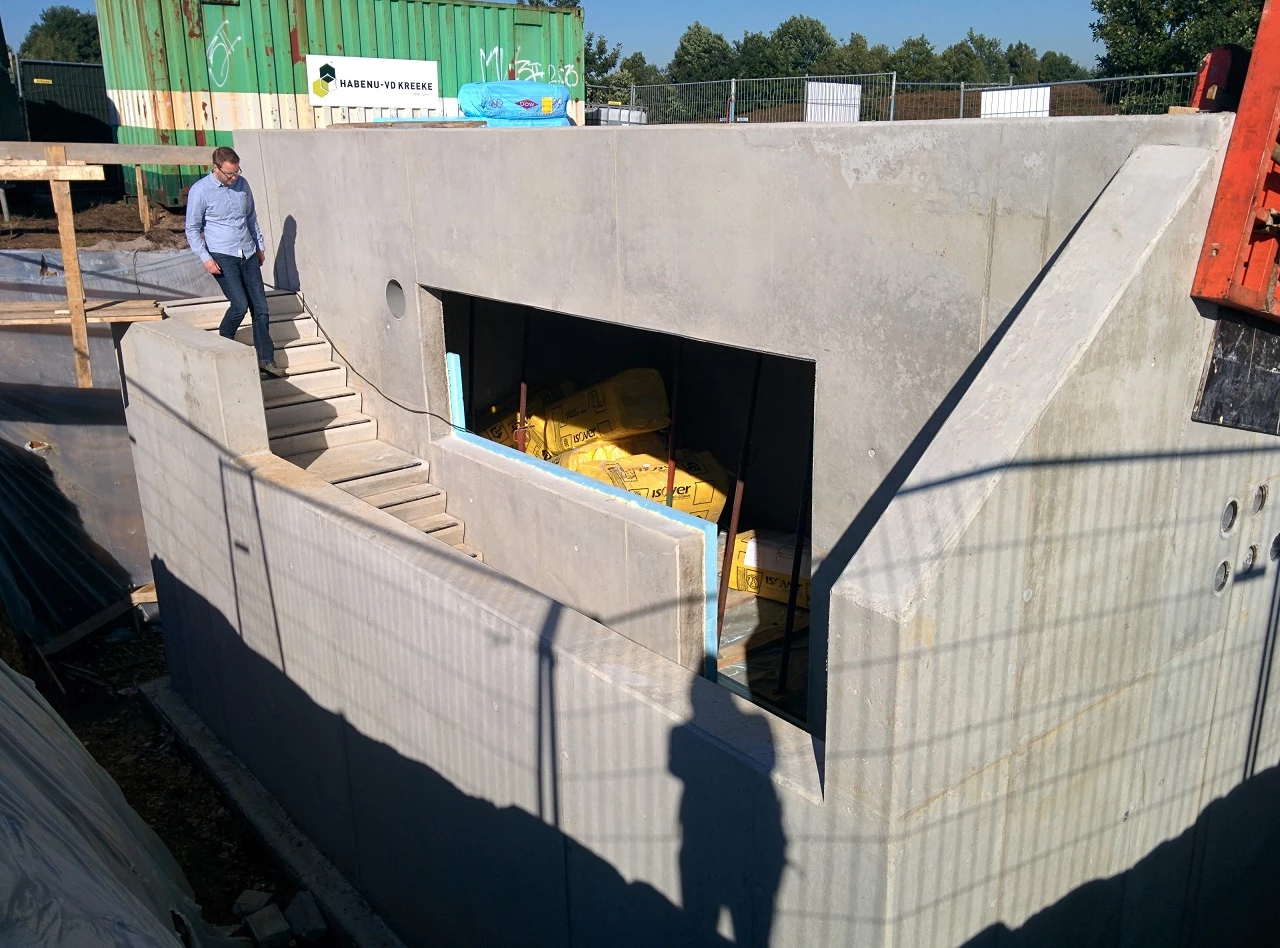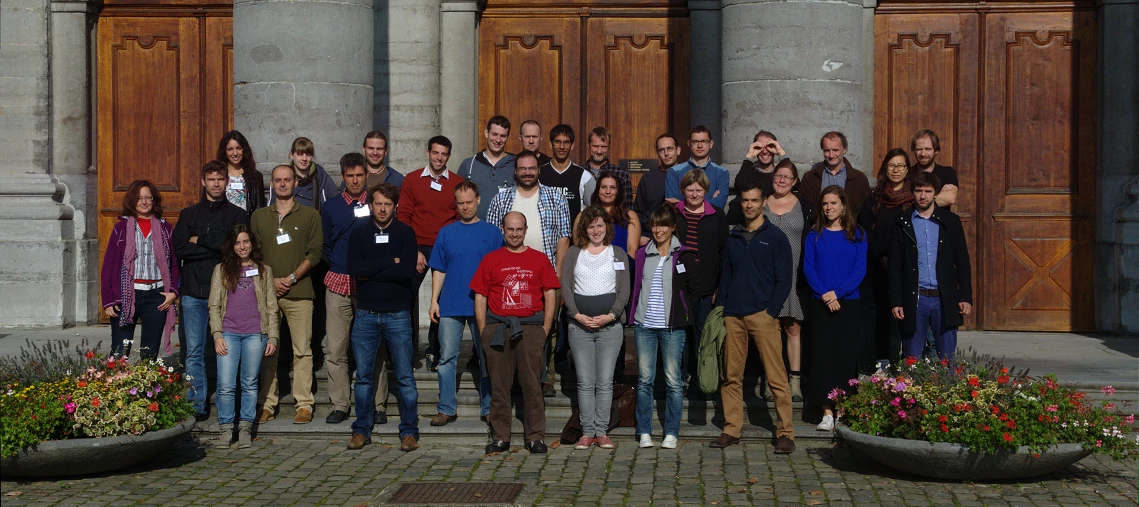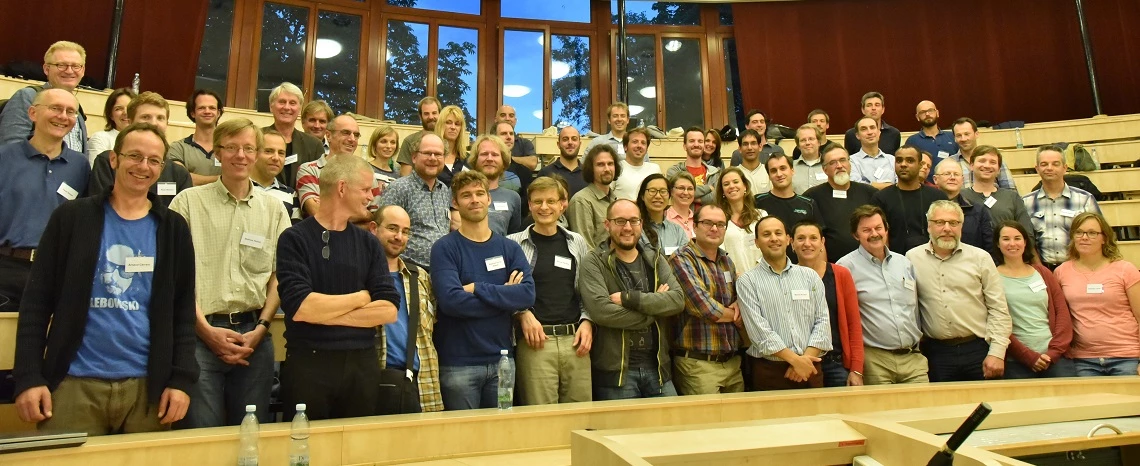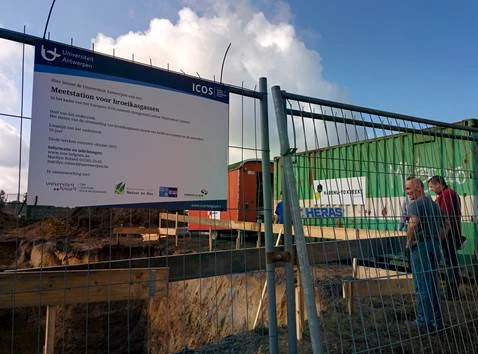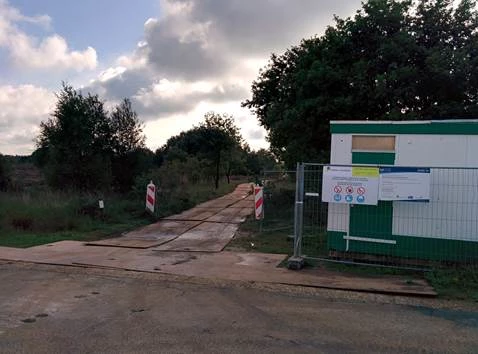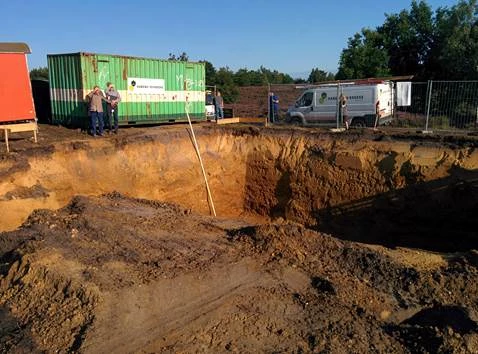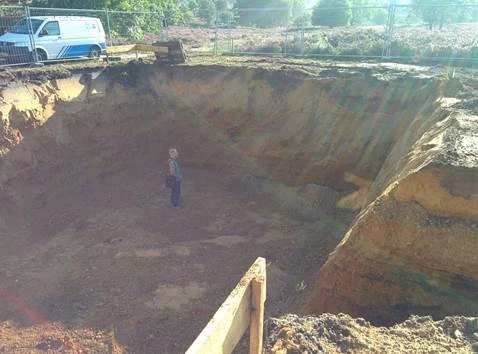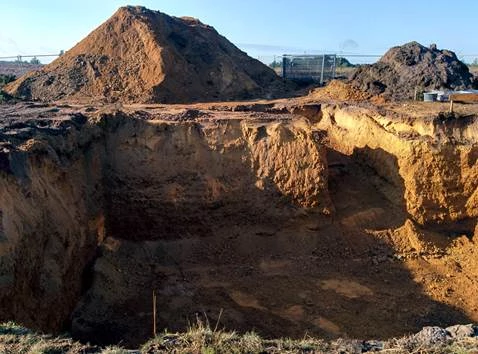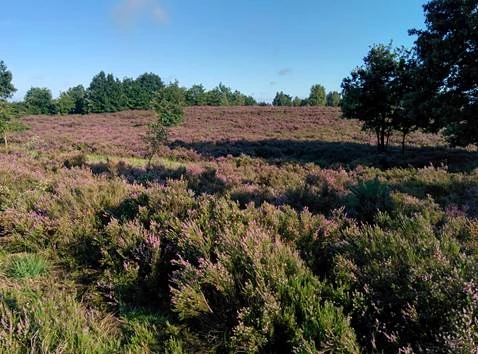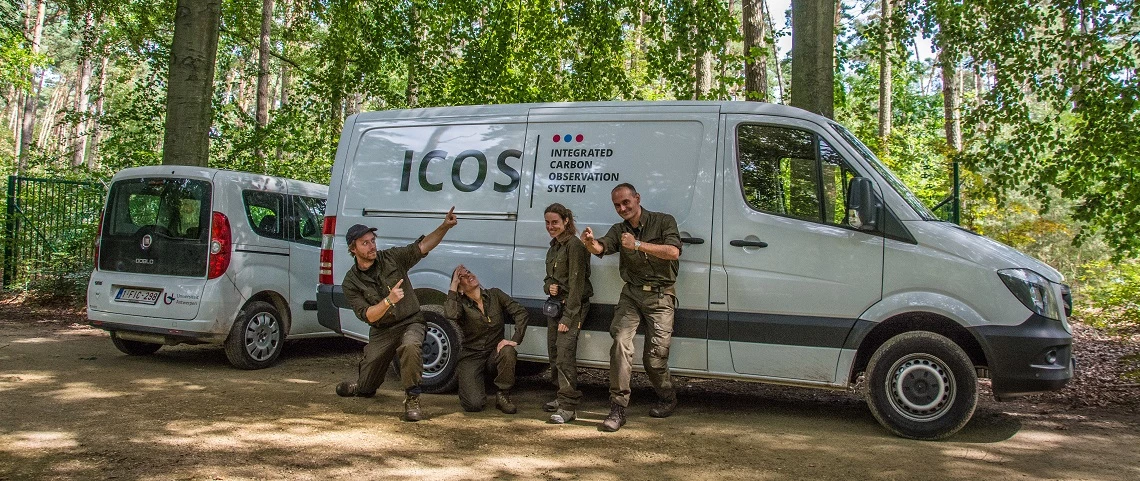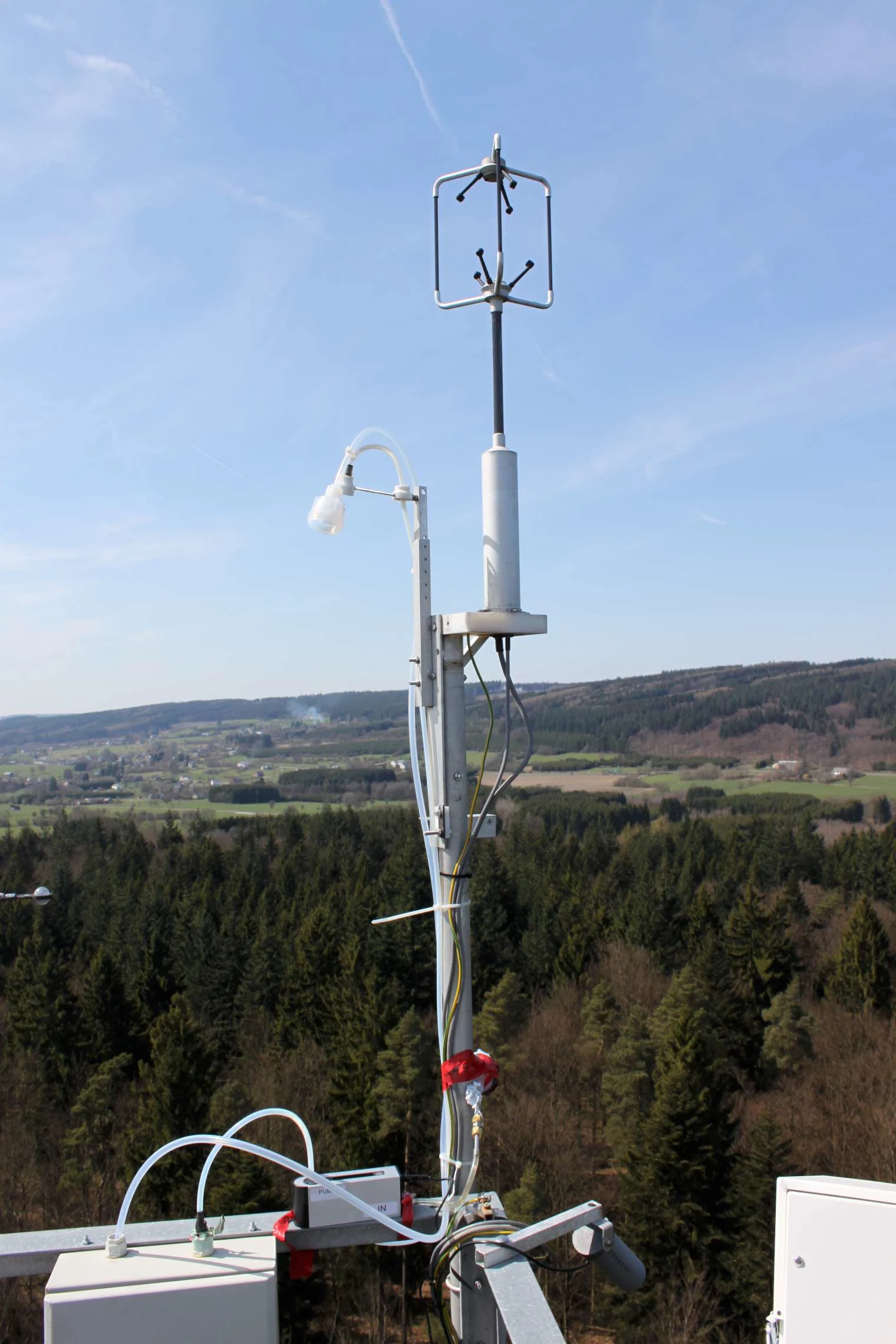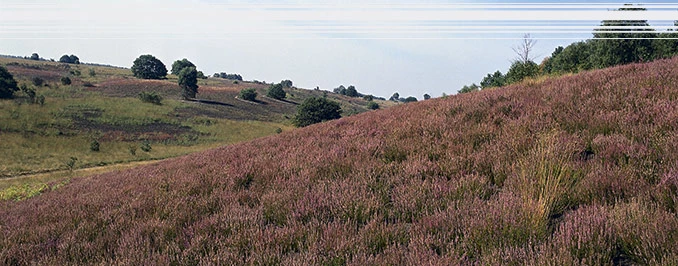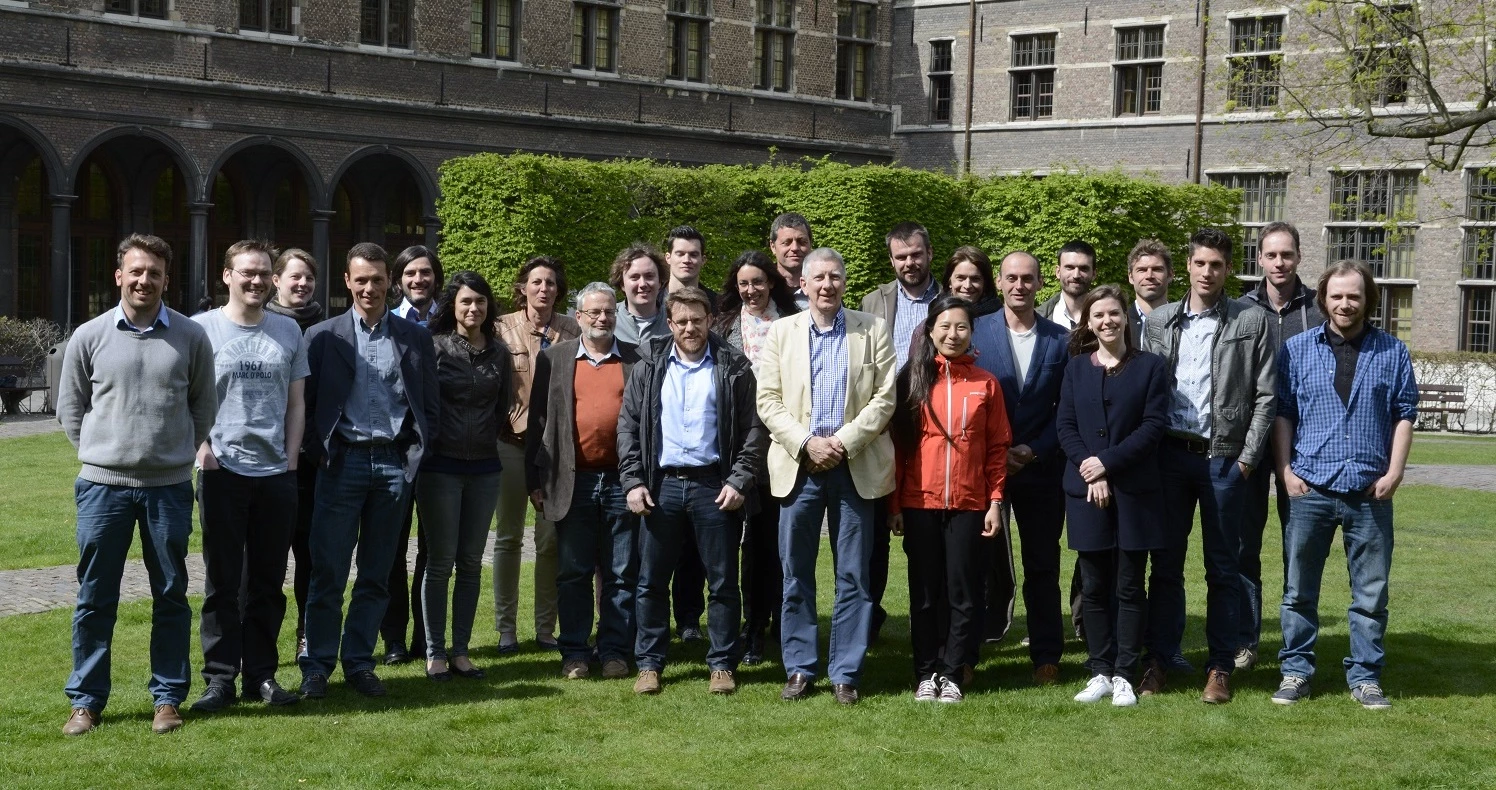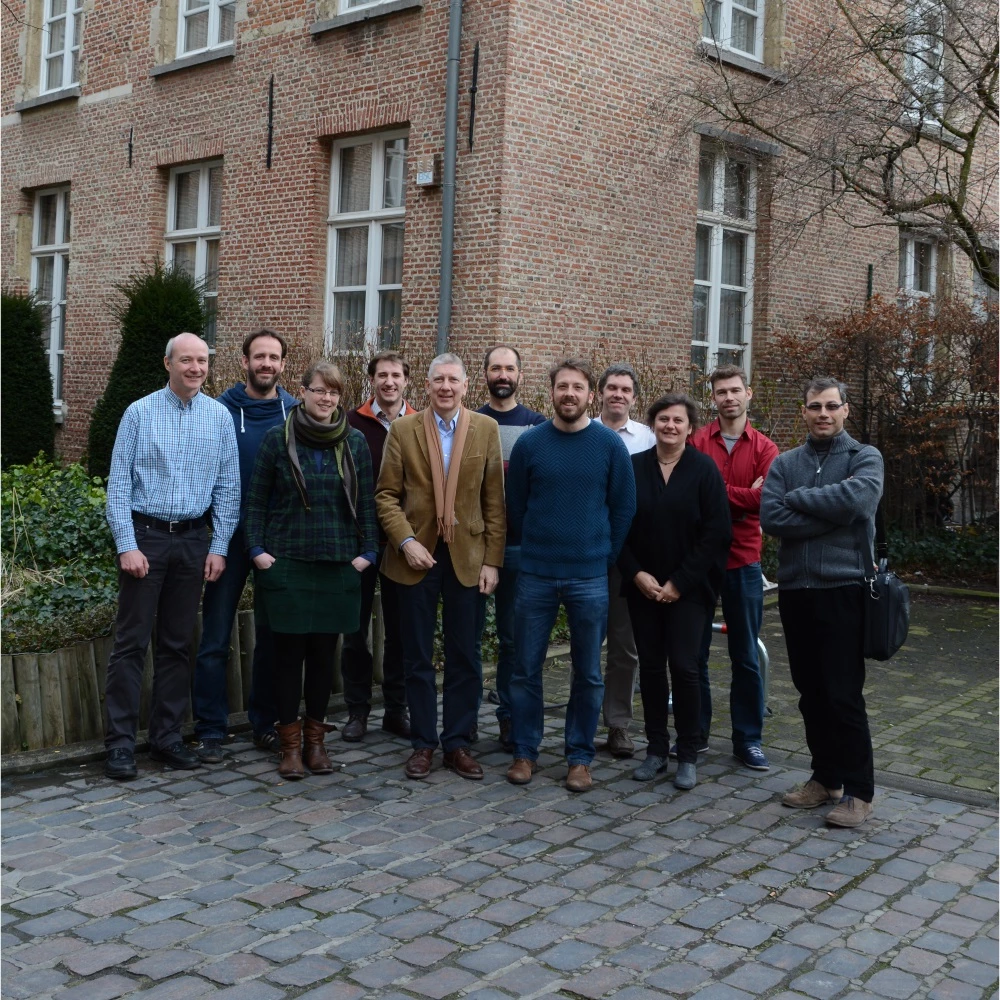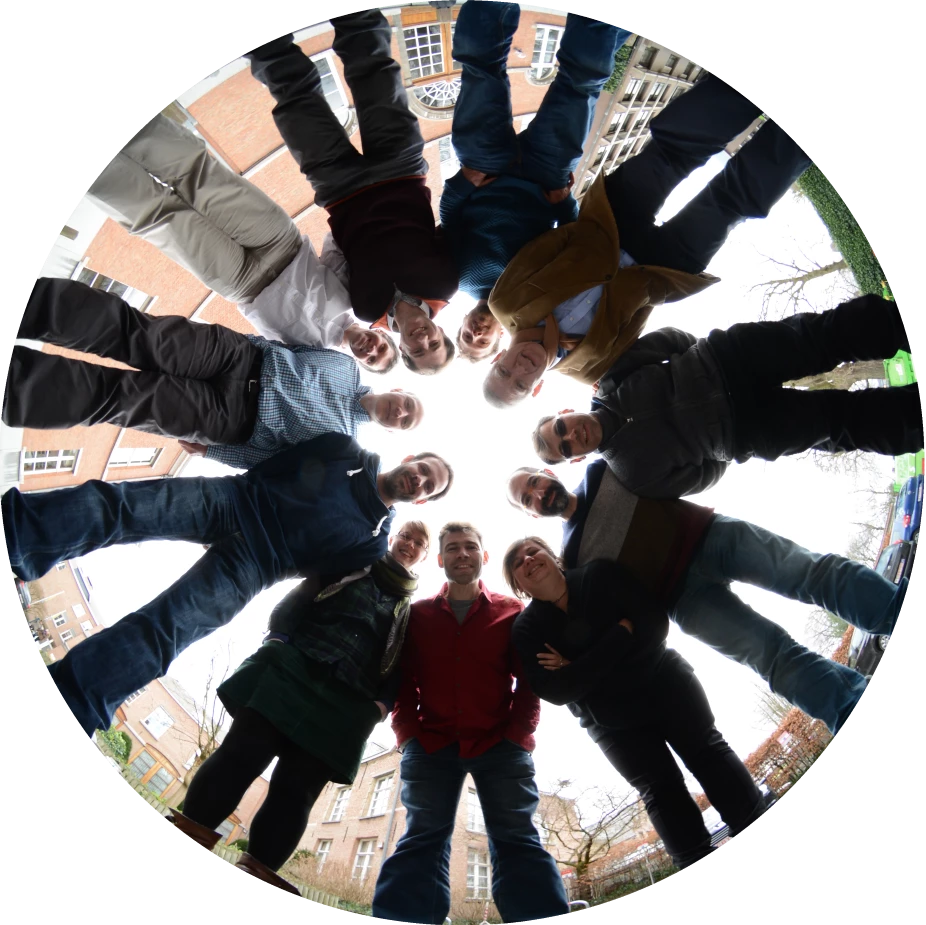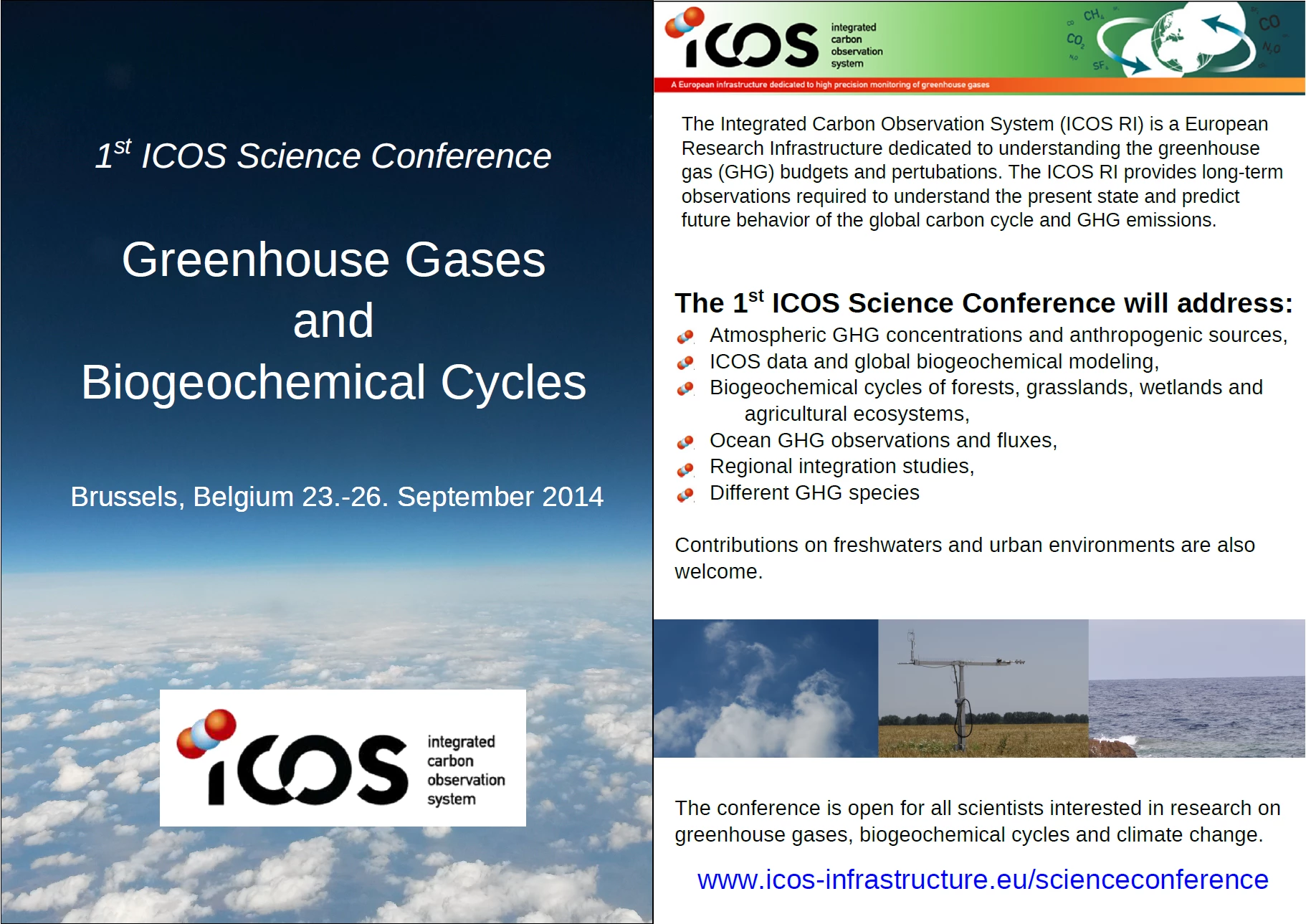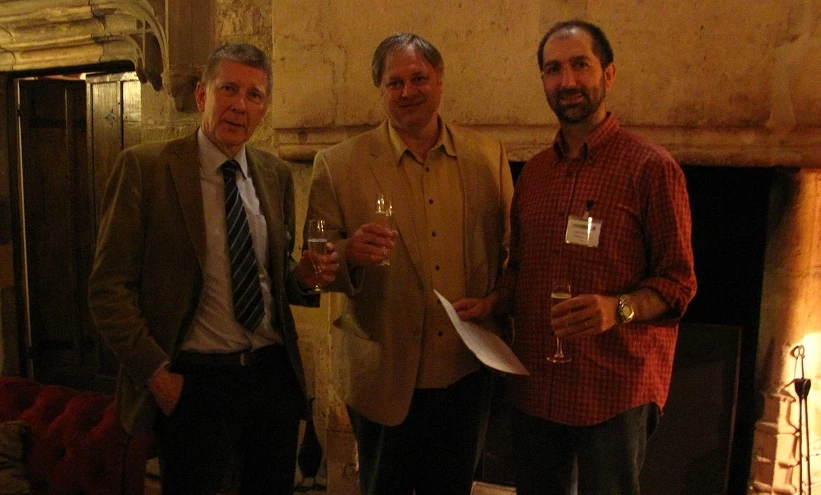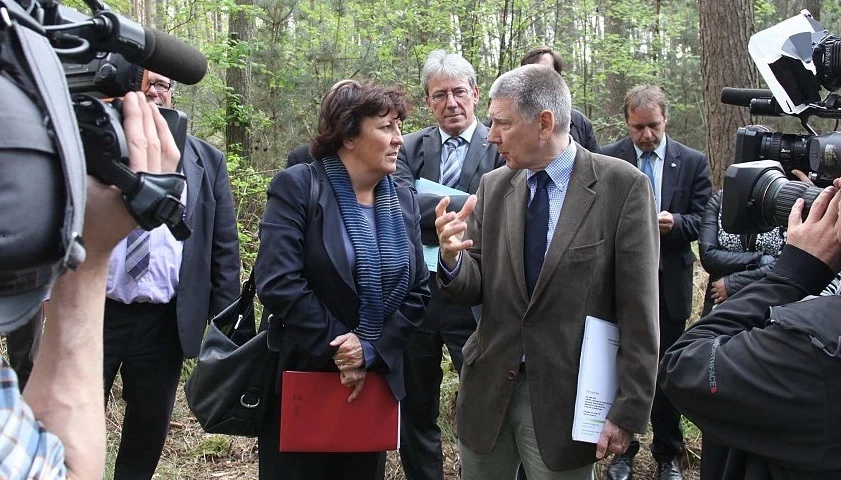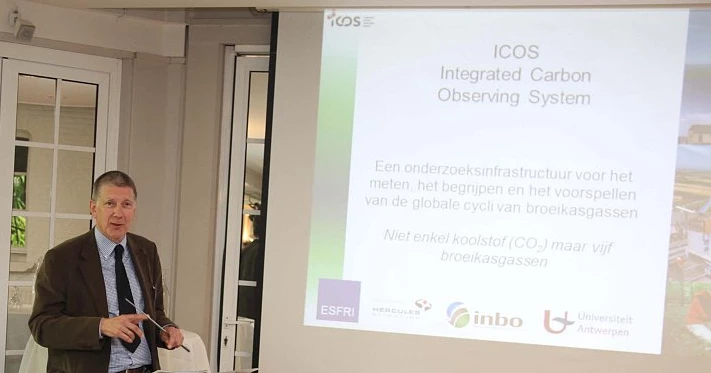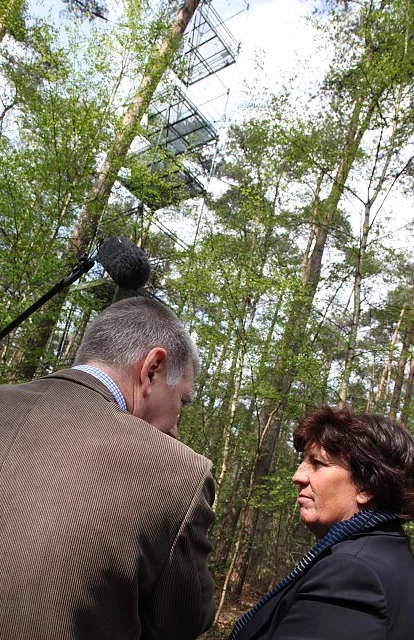News
ICOS Celebrates 10 Years at Super MSA in Helsinki
27 November 2025
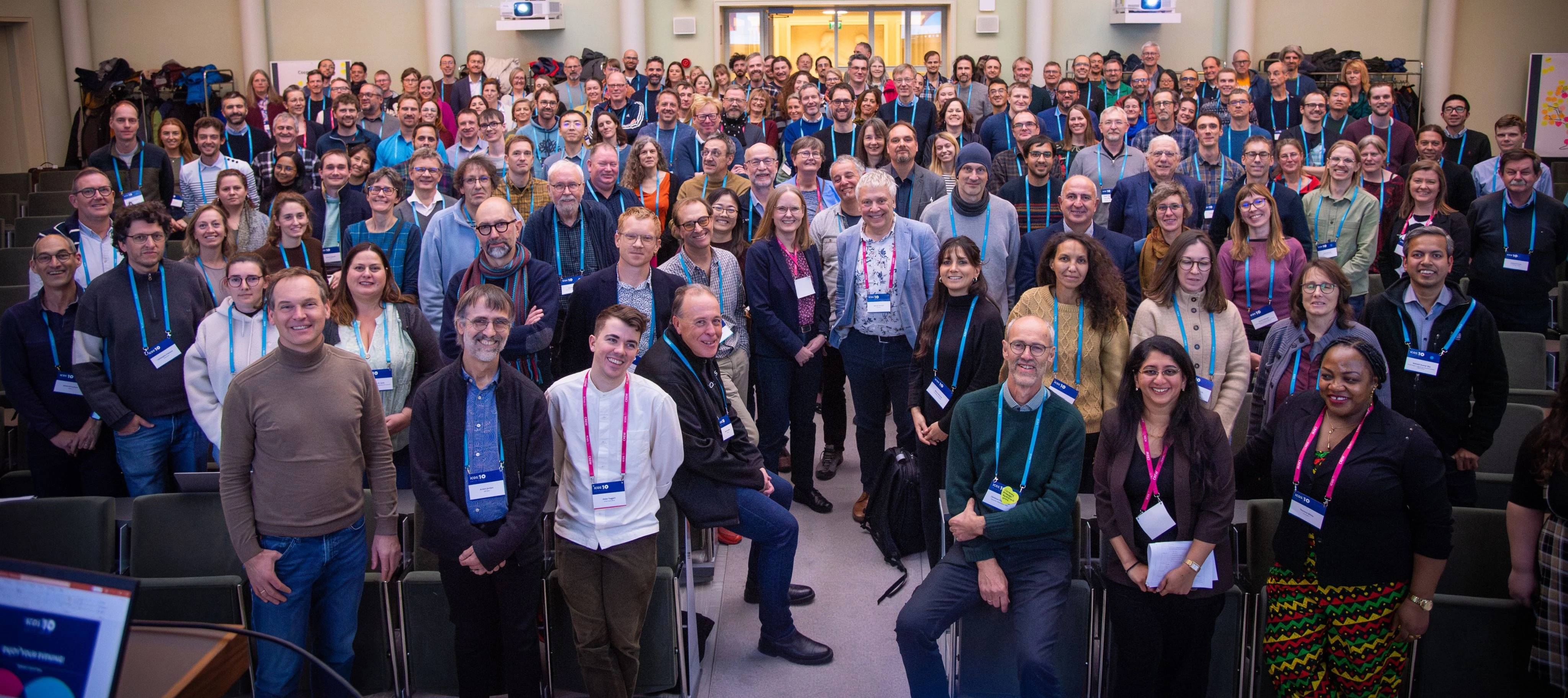
Last week, the ICOS community came together in Helsinki, Finland, for the Super MSA and to celebrate 10 years of ICOS. The event was both inspiring and engaging, featuring insightful presentations, lively discussions, and valuable opportunities to connect with colleagues across the network.
For the ICOS-Belgium team, one of the highlights was a fascinating site visit to Hyytiälä, offering a closer look at the impressive ICOS infrastructure in action.
A heartfelt thank you goes to all the organizers and presenters who made this event possible. We would also like to extend our deepest gratitude to Werner Kutsch for his many years of dedication to ICOS.
At the same time, it was a pleasure to meet the new head office team and to welcome Hannele Korhonen as the new Director General. We were equally delighted to hear encouraging words of support from European and Belgian politicians, including Vanessa Matz, highlighting the critical role of ICOS for both science and policy.
As ICOS continues to grow as a vibrant, collaborative community, we look forward to the next 10 years of research, innovation, and impact!
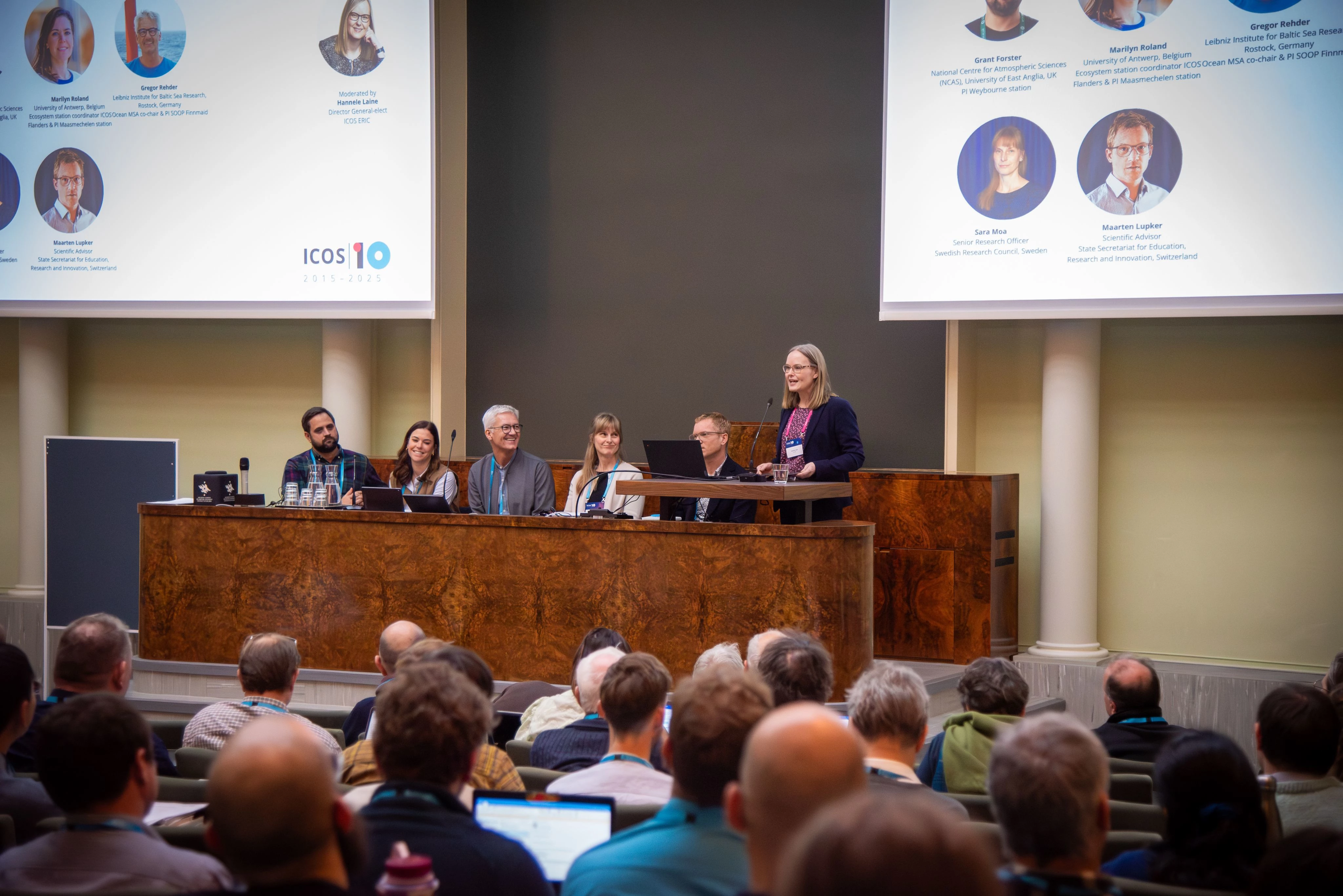
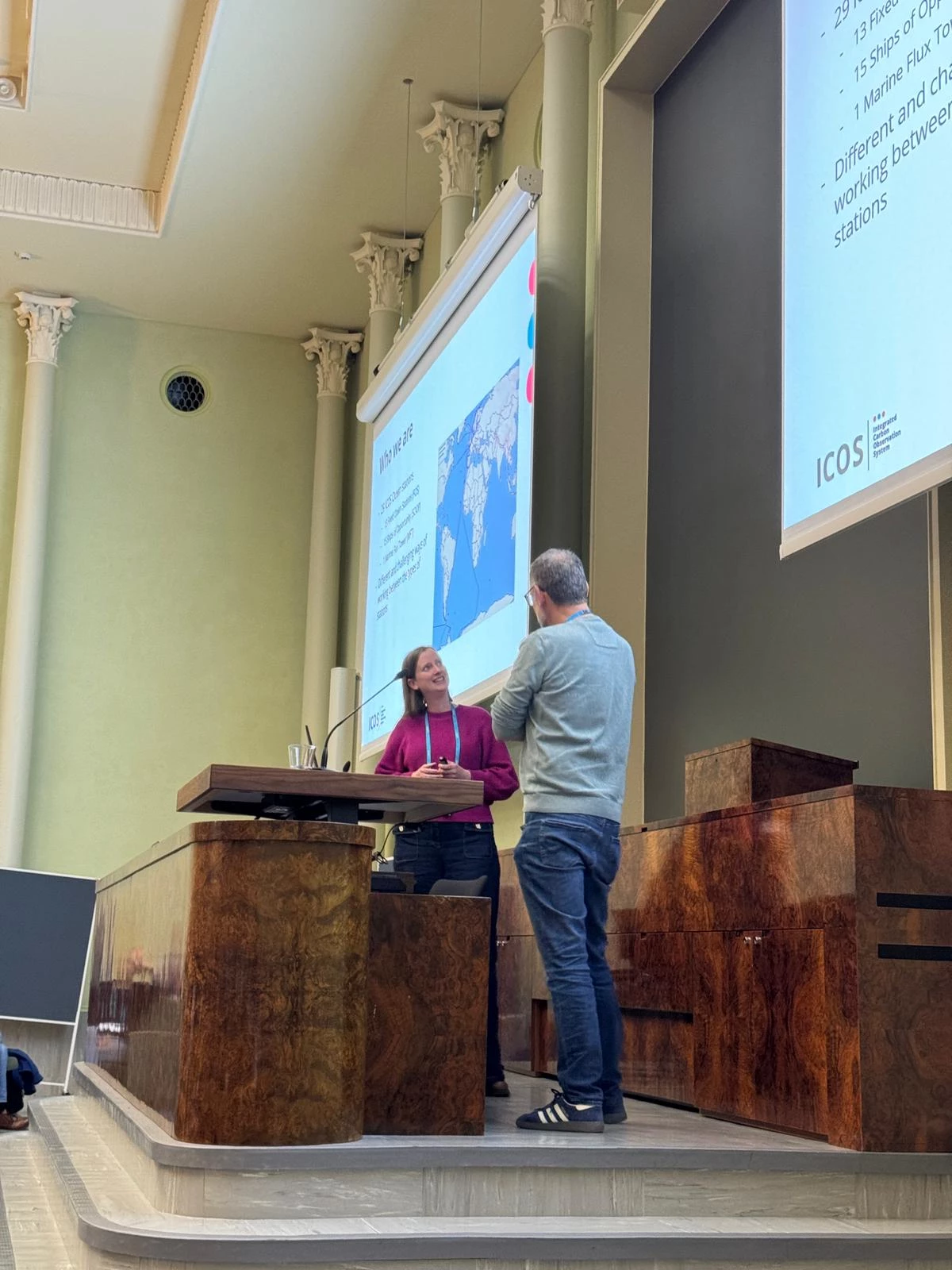
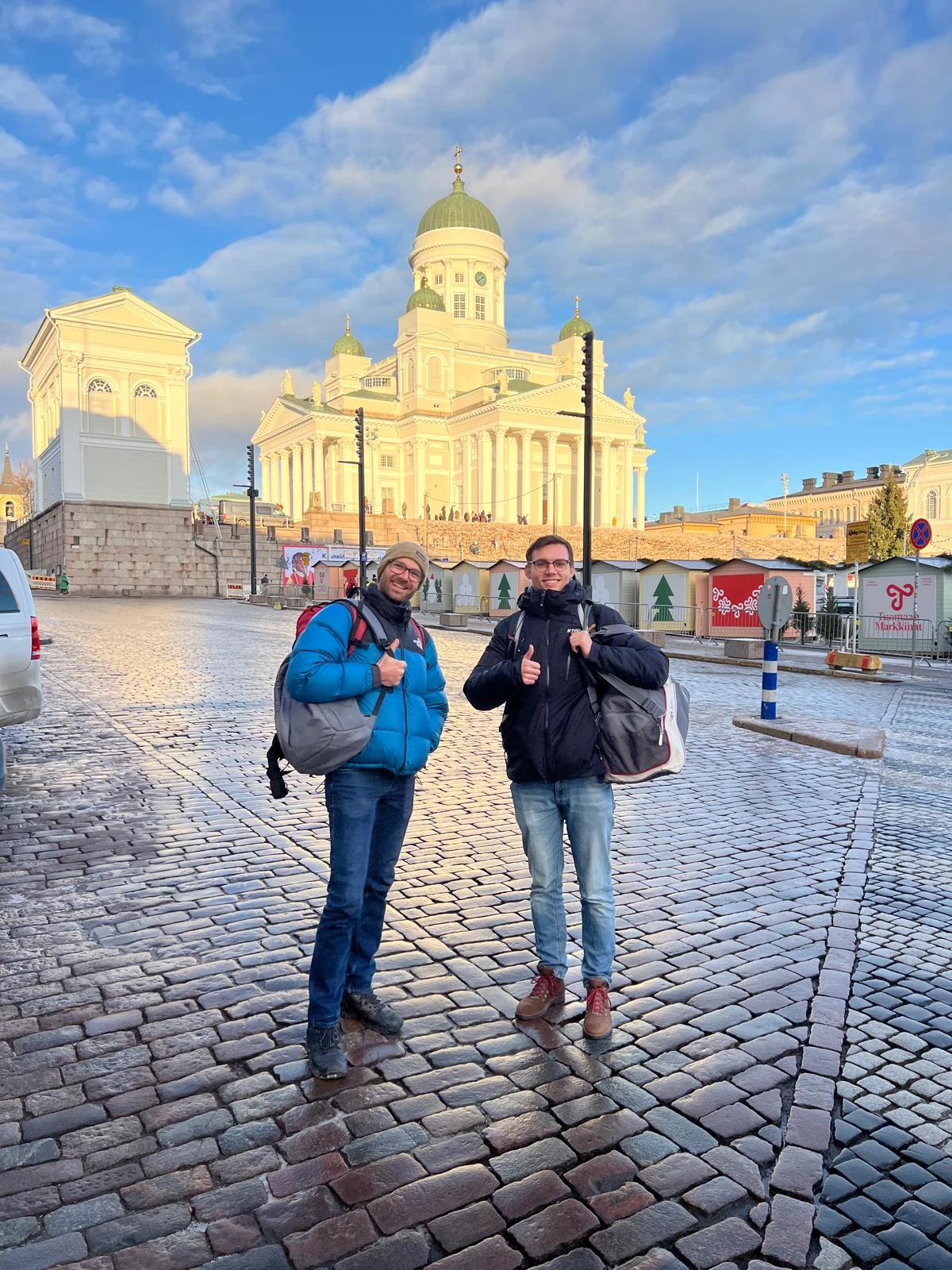
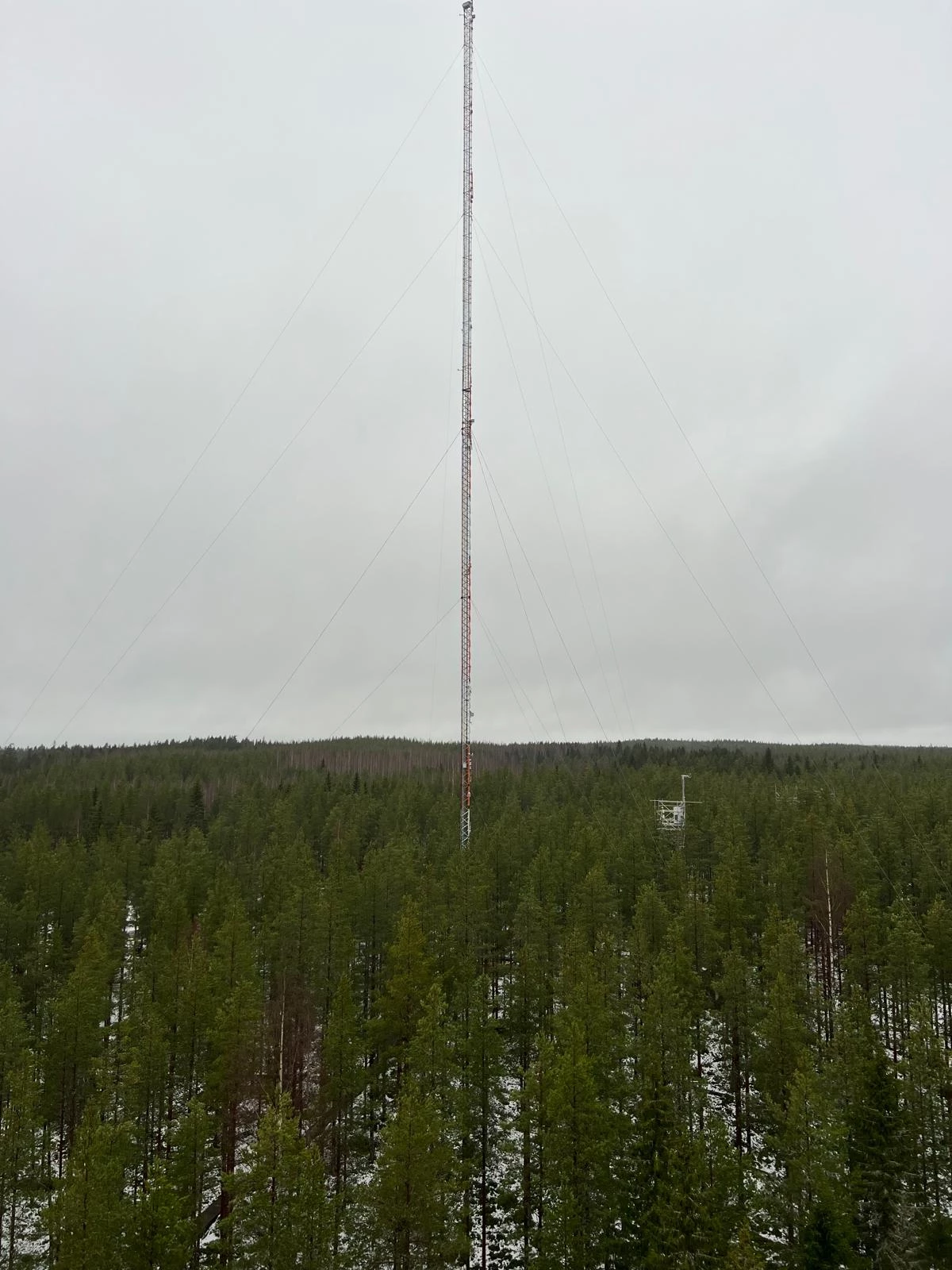
Dag van de Wetenschap 2025
23 November 2025
On Sunday 22 November, Vlaanderen and Brussels celebrated Dag van de Wetenschap with science activities popping up across the entire region. ICOS was well represented this year, with interactive events organised by VLIZ in Ostend and the University of Antwerp.
Visitors had the chance to board the oceanic ICOS station R.V. Simon Stevin, experience different climate scenarios in the immersive Zeebelevingslab, learn more about the greenhouse gas effect and discover the impact of climate change on our ecosystems and oceans. The activities sparked enthusiastic engagement from young and old, and (hopefully) inspired many future climate scientists.
A warm thank you to everyone who joined and helped make this year’s edition a success.
VLIZ.webp)
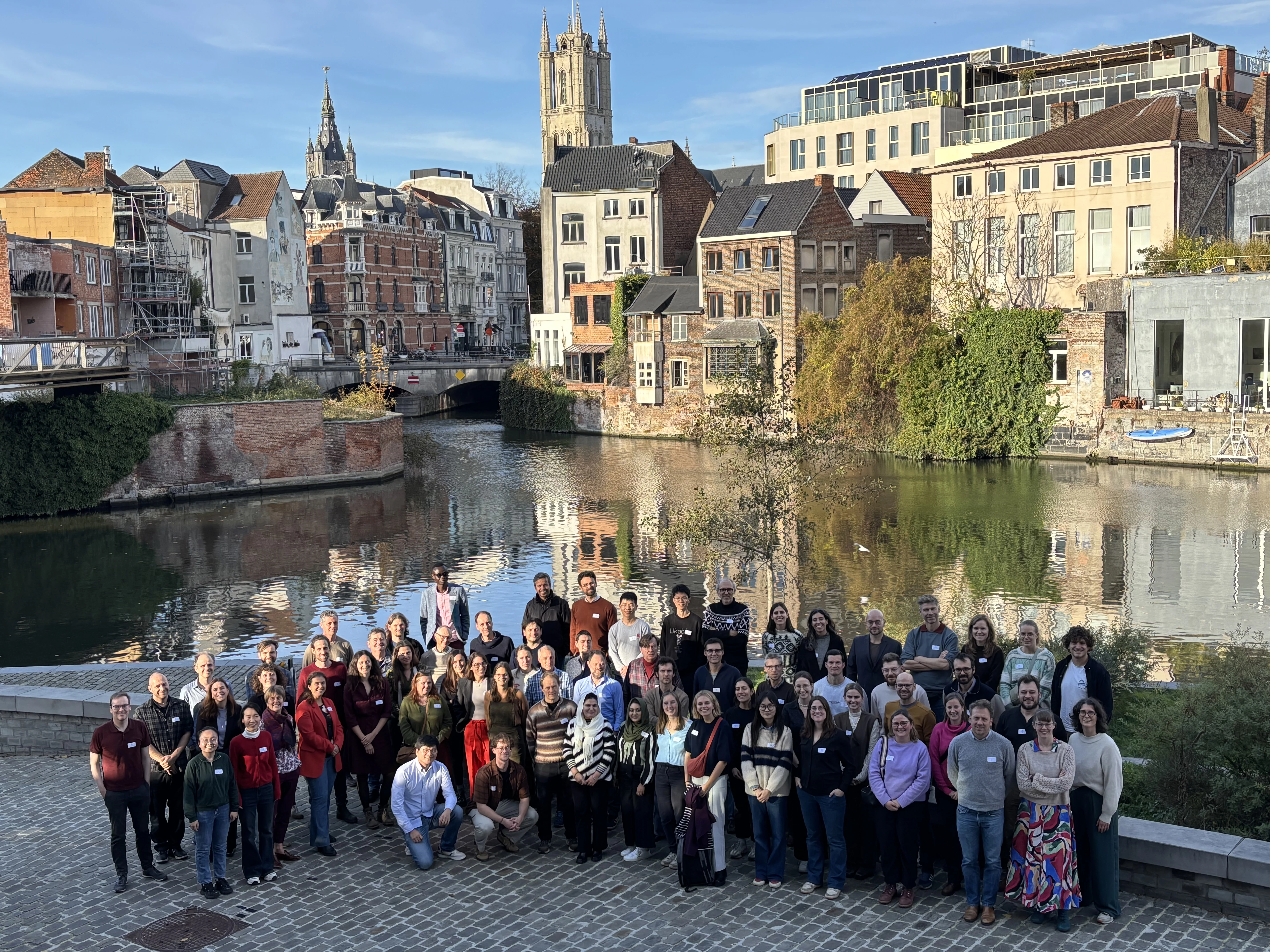
ICOS Belgium
Science conference 2025
12 November 2025
On 12 November 2025, ICOS Belgium hosted its biennial Science Conference at De Krook in Ghent.
The program brought together sessions on site measurements and long-term monitoring, data integration and modelling, and the societal impact and valorization of ICOS results — complemented by oral presentations, posters and engaging discussions on the next steps for Belgian ICOS activities.
The full program, as well as all oral and poster presentations, are available online.
Find out more about the conference at www.icos-belgium.be/SC2025
New ICOS Curve launched
Tracking CO₂ concentrations across Europe
10 November 2025
ICOS has launched its interactive ICOS Curve, a web tool that visualizes monthly median CO₂ concentrations and the long-term evolution of greenhouse gas levels above Europe. The curve is based on data from 38 ICOS Atmosphere stations across the continent. The tool offers a clear view of seasonal dynamics and long-term trends, updated daily with ICOS near-real-time data. Users can compare individual stations, explore the European median, or benchmark values against global averages.
In 2024, the calculated CO₂ growth rate for the certified ICOS stations reached 3.29 ppm, a noticeable increase compared to the roughly 2.5 ppm/year recorded during 2011–2020.
Find out more and explore the tool on the ICOS Curve webpage.
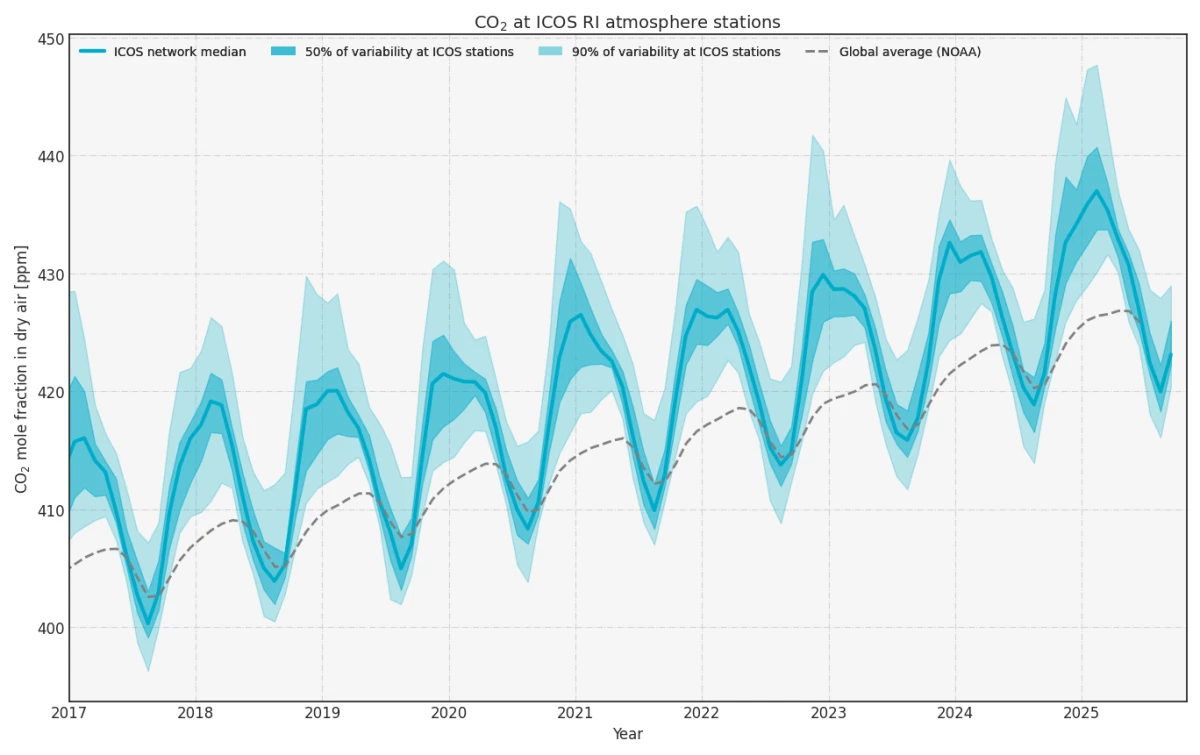
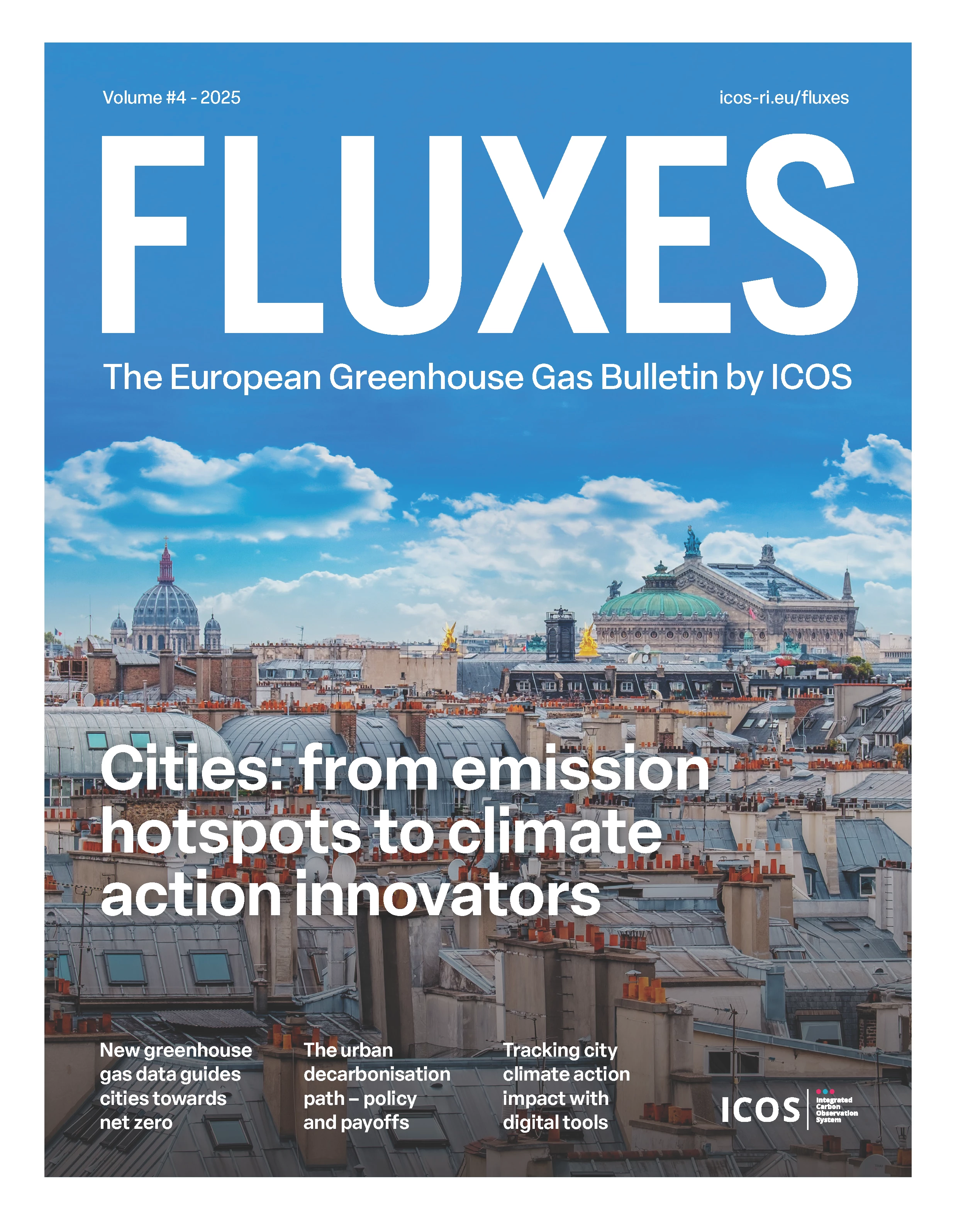
Fluxes Volume 4 out now
Cities: from emission hotspots to climate action innovators
4 November 2025
Cities emit a large amount of greenhouse gases, but they also hold significant potential to mitigate the climate crisis. While national governments set ambitious climate targets, cities are where policies turn into tangible action.
For a city to truly tackle its greenhouse gas emissions, it must first know what it’s up against. Cities need accurate and timely emissions data to monitor and track climate action progress.
This volume of FLUXES focuses on greenhouse gas emissions in cities. The topics are the following:
- New emissions data guides cities towards zero carbon
- Decarbonising cities: transport, buildings and nature
- Tracking city climate action impact with digital tools
The European Commissioner and the Belgian Blues
21 june 2025
On the sunny Friday of June 20th, the European Commissioner for Agriculture, Mr. Christophe Hansen, visited the ICOS station in Dorinne (BE-Dor). He was accompanied by a delegation of around fifty people, including the Walloon Minister of Agriculture, Anne-Catherine Dalcq, member of European Parliament Benoit Cassart, who initiated the visit, and Philippe Lamberts, advisor to President von der Leyen.
The group visited the La Praule farm, where Belgian Blues breeder Adrien Pâquet has been hosting the flux tower station for 15 years. The station's PI and coordinator of the ICOS-Wallonia network, Bernard Heinesch, welcomed them to the pasture and explained the importance of the ICOS network and its missions. He was also able to highlight the importance and complexity of the study of grazed meadows, which are poorly represented in the network.
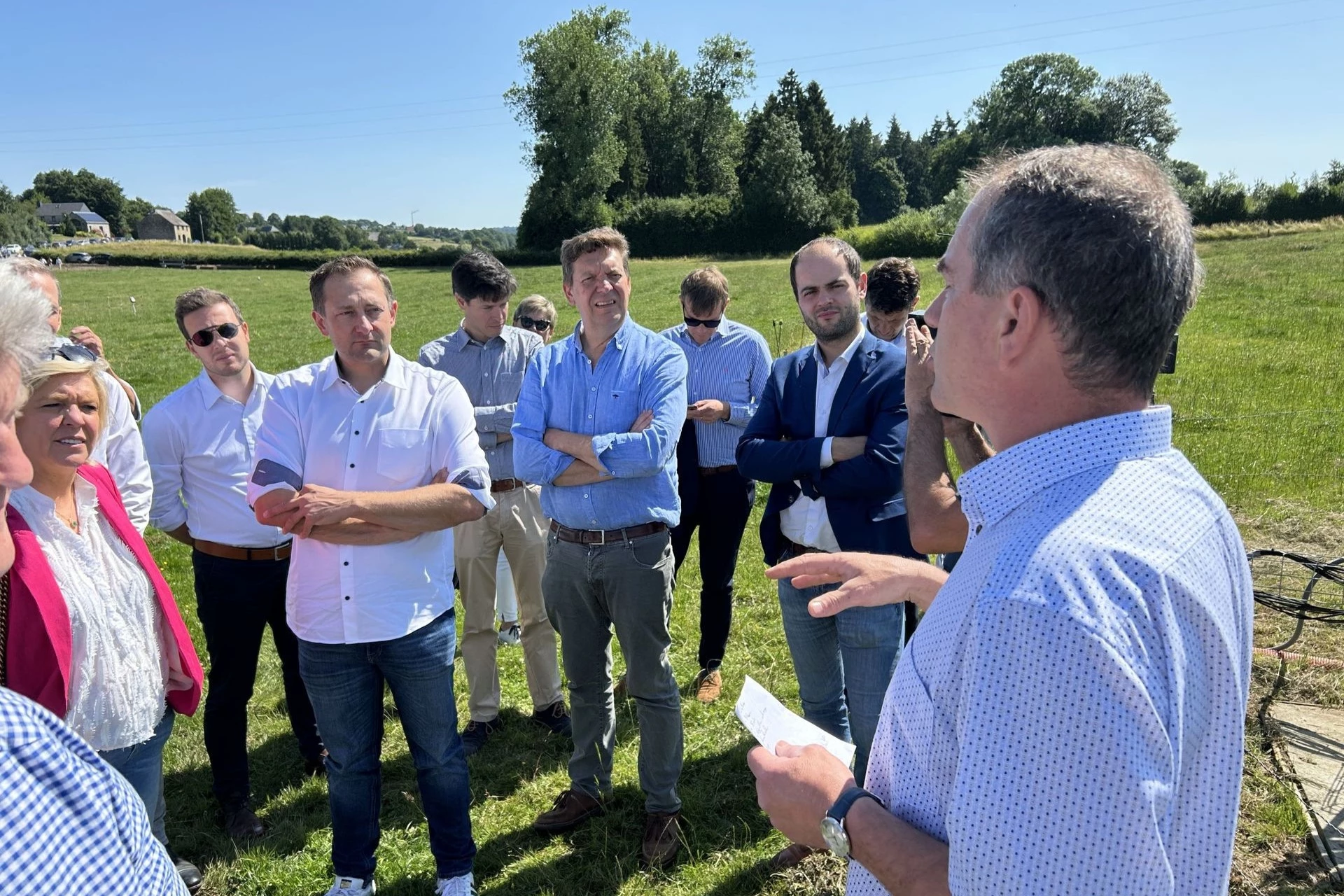
Watch the item on the RTBF news here: Dorinne : les prairies sous la loupe des scientifiques (in French).
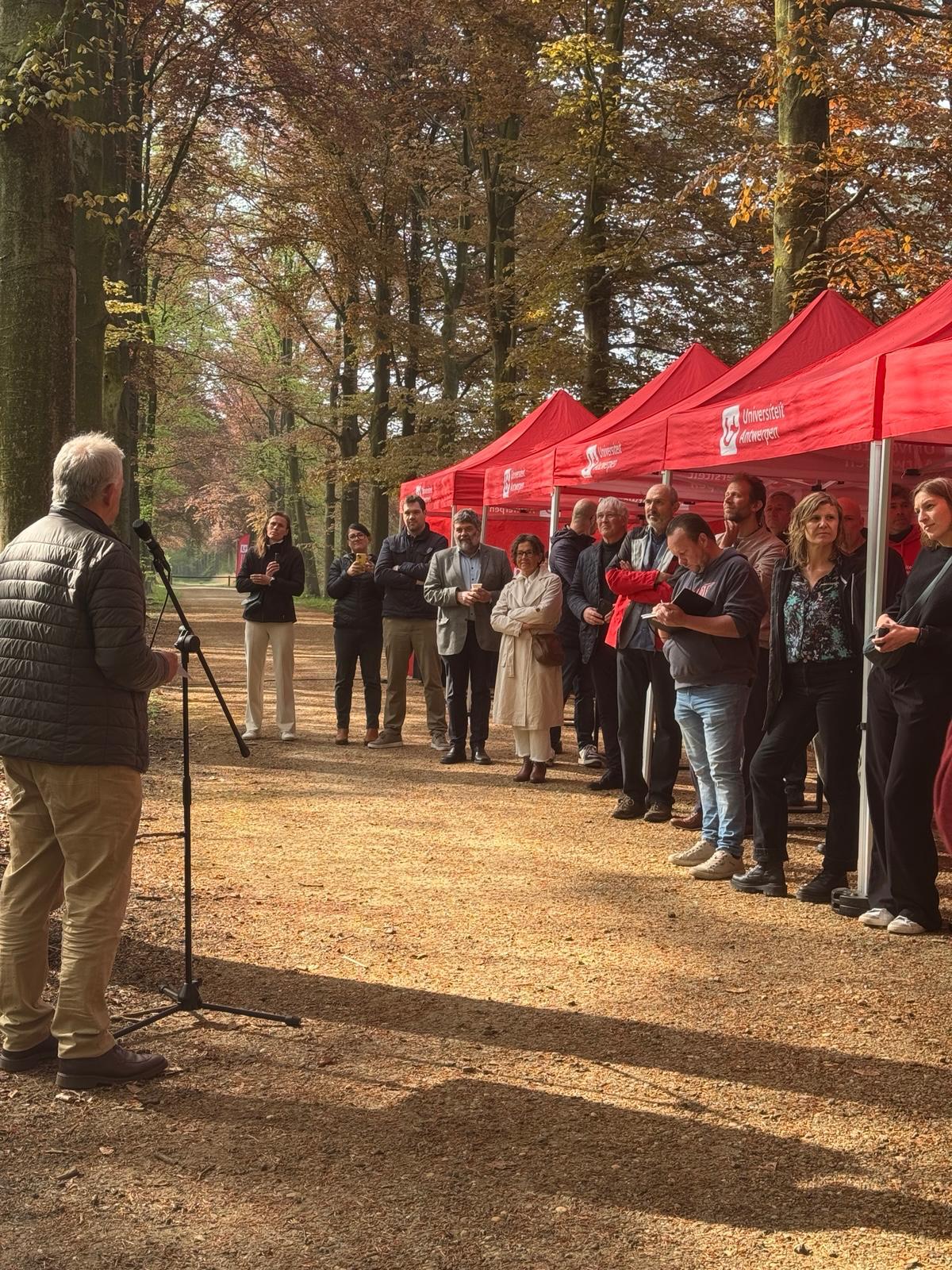
Autonomous research drone flies over ICOS site in Brasschaat
26 April 2025
May 2025 – A new autonomous research drone has been launched at the ICOS ecosystem site in Brasschaat, adding an innovative platform to the site’s long-term forest monitoring.
The drone was officially inaugurated by Herwig Leirs, rector of the University of Antwerp, Adinda Van Gerven, the mayor of Brasschaat, and project coordinator professor Ivan Janssens from the University of Antwerp.
Each day, the drone takes off automatically to fly a fixed 30-minute route just above the forest canopy. The drone is equipped with seven advanced sensors that measure canopy temperature, leaf reflectance, photosynthesis, drought stress, and detects fire risks.
The drone data complements the continuous ICOS observations from the 40 m flux tower on site, offering high-resolution spatial insight into forest functioning. The combination of drone and tower data strengthens the site’s capacity to detect and understand forest responses to climate change and extreme weather events.
This pioneering initiative is funded by the Research Foundation Flanders (FWO).
Read more in the Flemisch media (in Dutch): Unieke drone vliegt dagelijks over bos in Brasschaat om gezondheid van bomen en klimaateffecten te onderzoeken | VRT NWS: nieuws
Save the date: 26 April launch of the new research drone
26 April 2025
The University of Antwerp and the Brasschaat station team invite you to the inauguration of a pioneering research drone on April 26 at the ICOS site. This innovative UAV expands data collection innovating forest and climate studies, showcasing the site’s commitment to advancing research.
Join us for the official inauguration at 10h or visit the Brasschaat site and discover the drone between 13 and 16h!
Location: Research site De Inslag, entrance via Fortsebaan 33 or Bredabaan 865, Brasschaat
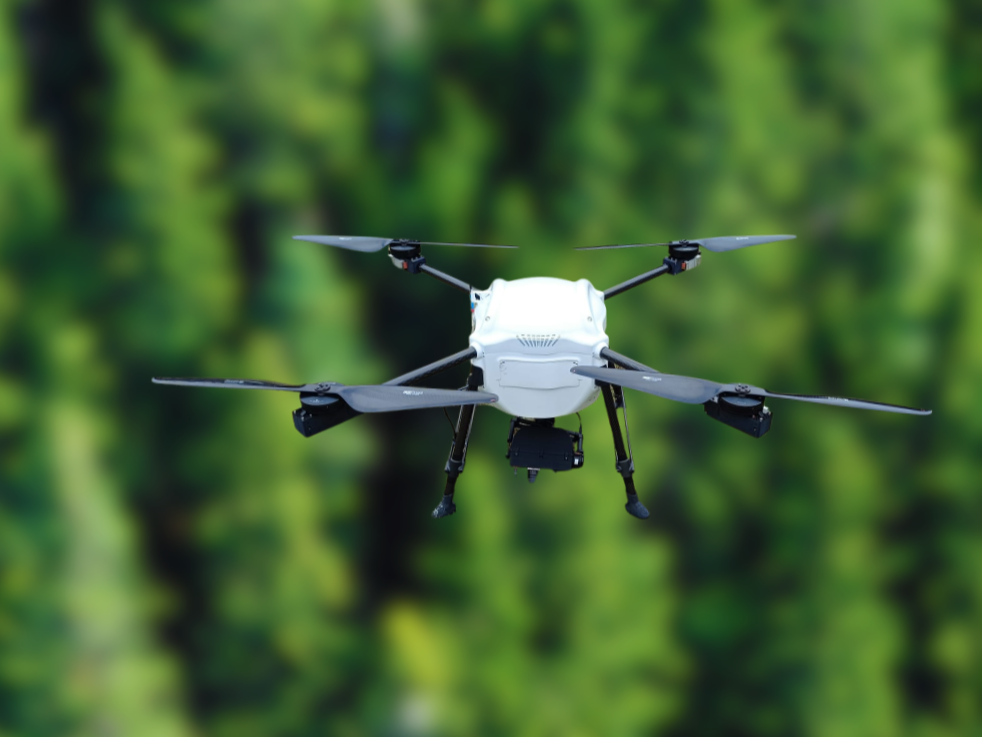
Unraveling the mysteries of the world’s most critical rainforest
11 March 2025
We are pleased to highlight a new publication on the Yangambi station "Unraveling the mysteries of the world’s most critical rainforest" in National Geographic. The article emphases the critical role of the Congo Basin for carbon storage, the basin’s importance in mitigating climate change and the essential need to protect this ecosystem for global climate efforts.
Proud to contribute to research in this crucial ecosystem in close collaboration with many local partners, INREA and UGhent.
Read the article: How the Congo became the world’s most critical rainforest
ICOS Belgium Consortium Day 2025
10 March 2025
ICOS Belgium convened on March 10, 2025, at the University of Antwerp for its biennial consortium day. Discussions focused on station overviews, funding strategies, and communication tactics.
A date and city for the ICOS Belgium Science Conference later this year were also decided. Stay tuned for further updates!
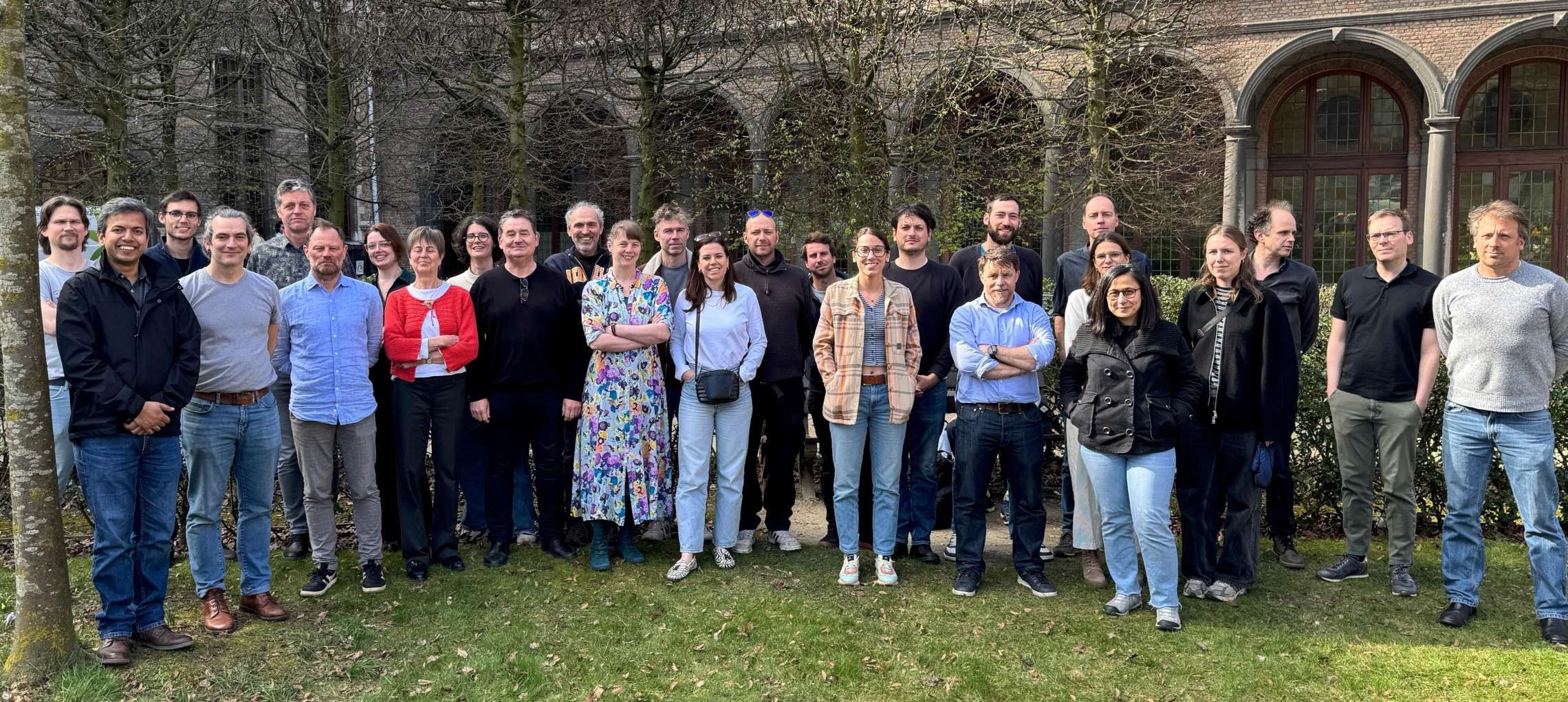
New flux station investigates the impact of nature restauration on wetland carbon uptake
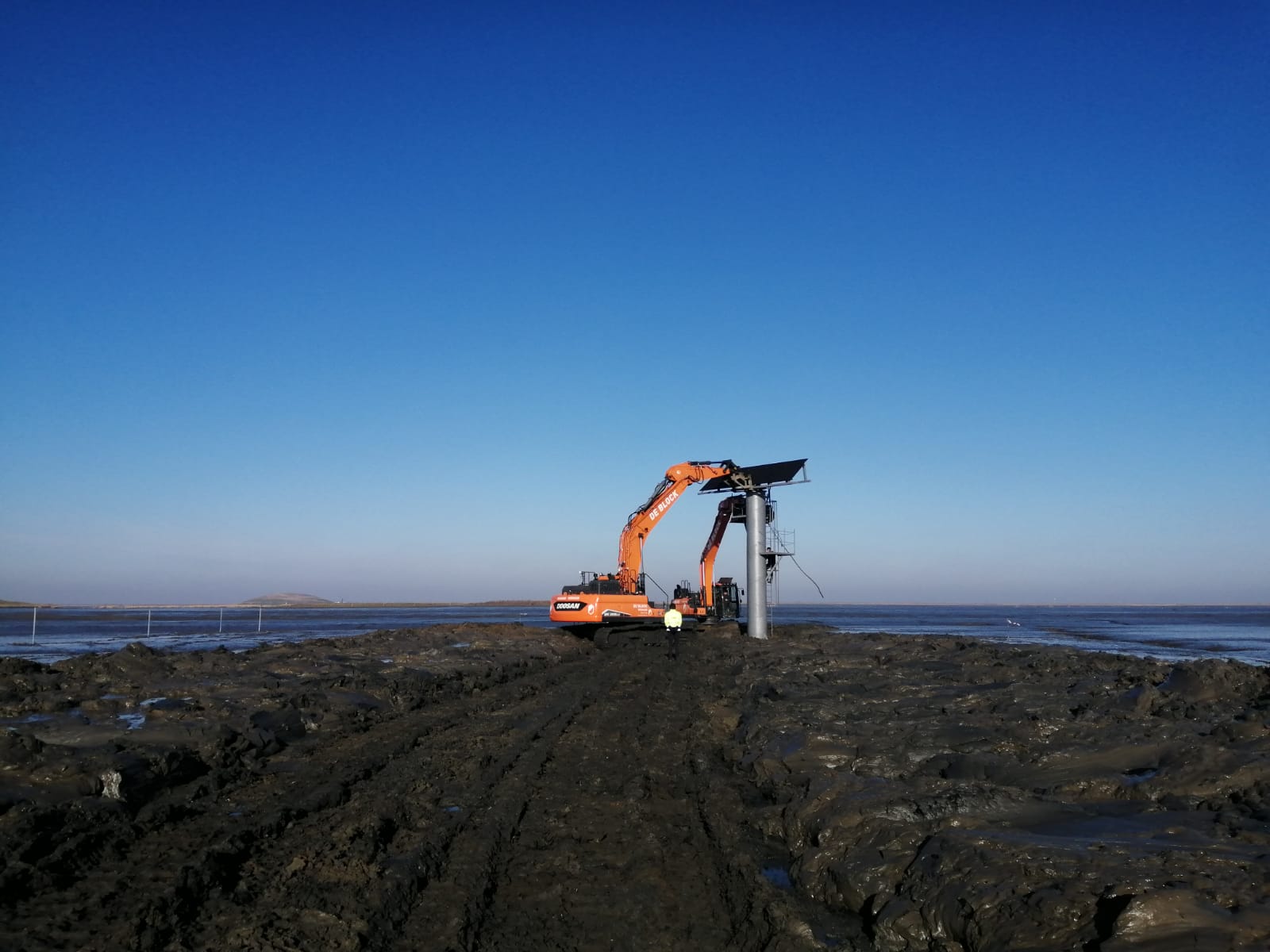
3 March 2025
The University of Antwerp proudly inaugurates a new flux station in the Hedwige Polder. This station is designed to monitor greenhouse gas exchanges and carbon storage in the recently restored wetland. The flux station will provide crucial data for understanding ecological dynamics and climate change impacts, supporting both local conservation and international research initiatives. Although the station won’t officially be part of the ICOS Belgium network, ICOS guidelines were carefully followed ensuring data compatibility.
The flux station was installed within the framework of the WETCOAST Blue Cluster project (VLAIO), with the support of Jan de Nul and the ICOS-Belgium team.
ICOS and UAntwerp: From sites to Science
7 February 2025
Today almost twenty people at University of Antwerp work at the UAntwerp-operated ICOS stations or work with the ICOS data. Researchers work on a wide variety of topics, from the installation of new stations in often challenging conditions, to in depth station analysis, cross station comparisons or atmospheric modelling.
The start of the new year and the new ICOS-Flanders funding period was the ideal opportunity to meet up and discuss recent results and upcoming research plans.
Four more years: ICOS Flanders got funded

18 December 2024
Happy to announce that ICOS Flanders has received crucial funding from the FWO. Within the framework of the international research infrastructure call, FWO granted the requested funding for the ICOS Flanders proposal “From setting the standard for greenhouse gas observations to pushing innovations at local and global scale”.
This funding not only enables ongoing operations of all seven ICOS-Flanders stations, but also reinforces ICOS-Flanders as the backbone for various research projects, enhancing collaborative climate monitoring efforts.
ICOS is looking for a new Director General
30 September 2024
ICOS ERIC is searching for a new Director General (DG). The DG is appointed by the ICOS ERIC General Assembly for a five-year term, renewable twice. The position will become available mid-to late 2025.
Could you be the next person to lead a landmark environmental Research Infrastructure? Applications are open until 30th November.
Interested? Read more about the position and apply here.
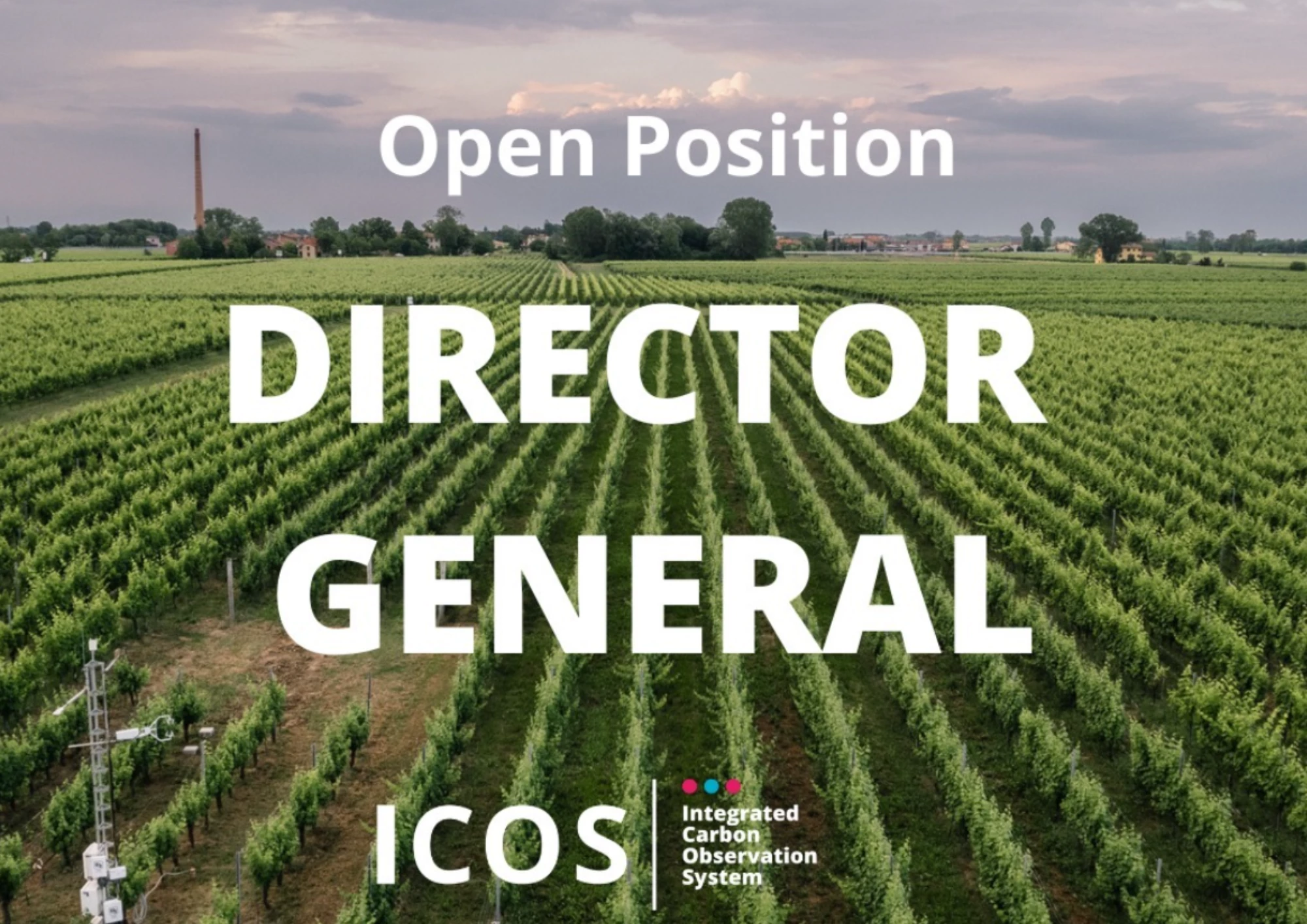
ICOS Belgium well represented at the international ICOS Science Conference in Versailles
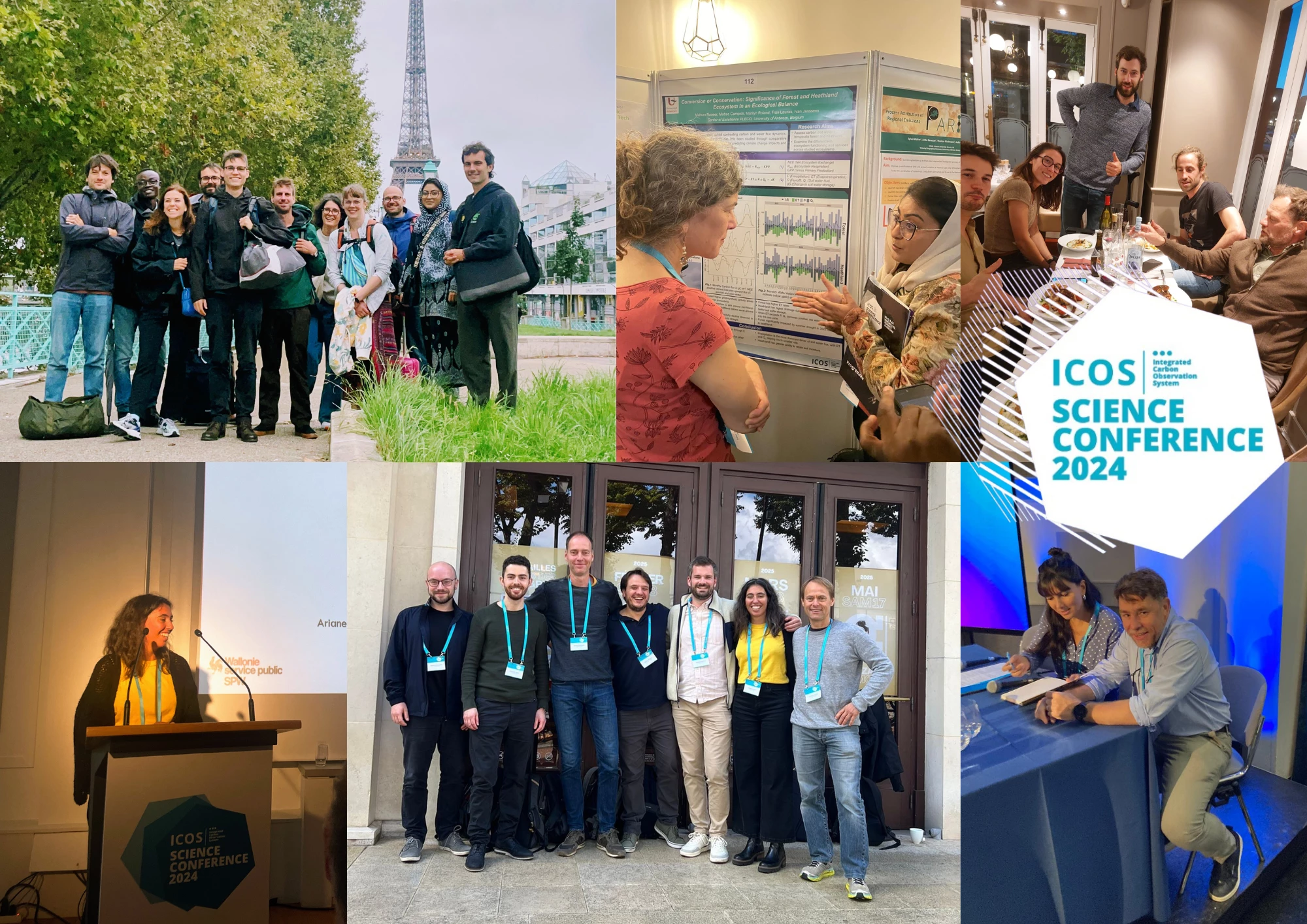
13 September 2024
ICOS Belgium was very involved in the ICOS Science Conference in Versailles, France, that was held 9 - 12 September 2024. No less than 30 ICOS Belgium team members from involved institutes participated, actively contributing to the conference's success.
Collectively, ICOS Belgium delivered 5 oral presentations, 10 poster presentations and hosted one session, demonstrating our commitment to the network and expertise in the research field.
Check out our social media posts for some fun coverage of the event:
Brasschaat awarded “ICOS Ecosystem Station of the year”
23 May 2024
The everyday efforts of the scientists at ICOS stations make a big impact on data quality. The purpose of the award was to recognize the efforts made by the individuals in the community and highlight the importance of good cooperation.
Even though the award was meant to be a symbolic affirmation of a job well done, the selection was made following careful criteria according to Dario Papale:
- The continuity of the data is very good
- There was good communication and responsiveness, which helps in the data processing
- The ancillary data collection and sampling were all done in the correct and timely way
After careful evaluation, two stations were chosen to be awarded: the Class 1 Ecosystem Brasschaat station in Belgium and the Associated Ecosystem station Rollesbroich in Germany. “These two were unanimously voted by the people in the Ecosystem Thematic Centre”, Dario Papale says.
Read the full article and interview with station PI Ivan Janssens here
"The importance of long-term measurements became clear when, as pollution became better regulated, we observed that photosynthesis gradually rose and tree growth recovered. And now the forest has to deal with dramatic climate extremes, which is our key study focus within ICOS."
"My best advice would be to bring together a team of collaborators who are not only technically competent to ensure high data quality, but also -and perhaps even especially- have the social skills to create an atmosphere where everybody likes to come to work every morning."
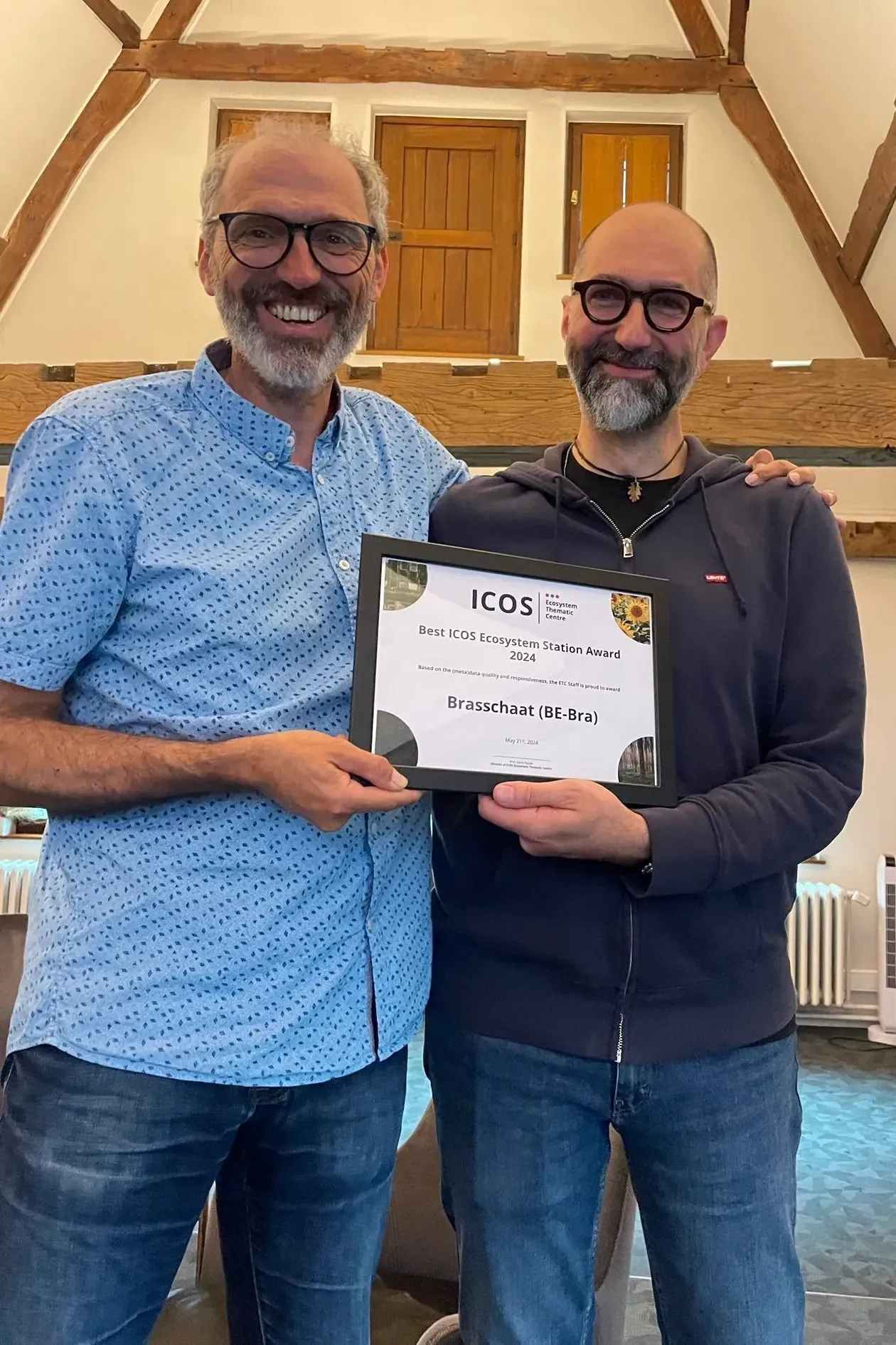
Fluxes Volume 3 out now
MRV: A critical tool for tracking emissions and accelerating climate action
3 June 2024
We need to drastically reduce our greenhouse gas emissions to avoid the worst impacts of climate change. The latest issue of FLUXES – The European Greenhouse Gas Bulletin by ICOS – sheds light on an essential tool to help decision-makers assess progress towards a net zero world: science-based Monitoring, Reporting and Verification (MRV) systems.
MRV is already well established in the UNFCCC framework with the national inventories. However, complementing national inventories –often solely based on production and commercial databases - with MRV systems, increases the power to support societies in their climate action. An objective and science-based MRV-system supports policymaking by providing actual measured data to track emission reduction pathways, integrates efforts into a global monitoring of our way to net-zero and enables evaluation of new carbon storage and capture techniques.
Annual ICOS Ecosystem Monitoring Station Meeting concluded
24 May 2024
From 21st to 23rd May the university of Antwerp hosted the annual ICOS Ecosystem Monitoring Station Meeting at the city campus. The meeting was a great success, with over 70 participants from all over Europe, representing station PI’s, the ICOS Head Office and Carbon Portal and a large delegation of the ICOS Ecosystem Thematic Centre.
The ICOS Belgium Consortium was well represented with participants from UGent, Ulg, UCL and UAntwerp. The meeting was an excellent opportunity to discuss the most recent analysis and ideas for future synthesis studies and collaborations.
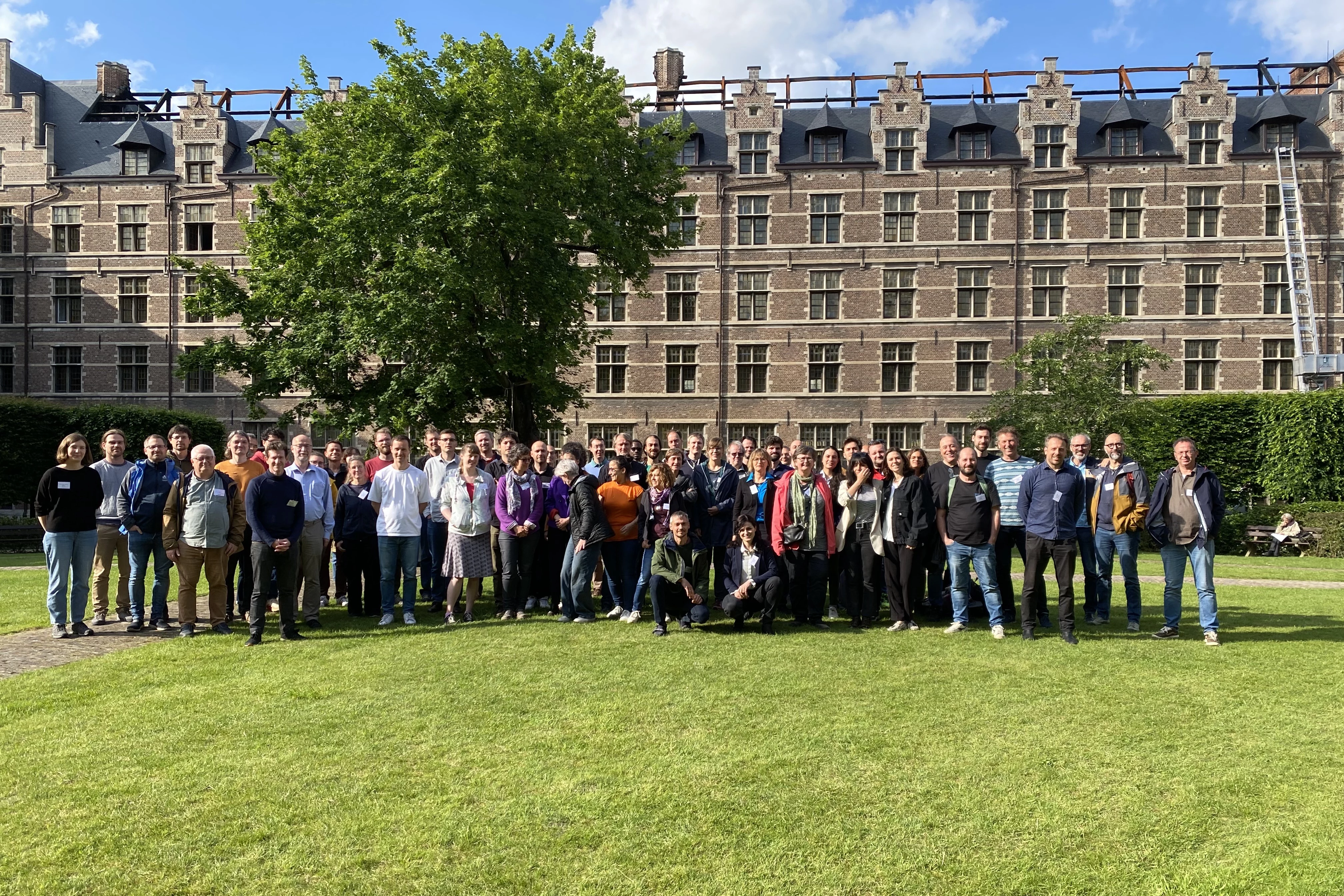
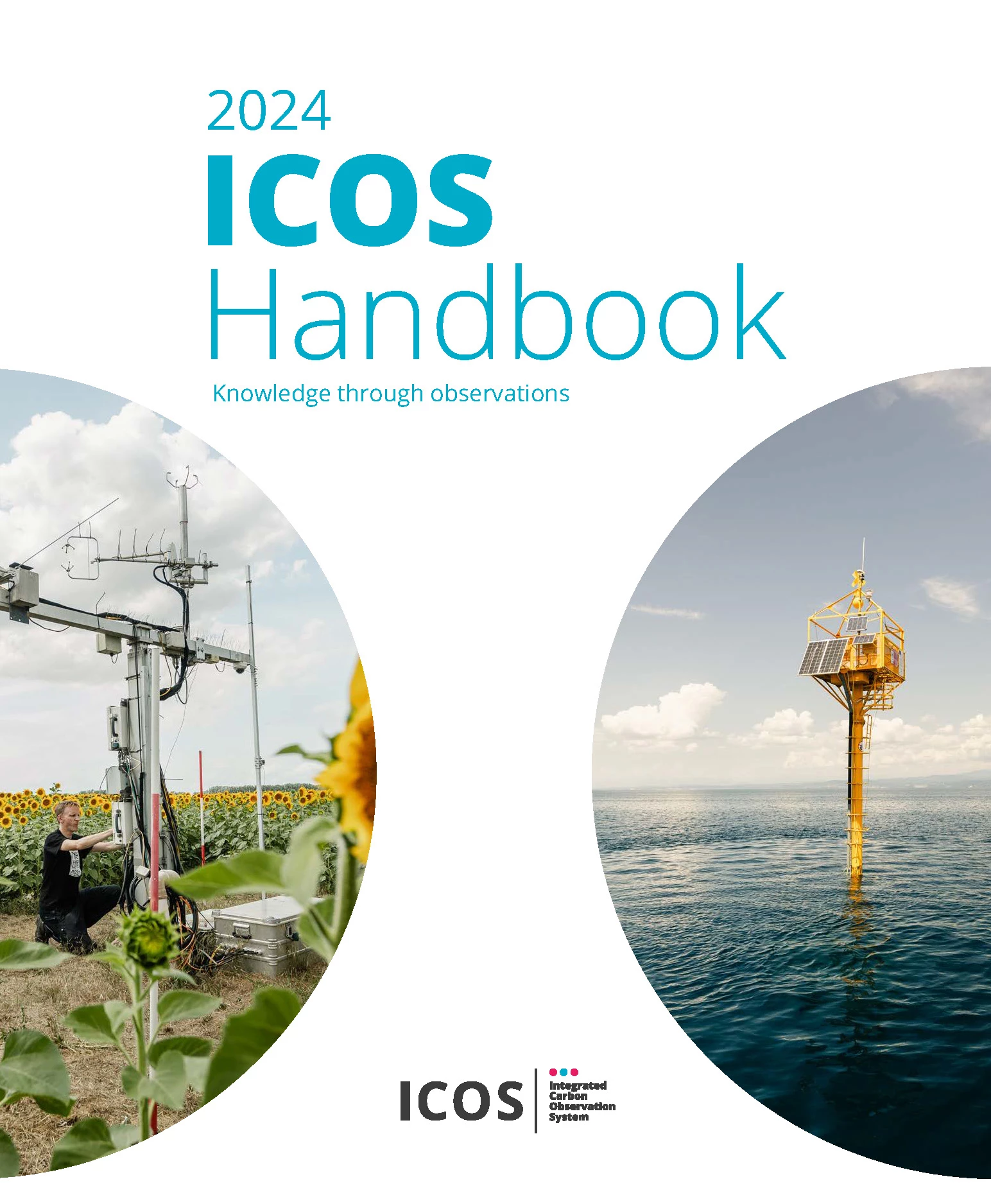
ICOS Handbook 2024 published
14 May 2024
It is our pleasure to share the news that the ICOS Handbook 2024 has been published! This is the 4th edition of the ICOS Handbook and includes the most up to date information on the research infrastructure and National Networks, showcases the new ICOS member countries and introduces all new ICOS stations.
Read the ICOS Handbook to find out more on ICOS operations from the organisational structure, measurement specifications, to the roles of the Thematic Centres and National Networks and discover the impacts of ICOS towards better science, better knowledge, and a better world.
Carbon farming from science to practice
27 Mar 2024
First interdisciplinary workshop on implementation of carbon farming in Belgium
What are the enabling and hindering factors for the adoption of carbon farming practices in grassland and cropland systems? This is the main question that has been debated on during the workshop at the Dorinne ICOS station Tuesday 27th of March 2024.
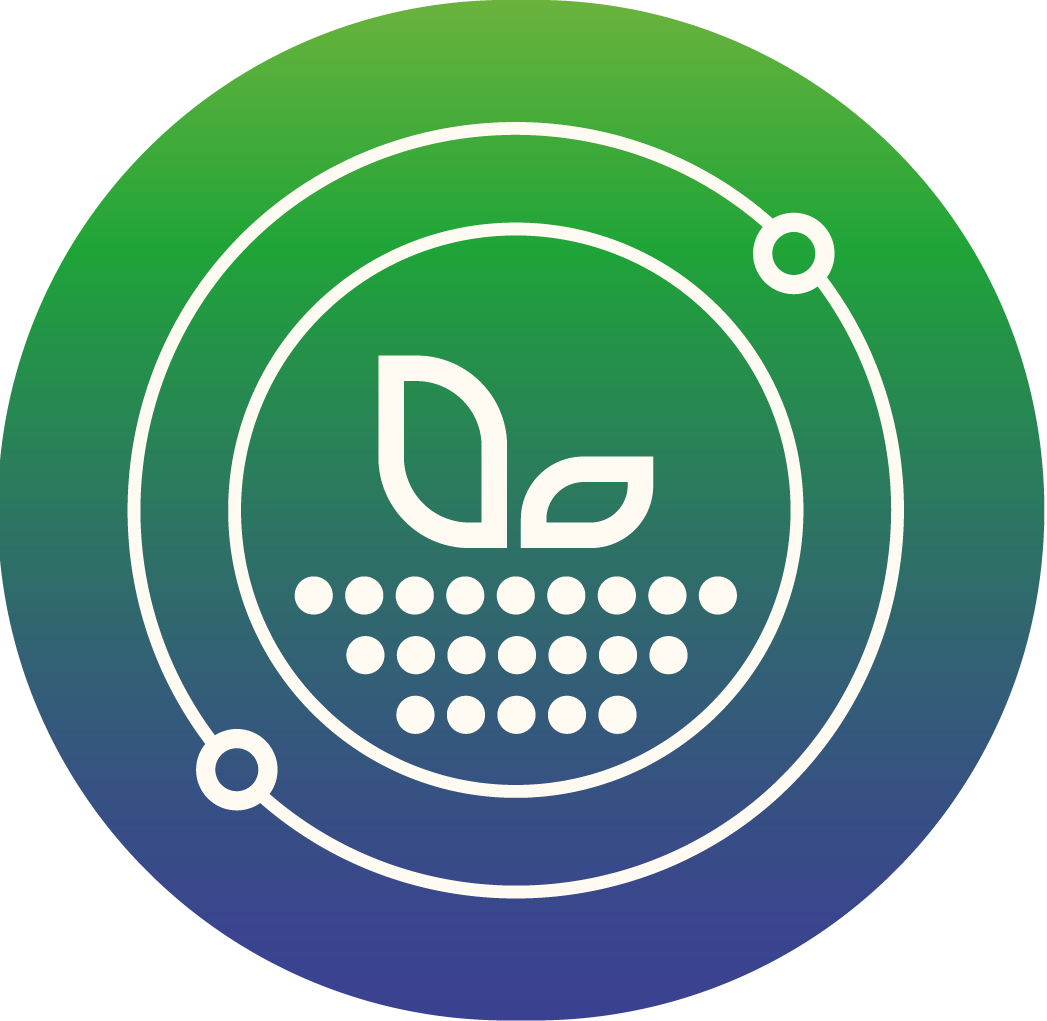
Twenty-five stakeholders, including farmers, civil servants responsible for developing tools and regulation on carbon farming, members of the associative sector who support the agricultural world and scientists, were brought together for a day of debate on this topic. This activity took place in the framework of the MRV4SOC HORIZON-Europe project that intends to develop a robust, transparent, standard, and cost-effective monitoring, reporting, and verification system to facilitate results-based payments for farming practices. The activity was organised by the ICOS ULiège group, soil scientist and economists from UCLouvain, and the Soil Capital private company.
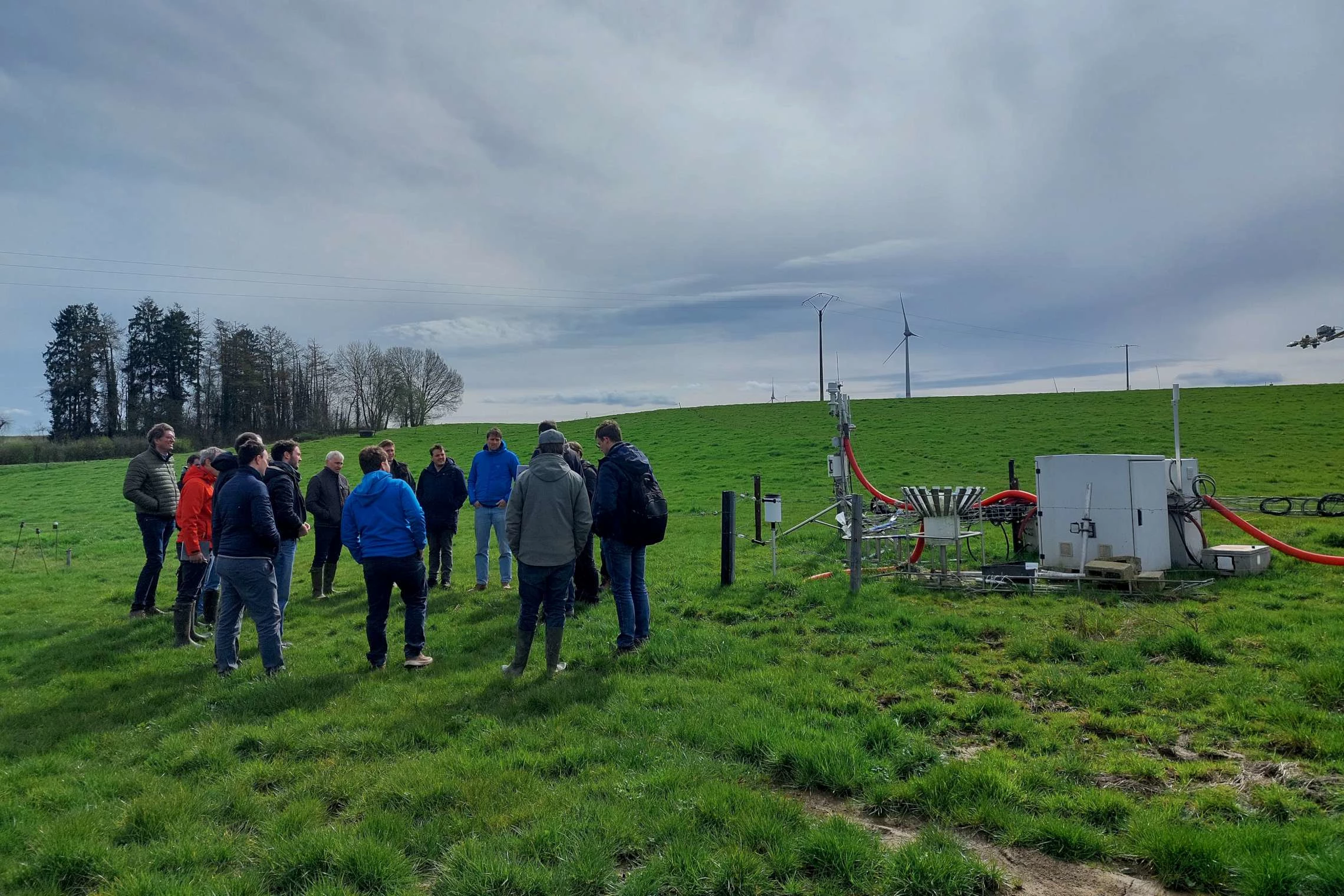
The day started with a visit of the farm and of the ICOS station, focusing on carbon farming practices that can be implemented in grasslands and crops of our region and was followed by two hours of interactive discussions on the topic. This group of people also forms the basis of a community of practice, ensuring stakeholder engagement by fostering collaboration and information dissemination. Similar workshops will also take place in Italy, Spain and the Czech Republic, allowing to identify local specificities in the adoption of carbon farming practices and the willingness to enter the voluntary carbon market.
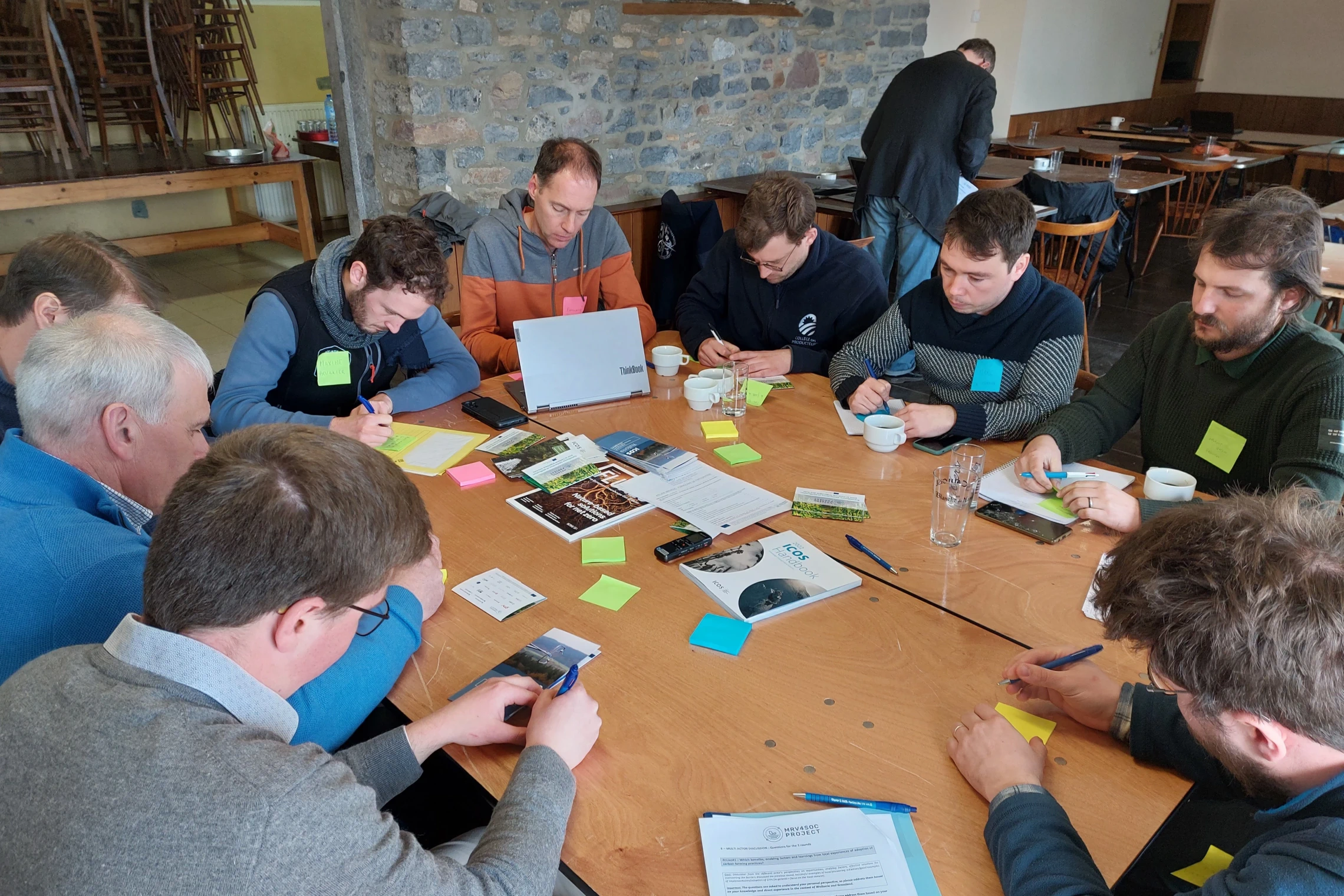
ICOS Science Conference 2024: discover the sessions and submit your abstract
1 Feb 2024
ICOS Science Conference 2024 takes place 10-12 September in Versailles Palais des Congrès, France, and online. This year’s overarching team is “From GHG observations through science to services”.
In different sessions the conference will focus on the three ICOS domains - Atmosphere, Ecosystem and Ocean – while also incorporating broader themes such as climate services, science communication and cooperation between Research Infrastructures. You can discover the complete list of the conference sessions via the website of the ICOS Science Conference.
Starting from 1 February 2024 the call for abstracts for the ICOS Science conference is now open! Select the session for which your abstract is intended and submit your abstract here. Deadline for abstract submission, is Monday 8 April 2024 at 13:00 CET. Hope to see you at the ICOS Science Conference 2024!
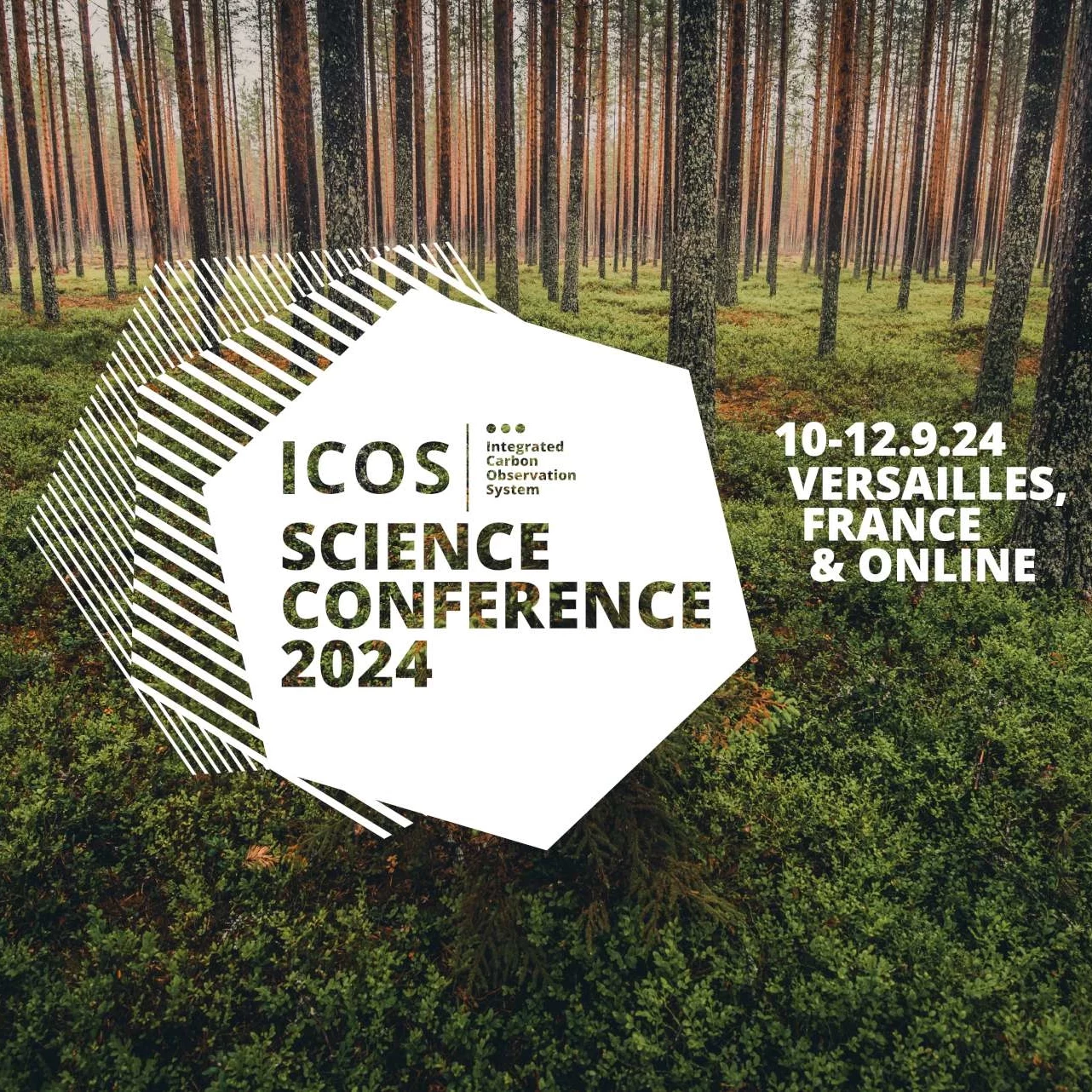
The Ostend Declaration: Ocean scientists call for increased efforts for a global surface ocean carbon observing system
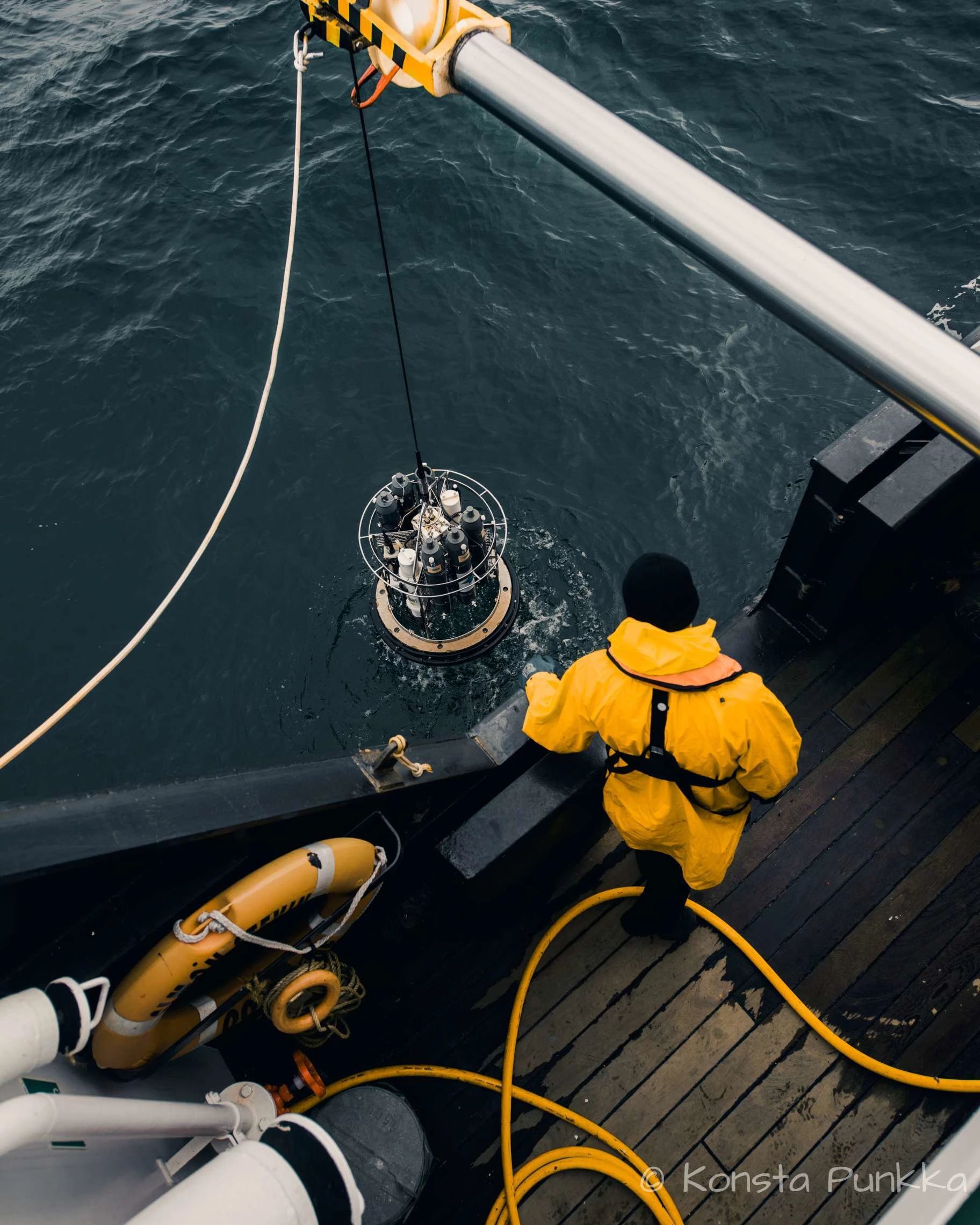
31 Jan 2024
Late last year over 100 scientists met at the Flanders Marine Institute in Ostend (Belgium) to review the status of the Surface Ocean Carbon Value Chain and decide on specific improvements to the structure, process and information sharing. Today these ocean scientists released a declaration for focused international and intergovernmental efforts to create a robust, resilient and sustainable surface ocean carbon observing system.
The ocean plays a crucial role in mitigating greater climate change by taking up 26% of the CO2 emitted worldwide. However, ocean CO2 uptake varies significantly in time and space and a large number of high-quality continuous measurements is needed to monitor and predict ocean CO2 uptake. In order to measure, store, synthesise and map ocean-related carbon parameters, ocean carbon experts have developed a multi-component system capable: the surface ocean carbon value chain.
Despite the long-standing success in delivering critical information, the surface ocean carbon value chain is configured as a loose affiliation that lacks formal integration and operates on unstable research-based funding stream. In the Ostend Declaration, the scientific community underlines the need for an integrated global ocean carbon monitoring system to increase our understanding and manage the causes of climate change.
New nature rapport of national park Hoge Kempen
19 Jan 2024
National Park Hoge Kempen proudly presents its new nature rapport. The highlight of the report is the species list of all plants and animals recently observed in the national park, but also make sure to take a closer look at the chapter on the scientific research conducted in the park, including the ICOS tower!
Order your (online) copy of the report via the website of the national park (Natuurrapport 2000-2020 Nationaal Park Hoge Kempen | Nationaal Park) and discover more about the park, it’s biodiversity and the ICOS site.
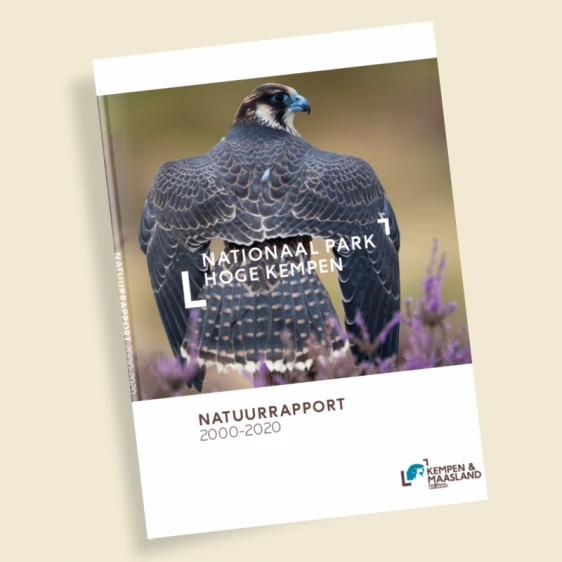
COP28 concluded

13 Dec 2023
From 30 November to 13 December over 70,000 leaders, policy makers and experts met at COP28. COP28 faced historical challenges including the approval of loss and damage fund supporting developing countries to cope with climate change effects and the transition away from fossil use.
Did you know ICOS actively participated in the last COP? ICOS (co-)organised and was invited to at no less than seven side-events. Together with other prominent scientific voices once again delivered a clear message to world leaders: a science-based approach to climate action is the only way to tackle the climate crisis.
A report on the COP28 can be found here: COP28 : un signal fort vers l’abandon du fossile (climat.be)
Global Carbon Budget 2023 published
6 Dec 2023
Although fossil CO2 emissions are falling in some regions, including Europe and the USA, overall concentrations keep increasing. The Carbon Budget of 2023 published by the Global Carbon Project points out that current actions do not suffice to prevent dangerous climate change. The report estimates that the total global CO2 emissions, will be 40.9 billion tons in 2023. This is about the same as 2022 levels, and part of a 10-year "plateau" – far from the steep reduction in emissions that is urgently needed to meet global climate targets.
"The impacts of climate change are evident all around us, but action to reduce carbon emissions from fossil fuels remains painfully slow", said Professor Pierre Friedlingstein, of Exeter’s Global Systems Institute, who led the study. "It now looks inevitable we will overshoot the 1.5°C target of the Paris Agreement, and leaders meeting at COP28 will have to agree rapid cuts in fossil fuel emissions even to keep the 2°C target alive".
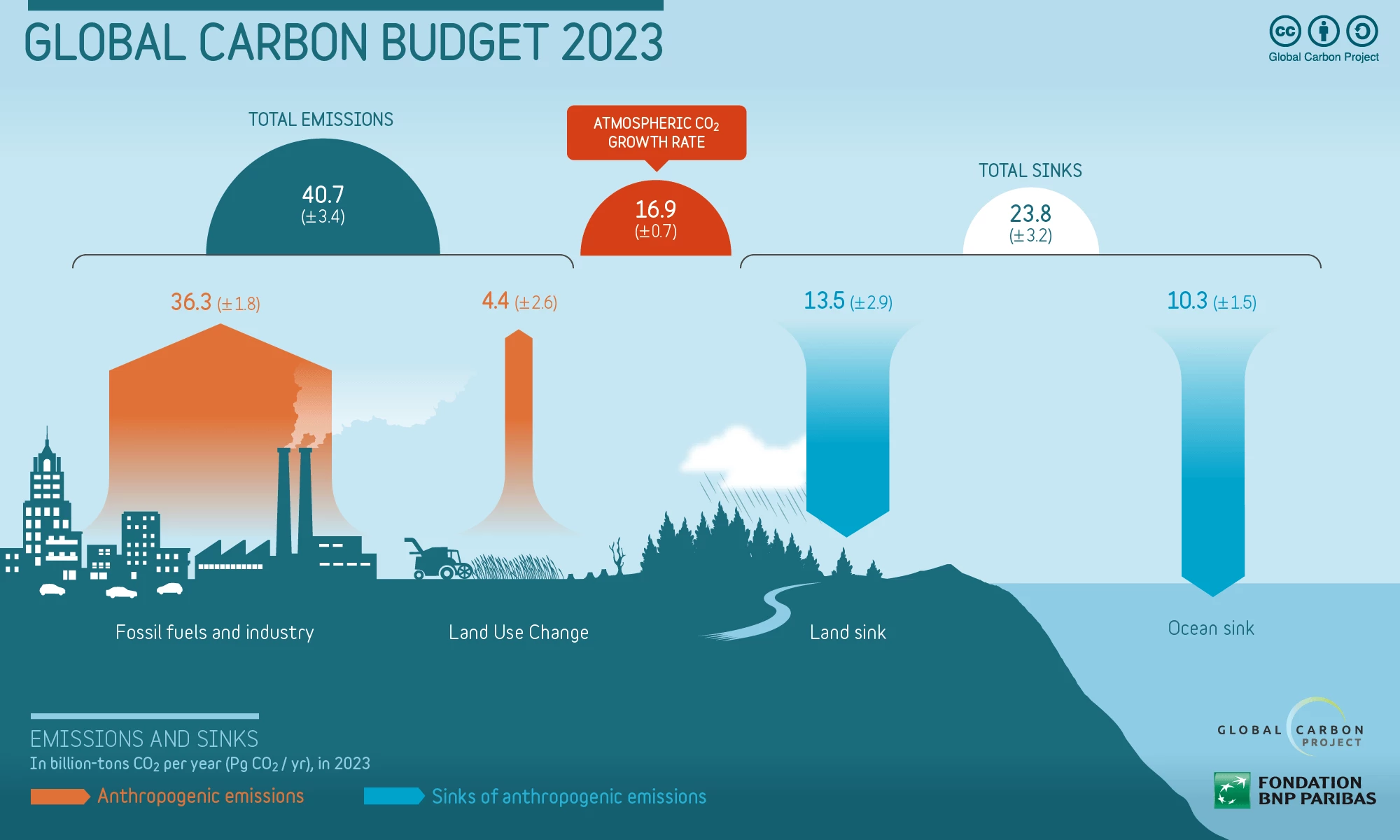
The Global Carbon Budget is produced by an international team. Over 120 scientists from 70 organizations in 18 different countries contribute to this report. Each year the carbon budget brings together many independent sources of data, including ICOS data, in order to provide a robust and scientific assessment of CO2 sources and sinks.
Read the full article here: ESSD - Global Carbon Budget 2023 (copernicus.org)
Read more on this report in the Flemish media: CO2 uit de lucht plukken met machines om klimaat te redden? Impact is voorlopig "verwaarloosbaar" | VRT NWS (in Dutch)
The second edition of FLUXES is out!
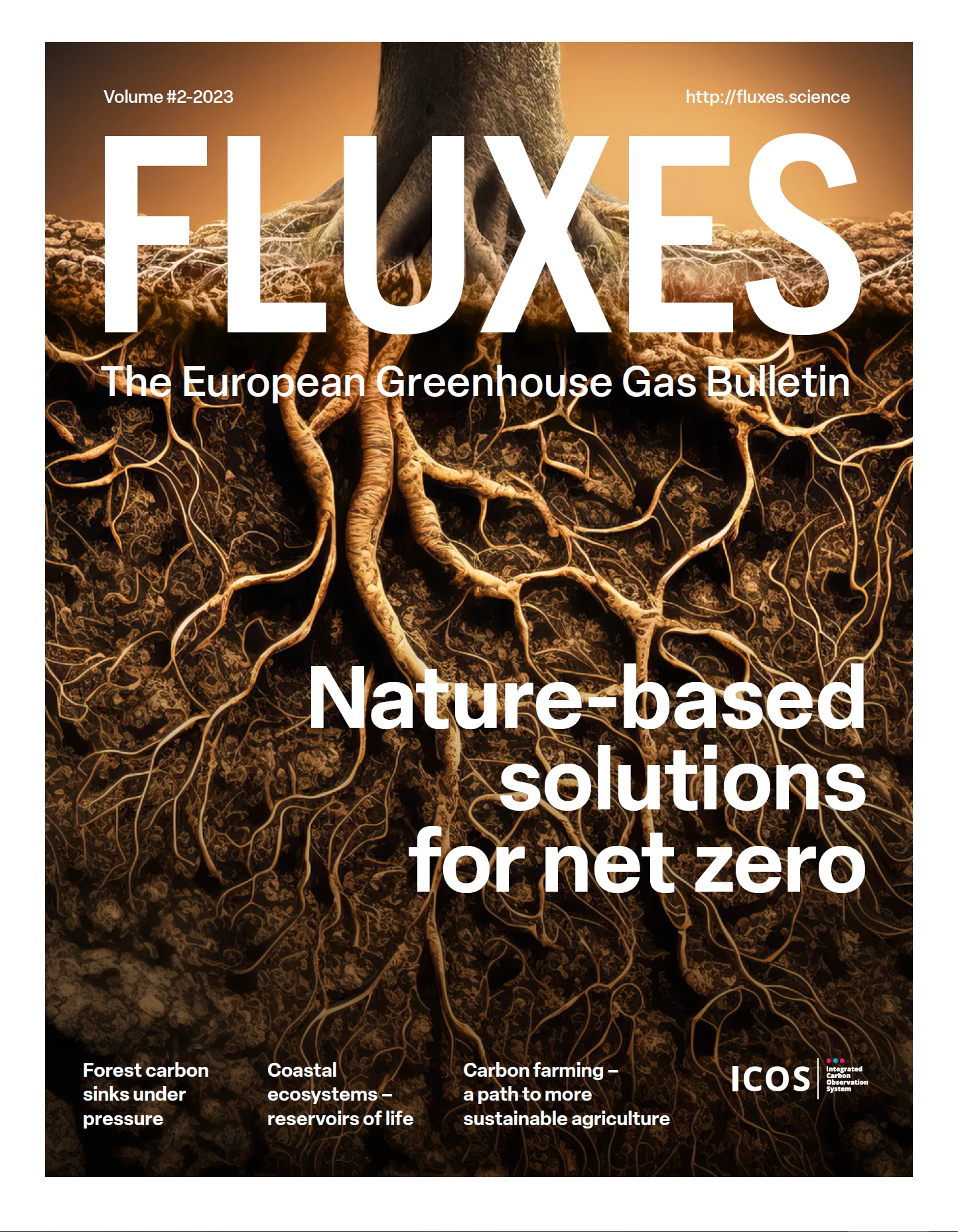
6 Jul 2023
Nature-based solutions for net zero might help, but they won’t save us
The second volume of FLUXES addresses the potential and limitations of nature-based solutions for carbon removal from a scientific perspective, focusing on land ecosystems and the ocean. In this edition European climate scientists warn against placing too much trust in the ability of nature’s carbon sinks to save us from climate change.
“The carbon sinks both on land and ocean ecosystems are important, but vulnerable”, says Werner Kutsch, Director General of ICOS. “These sinks have suffered over the years, and still continue to suffer from human actions . Climate change further decreases the ability of the sinks to take up and store carbon. Reducing fossil fuel use to zero in the next few years is the only option”.
Also Ivan Janssens from ICOS Belgium participated in this edition, providing more insights in enhanced carbon storage in agricultural soils through carbon farming. “Carbon farming has tremendous potential. If we manage to increase the agricultural soil carbon stocks, this would not only be beneficial for the climate, but also positively affect the soil water retention capacity and biodiversity”.
FLUXES, the European Greenhouse Gas Bulletin, is a publication by ICOS which aims at highlighting climate issues to an audience of policymakers, policy advisors, and climate journalists.
ICOS Belgium and University of Antwerp are hiring a new PhD student
14 Jun 2023
Natural ecosystems are currently absorbing almost half of the CO2 emitted by humans, but this service is increasingly compromised by climate change. ICOS Belgium is hiring a PhD student who will dig deeper in the carbon and water balances of two existing ICOS-BE sites, Maasmechelen (heathland) and Brasschaat (forest), and the new site in Westmalle (carbon farming).
We are looking for a student with a MSc degree in Biology, Bio-engineering, Physics, Mathematics or Informatics. In addition to tons of motivation, an interest in climate (change) and ecosystems, the student should also have some experience with programming and shouldn’t be too afraid of large datasets.
Make sure to read more or apply via the website of the University of Antwerp. You can apply for this vacancy up to July 12th 2023.

RV Belgica is ready for its biggest expedition so far
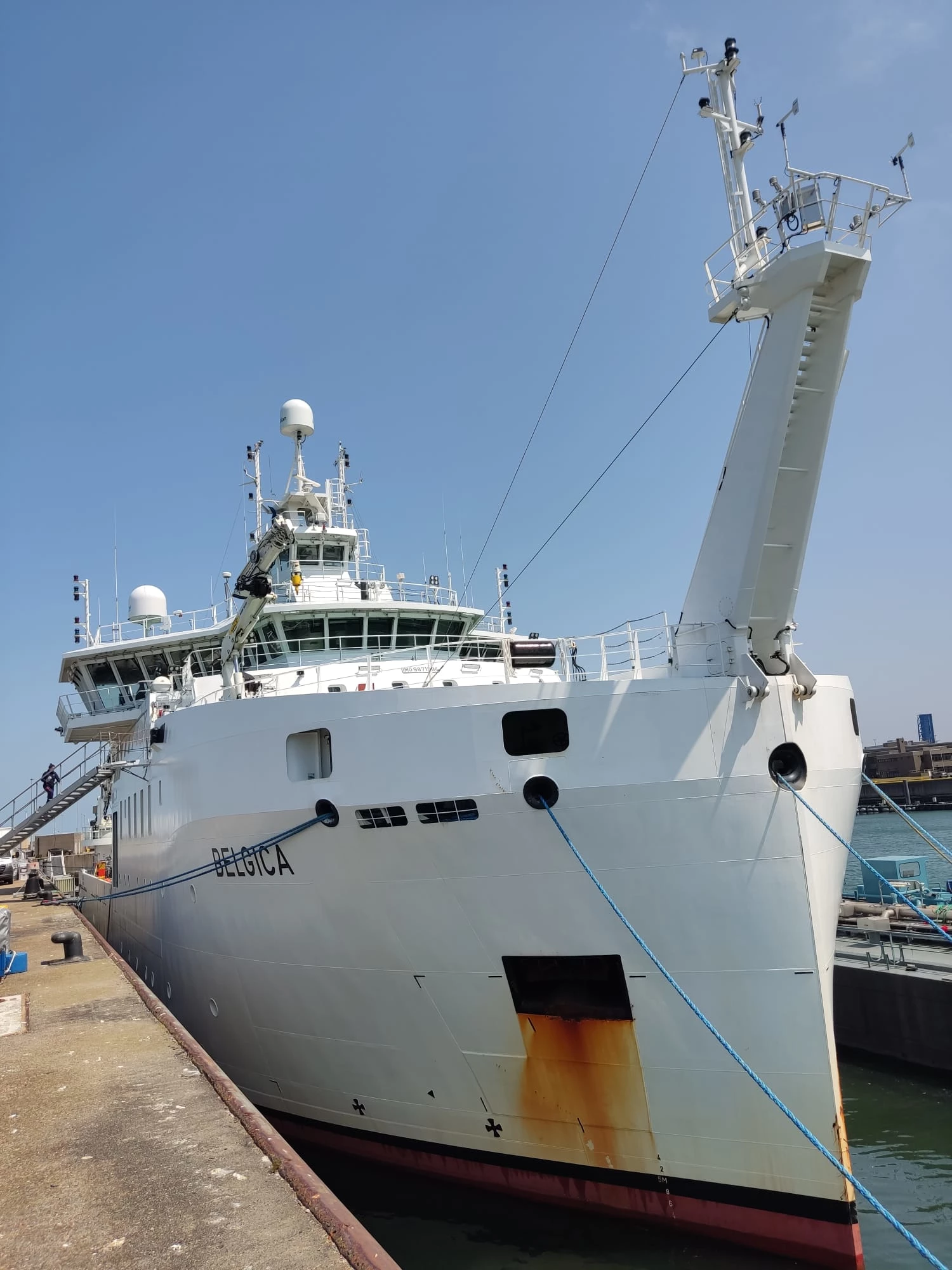
6 Jun 2023
R.V. Belgica left the port of Zeebrugge for a two month scientific adventure to over Ireland to the arctic areas of Iceland and Greenland. This will be the longest voyages of the R.V. Belgica so far! Days before the departure scientist were busy making sure to pack all needed equipment (and some more) for all planned experiments and sampling sessions. On board also ICOS researchers from VLIZ. They packed, amongst other things, three large lab instruments for measurements of dissolved organic carbon and total alkalinity in the sea water amongst the unique trajectory. Fun fact: In order for all instruments to run smoothly VLIZ scientists had to reconnect over 20 meter of tubing on board of the ship.
Day of loading reporters from VRT nws and RTBF were present to film and interview (ICOS) scientist on their plans. In case you missed it, you can rewatch the reportage from VRT NWS in Flemish (check 42:30 – 45:04) or RTBF in French.
For regular updates on the cruise make sure to follow @ICOSBeglium and @HowBigIsBelgica.be
Fair winds for R.V. Belgica, it’s crew and it’s scientist!
ICOS-BE Science conference: from science to impact
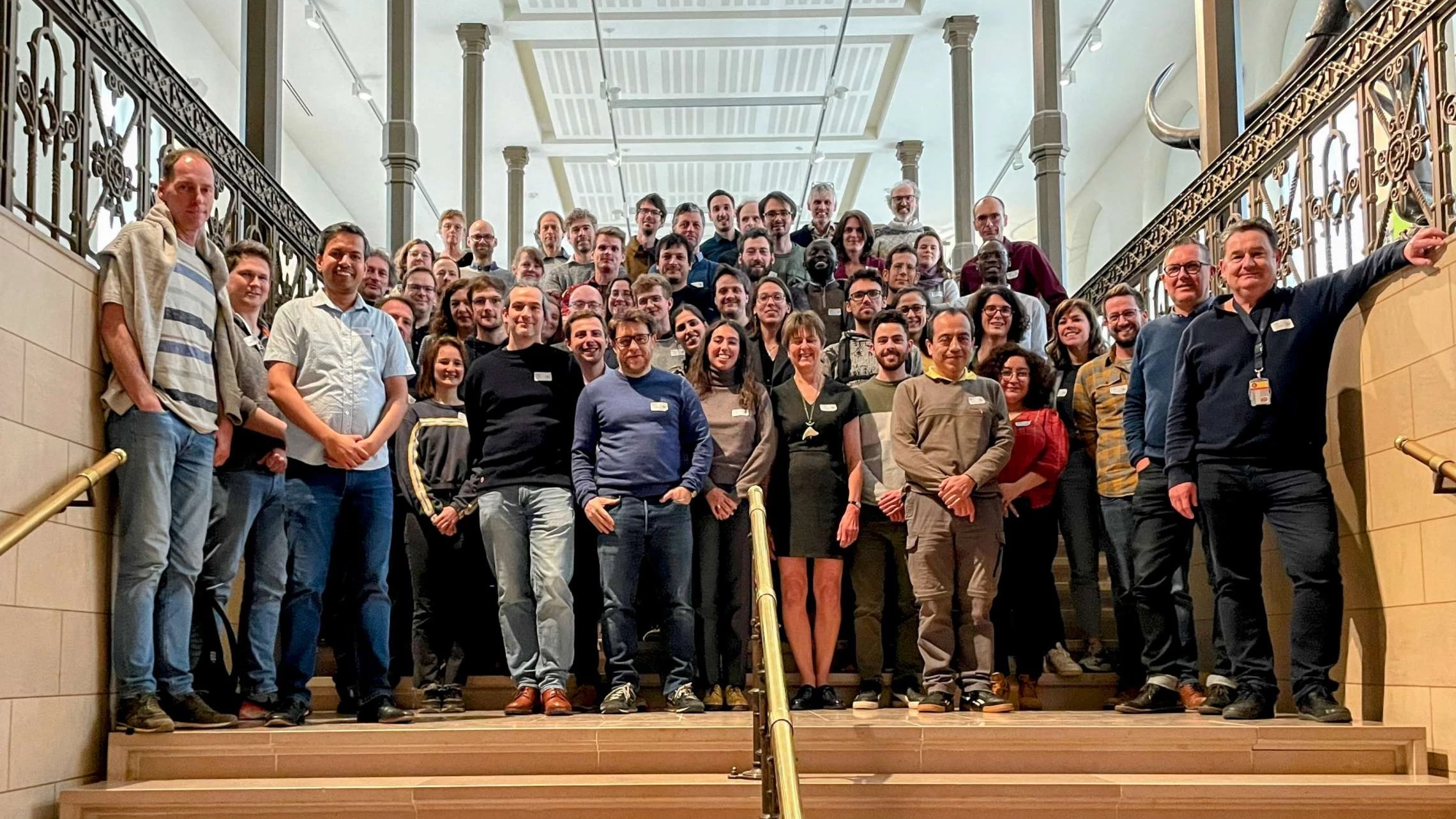
20 Apr 2023
On 20 April 2023 the Royal Science Museum in Brussels and the Royal Belgian Institute for Space Aeronomy hosted the forth ICOS Belgium science conference. The conference was visited by 61 researchers and stakeholders from a wide variety of institutes. Many of the represented institutes are active participants in our ICOS Belgium network, but we were also happy to welcome people from outside our ICOS national network especially as this conference focused on the evolution from data collection to impacting scientific development and policy making.
Researchers from ICOS sites presented their most recent results, thereby providing latest updates regarding data collection of atmospheric greenhouse gas concentrations and flux measurements in terrestrial ecosystems and the North Sea. Also the different opportunities to use existing facilities at ICOS Belgium sites was emphasized. Presentations underlined that ICOS Belgium sites are hotspots for a wide range of research fields, including validation of different remote sensing techniques.
Colleagues from the ICOS network in the Netherlands presented their intensive and elaborate measuring campaigns in the city of Rotterdam and gave more insights on how they tackle science and climate communication. Speakers from two other research infrastructures, AnaEE and LifeWatch, gave an interesting insight on their ongoing activities in order to open discussion on possible future collaborations.
Valerie Trouet from the Belgian Climate Center elaborated on their future plans and goals in order to support climate researchers and optimize interactions between climate researchers, policy makers and industry. Maria Berdahl from the European Commission gave more insights on the structure and services of the Copernicus program.
Discover all presentations and posters on the conference website
We would like to thanks all presenters for their contributions and everyone attending for the interesting discussions. Finally we would like to thank RBINS for hosting and BIRA for the organization of this conference. See you again in 2025!
The Ecosystem Stations Dorinne and Yangambi receive ICOS label
25 Nov 2022
After passing a rigorous quality assurance process, 10 new measurement stations have received the status of an ICOS labelled station. Station labelling is one of the key ways ICOS keeps the quality of its data high and ensures its usability in climate research. To receive the label of a standardised greenhouse gas measurement station, all ICOS stations have to pass a demanding standardisation and quality control programme. Data from labelled stations is regularly monitored to maintain the best possible quality.
Two of the ten measuring stations that received their ICOS label are (co-)operated by a Belgium research institute. The grassland station in Dorinne operated by Liège University is now labelled as a class 2 measuring site. The Yangambi station, operated by Ghent University and the Research Center of Yangambi, is now the first official associated ICOS site in the Congo Basin.
Congratulations to everyone who put in the hard work to make this possible!
Global Carbon Budget 2022
11 Nov 2022
The Global Carbon Budget of 2022 reveals global carbon emissions remain at record levels and so far there is no sign of the much needed decrease that is essential to limit warming to 1.5 °C. The Global Carbon Budget estimates a total global CO2 emissions of 40.6 billion tonnes (GtCO2) in 2022. These CO2 emissions are mostly caused by the combustion of fossil fuels as these emissions are projected to rise 1.0% compared to 2021, reaching 36.6 GtCO2 – slightly above the 2019 pre-COVID-19 levels.
In addition to measuring global CO2 emissions, it is also crucial to estimate the potential of land and ocean sinks to absorb and store carbon under changing climate conditions. Researchers from VLIZ (the Flanders Marine Institute) have made an important contribution to quantifying ocean CO2 uptake. For this VLIZ uses the ICOS infrastructure that provides measurements of CO2 uptake in the Belgian coast. "The Global Carbon Budget shows that the ocean is one of our greatest allies in combating climate change," says Dr Peter Landschützer Research Director at VLIZ, "However, we are already detecting negative effects of a changing climate on the ocean. Increased uptake of CO2 is acidifying the ocean, and ocean heat waves due to climate change are already leaving their mark."
Want to know more about the Global Carbon Budget? Each year an international team of more than 100 scientist develop and publish a complete picture of the global carbon cycle and budget of the past year: this is called the Global Carbon Budget. The Carbon Budget provides an annual, peer-reviewed update that can be used to support the political debate and action .
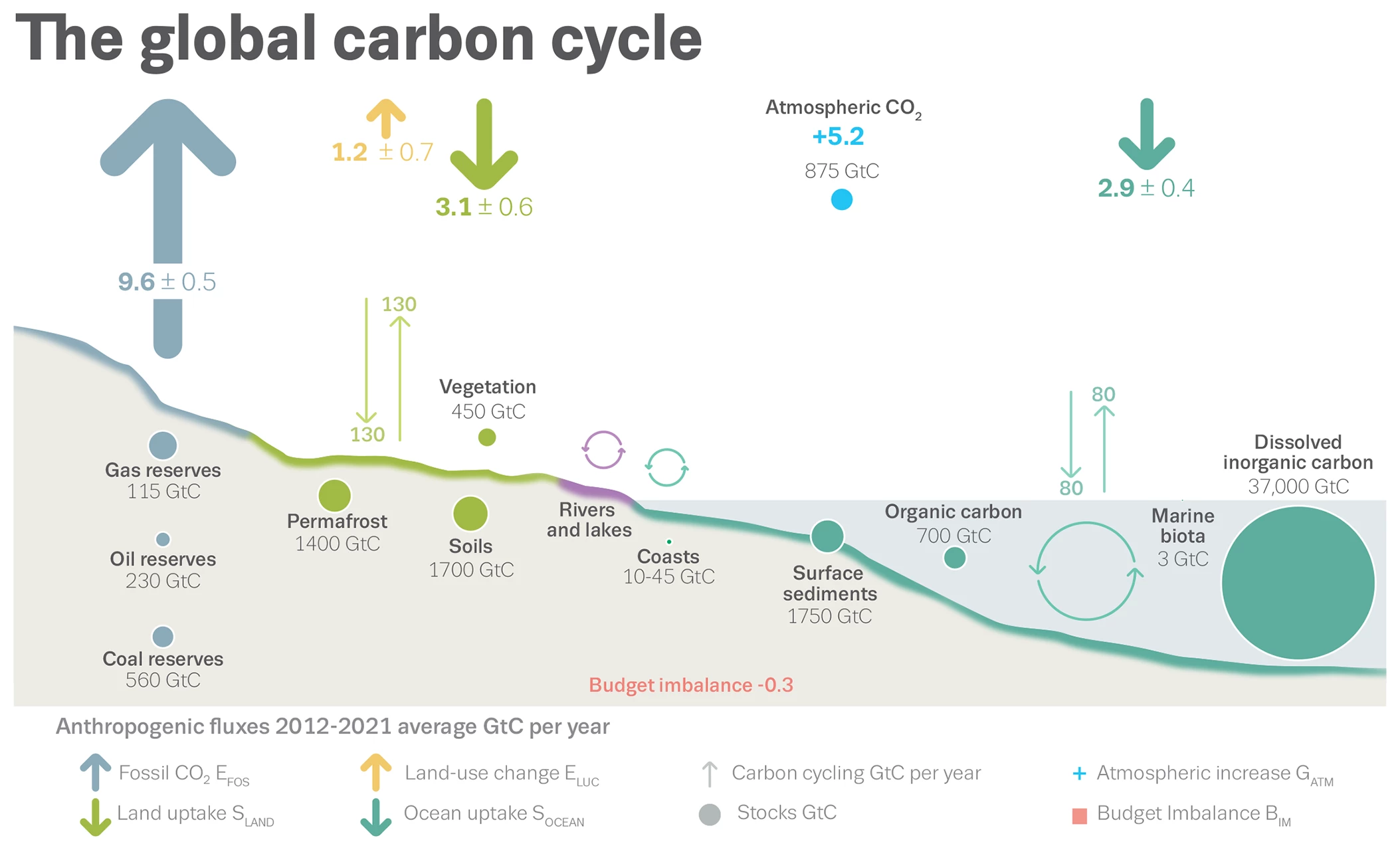
Read the full article here: ESSD - Global Carbon Budget 2022 (copernicus.org)
Or download the article on the Global Carbon Budget website: https://globalcarbonbudget.org
This is also mentioned in the flemisch press: https://www.vrt.be/vrtnws/nl/2022/11/11/wereldwijde-co2-uitstoot-blijft-verder-stijgen-ondanks-overstr/
ICOS detects methane peaks after Nord Stream leak
Due to the damage to the Nord Stream gas lines in the Baltic Sea, an enormous amount of methane gas has been released into the atmosphere. Methane is one of the strongest greenhouse gases. In a period of 100 years, it warms the atmosphere about 30 times more than carbon dioxide. The leak is probably one of the largest methane leaks ever detected and is estimated to equal the size of a whole year's methane emissions for a city the size of Paris.
The methane emissions are confirmed by ICOS ground-based observations from several stations in Sweden, Norway, and Finland. Observation satellites were most probably not able to see the emission leaks, because the weather was cloudy. “These observations underline the benefits of a standardised, large network, enabling quick and reliable detection of unexpected greenhouse gas increases or decreases”, says Director General of ICOS, Werner Kutsch.
Read more:
- ICOS measurements show huge methane peaks in the atmosphere after Nord Stream leak | ICOS (icos-cp.eu)
- Gaspijpleiding Nord Stream 2 lekt niet meer, maar lekkages veroorzaakten wel "enorme methaanpieken" in de atmosfeer | VRT NWS: nieuws (Dutch only)
13 - 15 September 2022 – The fifth ICOS Science Conference tracks the progress to carbon neutrality
From 13 to 15 September the fifth ICOS Science conference took place in Utrecht. The overarching theme of the conference was "Tracking progress to carbon neutrality”. With over 400 attendees this conference was the largest ICOS Conference so far. Also the ICOS Belgium team was well represented, with attendees from all partner institutions.
The conference was an ideal opportunity for master and PhD students and post-doc researchers to present the work they have been doing with ICOS data. But even more so, the conference was the perfect location for interesting discussions, discovering new measuring sites, meeting each other for the first time, or seeing each other again after a long time. A big congratulations for the head office, the organising committee and all presenters for making the fifth edition a success. Looking forward to seeing you again in 2024!
Do you want to know more about the topics discussed during the conference? Make sure to check the book of abstracts.
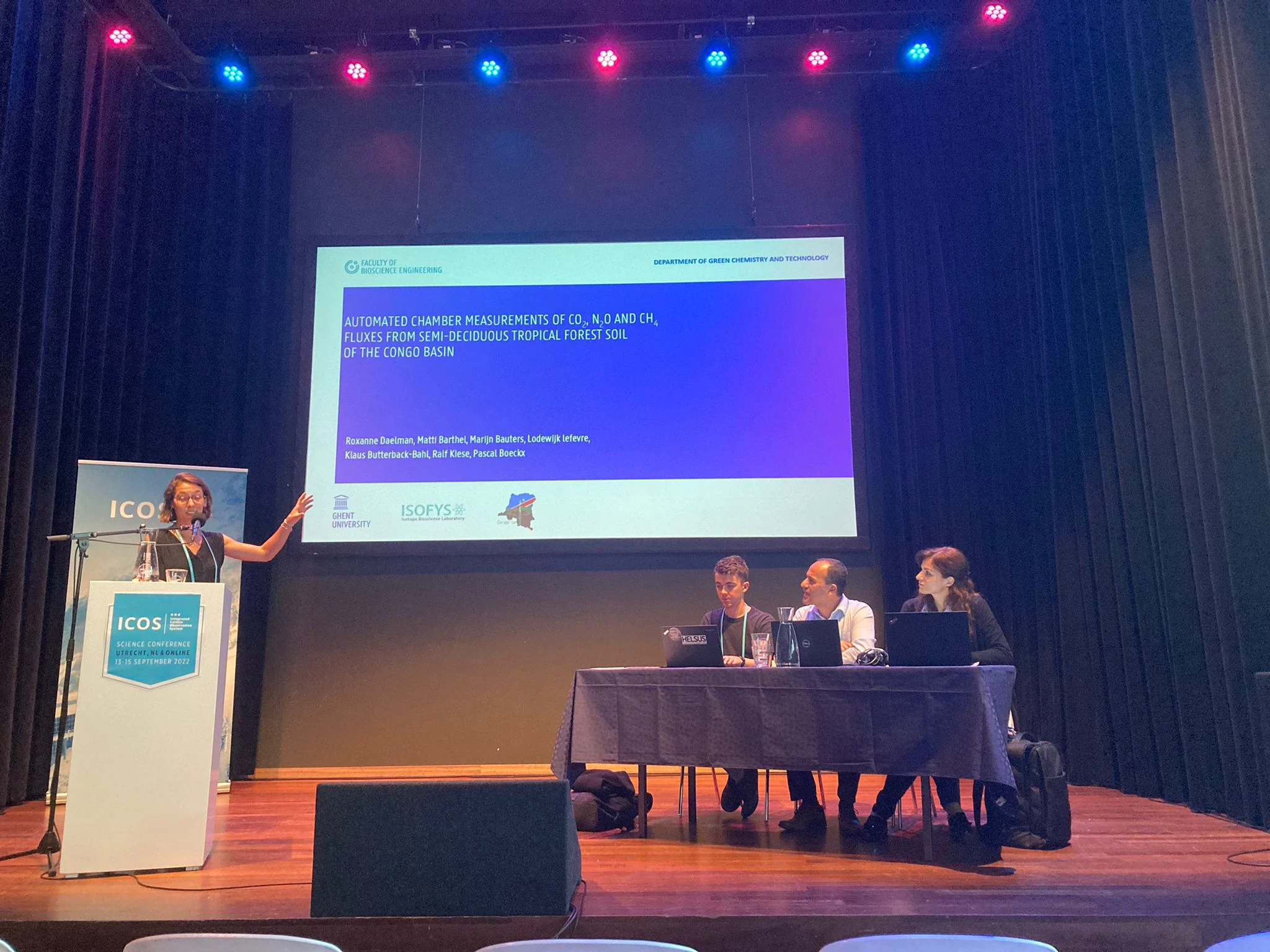
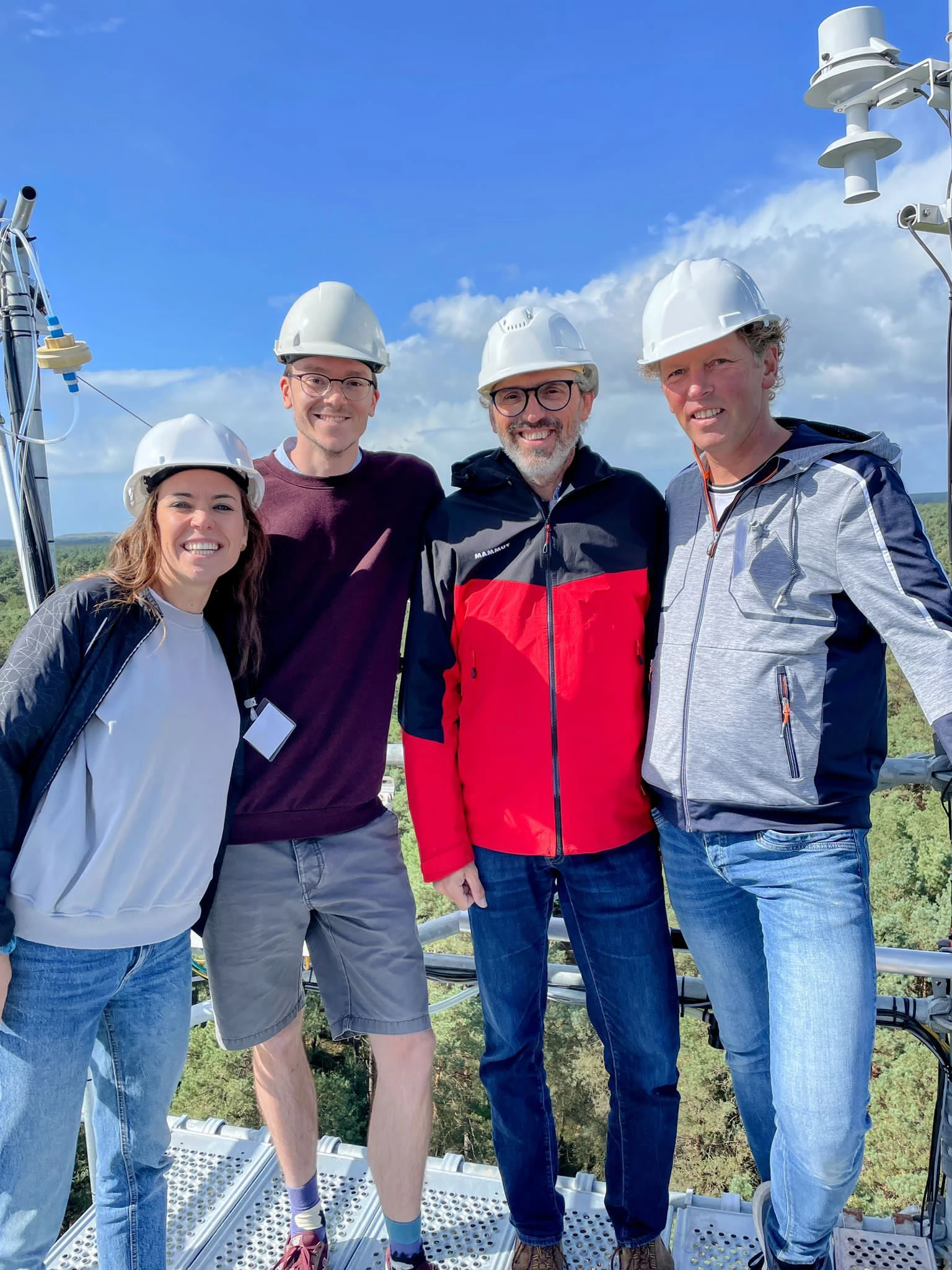
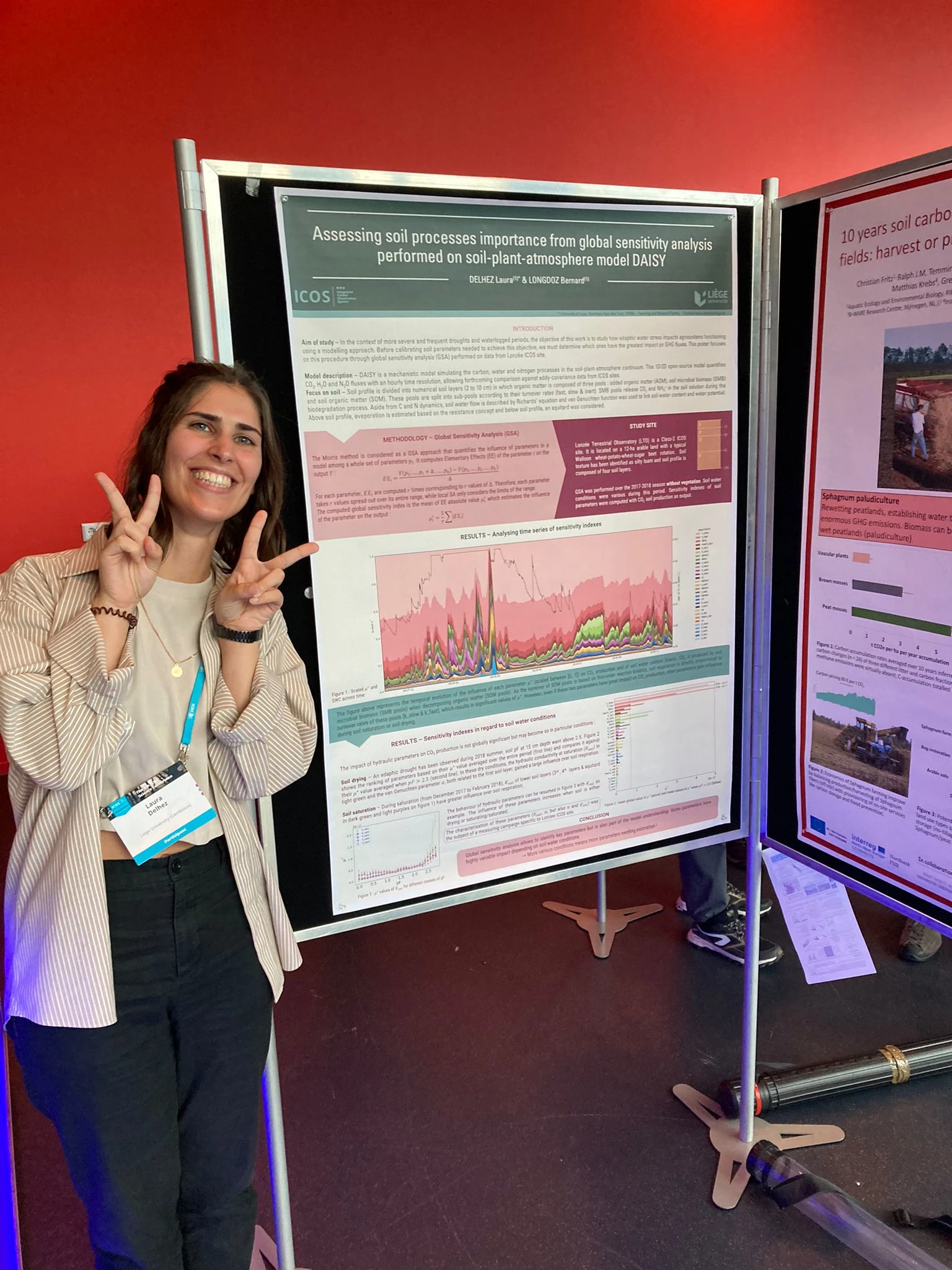
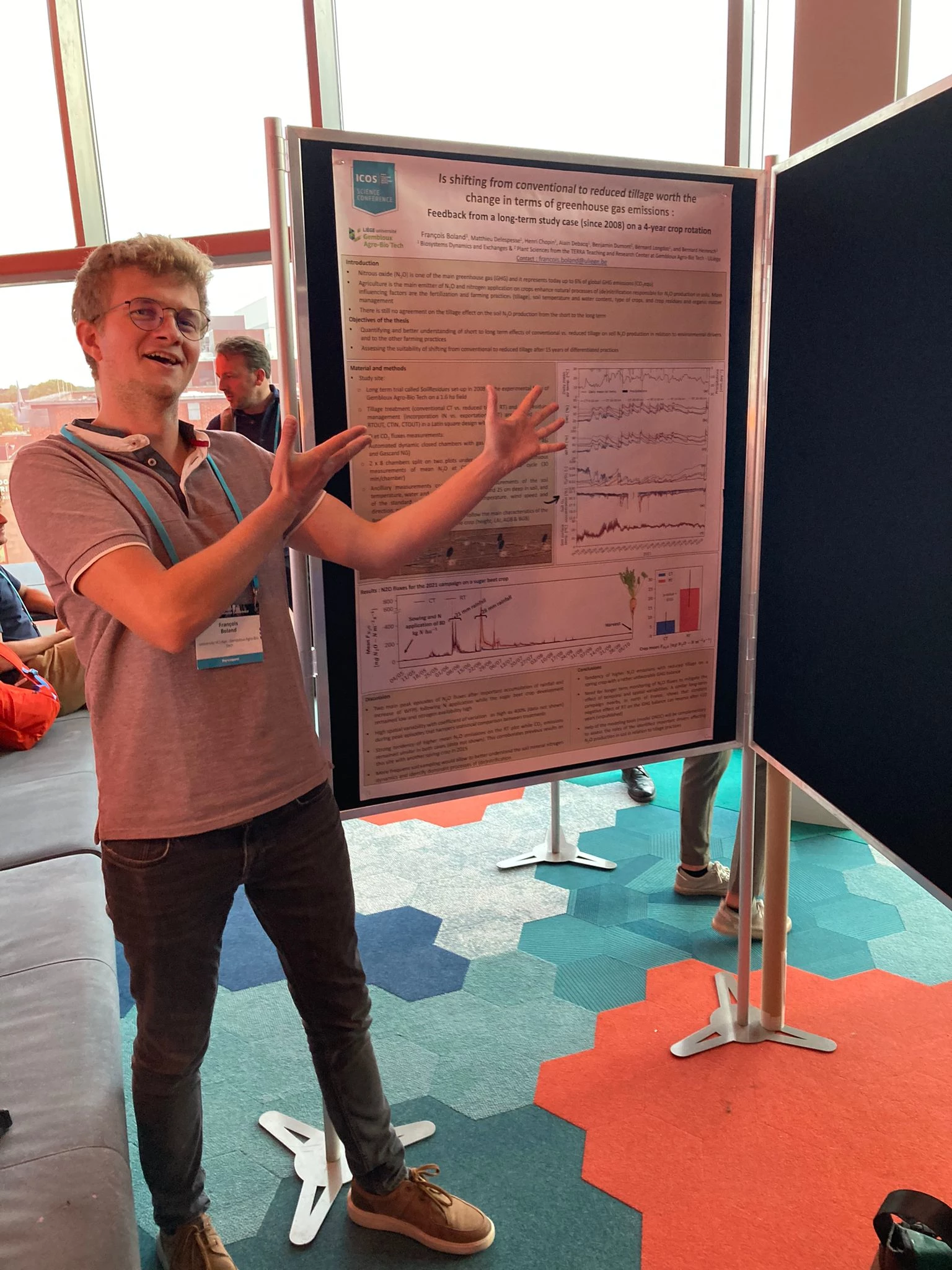
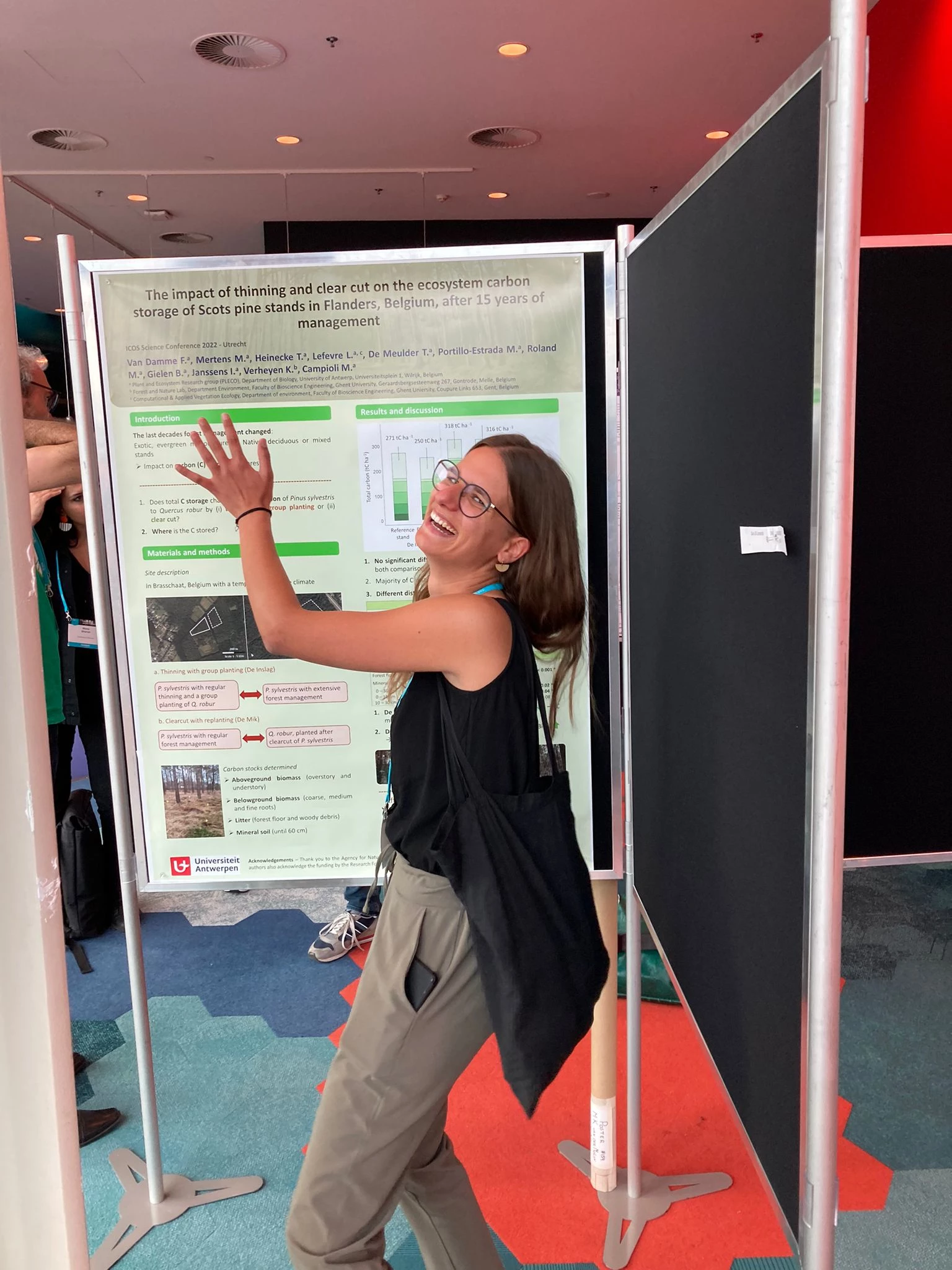
COP27 preparation meeting - Kinshasa (Democratic Republic of Congo)
In preparation of the COP27 (the annual United Nations Climate Conference taking place early November), environment ministers and high-ranking emissaries of fifty countries meet in Kinshasa. For two days, they will discuss critical climate issues. This to facilitate decision making during the actual COP meeting that will take place in Sharm-el-Sheikh early November. With the organisation of both the COP and pre-COP on the African Continent, officials hope to confront rich and polluting countries with their (historic) responsibilities and reinforce the demand for climate justice.
DRC also takes advantage of the pre-COP to present itself as a "solution country", as over 160 million hectares of its territory is covered with tropical rainforest. This Congo Basin is a "green lung" capable of absorbing carbon and contributing to the fight against climate change. To underline its importance, the Yangambi Biosphere Reserve, located in the heart of the Congo Basin and home of the ICOS tower, was the setting an international scientific conference organised in September 2022 by the government in context of the pre-COP. The conference focussed on the contributions of tropical forests to the fight against climate change. Scientists and officials met under the Flux tower highlighting the position of the DRC as the first lung of the planet and in the forefront of scientific research on climate change.
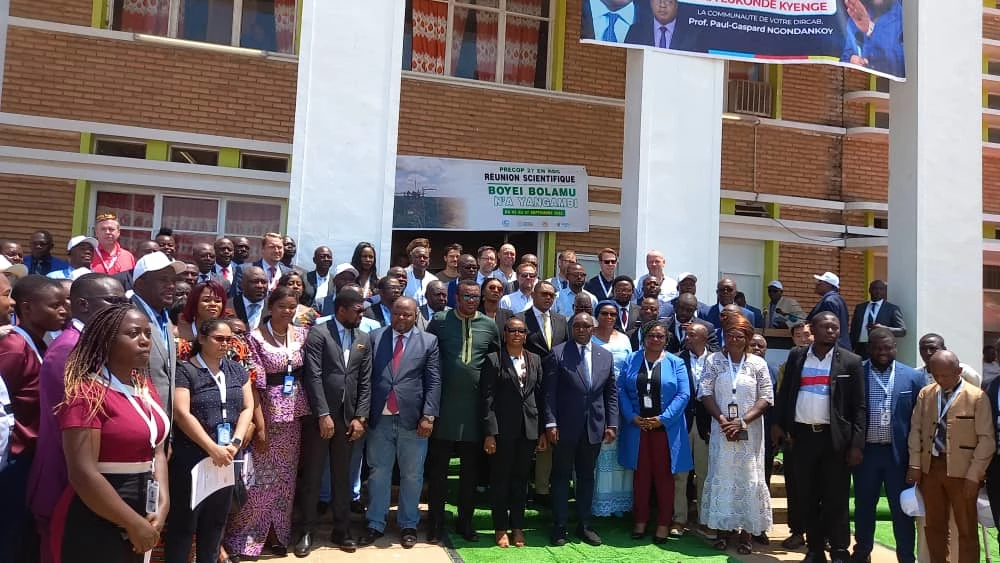
First volume of FLUXES, the European Greenhouse Gas Bulletin published
On 1 September the first volume of FLUXES, the European Greenhouse Gas Bulletin, was published. This new ICOS bulletin aims to highlight climate issues to an audience of policymakers, policy advisors and journalists. In the first volume, FLUXES focusses on the regional and year-over-year changes in carbon sinks over Europe.
In the bulletin a large team of ICOS researchers shows that our natural carbon sinks, such as our oceans and forest, are becoming more vulnerable due to effects of climate change. As a result of the increasing frequency of droughts, heat waves, forest fires, or floods, some natural carbon sinks can even turn into carbon sources. “We usually rely on natural sinks as our stable allies when it comes to absorbing the fossil fuel emissions,” says Dr Werner Kutsch, Director-General of ICOS. “Unfortunately, they are not! This directly threatens the course to maintain the 1.5°C goal”.
Also Belgian ICOS scientists contributed to the ICOS bulletin. “Our North Sea is doing its part to sequester carbon from the air, but it is clearly becoming more difficult to store CO2 during warm summers,” says Thanos Gkritzalis (VLIZ). Bert Gielen of the University of Antwerp, “Also on land we see that CO2 sequestration is highly dependent on the weather and management. As challenging as it may be, it is crucial that we use the current energy crisis to drastically reduce our fossil fuel emissions” concludes Gielen.
Take a look at the first volume of FLUXES
Some news items in the belgian press following this publication:
Research Vessel Belgica christened
On Saturday 25 June Princess Elisabeth christened the new oceanographic research vessel Belgica. With a length of 71 m and equipped with state-of-the-art technology, this new vessel is ready to play a key role in Belgian and European marine research. Setting off from Zeebrugge, the R.V. Belgica will go on campaigns in the North Sea, Mediterranean Sea, Black Sea, Northeast Atlantic Ocean, and will even be heading out for summer operations in arctic areas.
Research on board will focus on monitoring the state of marine waters and investigating water quality, marine life and the environmental impact of human activities. An ICOS ocean station (Class 2, Ocean Station) will also be installed on board to continuously monitor sea water and meteorological parameters.
We wish the RV Belgica and her crew a safe and productive voyage!
ICOS Belgium Consortium Meeting
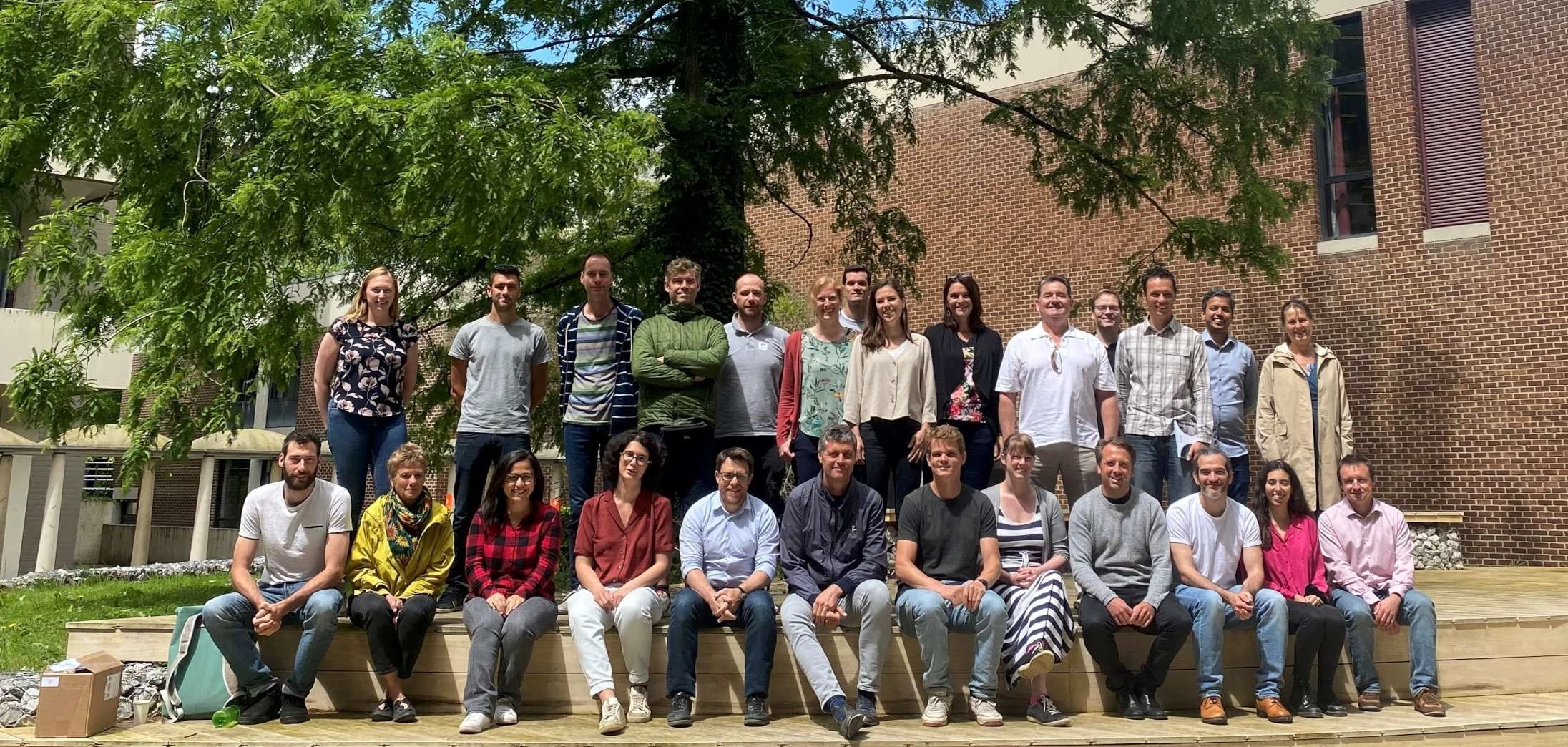
On Thursday the 9th of June 2022 the ICOS Belgium Consortium Meeting was hosted by the Université Catholique de Louvain. During this annual meeting all members of the Belgian ICOS consortium meet each other to discuss recent events and plan possible future collaborations. More than ever, it was exciting to meet each other again in real life - for the first time in two years - and to welcome so many old and new faces.
During the meeting all ICOS stations gave an overview on recent station updates and future plans. First ideas for the ICOS BE Science Conference in 2023 were exchanged and current and future opportunities for collaboration of ICOS with private companies were discussed. In the afternoon we visited the ICOS site in Lonzée. The very first ICOS site devoted to production crops. Thank you to the team of UCLouvain for the warm welcome and hope to see you all again soon!
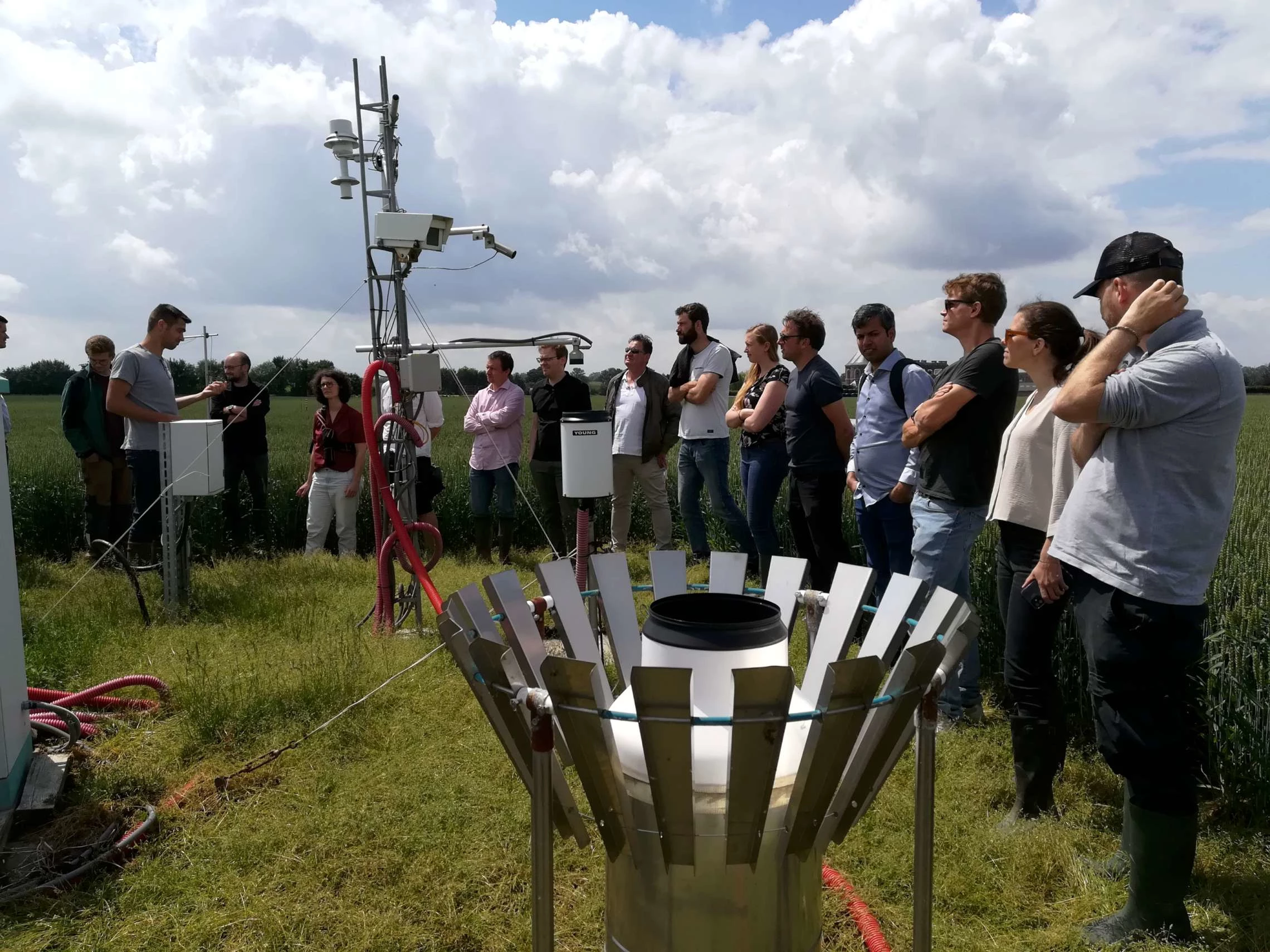
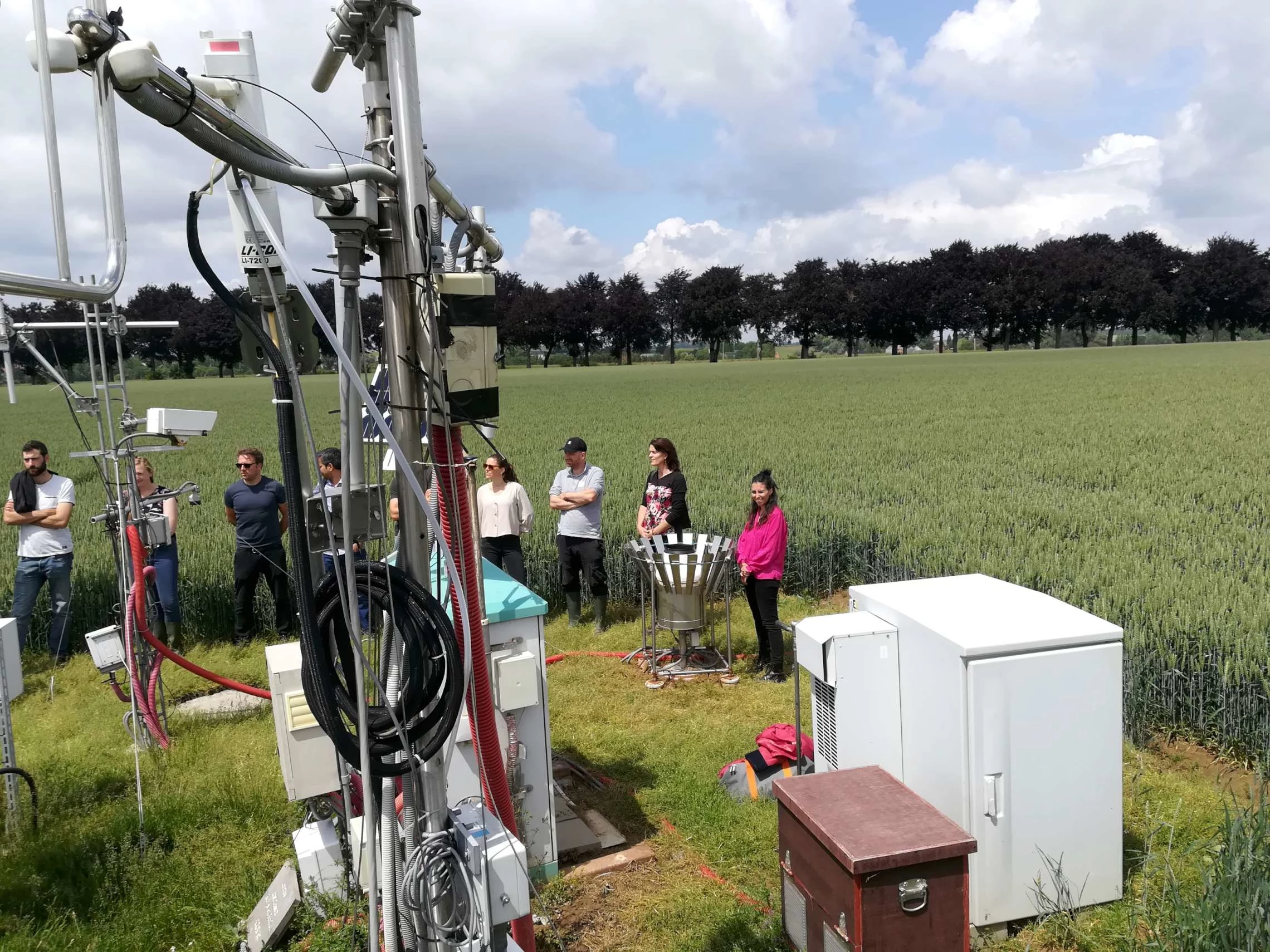
ICOS Wallonia funded for another five years
In October 2020 the Walloon government decided to continue the ICOS-WB infrastructure project for another five years (2021-2026). Phase 2 for the Walloon ICOS network started on 1 July 2021. The consortium consists of ULiège, coordinator of the network together with UCLouvain, ISSeP and CRAw with the Service Public de Wallonie (SPW) acting as the funding agency.
To celebrate the start of the new funding period a Kick-off meeting was held on 4 November 2021 with the follow-up committee.
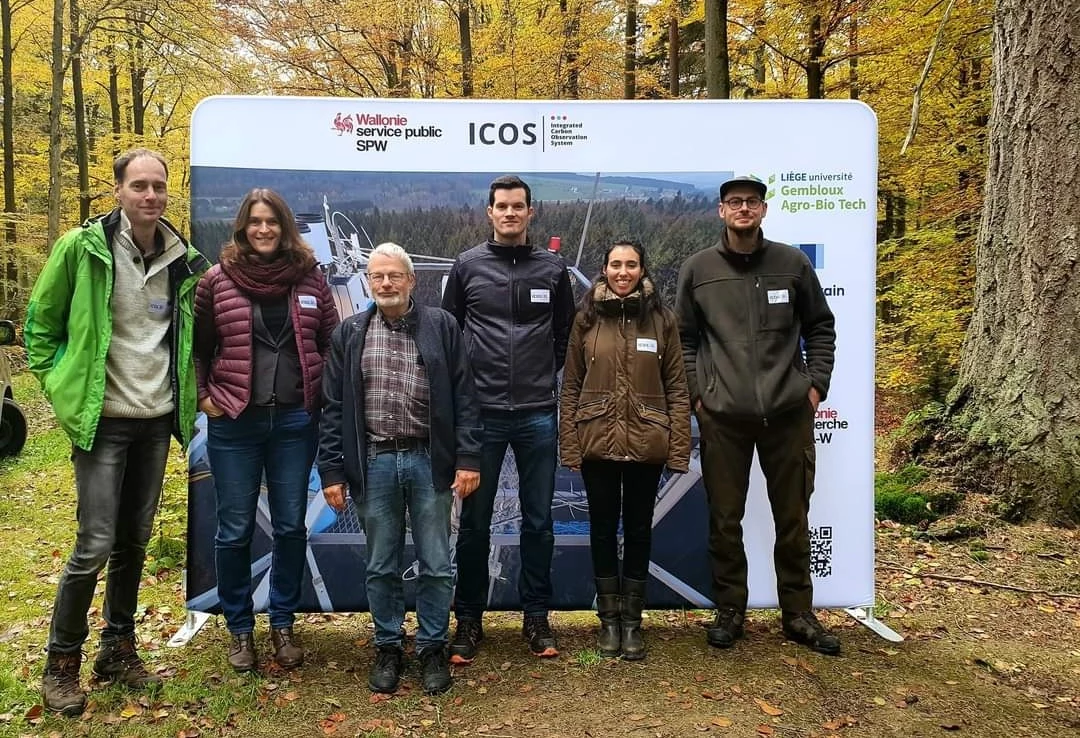
Global Carbon Budget 2021: global carbon emissions rebound close to pre-Covid levels
The Global Carbon Project aims to develop a complete picture of the global carbon cycle, including both its biophysical and human dimensions together with the interactions and feedbacks between them. It is an international research project within the Future Earth research initiative on global sustainability, and a research partner of the World Climate Research Programme.
The 2021 report – the 16th annual Global Carbon Budget – finds that Global carbon emissions in 2021 are set to rebound close to pre-Covid levels. Fossil carbon emissions dropped by 5.4% in 2020 amid Covid lockdowns, but the new report projects an increase of 4.9% this year to 36.4 billion tonnes.
The research team – including the University of Exeter, the University of East Anglia (UEA), CICERO and Stanford University – say a further rise in emissions in 2022 cannot be ruled out if road transport and aviation return to pre-pandemic levels and coal use is stable.
The findings come as world leaders meet at COP26 in Glasgow to address the climate crisis and try to agree on a plan of action going forward.
"The rapid rebound in emissions as economies recover from the pandemic reinforces the need for immediate global action on climate change", said Professor Pierre Friedlingstein, of Exeter's Global Systems Institute, who led the study. "The rebound in global fossil CO2 emissions in 2021 reflects a return towards the pre-Covid fossil based economy. Investments in the green economy in post-Covid recovery plans of some countries have been insufficient so far, on their own, to avoid a substantial return close to pre-Covid emissions."
Prof Corinne Le Quéré, Royal Society Research Professor at UEA’s School of Environmental Sciences, contributed to this year’s analysis. She said: “It will take some time to see the full effect of the Covid related disruptions on global CO2 emissions. A lot of progress has been made in decarbonising global energy since the Paris Agreement was adopted in 2015, plus renewables is the only energy source that continued to grow during the pandemic. New investments and strong climate policy now need to support the green economy much more systematically and push fossil fuels out of the equation.”
The results and implications of the latest Global Carbon Budget will be discussed as part of a UN side event at COP26 entitled: "1.5°C: Where are we now, where are we headed, what are the risks?" A panel of experts speak about issues including climate projections and resilience, with an opening talk from Prof Friedlingstein. It will take place on 10 November from 11:30-12:45 GMT in Multimedia studio 3. The event will also be webcast live on the public UNFCCC website.
VLIZ as a data provider in SOCAT (thanks to its participation in ICOS) was a co-author of the report.
More data and figures are available here.
Webinar series: ICOS Cities Talks

The ICOS Cities project is designing new ways to observe greenhouse gas emissions in cities. Paris, Munich and Zürich are the first cities to test the measurement methodologies. As part of the project, ICOS Cities Talks is launched – a webinar series with experts discussing climate change and its measurement in urban environments.
Urban areas contribute to a large share of global and European fossil fuel emissions - cities are therefore at the heart of emission reduction efforts. The aim of ICOS Cities is to help cities execute their climate action goals by providing data on fossil fuel emissions from urban areas.
“The ICOS Cities project brings together over 100 top scientists from different fields of science. They represent 30 European Universities and research organisations. I am confident that together with this group of top scientists, we can bring forth new solutions to support cities in their climate actions and decisions,” says Werner Kutsch, the coordinator of the project and Director General at ICOS ERIC.
ICOS Cities Talks for everyone
Kicking off the project, a brand-new webinar series ‘ICOS Cities Talks’ will start on Wednesday the 3rd of November. The webinars gather experts from around the globe, giving a 30 minutes talk on greenhouse gas measurements and climate change in urban landscapes. The talk will be followed by a Q&A session and a discussion.
“The first talks will revolve around e.g. eddy covariance flux measurements, city climate budget as a tool to achieve ambitious climate goals and how to measure attitudes among citizens towards climate change. During the upcoming months, there will be plenty of other interesting topics that will be launched very soon,” says Claudio D’Onofrio, ICOS Cities Project Manager.
The webinars are free of charge and open for everyone. Especially students, researchers and other professionals are invited to join. More info and registration here.
ICOS at COP26
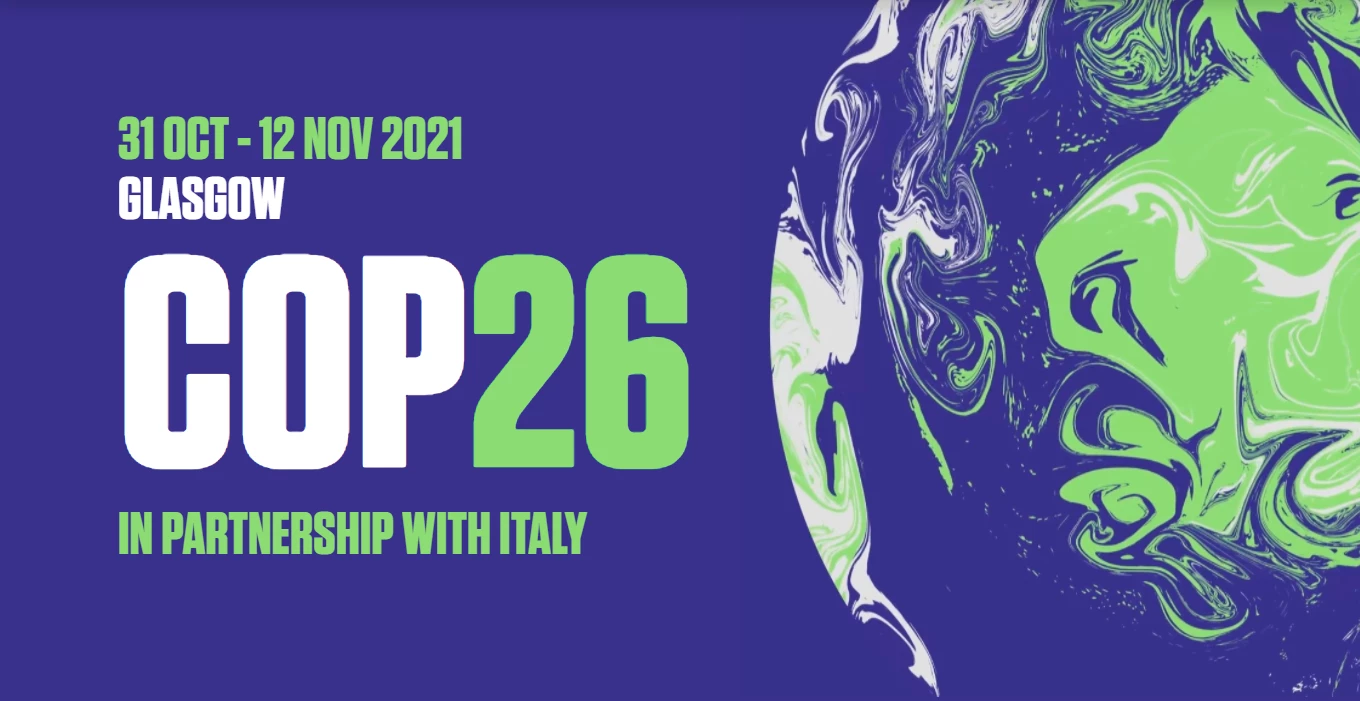
The 2021 United Nations Climate Change Conference, also known as COP26 and as the Glasgow Conference, represents the world’s last best chance to limit global warming to 1.5°c, to turn the Paris commitments into action and to help build a sustainable future for all. ICOS is among the representatives of many international organisations supporting science to help understand and slow down climate change.
ICOS has promised to deliver scientific knowledge to support climate action and decision-making and to advance the fulfilment of the United Nations’ Sustainable Development Goals concerning climate change.
Find ICOS at the following events:
Let’s start the ocean data revolution in the Nordics!
4th of November 2021, 14:00–15:00 UTCJoin us and start the Ocean Data Revolution and discuss cross-sectoral partnerships to reach the EU Green Deal & Paris Agreement commitments!
Terrestrial GHG flux observations as an essential climate variable
3rd of November 2021, 10:00-13:00 UTCView our poster at the virtual poster session on “Interpreting Earth observations for implementing the Paris Agreement – developments, opportunities and challenges”.
Carbon neutral construction in Nordic cities
3rd of November 2021, 11:00-12:30 UTCFollow the broadcast on "Carbon neutral construction in Nordic cities: Networks for co-creation and impact — Showcase of best practices, identifying gaps, and moving forward".
Read more info here.
Vielsalm ICOS station: 25 years of greenhouse gas measurements
UCLouvain and ULiège are celebrating the 25th anniversary of the Vielsalm measurement station. Founded in 1996, it is one of the oldest greenhouse gas exchange measurement stations in Europe.
"For a quarter of a century, this station has been providing scientists and decision-makers with very high-precision data", emphasises Caroline Vincke, professor at the Faculty of Bioengineering of the UCLouvain and head of the Vielsalm station since 2014.
Thanks to a 50-metre high flux tower, the station measures every 30 minutes the exchange of CO2 and water vapour between the atmosphere and the forest ecosystem composed of beech, Douglas fir and spruce trees. Other data collected in the air, soil and vegetation help to understand what influences these fluxes.
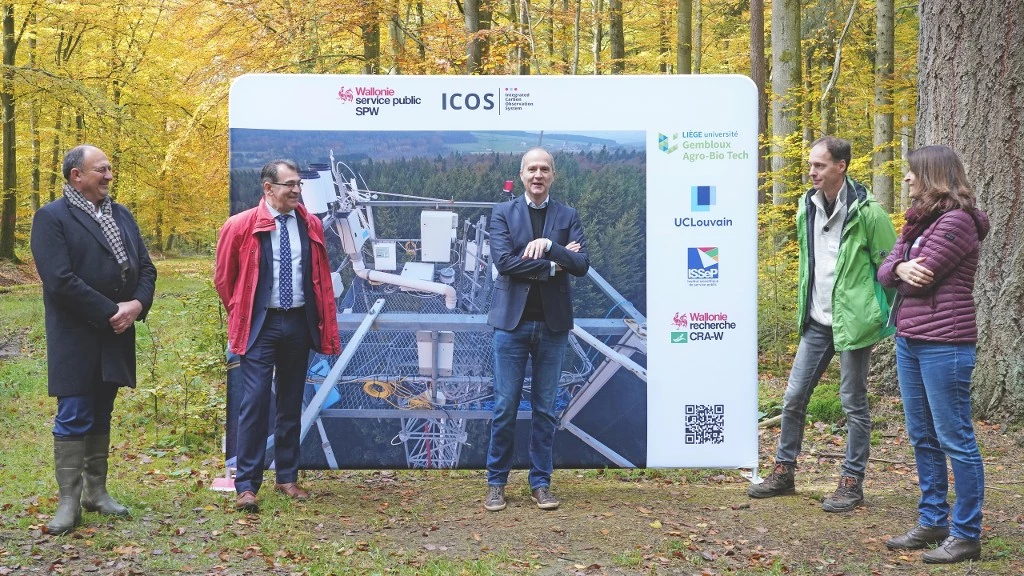
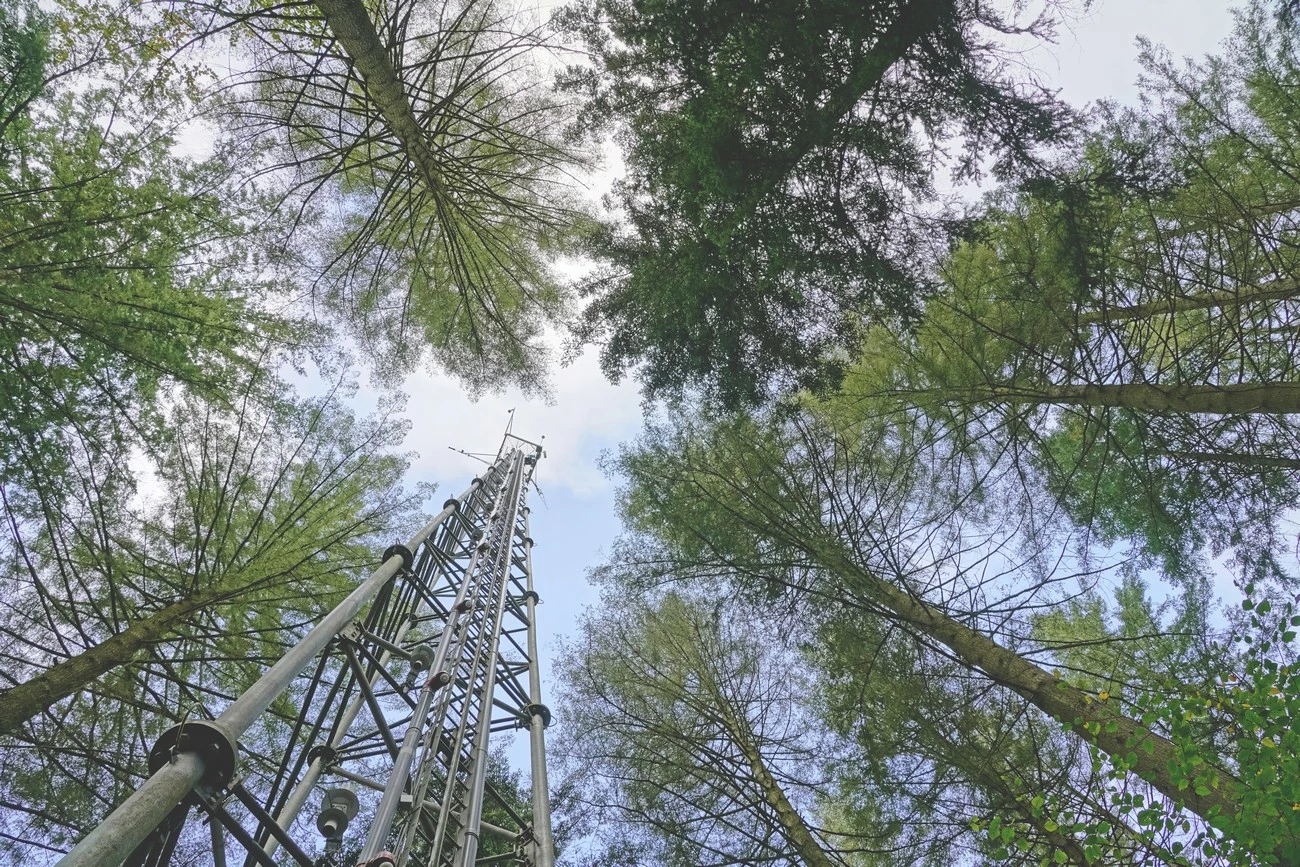
Over the past 25 years, numerous research projects have been conducted thanks to the measurements carried out at Vielsalm. In particular concerning the carbon sequestration of the forest and its resilience to climatic events or biotic attacks.
The UCLouvain and ULiège have thus demonstrated that this forest ecosystem behaves like a fairly stable carbon sink, with the beech trees absorbing an average of 411gC/m2/year and the Douglas fir trees absorbing 813gC/m2/year. "In other words, says Caroline Vincke, one hectare of this forest offsets the CO2 emissions of a conventional car driven 116 000 kilometres."
In the autumn of 2020, Vielsalm was awarded the prestigious ICOS ecosystem label. To celebrate this milestone and the 25th anniversary of the, a ceremony was held on Wednesday 27 October 2021 with Walloon minister of economy, research and innovation and agriculture Willy Borsus.
First comprehensive article describing ICOS published
An article describing the purpose and operation of the ICOS Research Infrastructure has been published in the Bulletin of American Meteorological Society (BAMS). The article raises a number of particularly important scientific questions in the field. While we know that half of the carbon emissions released to the atmosphere by fossil fuel usage are re-captured by the ocean and land ecosystems, we still lack knowledge when it comes to the exact size, nature and stabilities of these carbon sinks and how these will be affected by climate change. How these sinks operate in detail, and if they indeed continue to work is vital information for societies, that must decide on pathways to climate neutrality.
Due to the growing urgency of climate change, many of these questions relate to policy frameworks such as the Paris Agreement or to the UN Sustainable Development goals.
“The best way to know the current status of the Earth is to measure it continuously and for decades to be able to see changes in the nature. We also need to provide that information fast enough to support decision making,” says Jouni Heiskanen, first author of the article.
Read more here.
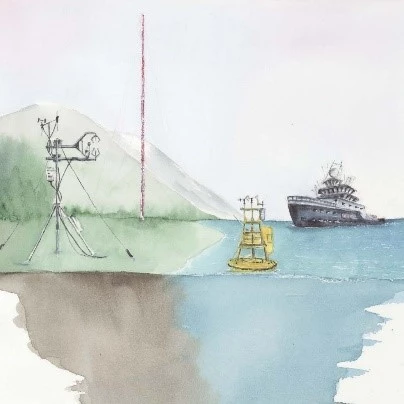
Hungary to be 14th country to join ICOS Research Infrastructure
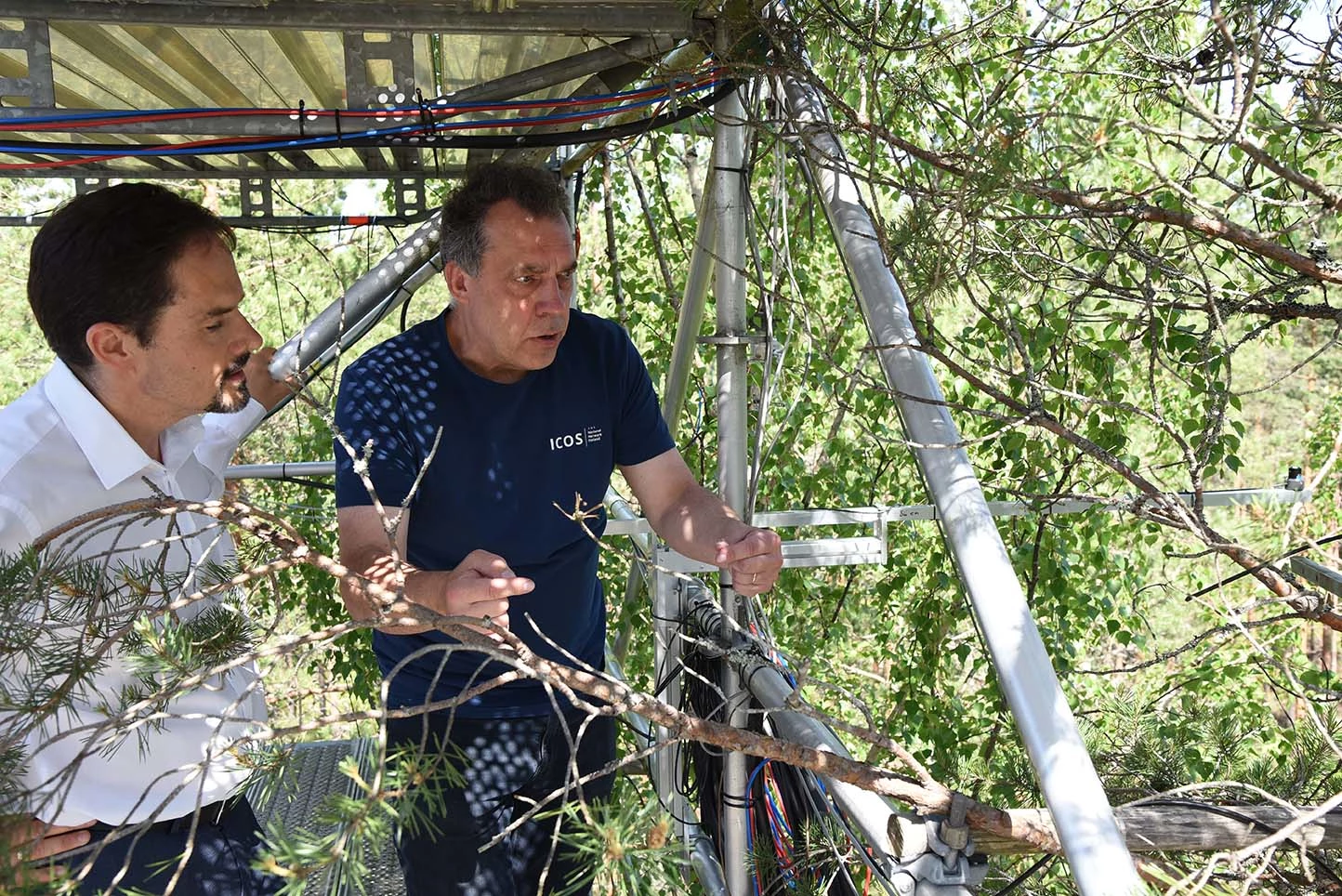
After Hungary's accession to ICOS on 1st of January 2022, several Hungarian atmosphere and ecosystem observation stations will be gradually integrated into the ICOS network. The first station entering the network will be an existing atmosphere station in the village of Hegyhátsál in Vas County in western Hungary, operated by the Institute for Nuclear Research.
The addition of Hungary to the map provides scientists with a possibility to compare greenhouse gas measurements from an area reaching all the way from Atlantic Ocean to Hungary, and from Canary Islands to Finnish Lapland.
Read more here.
Research Vessel Simon Stevin labelled!
Among the recently certified 12 ICOS greenhouse gas measurement stations is the Belgian Ocean station Simon Stevin. This 36-metre-long Ship of Opportunity measures the partial pressure of carbon dioxide (pCO2), dissolved inorganic carbon (DIC) and other parameters in the ocean during its journey from the Belgian coast to the North Sea and the Eastern part of the English Channel, and back. The area where Simon Stevin sails is interesting for measurements because it is situated close to highly urbanised land and to the Scheldt River, where freshwater from the river mixes with salt water from the North Sea.
Having ICOS measurement equipment on board, the ship can evaluate, for example, how much carbon dioxide the sea has taken up. The oceans absorb approximately 25% of the human generated carbon dioxide from the atmosphere. Increased amount of carbon dioxide in the North Sea would make the sea more acid and affect e.g its distinctive marine life.
A quote by Thanos Gkritzalis about the significance of Simon Stevin getting labelled/the work that has been done over the years etc:
“High quality and long term observations of CO2 and carbon parameters are crucial for understanding how marine environments behave and evolve. Having the RV Simon Stevin as an ICOS station operating in the Southern Bight of the North Sea the Belgian Coast and nearby Scheldt estuary will provide the necessary data and infrastructure to marine researchers and policy makers to understand this environment and ecosystem better. VLIZ is proud of being part of such a landmark infrastructure as ICOS”

Vacancy: (Bio)-Engineer in charge of the technical implementation, monitoring and data management of environmental measurement chains for ICOS-Belgium
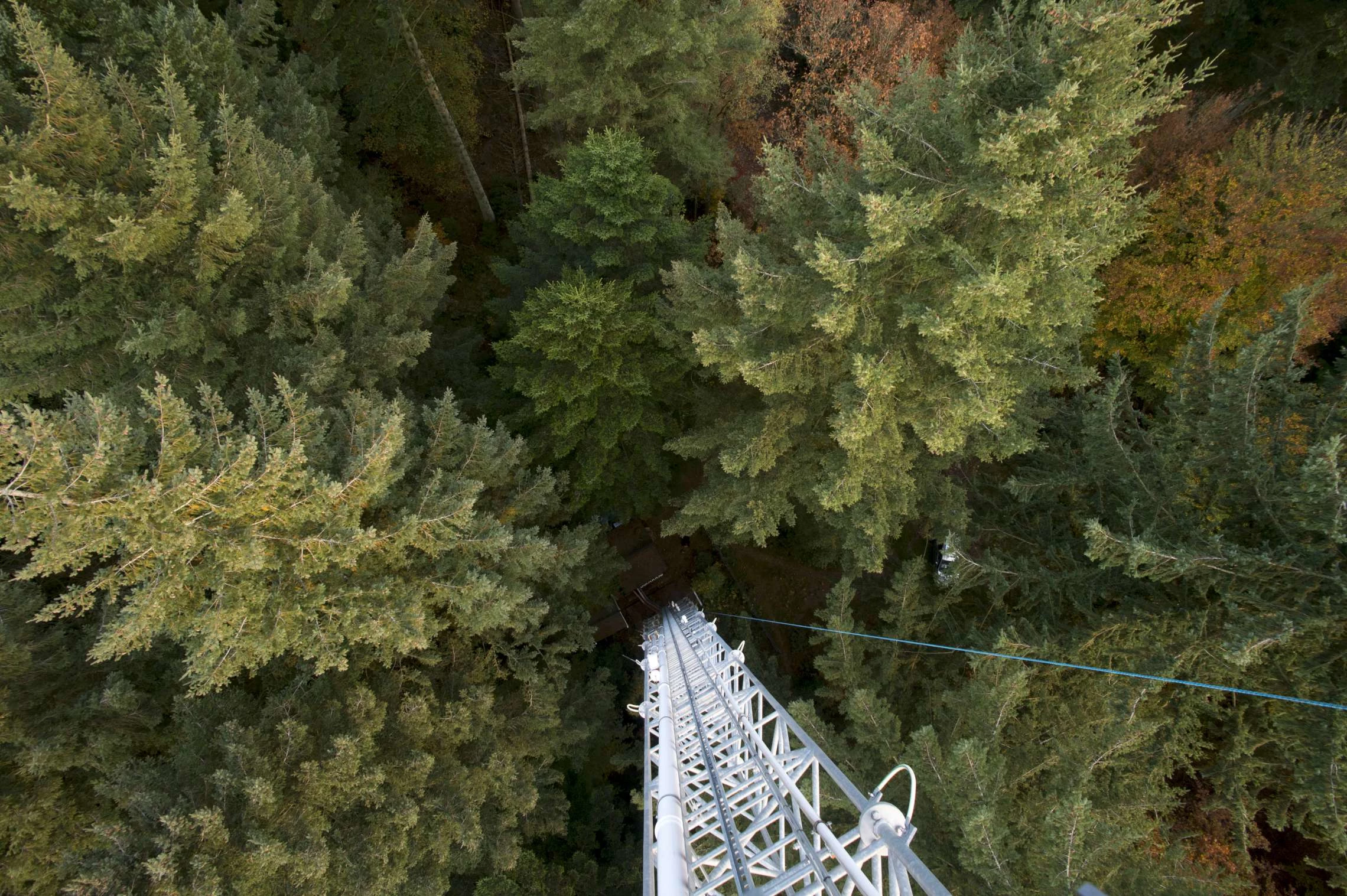
The BioDynE (Biosystems Dynamics and Exchanges) axis at the Faculty of Gembloux Agro-Bio Tech (University of Liège, Belgium) is hiring an engineer to set up and monitor its experiments in the framework of the ICOS (Integrated Carbon Observation System, https://www.icos-ri.eu/, http://www.icos-belgium.be/) project.
He/she will work within the ICOS-Wallonia-Brussels team, a dynamic team of two (bio)-engineers and two technicians that seeks to understand the functioning of agronomic and forest ecosystems to meet tomorrow's environmental challenges (reduction of the greenhouse effect, feeding the population, ...). The team is integrated in the BioDynE research axis which provides a stimulating work environment in a university setting, including multiple collaborations with researchers and technicians.
The call will close on November 1st 2021.
Download full vacancy here.
Virtual #ICOScapes Photo Exhibition - Raising awareness on climate change through photographs
The #ICOScapes Photo Exhibition is now available for you to enjoy from the comfort of your couch!
The photographs and videos of the virtual #ICOScapes exhibition highlight unique environments across Europe, where scientists work at ICOS greenhouse gas measurement stations. Observing the level of greenhouse gases is essential for predicting climate change and mitigating its consequences. Data from observations are used both for research and for international policy making.
The photos and videos in the virtual exhibition are taken by the famous nature and wildlife photographer Konsta Punkka during his visits to 12 ICOS greenhouse gas measurement sites in Europe between 2017–2018. From the hundreds of photographs, 24 pictures were selected for the exhibition. For Belgium ocean station RV Simon Stevin was photographed.
The virtual exhibition is open from April 26 2021 to April 26 2022 at www.icos-cp.eu/icoscapes.
You can follow and discuss the #ICOScapes campaign on Instagram, Youtube and Twitter with hashtag #ICOScapes.
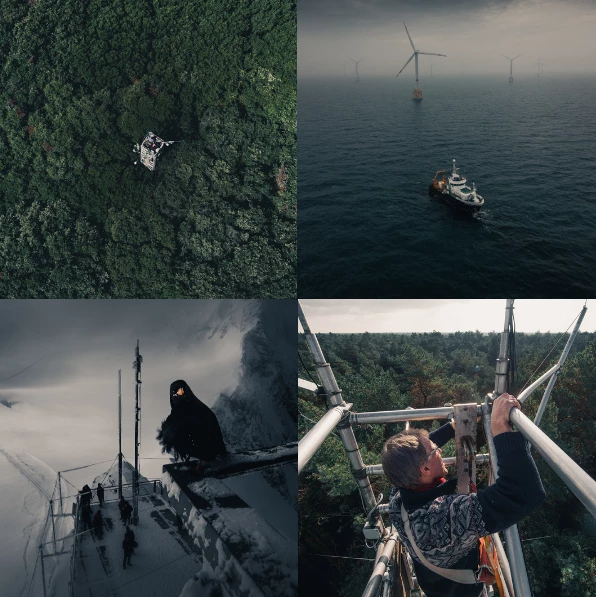
Belgian Focal Point Ivan Janssens ranked 135th in Reuters list world’s top climate scientists
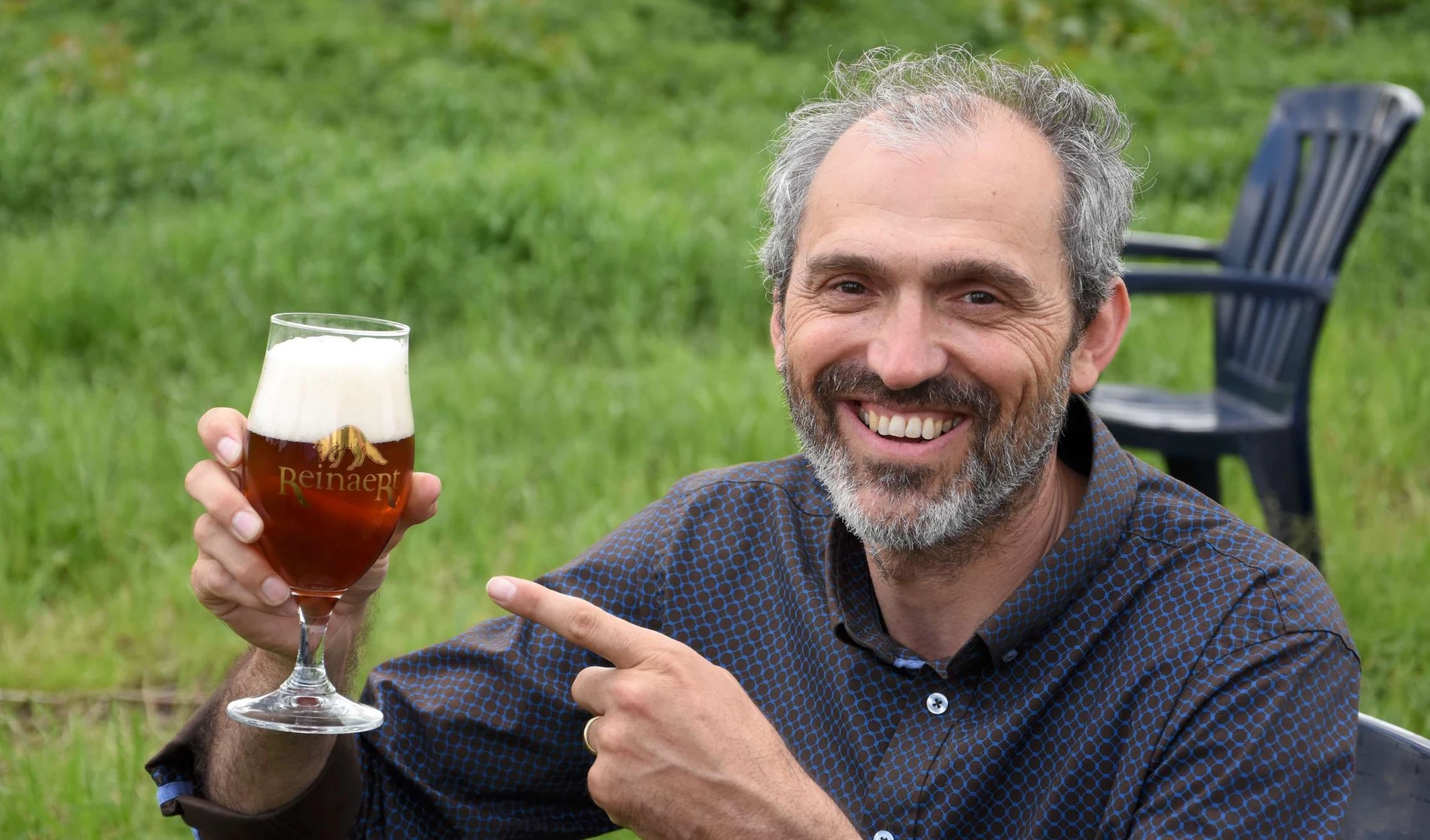
Belgian Focal Point Ivan Janssens was ranked 135th in the Reuters list of the world’s top climate scientists. The list ranks 1000 climate academics according to how influential they are. Ivan Janssens is the highest ranking Belgian scientist.
The ranking is based on how many research papers he has published on topics related to climate change, how often those papers are cited by other scientists in similar fields of study and how often those papers are referenced in the lay press, social media, policy papers and other outlets.
Consult the full list here
Labeling process for ICOS atmospheric stations published
High precision and accuracy are mandatory for the measurements of GHG's and their use in atmospheric inversion models. The atmospheric measurement stations joining ICOS are therefore required to undergo a rigorous assessment before they are officially labeled. The labeling process for the ICOS atmospheric network was published by Camille et al. (https://doi.org/10.5194/amt-14-89-2021) in Atmospheric Measurement Techniques in January 2021. The paper outlines in depth the labeling steps, the quality control process for the GHG's and meteorological measurements to attain the expected high quality level of ICOS that was applied to the 23 stations labelled between November 2017 and November 2019, including the RUN station operated by BIRA on Reunion Island in the Indian Ocean. Furthermore, it describes the calibration cycle detailing the measurement types and frequency, and the verification methodology to detect problems. The paper gives recommendations for the optimal choice of calibration sequence, important lessons learned from the labeling process and several key results, that are useful for other atmospheric stations and future stations planning to join ICOS.
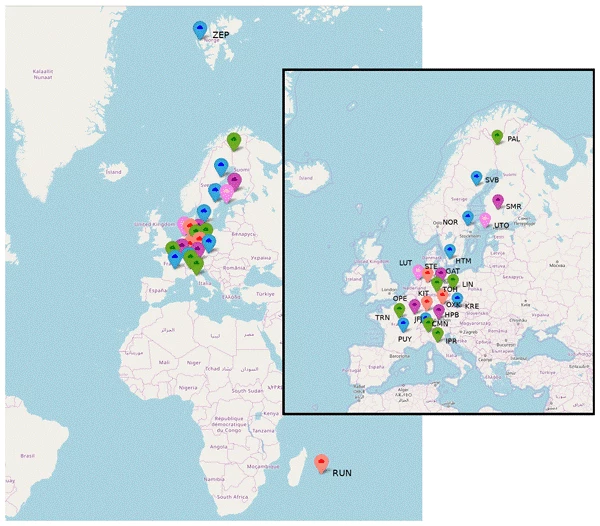


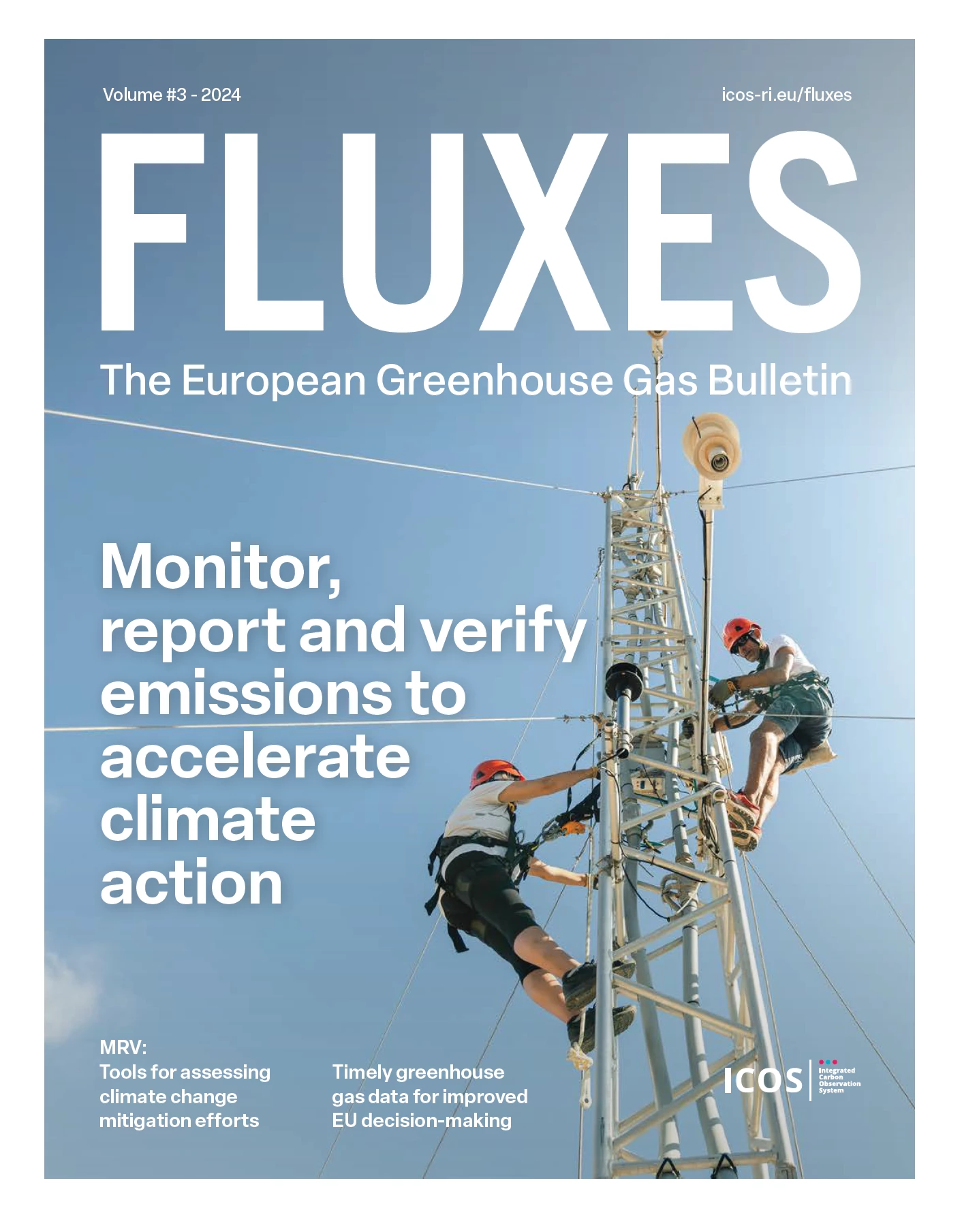
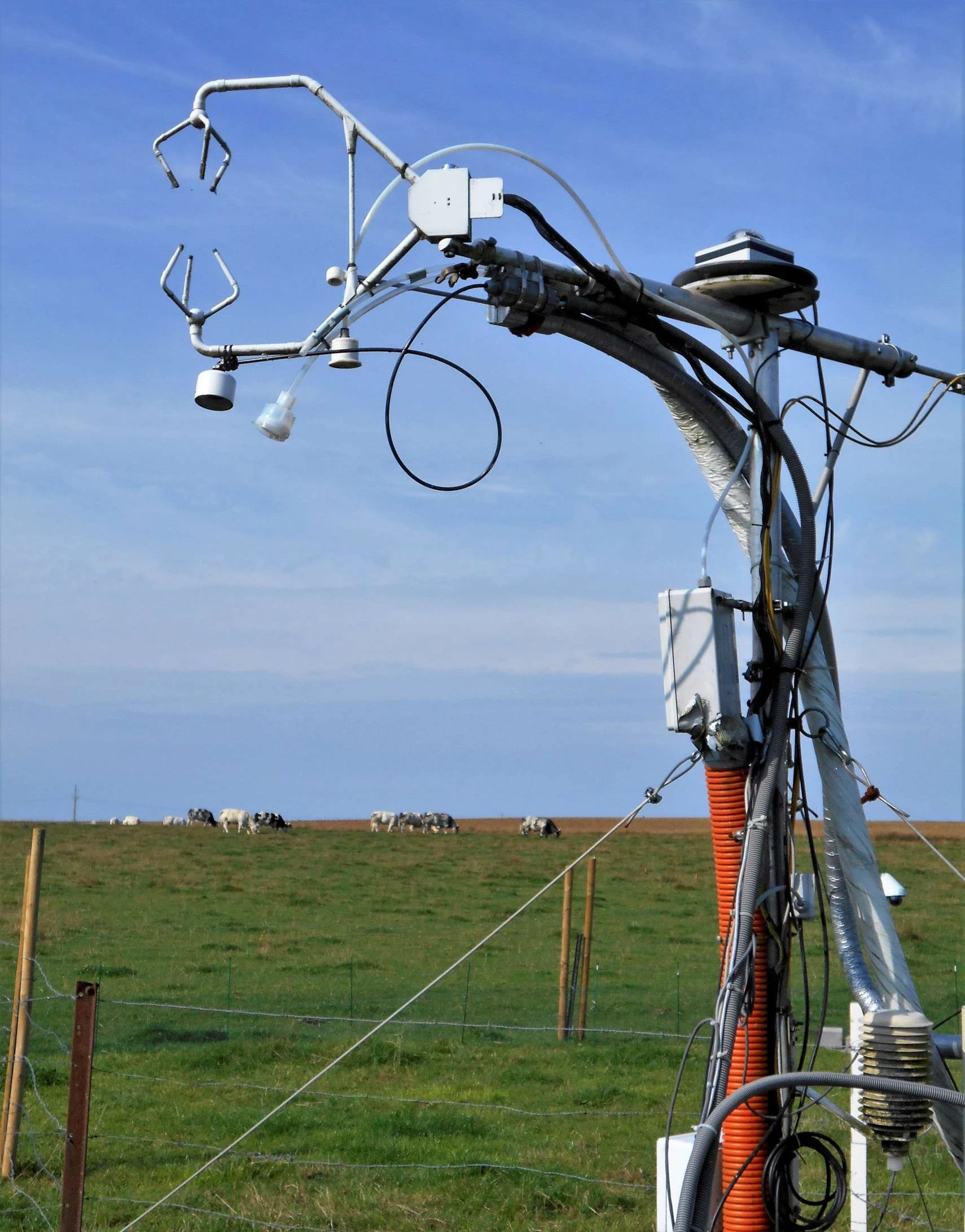
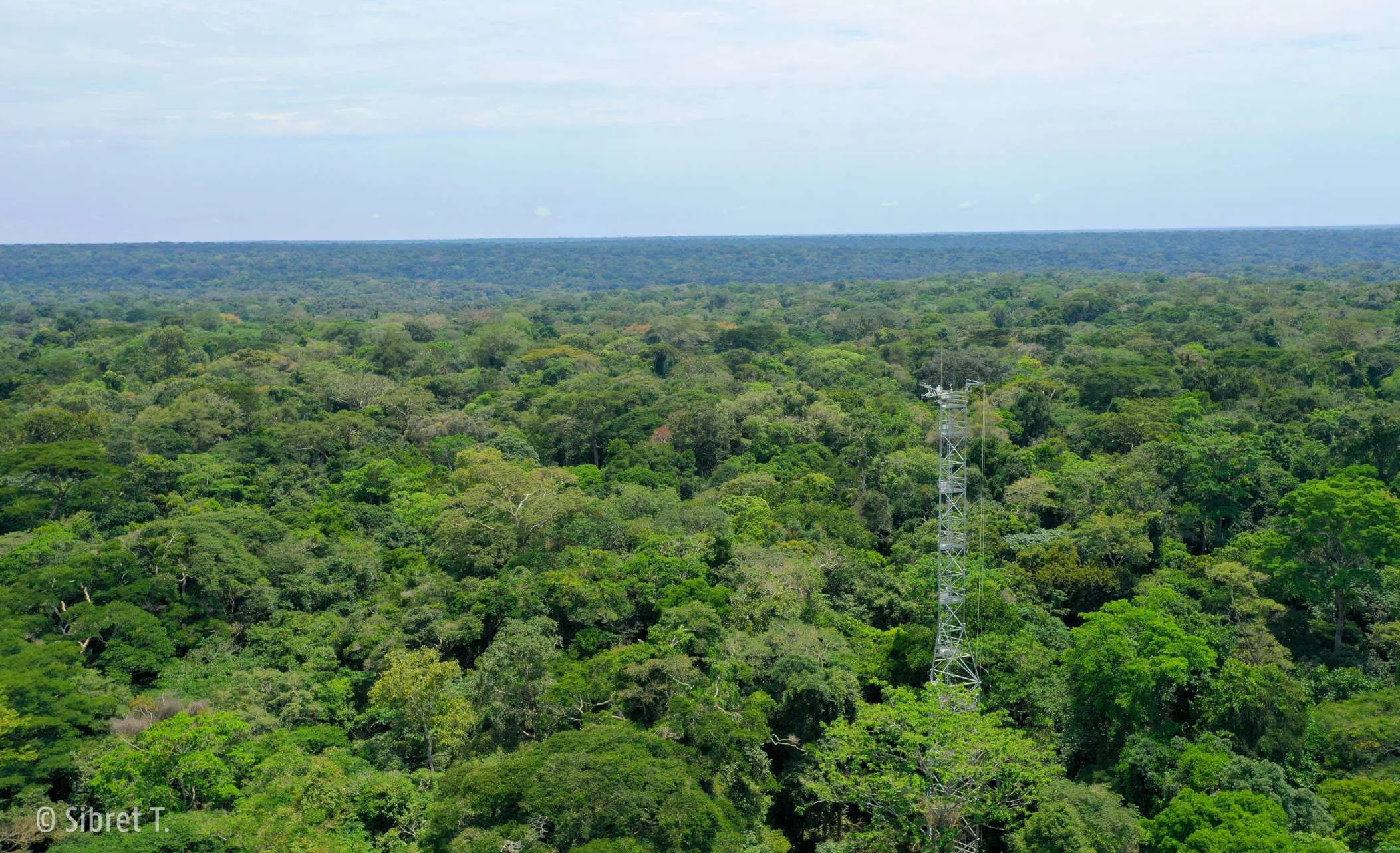
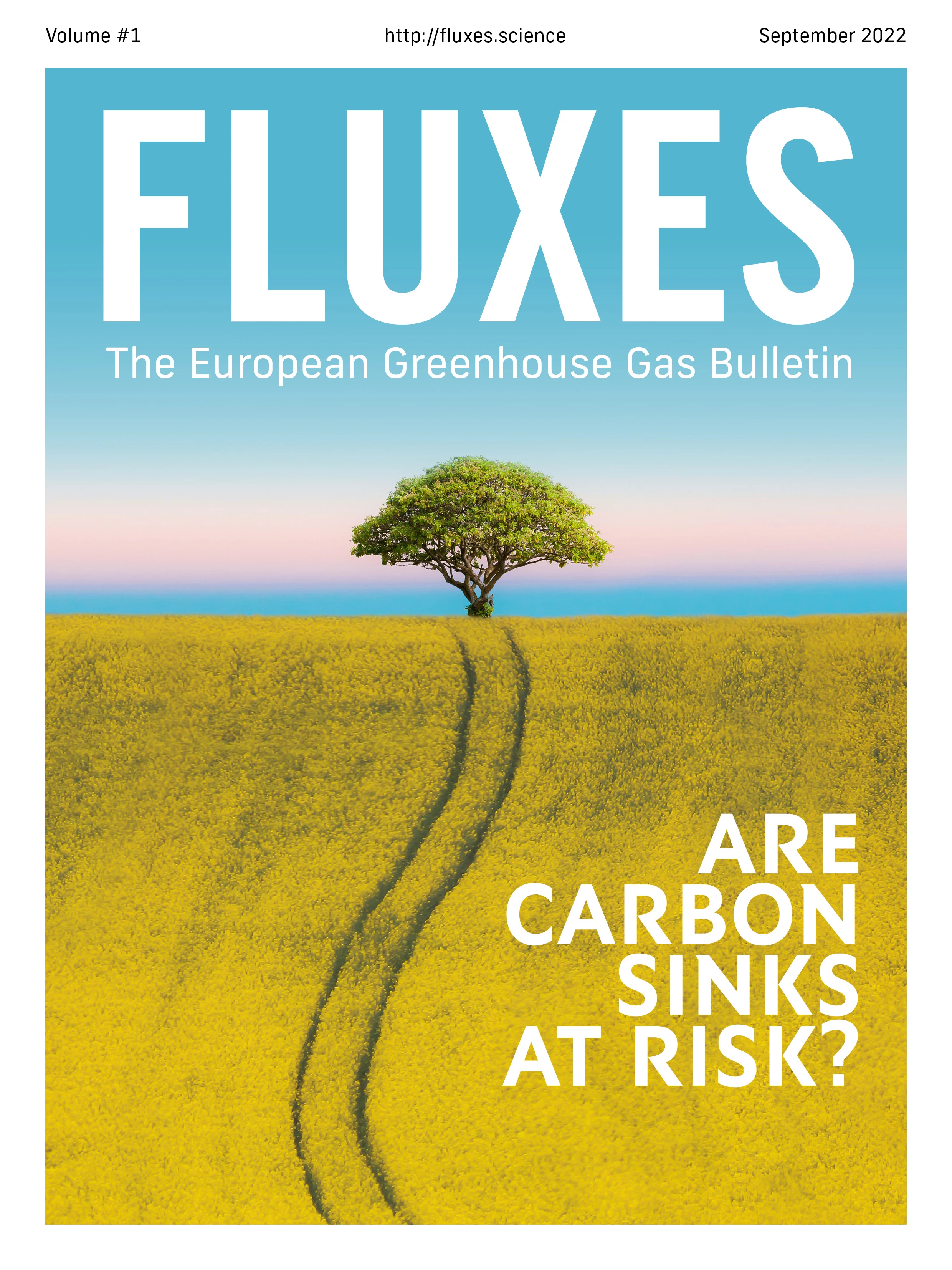
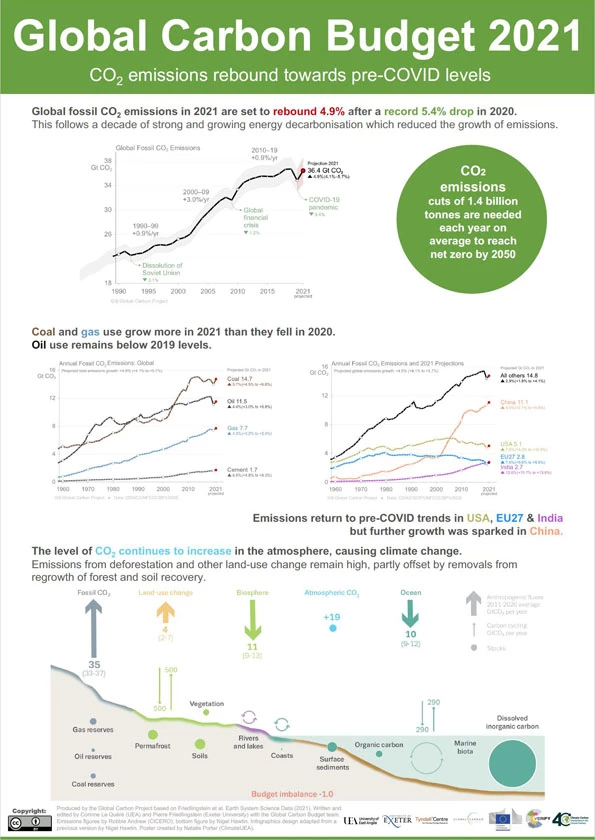
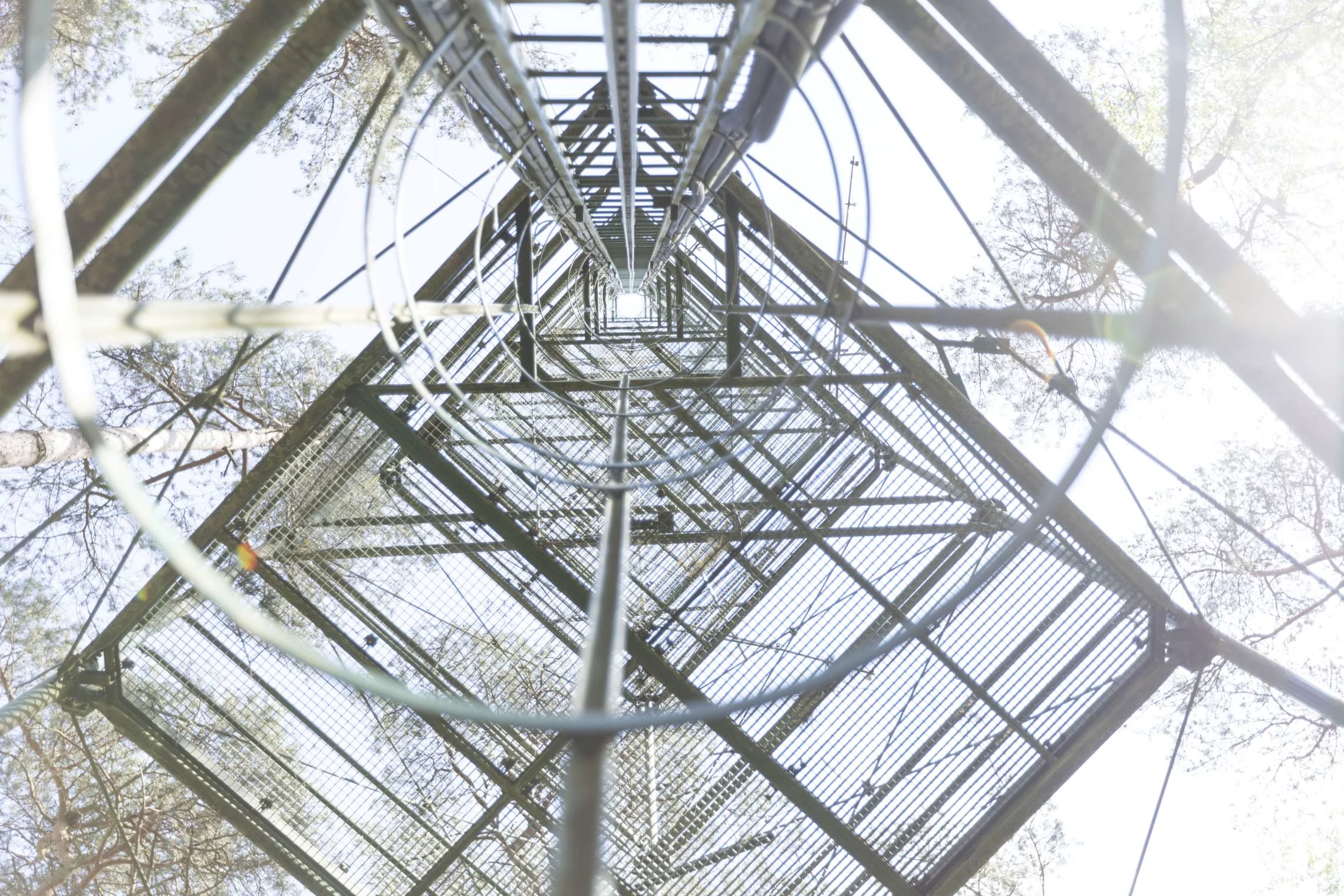
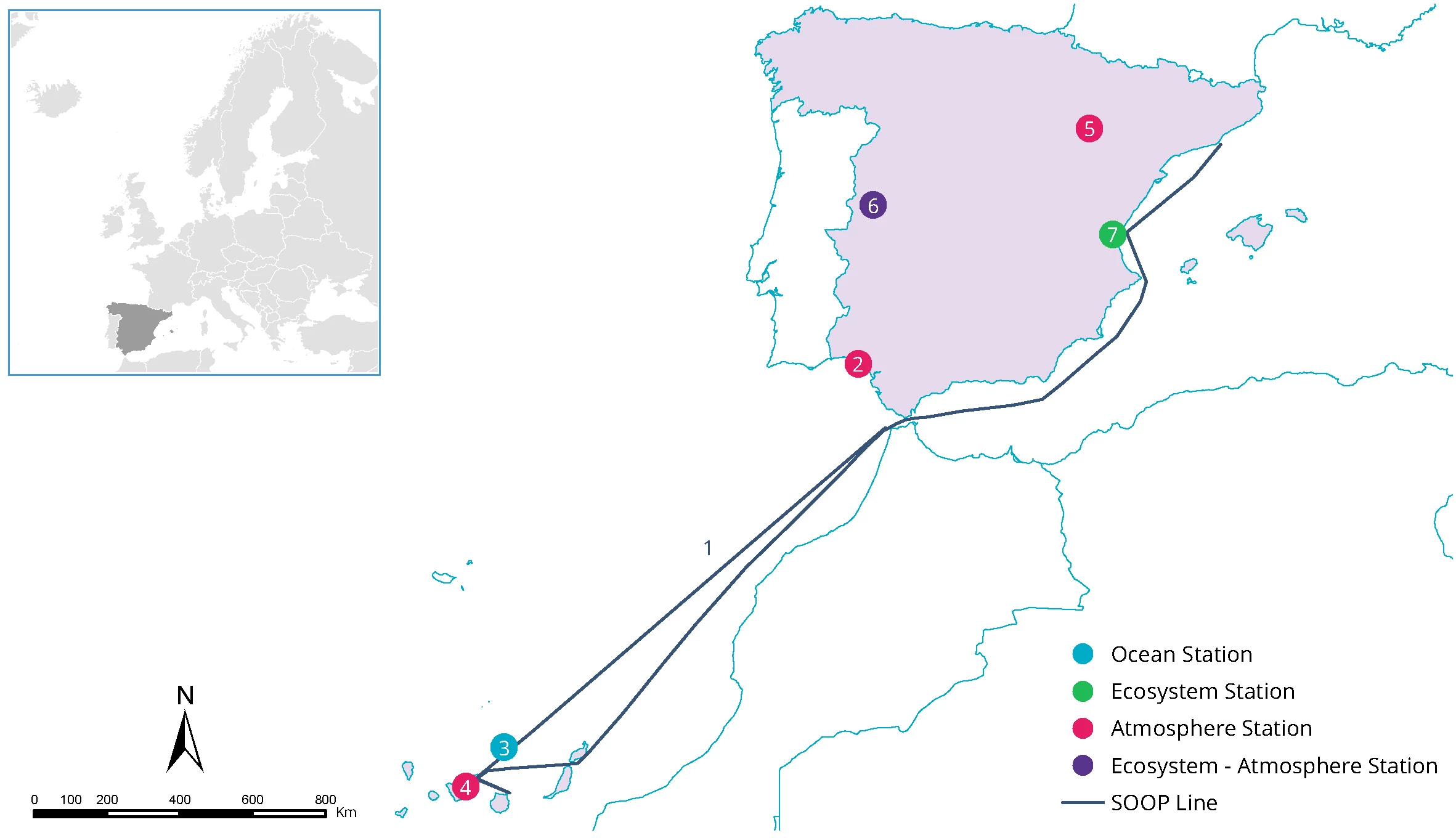
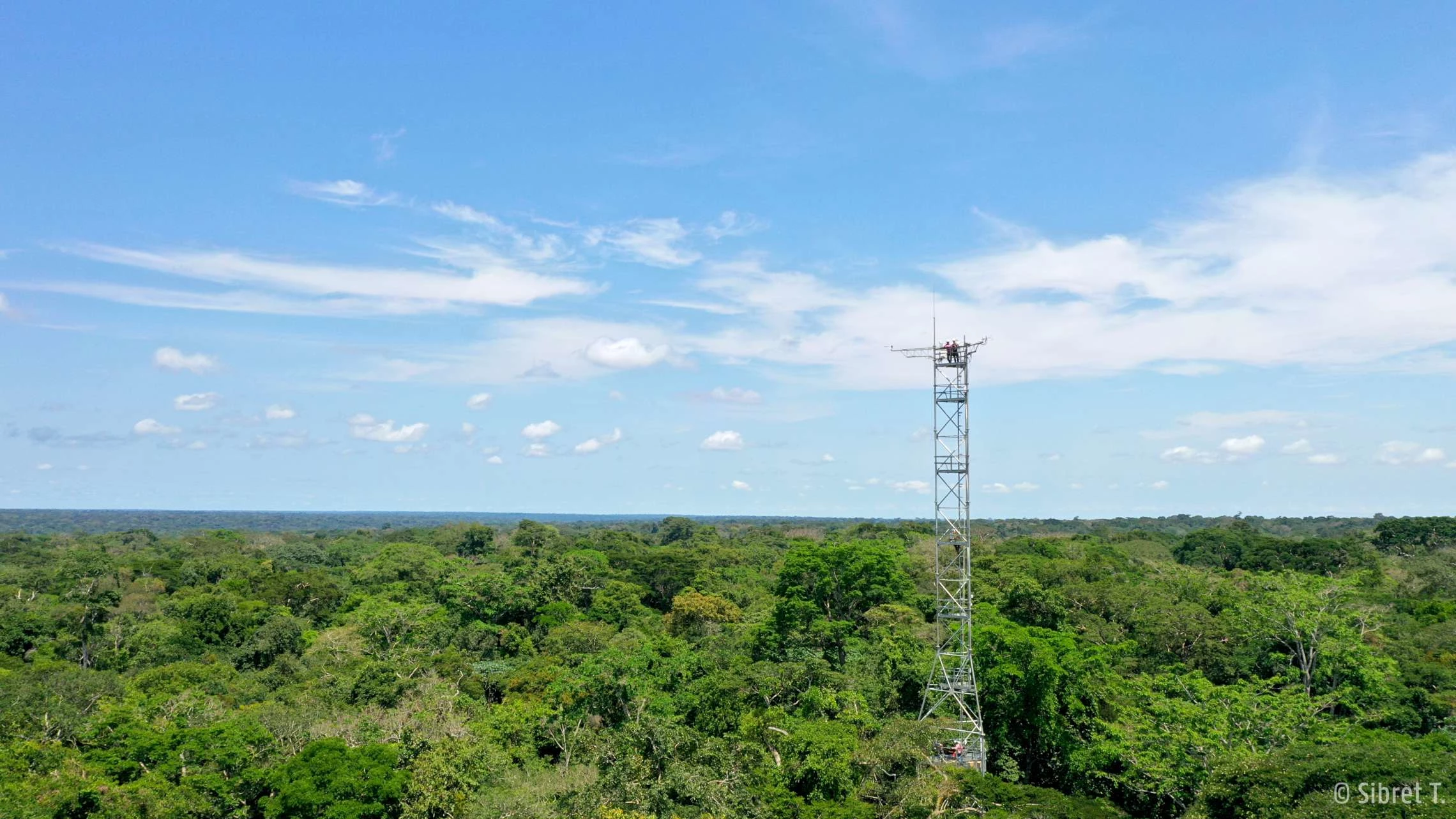
.webp)
